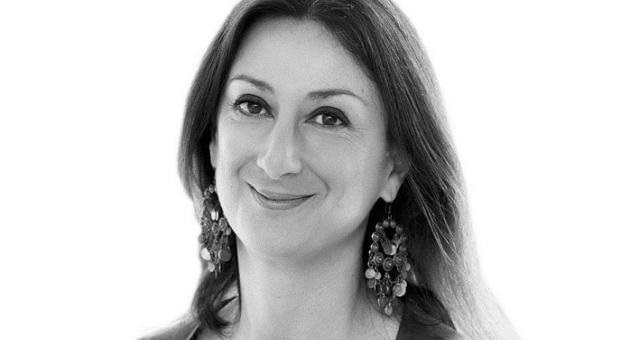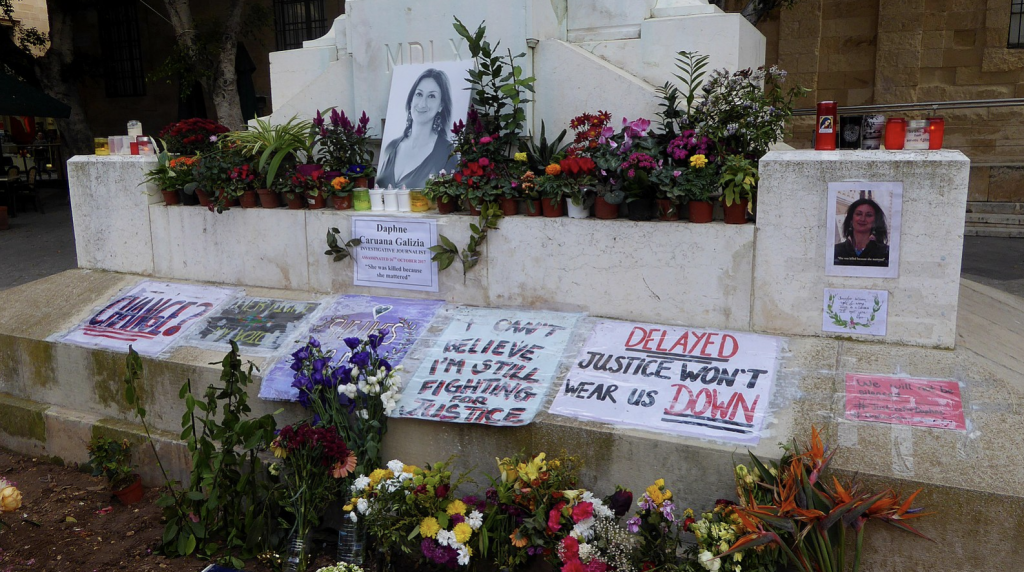12 Dec 2019 | About Index, Awards, Free Speech Is For Me, In the News, Malta, News and features, This Week, United Kingdom
[vc_row][vc_column][vc_raw_html]JTNDJTIxZG9jdHlwZSUyMGh0bWwlM0UlMEElM0NodG1sJTIweG1sbnMlM0QlMjJodHRwJTNBJTJGJTJGd3d3LnczLm9yZyUyRjE5OTklMkZ4aHRtbCUyMiUyMHhtbG5zJTNBdiUzRCUyMnVybiUzQXNjaGVtYXMtbWljcm9zb2Z0LWNvbSUzQXZtbCUyMiUyMHhtbG5zJTNBbyUzRCUyMnVybiUzQXNjaGVtYXMtbWljcm9zb2Z0LWNvbSUzQW9mZmljZSUzQW9mZmljZSUyMiUzRSUwQSUyMCUyMCUyMCUyMCUzQ2hlYWQlM0UlMEElMjAlMjAlMjAlMjAlMjAlMjAlMjAlMjAlM0MlMjEtLSUyME5BTUUlM0ElMjAxJTIwQ09MVU1OJTIwLS0lM0UlMEElMjAlMjAlMjAlMjAlMjAlMjAlMjAlMjAlM0MlMjEtLSU1QmlmJTIwZ3RlJTIwbXNvJTIwMTUlNUQlM0UlMEElMjAlMjAlMjAlMjAlMjAlMjAlMjAlMjAlM0N4bWwlM0UlMEElMjAlMjAlMjAlMjAlMjAlMjAlMjAlMjAlMjAlMjAlMjAlMjAlM0NvJTNBT2ZmaWNlRG9jdW1lbnRTZXR0aW5ncyUzRSUwQSUyMCUyMCUyMCUyMCUyMCUyMCUyMCUyMCUyMCUyMCUyMCUyMCUzQ28lM0FBbGxvd1BORyUyRiUzRSUwQSUyMCUyMCUyMCUyMCUyMCUyMCUyMCUyMCUyMCUyMCUyMCUyMCUzQ28lM0FQaXhlbHNQZXJJbmNoJTNFOTYlM0MlMkZvJTNBUGl4ZWxzUGVySW5jaCUzRSUwQSUyMCUyMCUyMCUyMCUyMCUyMCUyMCUyMCUyMCUyMCUyMCUyMCUzQyUyRm8lM0FPZmZpY2VEb2N1bWVudFNldHRpbmdzJTNFJTBBJTIwJTIwJTIwJTIwJTIwJTIwJTIwJTIwJTNDJTJGeG1sJTNFJTBBJTIwJTIwJTIwJTIwJTIwJTIwJTIwJTIwJTNDJTIxJTVCZW5kaWYlNUQtLSUzRSUwQSUyMCUyMCUyMCUyMCUyMCUyMCUyMCUyMCUzQ21ldGElMjBjaGFyc2V0JTNEJTIyVVRGLTglMjIlM0UlMEElMjAlMjAlMjAlMjAlMjAlMjAlMjAlMjAlM0NtZXRhJTIwaHR0cC1lcXVpdiUzRCUyMlgtVUEtQ29tcGF0aWJsZSUyMiUyMGNvbnRlbnQlM0QlMjJJRSUzRGVkZ2UlMjIlM0UlMEElMjAlMjAlMjAlMjAlMjAlMjAlMjAlMjAlM0NtZXRhJTIwbmFtZSUzRCUyMnZpZXdwb3J0JTIyJTIwY29udGVudCUzRCUyMndpZHRoJTNEZGV2aWNlLXdpZHRoJTJDJTIwaW5pdGlhbC1zY2FsZSUzRDElMjIlM0UlMEElMjAlMjAlMjAlMjAlMjAlMjAlMjAlMjAlM0N0aXRsZSUzRSUyQSU3Q01DJTNBU1VCSkVDVCU3QyUyQSUzQyUyRnRpdGxlJTNFJTBBJTIwJTIwJTIwJTIwJTIwJTIwJTIwJTIwJTBBJTIwJTIwJTIwJTIwJTNDc3R5bGUlMjB0eXBlJTNEJTIydGV4dCUyRmNzcyUyMiUzRSUwQSUwOSUwOXAlN0IlMEElMDklMDklMDltYXJnaW4lM0ExMHB4JTIwMCUzQiUwQSUwOSUwOSUwOXBhZGRpbmclM0EwJTNCJTBBJTA5JTA5JTdEJTBBJTA5JTA5dGFibGUlN0IlMEElMDklMDklMDlib3JkZXItY29sbGFwc2UlM0Fjb2xsYXBzZSUzQiUwQSUwOSUwOSU3RCUwQSUwOSUwOWgxJTJDaDIlMkNoMyUyQ2g0JTJDaDUlMkNoNiU3QiUwQSUwOSUwOSUwOWRpc3BsYXklM0FibG9jayUzQiUwQSUwOSUwOSUwOW1hcmdpbiUzQTAlM0IlMEElMDklMDklMDlwYWRkaW5nJTNBMCUzQiUwQSUwOSUwOSU3RCUwQSUwOSUwOWltZyUyQ2ElMjBpbWclN0IlMEElMDklMDklMDlib3JkZXIlM0EwJTNCJTBBJTA5JTA5JTA5aGVpZ2h0JTNBYXV0byUzQiUwQSUwOSUwOSUwOW91dGxpbmUlM0Fub25lJTNCJTBBJTA5JTA5JTA5dGV4dC1kZWNvcmF0aW9uJTNBbm9uZSUzQiUwQSUwOSUwOSU3RCUwQSUwOSUwOWJvZHklMkMlMjNib2R5VGFibGUlMkMlMjNib2R5Q2VsbCU3QiUwQSUwOSUwOSUwOWhlaWdodCUzQTEwMCUyNSUzQiUwQSUwOSUwOSUwOW1hcmdpbiUzQTAlM0IlMEElMDklMDklMDlwYWRkaW5nJTNBMCUzQiUwQSUwOSUwOSUwOXdpZHRoJTNBMTAwJTI1JTNCJTBBJTA5JTA5JTdEJTBBJTA5JTA5Lm1jblByZXZpZXdUZXh0JTdCJTBBJTA5JTA5JTA5ZGlzcGxheSUzQW5vbmUlMjAlMjFpbXBvcnRhbnQlM0IlMEElMDklMDklN0QlMEElMDklMDklMjNvdXRsb29rJTIwYSU3QiUwQSUwOSUwOSUwOXBhZGRpbmclM0EwJTNCJTBBJTA5JTA5JTdEJTBBJTA5JTA5aW1nJTdCJTBBJTA5JTA5JTA5LW1zLWludGVycG9sYXRpb24tbW9kZSUzQWJpY3ViaWMlM0IlMEElMDklMDklN0QlMEElMDklMDl0YWJsZSU3QiUwQSUwOSUwOSUwOW1zby10YWJsZS1sc3BhY2UlM0EwcHQlM0IlMEElMDklMDklMDltc28tdGFibGUtcnNwYWNlJTNBMHB0JTNCJTBBJTA5JTA5JTdEJTBBJTA5JTA5LlJlYWRNc2dCb2R5JTdCJTBBJTA5JTA5JTA5d2lkdGglM0ExMDAlMjUlM0IlMEElMDklMDklN0QlMEElMDklMDkuRXh0ZXJuYWxDbGFzcyU3QiUwQSUwOSUwOSUwOXdpZHRoJTNBMTAwJTI1JTNCJTBBJTA5JTA5JTdEJTBBJTA5JTA5cCUyQ2ElMkNsaSUyQ3RkJTJDYmxvY2txdW90ZSU3QiUwQSUwOSUwOSUwOW1zby1saW5lLWhlaWdodC1ydWxlJTNBZXhhY3RseSUzQiUwQSUwOSUwOSU3RCUwQSUwOSUwOWElNUJocmVmJTVFJTNEdGVsJTVEJTJDYSU1QmhyZWYlNUUlM0RzbXMlNUQlN0IlMEElMDklMDklMDljb2xvciUzQWluaGVyaXQlM0IlMEElMDklMDklMDljdXJzb3IlM0FkZWZhdWx0JTNCJTBBJTA5JTA5JTA5dGV4dC1kZWNvcmF0aW9uJTNBbm9uZSUzQiUwQSUwOSUwOSU3RCUwQSUwOSUwOXAlMkNhJTJDbGklMkN0ZCUyQ2JvZHklMkN0YWJsZSUyQ2Jsb2NrcXVvdGUlN0IlMEElMDklMDklMDktbXMtdGV4dC1zaXplLWFkanVzdCUzQTEwMCUyNSUzQiUwQSUwOSUwOSUwOS13ZWJraXQtdGV4dC1zaXplLWFkanVzdCUzQTEwMCUyNSUzQiUwQSUwOSUwOSU3RCUwQSUwOSUwOS5FeHRlcm5hbENsYXNzJTJDLkV4dGVybmFsQ2xhc3MlMjBwJTJDLkV4dGVybmFsQ2xhc3MlMjB0ZCUyQy5FeHRlcm5hbENsYXNzJTIwZGl2JTJDLkV4dGVybmFsQ2xhc3MlMjBzcGFuJTJDLkV4dGVybmFsQ2xhc3MlMjBmb250JTdCJTBBJTA5JTA5JTA5bGluZS1oZWlnaHQlM0ExMDAlMjUlM0IlMEElMDklMDklN0QlMEElMDklMDlhJTVCeC1hcHBsZS1kYXRhLWRldGVjdG9ycyU1RCU3QiUwQSUwOSUwOSUwOWNvbG9yJTNBaW5oZXJpdCUyMCUyMWltcG9ydGFudCUzQiUwQSUwOSUwOSUwOXRleHQtZGVjb3JhdGlvbiUzQW5vbmUlMjAlMjFpbXBvcnRhbnQlM0IlMEElMDklMDklMDlmb250LXNpemUlM0Fpbmhlcml0JTIwJTIxaW1wb3J0YW50JTNCJTBBJTA5JTA5JTA5Zm9udC1mYW1pbHklM0Fpbmhlcml0JTIwJTIxaW1wb3J0YW50JTNCJTBBJTA5JTA5JTA5Zm9udC13ZWlnaHQlM0Fpbmhlcml0JTIwJTIxaW1wb3J0YW50JTNCJTBBJTA5JTA5JTA5bGluZS1oZWlnaHQlM0Fpbmhlcml0JTIwJTIxaW1wb3J0YW50JTNCJTBBJTA5JTA5JTdEJTBBJTA5JTA5JTIzYm9keUNlbGwlN0IlMEElMDklMDklMDlwYWRkaW5nJTNBMTBweCUzQiUwQSUwOSUwOSU3RCUwQSUwOSUwOS50ZW1wbGF0ZUNvbnRhaW5lciU3QiUwQSUwOSUwOSUwOW1heC13aWR0aCUzQTYwMHB4JTIwJTIxaW1wb3J0YW50JTNCJTBBJTA5JTA5JTdEJTBBJTA5JTA5YS5tY25CdXR0b24lN0IlMEElMDklMDklMDlkaXNwbGF5JTNBYmxvY2slM0IlMEElMDklMDklN0QlMEElMDklMDkubWNuSW1hZ2UlMkMubWNuUmV0aW5hSW1hZ2UlN0IlMEElMDklMDklMDl2ZXJ0aWNhbC1hbGlnbiUzQWJvdHRvbSUzQiUwQSUwOSUwOSU3RCUwQSUwOSUwOS5tY25UZXh0Q29udGVudCU3QiUwQSUwOSUwOSUwOXdvcmQtYnJlYWslM0FicmVhay13b3JkJTNCJTBBJTA5JTA5JTdEJTBBJTA5JTA5Lm1jblRleHRDb250ZW50JTIwaW1nJTdCJTBBJTA5JTA5JTA5aGVpZ2h0JTNBYXV0byUyMCUyMWltcG9ydGFudCUzQiUwQSUwOSUwOSU3RCUwQSUwOSUwOS5tY25EaXZpZGVyQmxvY2slN0IlMEElMDklMDklMDl0YWJsZS1sYXlvdXQlM0FmaXhlZCUyMCUyMWltcG9ydGFudCUzQiUwQSUwOSUwOSU3RCUwQSUwOSUwOWJvZHklMkMlMjNib2R5VGFibGUlN0IlMEElMDklMDklMDliYWNrZ3JvdW5kLWNvbG9yJTNBJTIzRkFGQUZBJTNCJTBBJTA5JTA5JTdEJTBBJTA5JTA5JTIzYm9keUNlbGwlN0IlMEElMDklMDklMDlib3JkZXItdG9wJTNBMCUzQiUwQSUwOSUwOSU3RCUwQSUwOSUwOS50ZW1wbGF0ZUNvbnRhaW5lciU3QiUwQSUwOSUwOSUwOWJvcmRlciUzQTAlM0IlMEElMDklMDklN0QlMEElMDklMDloMSU3QiUwQSUwOSUwOSUwOWNvbG9yJTNBJTIzMjAyMDIwJTNCJTBBJTA5JTA5JTA5Zm9udC1mYW1pbHklM0FIZWx2ZXRpY2ElM0IlMEElMDklMDklMDlmb250LXNpemUlM0EyNnB4JTNCJTBBJTA5JTA5JTA5Zm9udC1zdHlsZSUzQW5vcm1hbCUzQiUwQSUwOSUwOSUwOWZvbnQtd2VpZ2h0JTNBYm9sZCUzQiUwQSUwOSUwOSUwOWxpbmUtaGVpZ2h0JTNBMTI1JTI1JTNCJTBBJTA5JTA5JTA5bGV0dGVyLXNwYWNpbmclM0Fub3JtYWwlM0IlMEElMDklMDklMDl0ZXh0LWFsaWduJTNBbGVmdCUzQiUwQSUwOSUwOSU3RCUwQSUwOSUwOWgyJTdCJTBBJTA5JTA5JTA5Y29sb3IlM0ElMjMyMDIwMjAlM0IlMEElMDklMDklMDlmb250LWZhbWlseSUzQUhlbHZldGljYSUzQiUwQSUwOSUwOSUwOWZvbnQtc2l6ZSUzQTIycHglM0IlMEElMDklMDklMDlmb250LXN0eWxlJTNBbm9ybWFsJTNCJTBBJTA5JTA5JTA5Zm9udC13ZWlnaHQlM0Fib2xkJTNCJTBBJTA5JTA5JTA5bGluZS1oZWlnaHQlM0ExMjUlMjUlM0IlMEElMDklMDklMDlsZXR0ZXItc3BhY2luZyUzQW5vcm1hbCUzQiUwQSUwOSUwOSUwOXRleHQtYWxpZ24lM0FsZWZ0JTNCJTBBJTA5JTA5JTdEJTBBJTA5JTA5aDMlN0IlMEElMDklMDklMDljb2xvciUzQSUyMzIwMjAyMCUzQiUwQSUwOSUwOSUwOWZvbnQtZmFtaWx5JTNBSGVsdmV0aWNhJTNCJTBBJTA5JTA5JTA5Zm9udC1zaXplJTNBMjBweCUzQiUwQSUwOSUwOSUwOWZvbnQtc3R5bGUlM0Fub3JtYWwlM0IlMEElMDklMDklMDlmb250LXdlaWdodCUzQWJvbGQlM0IlMEElMDklMDklMDlsaW5lLWhlaWdodCUzQTEyNSUyNSUzQiUwQSUwOSUwOSUwOWxldHRlci1zcGFjaW5nJTNBbm9ybWFsJTNCJTBBJTA5JTA5JTA5dGV4dC1hbGlnbiUzQWxlZnQlM0IlMEElMDklMDklN0QlMEElMDklMDloNCU3QiUwQSUwOSUwOSUwOWNvbG9yJTNBJTIzMjAyMDIwJTNCJTBBJTA5JTA5JTA5Zm9udC1mYW1pbHklM0FIZWx2ZXRpY2ElM0IlMEElMDklMDklMDlmb250LXNpemUlM0ExOHB4JTNCJTBBJTA5JTA5JTA5Zm9udC1zdHlsZSUzQW5vcm1hbCUzQiUwQSUwOSUwOSUwOWZvbnQtd2VpZ2h0JTNBYm9sZCUzQiUwQSUwOSUwOSUwOWxpbmUtaGVpZ2h0JTNBMTI1JTI1JTNCJTBBJTA5JTA5JTA5bGV0dGVyLXNwYWNpbmclM0Fub3JtYWwlM0IlMEElMDklMDklMDl0ZXh0LWFsaWduJTNBbGVmdCUzQiUwQSUwOSUwOSU3RCUwQSUwOSUwOSUyM3RlbXBsYXRlUHJlaGVhZGVyJTdCJTBBJTA5JTA5JTA5YmFja2dyb3VuZC1jb2xvciUzQSUyM2ZhZmFmYSUzQiUwQSUwOSUwOSUwOWJhY2tncm91bmQtaW1hZ2UlM0Fub25lJTNCJTBBJTA5JTA5JTA5YmFja2dyb3VuZC1yZXBlYXQlM0Fuby1yZXBlYXQlM0IlMEElMDklMDklMDliYWNrZ3JvdW5kLXBvc2l0aW9uJTNBY2VudGVyJTNCJTBBJTA5JTA5JTA5YmFja2dyb3VuZC1zaXplJTNBY292ZXIlM0IlMEElMDklMDklMDlib3JkZXItdG9wJTNBMCUzQiUwQSUwOSUwOSUwOWJvcmRlci1ib3R0b20lM0EwJTNCJTBBJTA5JTA5JTA5cGFkZGluZy10b3AlM0E5cHglM0IlMEElMDklMDklMDlwYWRkaW5nLWJvdHRvbSUzQTlweCUzQiUwQSUwOSUwOSU3RCUwQSUwOSUwOSUyM3RlbXBsYXRlUHJlaGVhZGVyJTIwLm1jblRleHRDb250ZW50JTJDJTIzdGVtcGxhdGVQcmVoZWFkZXIlMjAubWNuVGV4dENvbnRlbnQlMjBwJTdCJTBBJTA5JTA5JTA5Y29sb3IlM0ElMjM2NTY1NjUlM0IlMEElMDklMDklMDlmb250LWZhbWlseSUzQUhlbHZldGljYSUzQiUwQSUwOSUwOSUwOWZvbnQtc2l6ZSUzQTEycHglM0IlMEElMDklMDklMDlsaW5lLWhlaWdodCUzQTE1MCUyNSUzQiUwQSUwOSUwOSUwOXRleHQtYWxpZ24lM0FsZWZ0JTNCJTBBJTA5JTA5JTdEJTBBJTA5JTA5JTIzdGVtcGxhdGVQcmVoZWFkZXIlMjAubWNuVGV4dENvbnRlbnQlMjBhJTJDJTIzdGVtcGxhdGVQcmVoZWFkZXIlMjAubWNuVGV4dENvbnRlbnQlMjBwJTIwYSU3QiUwQSUwOSUwOSUwOWNvbG9yJTNBJTIzNjU2NTY1JTNCJTBBJTA5JTA5JTA5Zm9udC13ZWlnaHQlM0Fub3JtYWwlM0IlMEElMDklMDklMDl0ZXh0LWRlY29yYXRpb24lM0F1bmRlcmxpbmUlM0IlMEElMDklMDklN0QlMEElMDklMDklMjN0ZW1wbGF0ZUhlYWRlciU3QiUwQSUwOSUwOSUwOWJhY2tncm91bmQtY29sb3IlM0ElMjNmZmZmZmYlM0IlMEElMDklMDklMDliYWNrZ3JvdW5kLWltYWdlJTNBbm9uZSUzQiUwQSUwOSUwOSUwOWJhY2tncm91bmQtcmVwZWF0JTNBbm8tcmVwZWF0JTNCJTBBJTA5JTA5JTA5YmFja2dyb3VuZC1wb3NpdGlvbiUzQWNlbnRlciUzQiUwQSUwOSUwOSUwOWJhY2tncm91bmQtc2l6ZSUzQWNvdmVyJTNCJTBBJTA5JTA5JTA5Ym9yZGVyLXRvcCUzQTAlM0IlMEElMDklMDklMDlib3JkZXItYm90dG9tJTNBMCUzQiUwQSUwOSUwOSUwOXBhZGRpbmctdG9wJTNBOXB4JTNCJTBBJTA5JTA5JTA5cGFkZGluZy1ib3R0b20lM0EwJTNCJTBBJTA5JTA5JTdEJTBBJTA5JTA5JTIzdGVtcGxhdGVIZWFkZXIlMjAubWNuVGV4dENvbnRlbnQlMkMlMjN0ZW1wbGF0ZUhlYWRlciUyMC5tY25UZXh0Q29udGVudCUyMHAlN0IlMEElMDklMDklMDljb2xvciUzQSUyMzIwMjAyMCUzQiUwQSUwOSUwOSUwOWZvbnQtZmFtaWx5JTNBSGVsdmV0aWNhJTNCJTBBJTA5JTA5JTA5Zm9udC1zaXplJTNBMTZweCUzQiUwQSUwOSUwOSUwOWxpbmUtaGVpZ2h0JTNBMTUwJTI1JTNCJTBBJTA5JTA5JTA5dGV4dC1hbGlnbiUzQWxlZnQlM0IlMEElMDklMDklN0QlMEElMDklMDklMjN0ZW1wbGF0ZUhlYWRlciUyMC5tY25UZXh0Q29udGVudCUyMGElMkMlMjN0ZW1wbGF0ZUhlYWRlciUyMC5tY25UZXh0Q29udGVudCUyMHAlMjBhJTdCJTBBJTA5JTA5JTA5Y29sb3IlM0ElMjMwMDdDODklM0IlMEElMDklMDklMDlmb250LXdlaWdodCUzQW5vcm1hbCUzQiUwQSUwOSUwOSUwOXRleHQtZGVjb3JhdGlvbiUzQXVuZGVybGluZSUzQiUwQSUwOSUwOSU3RCUwQSUwOSUwOSUyM3RlbXBsYXRlQm9keSU3QiUwQSUwOSUwOSUwOWJhY2tncm91bmQtY29sb3IlM0ElMjNmZmZmZmYlM0IlMEElMDklMDklMDliYWNrZ3JvdW5kLWltYWdlJTNBbm9uZSUzQiUwQSUwOSUwOSUwOWJhY2tncm91bmQtcmVwZWF0JTNBbm8tcmVwZWF0JTNCJTBBJTA5JTA5JTA5YmFja2dyb3VuZC1wb3NpdGlvbiUzQWNlbnRlciUzQiUwQSUwOSUwOSUwOWJhY2tncm91bmQtc2l6ZSUzQWNvdmVyJTNCJTBBJTA5JTA5JTA5Ym9yZGVyLXRvcCUzQTAlM0IlMEElMDklMDklMDlib3JkZXItYm90dG9tJTNBMnB4JTIwc29saWQlMjAlMjNFQUVBRUElM0IlMEElMDklMDklMDlwYWRkaW5nLXRvcCUzQTAlM0IlMEElMDklMDklMDlwYWRkaW5nLWJvdHRvbSUzQTlweCUzQiUwQSUwOSUwOSU3RCUwQSUwOSUwOSUyM3RlbXBsYXRlQm9keSUyMC5tY25UZXh0Q29udGVudCUyQyUyM3RlbXBsYXRlQm9keSUyMC5tY25UZXh0Q29udGVudCUyMHAlN0IlMEElMDklMDklMDljb2xvciUzQSUyMzIwMjAyMCUzQiUwQSUwOSUwOSUwOWZvbnQtZmFtaWx5JTNBSGVsdmV0aWNhJTNCJTBBJTA5JTA5JTA5Zm9udC1zaXplJTNBMTZweCUzQiUwQSUwOSUwOSUwOWxpbmUtaGVpZ2h0JTNBMTUwJTI1JTNCJTBBJTA5JTA5JTA5dGV4dC1hbGlnbiUzQWxlZnQlM0IlMEElMDklMDklN0QlMEElMDklMDklMjN0ZW1wbGF0ZUJvZHklMjAubWNuVGV4dENvbnRlbnQlMjBhJTJDJTIzdGVtcGxhdGVCb2R5JTIwLm1jblRleHRDb250ZW50JTIwcCUyMGElN0IlMEElMDklMDklMDljb2xvciUzQSUyMzAwN0M4OSUzQiUwQSUwOSUwOSUwOWZvbnQtd2VpZ2h0JTNBbm9ybWFsJTNCJTBBJTA5JTA5JTA5dGV4dC1kZWNvcmF0aW9uJTNBdW5kZXJsaW5lJTNCJTBBJTA5JTA5JTdEJTBBJTA5JTA5JTIzdGVtcGxhdGVGb290ZXIlN0IlMEElMDklMDklMDliYWNrZ3JvdW5kLWNvbG9yJTNBJTIzNzg4NThkJTNCJTBBJTA5JTA5JTA5YmFja2dyb3VuZC1pbWFnZSUzQW5vbmUlM0IlMEElMDklMDklMDliYWNrZ3JvdW5kLXJlcGVhdCUzQW5vLXJlcGVhdCUzQiUwQSUwOSUwOSUwOWJhY2tncm91bmQtcG9zaXRpb24lM0FjZW50ZXIlM0IlMEElMDklMDklMDliYWNrZ3JvdW5kLXNpemUlM0Fjb3ZlciUzQiUwQSUwOSUwOSUwOWJvcmRlci10b3AlM0EwJTNCJTBBJTA5JTA5JTA5Ym9yZGVyLWJvdHRvbSUzQTAlM0IlMEElMDklMDklMDlwYWRkaW5nLXRvcCUzQTlweCUzQiUwQSUwOSUwOSUwOXBhZGRpbmctYm90dG9tJTNBOXB4JTNCJTBBJTA5JTA5JTdEJTBBJTA5JTA5JTIzdGVtcGxhdGVGb290ZXIlMjAubWNuVGV4dENvbnRlbnQlMkMlMjN0ZW1wbGF0ZUZvb3RlciUyMC5tY25UZXh0Q29udGVudCUyMHAlN0IlMEElMDklMDklMDljb2xvciUzQSUyMzY1NjU2NSUzQiUwQSUwOSUwOSUwOWZvbnQtZmFtaWx5JTNBSGVsdmV0aWNhJTNCJTBBJTA5JTA5JTA5Zm9udC1zaXplJTNBMTJweCUzQiUwQSUwOSUwOSUwOWxpbmUtaGVpZ2h0JTNBMTUwJTI1JTNCJTBBJTA5JTA5JTA5dGV4dC1hbGlnbiUzQWNlbnRlciUzQiUwQSUwOSUwOSU3RCUwQSUwOSUwOSUyM3RlbXBsYXRlRm9vdGVyJTIwLm1jblRleHRDb250ZW50JTIwYSUyQyUyM3RlbXBsYXRlRm9vdGVyJTIwLm1jblRleHRDb250ZW50JTIwcCUyMGElN0IlMEElMDklMDklMDljb2xvciUzQSUyMzY1NjU2NSUzQiUwQSUwOSUwOSUwOWZvbnQtd2VpZ2h0JTNBbm9ybWFsJTNCJTBBJTA5JTA5JTA5dGV4dC1kZWNvcmF0aW9uJTNBdW5kZXJsaW5lJTNCJTBBJTA5JTA5JTdEJTBBJTA5JTQwbWVkaWElMjBvbmx5JTIwc2NyZWVuJTIwYW5kJTIwJTI4bWluLXdpZHRoJTNBNzY4cHglMjklN0IlMEElMDklMDkudGVtcGxhdGVDb250YWluZXIlN0IlMEElMDklMDklMDl3aWR0aCUzQTYwMHB4JTIwJTIxaW1wb3J0YW50JTNCJTBBJTA5JTA5JTdEJTBBJTBBJTdEJTA5JTQwbWVkaWElMjBvbmx5JTIwc2NyZWVuJTIwYW5kJTIwJTI4bWF4LXdpZHRoJTNBJTIwNDgwcHglMjklN0IlMEElMDklMDlib2R5JTJDdGFibGUlMkN0ZCUyQ3AlMkNhJTJDbGklMkNibG9ja3F1b3RlJTdCJTBBJTA5JTA5JTA5LXdlYmtpdC10ZXh0LXNpemUtYWRqdXN0JTNBbm9uZSUyMCUyMWltcG9ydGFudCUzQiUwQSUwOSUwOSU3RCUwQSUwQSU3RCUwOSU0MG1lZGlhJTIwb25seSUyMHNjcmVlbiUyMGFuZCUyMCUyOG1heC13aWR0aCUzQSUyMDQ4MHB4JTI5JTdCJTBBJTA5JTA5Ym9keSU3QiUwQSUwOSUwOSUwOXdpZHRoJTNBMTAwJTI1JTIwJTIxaW1wb3J0YW50JTNCJTBBJTA5JTA5JTA5bWluLXdpZHRoJTNBMTAwJTI1JTIwJTIxaW1wb3J0YW50JTNCJTBBJTA5JTA5JTdEJTBBJTBBJTdEJTA5JTQwbWVkaWElMjBvbmx5JTIwc2NyZWVuJTIwYW5kJTIwJTI4bWF4LXdpZHRoJTNBJTIwNDgwcHglMjklN0IlMEElMDklMDklMjNib2R5Q2VsbCU3QiUwQSUwOSUwOSUwOXBhZGRpbmctdG9wJTNBMTBweCUyMCUyMWltcG9ydGFudCUzQiUwQSUwOSUwOSU3RCUwQSUwQSU3RCUwOSU0MG1lZGlhJTIwb25seSUyMHNjcmVlbiUyMGFuZCUyMCUyOG1heC13aWR0aCUzQSUyMDQ4MHB4JTI5JTdCJTBBJTA5JTA5Lm1jblJldGluYUltYWdlJTdCJTBBJTA5JTA5JTA5bWF4LXdpZHRoJTNBMTAwJTI1JTIwJTIxaW1wb3J0YW50JTNCJTBBJTA5JTA5JTdEJTBBJTBBJTdEJTA5JTQwbWVkaWElMjBvbmx5JTIwc2NyZWVuJTIwYW5kJTIwJTI4bWF4LXdpZHRoJTNBJTIwNDgwcHglMjklN0IlMEElMDklMDkubWNuSW1hZ2UlN0IlMEElMDklMDklMDl3aWR0aCUzQTEwMCUyNSUyMCUyMWltcG9ydGFudCUzQiUwQSUwOSUwOSU3RCUwQSUwQSU3RCUwOSU0MG1lZGlhJTIwb25seSUyMHNjcmVlbiUyMGFuZCUyMCUyOG1heC13aWR0aCUzQSUyMDQ4MHB4JTI5JTdCJTBBJTA5JTA5Lm1jbkNhcnRDb250YWluZXIlMkMubWNuQ2FwdGlvblRvcENvbnRlbnQlMkMubWNuUmVjQ29udGVudENvbnRhaW5lciUyQy5tY25DYXB0aW9uQm90dG9tQ29udGVudCUyQy5tY25UZXh0Q29udGVudENvbnRhaW5lciUyQy5tY25Cb3hlZFRleHRDb250ZW50Q29udGFpbmVyJTJDLm1jbkltYWdlR3JvdXBDb250ZW50Q29udGFpbmVyJTJDLm1jbkNhcHRpb25MZWZ0VGV4dENvbnRlbnRDb250YWluZXIlMkMubWNuQ2FwdGlvblJpZ2h0VGV4dENvbnRlbnRDb250YWluZXIlMkMubWNuQ2FwdGlvbkxlZnRJbWFnZUNvbnRlbnRDb250YWluZXIlMkMubWNuQ2FwdGlvblJpZ2h0SW1hZ2VDb250ZW50Q29udGFpbmVyJTJDLm1jbkltYWdlQ2FyZExlZnRUZXh0Q29udGVudENvbnRhaW5lciUyQy5tY25JbWFnZUNhcmRSaWdodFRleHRDb250ZW50Q29udGFpbmVyJTJDLm1jbkltYWdlQ2FyZExlZnRJbWFnZUNvbnRlbnRDb250YWluZXIlMkMubWNuSW1hZ2VDYXJkUmlnaHRJbWFnZUNvbnRlbnRDb250YWluZXIlN0IlMEElMDklMDklMDltYXgtd2lkdGglM0ExMDAlMjUlMjAlMjFpbXBvcnRhbnQlM0IlMEElMDklMDklMDl3aWR0aCUzQTEwMCUyNSUyMCUyMWltcG9ydGFudCUzQiUwQSUwOSUwOSU3RCUwQSUwQSU3RCUwOSU0MG1lZGlhJTIwb25seSUyMHNjcmVlbiUyMGFuZCUyMCUyOG1heC13aWR0aCUzQSUyMDQ4MHB4JTI5JTdCJTBBJTA5JTA5Lm1jbkJveGVkVGV4dENvbnRlbnRDb250YWluZXIlN0IlMEElMDklMDklMDltaW4td2lkdGglM0ExMDAlMjUlMjAlMjFpbXBvcnRhbnQlM0IlMEElMDklMDklN0QlMEElMEElN0QlMDklNDBtZWRpYSUyMG9ubHklMjBzY3JlZW4lMjBhbmQlMjAlMjhtYXgtd2lkdGglM0ElMjA0ODBweCUyOSU3QiUwQSUwOSUwOS5tY25JbWFnZUdyb3VwQ29udGVudCU3QiUwQSUwOSUwOSUwOXBhZGRpbmclM0E5cHglMjAlMjFpbXBvcnRhbnQlM0IlMEElMDklMDklN0QlMEElMEElN0QlMDklNDBtZWRpYSUyMG9ubHklMjBzY3JlZW4lMjBhbmQlMjAlMjhtYXgtd2lkdGglM0ElMjA0ODBweCUyOSU3QiUwQSUwOSUwOS5tY25DYXB0aW9uTGVmdENvbnRlbnRPdXRlciUyMC5tY25UZXh0Q29udGVudCUyQy5tY25DYXB0aW9uUmlnaHRDb250ZW50T3V0ZXIlMjAubWNuVGV4dENvbnRlbnQlN0IlMEElMDklMDklMDlwYWRkaW5nLXRvcCUzQTlweCUyMCUyMWltcG9ydGFudCUzQiUwQSUwOSUwOSU3RCUwQSUwQSU3RCUwOSU0MG1lZGlhJTIwb25seSUyMHNjcmVlbiUyMGFuZCUyMCUyOG1heC13aWR0aCUzQSUyMDQ4MHB4JTI5JTdCJTBBJTA5JTA5Lm1jbkltYWdlQ2FyZFRvcEltYWdlQ29udGVudCUyQy5tY25DYXB0aW9uQm90dG9tQ29udGVudCUzQWxhc3QtY2hpbGQlMjAubWNuQ2FwdGlvbkJvdHRvbUltYWdlQ29udGVudCUyQy5tY25DYXB0aW9uQmxvY2tJbm5lciUyMC5tY25DYXB0aW9uVG9wQ29udGVudCUzQWxhc3QtY2hpbGQlMjAubWNuVGV4dENvbnRlbnQlN0IlMEElMDklMDklMDlwYWRkaW5nLXRvcCUzQTE4cHglMjAlMjFpbXBvcnRhbnQlM0IlMEElMDklMDklN0QlMEElMEElN0QlMDklNDBtZWRpYSUyMG9ubHklMjBzY3JlZW4lMjBhbmQlMjAlMjhtYXgtd2lkdGglM0ElMjA0ODBweCUyOSU3QiUwQSUwOSUwOS5tY25JbWFnZUNhcmRCb3R0b21JbWFnZUNvbnRlbnQlN0IlMEElMDklMDklMDlwYWRkaW5nLWJvdHRvbSUzQTlweCUyMCUyMWltcG9ydGFudCUzQiUwQSUwOSUwOSU3RCUwQSUwQSU3RCUwOSU0MG1lZGlhJTIwb25seSUyMHNjcmVlbiUyMGFuZCUyMCUyOG1heC13aWR0aCUzQSUyMDQ4MHB4JTI5JTdCJTBBJTA5JTA5Lm1jbkltYWdlR3JvdXBCbG9ja0lubmVyJTdCJTBBJTA5JTA5JTA5cGFkZGluZy10b3AlM0EwJTIwJTIxaW1wb3J0YW50JTNCJTBBJTA5JTA5JTA5cGFkZGluZy1ib3R0b20lM0EwJTIwJTIxaW1wb3J0YW50JTNCJTBBJTA5JTA5JTdEJTBBJTBBJTdEJTA5JTQwbWVkaWElMjBvbmx5JTIwc2NyZWVuJTIwYW5kJTIwJTI4bWF4LXdpZHRoJTNBJTIwNDgwcHglMjklN0IlMEElMDklMDkubWNuSW1hZ2VHcm91cEJsb2NrT3V0ZXIlN0IlMEElMDklMDklMDlwYWRkaW5nLXRvcCUzQTlweCUyMCUyMWltcG9ydGFudCUzQiUwQSUwOSUwOSUwOXBhZGRpbmctYm90dG9tJTNBOXB4JTIwJTIxaW1wb3J0YW50JTNCJTBBJTA5JTA5JTdEJTBBJTBBJTdEJTA5JTQwbWVkaWElMjBvbmx5JTIwc2NyZWVuJTIwYW5kJTIwJTI4bWF4LXdpZHRoJTNBJTIwNDgwcHglMjklN0IlMEElMDklMDkubWNuVGV4dENvbnRlbnQlMkMubWNuQm94ZWRUZXh0Q29udGVudENvbHVtbiU3QiUwQSUwOSUwOSUwOXBhZGRpbmctcmlnaHQlM0ExOHB4JTIwJTIxaW1wb3J0YW50JTNCJTBBJTA5JTA5JTA5cGFkZGluZy1sZWZ0JTNBMThweCUyMCUyMWltcG9ydGFudCUzQiUwQSUwOSUwOSU3RCUwQSUwQSU3RCUwOSU0MG1lZGlhJTIwb25seSUyMHNjcmVlbiUyMGFuZCUyMCUyOG1heC13aWR0aCUzQSUyMDQ4MHB4JTI5JTdCJTBBJTA5JTA5Lm1jbkltYWdlQ2FyZExlZnRJbWFnZUNvbnRlbnQlMkMubWNuSW1hZ2VDYXJkUmlnaHRJbWFnZUNvbnRlbnQlN0IlMEElMDklMDklMDlwYWRkaW5nLXJpZ2h0JTNBMThweCUyMCUyMWltcG9ydGFudCUzQiUwQSUwOSUwOSUwOXBhZGRpbmctYm90dG9tJTNBMCUyMCUyMWltcG9ydGFudCUzQiUwQSUwOSUwOSUwOXBhZGRpbmctbGVmdCUzQTE4cHglMjAlMjFpbXBvcnRhbnQlM0IlMEElMDklMDklN0QlMEElMEElN0QlMDklNDBtZWRpYSUyMG9ubHklMjBzY3JlZW4lMjBhbmQlMjAlMjhtYXgtd2lkdGglM0ElMjA0ODBweCUyOSU3QiUwQSUwOSUwOS5tY3ByZXZpZXctaW1hZ2UtdXBsb2FkZXIlN0IlMEElMDklMDklMDlkaXNwbGF5JTNBbm9uZSUyMCUyMWltcG9ydGFudCUzQiUwQSUwOSUwOSUwOXdpZHRoJTNBMTAwJTI1JTIwJTIxaW1wb3J0YW50JTNCJTBBJTA5JTA5JTdEJTBBJTBBJTdEJTA5JTQwbWVkaWElMjBvbmx5JTIwc2NyZWVuJTIwYW5kJTIwJTI4bWF4LXdpZHRoJTNBJTIwNDgwcHglMjklN0IlMEElMDklMDloMSU3QiUwQSUwOSUwOSUwOWZvbnQtc2l6ZSUzQTIycHglMjAlMjFpbXBvcnRhbnQlM0IlMEElMDklMDklMDlsaW5lLWhlaWdodCUzQTEyNSUyNSUyMCUyMWltcG9ydGFudCUzQiUwQSUwOSUwOSU3RCUwQSUwQSU3RCUwOSU0MG1lZGlhJTIwb25seSUyMHNjcmVlbiUyMGFuZCUyMCUyOG1heC13aWR0aCUzQSUyMDQ4MHB4JTI5JTdCJTBBJTA5JTA5aDIlN0IlMEElMDklMDklMDlmb250LXNpemUlM0EyMHB4JTIwJTIxaW1wb3J0YW50JTNCJTBBJTA5JTA5JTA5bGluZS1oZWlnaHQlM0ExMjUlMjUlMjAlMjFpbXBvcnRhbnQlM0IlMEElMDklMDklN0QlMEElMEElN0QlMDklNDBtZWRpYSUyMG9ubHklMjBzY3JlZW4lMjBhbmQlMjAlMjhtYXgtd2lkdGglM0ElMjA0ODBweCUyOSU3QiUwQSUwOSUwOWgzJTdCJTBBJTA5JTA5JTA5Zm9udC1zaXplJTNBMThweCUyMCUyMWltcG9ydGFudCUzQiUwQSUwOSUwOSUwOWxpbmUtaGVpZ2h0JTNBMTI1JTI1JTIwJTIxaW1wb3J0YW50JTNCJTBBJTA5JTA5JTdEJTBBJTBBJTdEJTA5JTQwbWVkaWElMjBvbmx5JTIwc2NyZWVuJTIwYW5kJTIwJTI4bWF4LXdpZHRoJTNBJTIwNDgwcHglMjklN0IlMEElMDklMDloNCU3QiUwQSUwOSUwOSUwOWZvbnQtc2l6ZSUzQTE2cHglMjAlMjFpbXBvcnRhbnQlM0IlMEElMDklMDklMDlsaW5lLWhlaWdodCUzQTE1MCUyNSUyMCUyMWltcG9ydGFudCUzQiUwQSUwOSUwOSU3RCUwQSUwQSU3RCUwOSU0MG1lZGlhJTIwb25seSUyMHNjcmVlbiUyMGFuZCUyMCUyOG1heC13aWR0aCUzQSUyMDQ4MHB4JTI5JTdCJTBBJTA5JTA5Lm1jbkJveGVkVGV4dENvbnRlbnRDb250YWluZXIlMjAubWNuVGV4dENvbnRlbnQlMkMubWNuQm94ZWRUZXh0Q29udGVudENvbnRhaW5lciUyMC5tY25UZXh0Q29udGVudCUyMHAlN0IlMEElMDklMDklMDlmb250LXNpemUlM0ExNHB4JTIwJTIxaW1wb3J0YW50JTNCJTBBJTA5JTA5JTA5bGluZS1oZWlnaHQlM0ExNTAlMjUlMjAlMjFpbXBvcnRhbnQlM0IlMEElMDklMDklN0QlMEElMEElN0QlMDklNDBtZWRpYSUyMG9ubHklMjBzY3JlZW4lMjBhbmQlMjAlMjhtYXgtd2lkdGglM0ElMjA0ODBweCUyOSU3QiUwQSUwOSUwOSUyM3RlbXBsYXRlUHJlaGVhZGVyJTdCJTBBJTA5JTA5JTA5ZGlzcGxheSUzQWJsb2NrJTIwJTIxaW1wb3J0YW50JTNCJTBBJTA5JTA5JTdEJTBBJTBBJTdEJTA5JTQwbWVkaWElMjBvbmx5JTIwc2NyZWVuJTIwYW5kJTIwJTI4bWF4LXdpZHRoJTNBJTIwNDgwcHglMjklN0IlMEElMDklMDklMjN0ZW1wbGF0ZVByZWhlYWRlciUyMC5tY25UZXh0Q29udGVudCUyQyUyM3RlbXBsYXRlUHJlaGVhZGVyJTIwLm1jblRleHRDb250ZW50JTIwcCU3QiUwQSUwOSUwOSUwOWZvbnQtc2l6ZSUzQTE0cHglMjAlMjFpbXBvcnRhbnQlM0IlMEElMDklMDklMDlsaW5lLWhlaWdodCUzQTE1MCUyNSUyMCUyMWltcG9ydGFudCUzQiUwQSUwOSUwOSU3RCUwQSUwQSU3RCUwOSU0MG1lZGlhJTIwb25seSUyMHNjcmVlbiUyMGFuZCUyMCUyOG1heC13aWR0aCUzQSUyMDQ4MHB4JTI5JTdCJTBBJTA5JTA5JTIzdGVtcGxhdGVIZWFkZXIlMjAubWNuVGV4dENvbnRlbnQlMkMlMjN0ZW1wbGF0ZUhlYWRlciUyMC5tY25UZXh0Q29udGVudCUyMHAlN0IlMEElMDklMDklMDlmb250LXNpemUlM0ExNnB4JTIwJTIxaW1wb3J0YW50JTNCJTBBJTA5JTA5JTA5bGluZS1oZWlnaHQlM0ExNTAlMjUlMjAlMjFpbXBvcnRhbnQlM0IlMEElMDklMDklN0QlMEElMEElN0QlMDklNDBtZWRpYSUyMG9ubHklMjBzY3JlZW4lMjBhbmQlMjAlMjhtYXgtd2lkdGglM0ElMjA0ODBweCUyOSU3QiUwQSUwOSUwOSUyM3RlbXBsYXRlQm9keSUyMC5tY25UZXh0Q29udGVudCUyQyUyM3RlbXBsYXRlQm9keSUyMC5tY25UZXh0Q29udGVudCUyMHAlN0IlMEElMDklMDklMDlmb250LXNpemUlM0ExNnB4JTIwJTIxaW1wb3J0YW50JTNCJTBBJTA5JTA5JTA5bGluZS1oZWlnaHQlM0ExNTAlMjUlMjAlMjFpbXBvcnRhbnQlM0IlMEElMDklMDklN0QlMEElMEElN0QlMDklNDBtZWRpYSUyMG9ubHklMjBzY3JlZW4lMjBhbmQlMjAlMjhtYXgtd2lkdGglM0ElMjA0ODBweCUyOSU3QiUwQSUwOSUwOSUyM3RlbXBsYXRlRm9vdGVyJTIwLm1jblRleHRDb250ZW50JTJDJTIzdGVtcGxhdGVGb290ZXIlMjAubWNuVGV4dENvbnRlbnQlMjBwJTdCJTBBJTA5JTA5JTA5Zm9udC1zaXplJTNBMTRweCUyMCUyMWltcG9ydGFudCUzQiUwQSUwOSUwOSUwOWxpbmUtaGVpZ2h0JTNBMTUwJTI1JTIwJTIxaW1wb3J0YW50JTNCJTBBJTA5JTA5JTdEJTBBJTBBJTdEJTNDJTJGc3R5bGUlM0UlM0MlMkZoZWFkJTNFJTBBJTIwJTIwJTIwJTIwJTNDYm9keSUyMHN0eWxlJTNEJTIyaGVpZ2h0JTNBJTIwMTAwJTI1JTNCbWFyZ2luJTNBJTIwMCUzQnBhZGRpbmclM0ElMjAwJTNCd2lkdGglM0ElMjAxMDAlMjUlM0ItbXMtdGV4dC1zaXplLWFkanVzdCUzQSUyMDEwMCUyNSUzQi13ZWJraXQtdGV4dC1zaXplLWFkanVzdCUzQSUyMDEwMCUyNSUzQmJhY2tncm91bmQtY29sb3IlM0ElMjAlMjNGQUZBRkElM0IlMjIlM0UlMEElMjAlMjAlMjAlMjAlMjAlMjAlMjAlMjAlM0MlMjEtLSUyQSU3Q0lGJTNBTUNfUFJFVklFV19URVhUJTdDJTJBLS0lM0UlMEElMjAlMjAlMjAlMjAlMjAlMjAlMjAlMjAlM0MlMjEtLSU1QmlmJTIwJTIxZ3RlJTIwbXNvJTIwOSU1RCUzRSUzQyUyMS0tLS0lM0UlM0NzcGFuJTIwY2xhc3MlM0QlMjJtY25QcmV2aWV3VGV4dCUyMiUyMHN0eWxlJTNEJTIyZGlzcGxheSUzQW5vbmUlM0IlMjBmb250LXNpemUlM0EwcHglM0IlMjBsaW5lLWhlaWdodCUzQTBweCUzQiUyMG1heC1oZWlnaHQlM0EwcHglM0IlMjBtYXgtd2lkdGglM0EwcHglM0IlMjBvcGFjaXR5JTNBMCUzQiUyMG92ZXJmbG93JTNBaGlkZGVuJTNCJTIwdmlzaWJpbGl0eSUzQWhpZGRlbiUzQiUyMG1zby1oaWRlJTNBYWxsJTNCJTIyJTNFJTJBJTdDTUNfUFJFVklFV19URVhUJTdDJTJBJTNDJTJGc3BhbiUzRSUzQyUyMS0tJTNDJTIxJTVCZW5kaWYlNUQtLSUzRSUwQSUyMCUyMCUyMCUyMCUyMCUyMCUyMCUyMCUzQyUyMS0tJTJBJTdDRU5EJTNBSUYlN0MlMkEtLSUzRSUwQSUyMCUyMCUyMCUyMCUyMCUyMCUyMCUyMCUzQ2NlbnRlciUzRSUwQSUyMCUyMCUyMCUyMCUyMCUyMCUyMCUyMCUyMCUyMCUyMCUyMCUzQ3RhYmxlJTIwYWxpZ24lM0QlMjJjZW50ZXIlMjIlMjBib3JkZXIlM0QlMjIwJTIyJTIwY2VsbHBhZGRpbmclM0QlMjIwJTIyJTIwY2VsbHNwYWNpbmclM0QlMjIwJTIyJTIwaGVpZ2h0JTNEJTIyMTAwJTI1JTIyJTIwd2lkdGglM0QlMjIxMDAlMjUlMjIlMjBpZCUzRCUyMmJvZHlUYWJsZSUyMiUyMHN0eWxlJTNEJTIyYm9yZGVyLWNvbGxhcHNlJTNBJTIwY29sbGFwc2UlM0Jtc28tdGFibGUtbHNwYWNlJTNBJTIwMHB0JTNCbXNvLXRhYmxlLXJzcGFjZSUzQSUyMDBwdCUzQi1tcy10ZXh0LXNpemUtYWRqdXN0JTNBJTIwMTAwJTI1JTNCLXdlYmtpdC10ZXh0LXNpemUtYWRqdXN0JTNBJTIwMTAwJTI1JTNCaGVpZ2h0JTNBJTIwMTAwJTI1JTNCbWFyZ2luJTNBJTIwMCUzQnBhZGRpbmclM0ElMjAwJTNCd2lkdGglM0ElMjAxMDAlMjUlM0JiYWNrZ3JvdW5kLWNvbG9yJTNBJTIwJTIzRkFGQUZBJTNCJTIyJTNFJTBBJTIwJTIwJTIwJTIwJTIwJTIwJTIwJTIwJTIwJTIwJTIwJTIwJTIwJTIwJTIwJTIwJTNDdHIlM0UlMEElMjAlMjAlMjAlMjAlMjAlMjAlMjAlMjAlMjAlMjAlMjAlMjAlMjAlMjAlMjAlMjAlMjAlMjAlMjAlMjAlM0N0ZCUyMGFsaWduJTNEJTIyY2VudGVyJTIyJTIwdmFsaWduJTNEJTIydG9wJTIyJTIwaWQlM0QlMjJib2R5Q2VsbCUyMiUyMHN0eWxlJTNEJTIybXNvLWxpbmUtaGVpZ2h0LXJ1bGUlM0ElMjBleGFjdGx5JTNCLW1zLXRleHQtc2l6ZS1hZGp1c3QlM0ElMjAxMDAlMjUlM0Itd2Via2l0LXRleHQtc2l6ZS1hZGp1c3QlM0ElMjAxMDAlMjUlM0JoZWlnaHQlM0ElMjAxMDAlMjUlM0JtYXJnaW4lM0ElMjAwJTNCcGFkZGluZyUzQSUyMDEwcHglM0J3aWR0aCUzQSUyMDEwMCUyNSUzQmJvcmRlci10b3AlM0ElMjAwJTNCJTIyJTNFJTBBJTIwJTIwJTIwJTIwJTIwJTIwJTIwJTIwJTIwJTIwJTIwJTIwJTIwJTIwJTIwJTIwJTIwJTIwJTIwJTIwJTIwJTIwJTIwJTIwJTNDJTIxLS0lMjBCRUdJTiUyMFRFTVBMQVRFJTIwJTJGJTJGJTIwLS0lM0UlMEElMjAlMjAlMjAlMjAlMjAlMjAlMjAlMjAlMjAlMjAlMjAlMjAlMjAlMjAlMjAlMjAlMjAlMjAlMjAlMjAlMjAlMjAlMjAlMjAlM0MlMjEtLSU1QmlmJTIwJTI4Z3RlJTIwbXNvJTIwOSUyOSU3QyUyOElFJTI5JTVEJTNFJTBBJTIwJTIwJTIwJTIwJTIwJTIwJTIwJTIwJTIwJTIwJTIwJTIwJTIwJTIwJTIwJTIwJTIwJTIwJTIwJTIwJTIwJTIwJTIwJTIwJTNDdGFibGUlMjBhbGlnbiUzRCUyMmNlbnRlciUyMiUyMGJvcmRlciUzRCUyMjAlMjIlMjBjZWxsc3BhY2luZyUzRCUyMjAlMjIlMjBjZWxscGFkZGluZyUzRCUyMjAlMjIlMjB3aWR0aCUzRCUyMjYwMCUyMiUyMHN0eWxlJTNEJTIyd2lkdGglM0E2MDBweCUzQiUyMiUzRSUwQSUyMCUyMCUyMCUyMCUyMCUyMCUyMCUyMCUyMCUyMCUyMCUyMCUyMCUyMCUyMCUyMCUyMCUyMCUyMCUyMCUyMCUyMCUyMCUyMCUzQ3RyJTNFJTBBJTIwJTIwJTIwJTIwJTIwJTIwJTIwJTIwJTIwJTIwJTIwJTIwJTIwJTIwJTIwJTIwJTIwJTIwJTIwJTIwJTIwJTIwJTIwJTIwJTNDdGQlMjBhbGlnbiUzRCUyMmNlbnRlciUyMiUyMHZhbGlnbiUzRCUyMnRvcCUyMiUyMHdpZHRoJTNEJTIyNjAwJTIyJTIwc3R5bGUlM0QlMjJ3aWR0aCUzQTYwMHB4JTNCJTIyJTNFJTBBJTIwJTIwJTIwJTIwJTIwJTIwJTIwJTIwJTIwJTIwJTIwJTIwJTIwJTIwJTIwJTIwJTIwJTIwJTIwJTIwJTIwJTIwJTIwJTIwJTNDJTIxJTVCZW5kaWYlNUQtLSUzRSUwQSUyMCUyMCUyMCUyMCUyMCUyMCUyMCUyMCUyMCUyMCUyMCUyMCUyMCUyMCUyMCUyMCUyMCUyMCUyMCUyMCUyMCUyMCUyMCUyMCUzQ3RhYmxlJTIwYm9yZGVyJTNEJTIyMCUyMiUyMGNlbGxwYWRkaW5nJTNEJTIyMCUyMiUyMGNlbGxzcGFjaW5nJTNEJTIyMCUyMiUyMHdpZHRoJTNEJTIyMTAwJTI1JTIyJTIwY2xhc3MlM0QlMjJ0ZW1wbGF0ZUNvbnRhaW5lciUyMiUyMHN0eWxlJTNEJTIyYm9yZGVyLWNvbGxhcHNlJTNBJTIwY29sbGFwc2UlM0Jtc28tdGFibGUtbHNwYWNlJTNBJTIwMHB0JTNCbXNvLXRhYmxlLXJzcGFjZSUzQSUyMDBwdCUzQi1tcy10ZXh0LXNpemUtYWRqdXN0JTNBJTIwMTAwJTI1JTNCLXdlYmtpdC10ZXh0LXNpemUtYWRqdXN0JTNBJTIwMTAwJTI1JTNCYm9yZGVyJTNBJTIwMCUzQm1heC13aWR0aCUzQSUyMDYwMHB4JTIwJTIxaW1wb3J0YW50JTNCJTIyJTNFJTBBJTIwJTIwJTIwJTIwJTIwJTIwJTIwJTIwJTIwJTIwJTIwJTIwJTIwJTIwJTIwJTIwJTIwJTIwJTIwJTIwJTIwJTIwJTIwJTIwJTIwJTIwJTIwJTIwJTNDdHIlM0UlMEElMjAlMjAlMjAlMjAlMjAlMjAlMjAlMjAlMjAlMjAlMjAlMjAlMjAlMjAlMjAlMjAlMjAlMjAlMjAlMjAlMjAlMjAlMjAlMjAlMjAlMjAlMjAlMjAlMjAlMjAlMjAlMjAlM0N0ZCUyMHZhbGlnbiUzRCUyMnRvcCUyMiUyMGlkJTNEJTIydGVtcGxhdGVQcmVoZWFkZXIlMjIlMjBzdHlsZSUzRCUyMmJhY2tncm91bmQlM0ElMjNmYWZhZmElMjBub25lJTIwbm8tcmVwZWF0JTIwY2VudGVyJTJGY292ZXIlM0Jtc28tbGluZS1oZWlnaHQtcnVsZSUzQSUyMGV4YWN0bHklM0ItbXMtdGV4dC1zaXplLWFkanVzdCUzQSUyMDEwMCUyNSUzQi13ZWJraXQtdGV4dC1zaXplLWFkanVzdCUzQSUyMDEwMCUyNSUzQmJhY2tncm91bmQtY29sb3IlM0ElMjAlMjNmYWZhZmElM0JiYWNrZ3JvdW5kLWltYWdlJTNBJTIwbm9uZSUzQmJhY2tncm91bmQtcmVwZWF0JTNBJTIwbm8tcmVwZWF0JTNCYmFja2dyb3VuZC1wb3NpdGlvbiUzQSUyMGNlbnRlciUzQmJhY2tncm91bmQtc2l6ZSUzQSUyMGNvdmVyJTNCYm9yZGVyLXRvcCUzQSUyMDAlM0Jib3JkZXItYm90dG9tJTNBJTIwMCUzQnBhZGRpbmctdG9wJTNBJTIwOXB4JTNCcGFkZGluZy1ib3R0b20lM0ElMjA5cHglM0IlMjIlM0UlM0MlMkZ0ZCUzRSUwQSUyMCUyMCUyMCUyMCUyMCUyMCUyMCUyMCUyMCUyMCUyMCUyMCUyMCUyMCUyMCUyMCUyMCUyMCUyMCUyMCUyMCUyMCUyMCUyMCUyMCUyMCUyMCUyMCUzQyUyRnRyJTNFJTBBJTIwJTIwJTIwJTIwJTIwJTIwJTIwJTIwJTIwJTIwJTIwJTIwJTIwJTIwJTIwJTIwJTIwJTIwJTIwJTIwJTIwJTIwJTIwJTIwJTIwJTIwJTIwJTIwJTNDdHIlM0UlMEElMjAlMjAlMjAlMjAlMjAlMjAlMjAlMjAlMjAlMjAlMjAlMjAlMjAlMjAlMjAlMjAlMjAlMjAlMjAlMjAlMjAlMjAlMjAlMjAlMjAlMjAlMjAlMjAlMjAlMjAlMjAlMjAlM0N0ZCUyMHZhbGlnbiUzRCUyMnRvcCUyMiUyMGlkJTNEJTIydGVtcGxhdGVIZWFkZXIlMjIlMjBzdHlsZSUzRCUyMmJhY2tncm91bmQlM0ElMjNmZmZmZmYlMjBub25lJTIwbm8tcmVwZWF0JTIwY2VudGVyJTJGY292ZXIlM0Jtc28tbGluZS1oZWlnaHQtcnVsZSUzQSUyMGV4YWN0bHklM0ItbXMtdGV4dC1zaXplLWFkanVzdCUzQSUyMDEwMCUyNSUzQi13ZWJraXQtdGV4dC1zaXplLWFkanVzdCUzQSUyMDEwMCUyNSUzQmJhY2tncm91bmQtY29sb3IlM0ElMjAlMjNmZmZmZmYlM0JiYWNrZ3JvdW5kLWltYWdlJTNBJTIwbm9uZSUzQmJhY2tncm91bmQtcmVwZWF0JTNBJTIwbm8tcmVwZWF0JTNCYmFja2dyb3VuZC1wb3NpdGlvbiUzQSUyMGNlbnRlciUzQmJhY2tncm91bmQtc2l6ZSUzQSUyMGNvdmVyJTNCYm9yZGVyLXRvcCUzQSUyMDAlM0Jib3JkZXItYm90dG9tJTNBJTIwMCUzQnBhZGRpbmctdG9wJTNBJTIwOXB4JTNCcGFkZGluZy1ib3R0b20lM0ElMjAwJTNCJTIyJTNFJTNDdGFibGUlMjBib3JkZXIlM0QlMjIwJTIyJTIwY2VsbHBhZGRpbmclM0QlMjIwJTIyJTIwY2VsbHNwYWNpbmclM0QlMjIwJTIyJTIwd2lkdGglM0QlMjIxMDAlMjUlMjIlMjBjbGFzcyUzRCUyMm1jbkNvZGVCbG9jayUyMiUyMHN0eWxlJTNEJTIyYm9yZGVyLWNvbGxhcHNlJTNBJTIwY29sbGFwc2UlM0Jtc28tdGFibGUtbHNwYWNlJTNBJTIwMHB0JTNCbXNvLXRhYmxlLXJzcGFjZSUzQSUyMDBwdCUzQi1tcy10ZXh0LXNpemUtYWRqdXN0JTNBJTIwMTAwJTI1JTNCLXdlYmtpdC10ZXh0LXNpemUtYWRqdXN0JTNBJTIwMTAwJTI1JTNCJTIyJTNFJTBBJTIwJTIwJTIwJTIwJTNDdGJvZHklMjBjbGFzcyUzRCUyMm1jblRleHRCbG9ja091dGVyJTIyJTNFJTBBJTIwJTIwJTIwJTIwJTIwJTIwJTIwJTIwJTNDdHIlM0UlMEElMjAlMjAlMjAlMjAlMjAlMjAlMjAlMjAlMjAlMjAlMjAlMjAlM0N0ZCUyMHZhbGlnbiUzRCUyMnRvcCUyMiUyMGNsYXNzJTNEJTIybWNuVGV4dEJsb2NrSW5uZXIlMjIlMjBzdHlsZSUzRCUyMm1zby1saW5lLWhlaWdodC1ydWxlJTNBJTIwZXhhY3RseSUzQi1tcy10ZXh0LXNpemUtYWRqdXN0JTNBJTIwMTAwJTI1JTNCLXdlYmtpdC10ZXh0LXNpemUtYWRqdXN0JTNBJTIwMTAwJTI1JTNCJTIyJTNFJTBBJTIwJTIwJTIwJTIwJTIwJTIwJTIwJTIwJTIwJTIwJTIwJTIwJTIwJTIwJTIwJTIwJTNDZGl2JTIwc3R5bGUlM0QlMjJ3aWR0aCUzQTEwMCUyNSUzQiUyMGhlaWdodCUzQTUwcHglM0IlMjBwYWRkaW5nJTNBMTBweCUyMiUzRSUwQSUwOSUzQ2RpdiUyMHN0eWxlJTNEJTIyd2lkdGglM0EyOCUyNSUzQiUyMGZsb2F0JTNBbGVmdCUzQiUyMG1hcmdpbi1sZWZ0JTNBNXB4JTNCJTIyJTNFJTNDYSUyMGhyZWYlM0QlMjJodHRwcyUzQSUyRiUyRnd3dy5pbmRleG9uY2Vuc29yc2hpcC5vcmclMkYlMjIlMjBzdHlsZSUzRCUyMm1zby1saW5lLWhlaWdodC1ydWxlJTNBJTIwZXhhY3RseSUzQi1tcy10ZXh0LXNpemUtYWRqdXN0JTNBJTIwMTAwJTI1JTNCLXdlYmtpdC10ZXh0LXNpemUtYWRqdXN0JTNBJTIwMTAwJTI1JTNCJTIyJTNFJTNDaW1nJTIwc3JjJTNEJTIyaHR0cHMlM0ElMkYlMkZnYWxsZXJ5Lm1haWxjaGltcC5jb20lMkYyYjBjNGZlODNjMWEyMTE0MzExNTYzYjEzJTJGaW1hZ2VzJTJGZDAwMjAyNGItMjVmYS00NWNiLTg3YTItNjAwMTRiZGU5Yjk1LmpwZyUyMiUyMHdpZHRoJTNEJTIyMjAwcHglMjIlMjAlM0IlM0QlMjIlMjIlMjBhbHQlM0QlMjJJbmRleCUyMG9uJTIwQ2Vuc29yc2hpcCUyMiUyMHN0eWxlJTNEJTIyYm9yZGVyJTNBJTIwMCUzQmhlaWdodCUzQSUyMGF1dG8lM0JvdXRsaW5lJTNBJTIwbm9uZSUzQnRleHQtZGVjb3JhdGlvbiUzQSUyMG5vbmUlM0ItbXMtaW50ZXJwb2xhdGlvbi1tb2RlJTNBJTIwYmljdWJpYyUzQiUyMiUzRSUzQyUyRmElM0UlM0MlMkZkaXYlM0UlMEElMDklM0NkaXYlMjBzdHlsZSUzRCUyMndpZHRoJTNBNjklMjUlM0IlMjBkaXNwbGF5JTNBaW5saW5lLWJsb2NrJTNCJTIwZmxvYXQlM0ElMjByaWdodCUzQiUyMHBhZGRpbmctdG9wJTNBMTVweCUyMiUzRSUwQSUwOSUzQ2RpdiUyMHN0eWxlJTNEJTIyd2lkdGglM0EzMCUyNSUzQiUyMGRpc3BsYXklM0FpbmxpbmUtYmxvY2slM0JmbG9hdCUzQSUyMHJpZ2h0JTIyJTNFJTBBJTA5JTNDYSUyMGhyZWYlM0QlMjJodHRwcyUzQSUyRiUyRnd3dy5pbmRleG9uY2Vuc29yc2hpcC5vcmclMkZkb25hdGUlMkYlMjIlMjBzdHlsZSUzRCUyMm1zby1saW5lLWhlaWdodC1ydWxlJTNBJTIwZXhhY3RseSUzQi1tcy10ZXh0LXNpemUtYWRqdXN0JTNBJTIwMTAwJTI1JTNCLXdlYmtpdC10ZXh0LXNpemUtYWRqdXN0JTNBJTIwMTAwJTI1JTNCJTIyJTNFJTNDaW1nJTIwYWxpZ24lM0QlMjJhYnNtaWRkbGUlMjIlMjBzcmMlM0QlMjJodHRwcyUzQSUyRiUyRmdhbGxlcnkubWFpbGNoaW1wLmNvbSUyRjJiMGM0ZmU4M2MxYTIxMTQzMTE1NjNiMTMlMkZpbWFnZXMlMkZlZDdlZDM2MC1kODZkLTQ1NjMtYjM1Mi1kYjE0YmZiZWIzNDgucG5nJTIyJTIwc3R5bGUlM0QlMjJib3JkZXIlM0ElMjAwJTNCaGVpZ2h0JTNBJTIwYXV0byUzQm91dGxpbmUlM0ElMjBub25lJTNCdGV4dC1kZWNvcmF0aW9uJTNBJTIwbm9uZSUzQi1tcy1pbnRlcnBvbGF0aW9uLW1vZGUlM0ElMjBiaWN1YmljJTNCJTIyJTNFJTNDJTJGYSUzRSUzQ2ElMjBocmVmJTNEJTIyaHR0cHMlM0ElMkYlMkZ3d3cuaW5kZXhvbmNlbnNvcnNoaXAub3JnJTJGZG9uYXRlJTJGJTIyJTIwc3R5bGUlM0QlMjJjb2xvciUzQSUyMCUyMzAwMCUzQnRleHQtZGVjb3JhdGlvbiUzQSUyMG5vbmUlM0Jtc28tbGluZS1oZWlnaHQtcnVsZSUzQSUyMGV4YWN0bHklM0ItbXMtdGV4dC1zaXplLWFkanVzdCUzQSUyMDEwMCUyNSUzQi13ZWJraXQtdGV4dC1zaXplLWFkanVzdCUzQSUyMDEwMCUyNSUzQiUyMiUzRSUzQ2IlM0UlMjZuYnNwJTNCRG9uYXRlJTNDJTJGYiUzRSUzQyUyRmElM0UlM0MlMkZkaXYlM0UlM0NkaXYlMjBzdHlsZSUzRCUyMndpZHRoJTNBMzAlMjUlM0IlMjBkaXNwbGF5JTNBaW5saW5lLWJsb2NrJTNCZmxvYXQlM0ElMjByaWdodCUyMiUzRSUwQSUwOSUzQ2ElMjBocmVmJTNEJTIyaHR0cHMlM0ElMkYlMkZ3d3cuaW5kZXhvbmNlbnNvcnNoaXAub3JnJTJGc3Vic2NyaWJlJTJGJTIyJTIwc3R5bGUlM0QlMjJtc28tbGluZS1oZWlnaHQtcnVsZSUzQSUyMGV4YWN0bHklM0ItbXMtdGV4dC1zaXplLWFkanVzdCUzQSUyMDEwMCUyNSUzQi13ZWJraXQtdGV4dC1zaXplLWFkanVzdCUzQSUyMDEwMCUyNSUzQiUyMiUzRSUzQ2ltZyUyMGFsaWduJTNEJTIyYWJzbWlkZGxlJTIyJTIwc3JjJTNEJTIyaHR0cHMlM0ElMkYlMkZnYWxsZXJ5Lm1haWxjaGltcC5jb20lMkYyYjBjNGZlODNjMWEyMTE0MzExNTYzYjEzJTJGaW1hZ2VzJTJGNDM1NTZjNzItMTE4NC00YjljLWJmZTktZDk5ZTIxM2Y1Zjc4LnBuZyUyMiUyMHN0eWxlJTNEJTIyYm9yZGVyJTNBJTIwMCUzQmhlaWdodCUzQSUyMGF1dG8lM0JvdXRsaW5lJTNBJTIwbm9uZSUzQnRleHQtZGVjb3JhdGlvbiUzQSUyMG5vbmUlM0ItbXMtaW50ZXJwb2xhdGlvbi1tb2RlJTNBJTIwYmljdWJpYyUzQiUyMiUzRSUzQyUyRmElM0UlMEElMjAlMjAlMjAlM0NhJTIwaHJlZiUzRCUyMmh0dHBzJTNBJTJGJTJGd3d3LmluZGV4b25jZW5zb3JzaGlwLm9yZyUyRnN1YnNjcmliZSUyRiUyMiUyMHN0eWxlJTNEJTIyY29sb3IlM0ElMjAlMjMwMDAlM0J0ZXh0LWRlY29yYXRpb24lM0ElMjBub25lJTNCbXNvLWxpbmUtaGVpZ2h0LXJ1bGUlM0ElMjBleGFjdGx5JTNCLW1zLXRleHQtc2l6ZS1hZGp1c3QlM0ElMjAxMDAlMjUlM0Itd2Via2l0LXRleHQtc2l6ZS1hZGp1c3QlM0ElMjAxMDAlMjUlM0IlMjIlM0UlM0NiJTNFU3Vic2NyaWJlJTNDJTJGYiUzRSUzQyUyRmElM0UlM0MlMkZkaXYlM0UlMEElMDklM0MlMkZkaXYlM0UlMEElM0MlMkZkaXYlM0UlMEElMEElMEElMEElMEElMjAlMjAlMjAlMjAlMjAlMjAlMjAlMjAlMjAlMjAlMjAlMjAlM0MlMkZ0ZCUzRSUwQSUyMCUyMCUyMCUyMCUyMCUyMCUyMCUyMCUzQyUyRnRyJTNFJTBBJTIwJTIwJTIwJTIwJTNDJTJGdGJvZHklM0UlMEElM0MlMkZ0YWJsZSUzRSUzQ3RhYmxlJTIwYm9yZGVyJTNEJTIyMCUyMiUyMGNlbGxwYWRkaW5nJTNEJTIyMCUyMiUyMGNlbGxzcGFjaW5nJTNEJTIyMCUyMiUyMHdpZHRoJTNEJTIyMTAwJTI1JTIyJTIwY2xhc3MlM0QlMjJtY25Db2RlQmxvY2slMjIlMjBzdHlsZSUzRCUyMmJvcmRlci1jb2xsYXBzZSUzQSUyMGNvbGxhcHNlJTNCbXNvLXRhYmxlLWxzcGFjZSUzQSUyMDBwdCUzQm1zby10YWJsZS1yc3BhY2UlM0ElMjAwcHQlM0ItbXMtdGV4dC1zaXplLWFkanVzdCUzQSUyMDEwMCUyNSUzQi13ZWJraXQtdGV4dC1zaXplLWFkanVzdCUzQSUyMDEwMCUyNSUzQiUyMiUzRSUwQSUyMCUyMCUyMCUyMCUzQ3Rib2R5JTIwY2xhc3MlM0QlMjJtY25UZXh0QmxvY2tPdXRlciUyMiUzRSUwQSUyMCUyMCUyMCUyMCUyMCUyMCUyMCUyMCUzQ3RyJTNFJTBBJTIwJTIwJTIwJTIwJTIwJTIwJTIwJTIwJTIwJTIwJTIwJTIwJTNDdGQlMjB2YWxpZ24lM0QlMjJ0b3AlMjIlMjBjbGFzcyUzRCUyMm1jblRleHRCbG9ja0lubmVyJTIyJTIwc3R5bGUlM0QlMjJtc28tbGluZS1oZWlnaHQtcnVsZSUzQSUyMGV4YWN0bHklM0ItbXMtdGV4dC1zaXplLWFkanVzdCUzQSUyMDEwMCUyNSUzQi13ZWJraXQtdGV4dC1zaXplLWFkanVzdCUzQSUyMDEwMCUyNSUzQiUyMiUzRSUwQSUyMCUyMCUyMCUyMCUyMCUyMCUyMCUyMCUyMCUyMCUyMCUyMCUyMCUyMCUyMCUyMCUzQ2JyJTNFJTNDZGl2JTIwc3R5bGUlM0QlMjJiYWNrZ3JvdW5kLWNvbG9yJTNBJTIwJTIzNDU1NTYwJTNCJTIwd2lkdGglM0ExMDAlMjUlM0JoZWlnaHQlM0E1cHglM0IlMjIlM0UlM0MlMkZkaXYlM0UlMEElMjAlMjAlMjAlMjAlMjAlMjAlMjAlMjAlMjAlMjAlMjAlMjAlM0MlMkZ0ZCUzRSUwQSUyMCUyMCUyMCUyMCUyMCUyMCUyMCUyMCUzQyUyRnRyJTNFJTBBJTIwJTIwJTIwJTIwJTNDJTJGdGJvZHklM0UlMEElM0MlMkZ0YWJsZSUzRSUzQ3RhYmxlJTIwY2xhc3MlM0QlMjJtY25UZXh0QmxvY2slMjIlMjBzdHlsZSUzRCUyMm1pbi13aWR0aCUzQSUyMDEwMCUyNSUzQmJvcmRlci1jb2xsYXBzZSUzQSUyMGNvbGxhcHNlJTNCbXNvLXRhYmxlLWxzcGFjZSUzQSUyMDBwdCUzQm1zby10YWJsZS1yc3BhY2UlM0ElMjAwcHQlM0ItbXMtdGV4dC1zaXplLWFkanVzdCUzQSUyMDEwMCUyNSUzQi13ZWJraXQtdGV4dC1zaXplLWFkanVzdCUzQSUyMDEwMCUyNSUzQiUyMiUyMHdpZHRoJTNEJTIyMTAwJTI1JTIyJTIwY2VsbHNwYWNpbmclM0QlMjIwJTIyJTIwY2VsbHBhZGRpbmclM0QlMjIwJTIyJTIwYm9yZGVyJTNEJTIyMCUyMiUzRSUwQSUyMCUyMCUyMCUyMCUzQ3Rib2R5JTIwY2xhc3MlM0QlMjJtY25UZXh0QmxvY2tPdXRlciUyMiUzRSUwQSUyMCUyMCUyMCUyMCUyMCUyMCUyMCUyMCUzQ3RyJTNFJTBBJTIwJTIwJTIwJTIwJTIwJTIwJTIwJTIwJTIwJTIwJTIwJTIwJTNDdGQlMjBjbGFzcyUzRCUyMm1jblRleHRCbG9ja0lubmVyJTIyJTIwc3R5bGUlM0QlMjJwYWRkaW5nLXRvcCUzQSUyMDlweCUzQm1zby1saW5lLWhlaWdodC1ydWxlJTNBJTIwZXhhY3RseSUzQi1tcy10ZXh0LXNpemUtYWRqdXN0JTNBJTIwMTAwJTI1JTNCLXdlYmtpdC10ZXh0LXNpemUtYWRqdXN0JTNBJTIwMTAwJTI1JTNCJTIyJTIwdmFsaWduJTNEJTIydG9wJTIyJTNFJTBBJTIwJTIwJTIwJTIwJTIwJTIwJTIwJTIwJTIwJTIwJTIwJTIwJTIwJTIwJTA5JTNDJTIxLS0lNUJpZiUyMG1zbyU1RCUzRSUwQSUwOSUwOSUwOSUwOSUzQ3RhYmxlJTIwYWxpZ24lM0QlMjJsZWZ0JTIyJTIwYm9yZGVyJTNEJTIyMCUyMiUyMGNlbGxzcGFjaW5nJTNEJTIyMCUyMiUyMGNlbGxwYWRkaW5nJTNEJTIyMCUyMiUyMHdpZHRoJTNEJTIyMTAwJTI1JTIyJTIwc3R5bGUlM0QlMjJ3aWR0aCUzQTEwMCUyNSUzQiUyMiUzRSUwQSUwOSUwOSUwOSUwOSUzQ3RyJTNFJTBBJTA5JTA5JTA5JTA5JTNDJTIxJTVCZW5kaWYlNUQtLSUzRSUwQSUwOSUwOSUwOSUyMCUyMCUyMCUyMCUwQSUwOSUwOSUwOSUwOSUzQyUyMS0tJTVCaWYlMjBtc28lNUQlM0UlMEElMDklMDklMDklMDklM0N0ZCUyMHZhbGlnbiUzRCUyMnRvcCUyMiUyMHdpZHRoJTNEJTIyNjAwJTIyJTIwc3R5bGUlM0QlMjJ3aWR0aCUzQTYwMHB4JTNCJTIyJTNFJTBBJTA5JTA5JTA5JTA5JTNDJTIxJTVCZW5kaWYlNUQtLSUzRSUwQSUyMCUyMCUyMCUyMCUyMCUyMCUyMCUyMCUyMCUyMCUyMCUyMCUyMCUyMCUyMCUyMCUzQ3RhYmxlJTIwc3R5bGUlM0QlMjJtYXgtd2lkdGglM0ElMjAxMDAlMjUlM0JtaW4td2lkdGglM0ElMjAxMDAlMjUlM0Jib3JkZXItY29sbGFwc2UlM0ElMjBjb2xsYXBzZSUzQm1zby10YWJsZS1sc3BhY2UlM0ElMjAwcHQlM0Jtc28tdGFibGUtcnNwYWNlJTNBJTIwMHB0JTNCLW1zLXRleHQtc2l6ZS1hZGp1c3QlM0ElMjAxMDAlMjUlM0Itd2Via2l0LXRleHQtc2l6ZS1hZGp1c3QlM0ElMjAxMDAlMjUlM0IlMjIlMjBjbGFzcyUzRCUyMm1jblRleHRDb250ZW50Q29udGFpbmVyJTIyJTIwd2lkdGglM0QlMjIxMDAlMjUlMjIlMjBjZWxsc3BhY2luZyUzRCUyMjAlMjIlMjBjZWxscGFkZGluZyUzRCUyMjAlMjIlMjBib3JkZXIlM0QlMjIwJTIyJTIwYWxpZ24lM0QlMjJsZWZ0JTIyJTNFJTBBJTIwJTIwJTIwJTIwJTIwJTIwJTIwJTIwJTIwJTIwJTIwJTIwJTIwJTIwJTIwJTIwJTIwJTIwJTIwJTIwJTNDdGJvZHklM0UlM0N0ciUzRSUwQSUyMCUyMCUyMCUyMCUyMCUyMCUyMCUyMCUyMCUyMCUyMCUyMCUyMCUyMCUyMCUyMCUyMCUyMCUyMCUyMCUyMCUyMCUyMCUyMCUwQSUyMCUyMCUyMCUyMCUyMCUyMCUyMCUyMCUyMCUyMCUyMCUyMCUyMCUyMCUyMCUyMCUyMCUyMCUyMCUyMCUyMCUyMCUyMCUyMCUzQ3RkJTIwY2xhc3MlM0QlMjJtY25UZXh0Q29udGVudCUyMiUyMHN0eWxlJTNEJTIycGFkZGluZy10b3AlM0ElMjAwJTNCcGFkZGluZy1yaWdodCUzQSUyMDE4cHglM0JwYWRkaW5nLWJvdHRvbSUzQSUyMDlweCUzQnBhZGRpbmctbGVmdCUzQSUyMDE4cHglM0Jtc28tbGluZS1oZWlnaHQtcnVsZSUzQSUyMGV4YWN0bHklM0ItbXMtdGV4dC1zaXplLWFkanVzdCUzQSUyMDEwMCUyNSUzQi13ZWJraXQtdGV4dC1zaXplLWFkanVzdCUzQSUyMDEwMCUyNSUzQndvcmQtYnJlYWslM0ElMjBicmVhay13b3JkJTNCY29sb3IlM0ElMjAlMjMyMDIwMjAlM0Jmb250LWZhbWlseSUzQSUyMEhlbHZldGljYSUzQmZvbnQtc2l6ZSUzQSUyMDE2cHglM0JsaW5lLWhlaWdodCUzQSUyMDE1MCUyNSUzQnRleHQtYWxpZ24lM0ElMjBsZWZ0JTNCJTIyJTIwdmFsaWduJTNEJTIydG9wJTIyJTNFJTBBJTIwJTIwJTIwJTIwJTIwJTIwJTIwJTIwJTIwJTIwJTIwJTIwJTIwJTIwJTIwJTIwJTIwJTIwJTIwJTIwJTIwJTIwJTIwJTIwJTBBJTIwJTIwJTIwJTIwJTIwJTIwJTIwJTIwJTIwJTIwJTIwJTIwJTIwJTIwJTIwJTIwJTIwJTIwJTIwJTIwJTIwJTIwJTIwJTIwJTIwJTIwJTIwJTIwRnJpZGF5JTIwMTMlMjBEZWNlbWJlciUyMDIwMTklMEElMjAlMjAlMjAlMjAlMjAlMjAlMjAlMjAlMjAlMjAlMjAlMjAlMjAlMjAlMjAlMjAlMjAlMjAlMjAlMjAlMjAlMjAlMjAlMjAlM0MlMkZ0ZCUzRSUwQSUyMCUyMCUyMCUyMCUyMCUyMCUyMCUyMCUyMCUyMCUyMCUyMCUyMCUyMCUyMCUyMCUyMCUyMCUyMCUyMCUzQyUyRnRyJTNFJTBBJTIwJTIwJTIwJTIwJTIwJTIwJTIwJTIwJTIwJTIwJTIwJTIwJTIwJTIwJTIwJTIwJTNDJTJGdGJvZHklM0UlM0MlMkZ0YWJsZSUzRSUwQSUwOSUwOSUwOSUwOSUzQyUyMS0tJTVCaWYlMjBtc28lNUQlM0UlMEElMDklMDklMDklMDklM0MlMkZ0ZCUzRSUwQSUwOSUwOSUwOSUwOSUzQyUyMSU1QmVuZGlmJTVELS0lM0UlMEElMjAlMjAlMjAlMjAlMjAlMjAlMjAlMjAlMjAlMjAlMjAlMjAlMjAlMjAlMjAlMjAlMEElMDklMDklMDklMDklM0MlMjEtLSU1QmlmJTIwbXNvJTVEJTNFJTBBJTA5JTA5JTA5JTA5JTNDJTJGdHIlM0UlMEElMDklMDklMDklMDklM0MlMkZ0YWJsZSUzRSUwQSUwOSUwOSUwOSUwOSUzQyUyMSU1QmVuZGlmJTVELS0lM0UlMEElMjAlMjAlMjAlMjAlMjAlMjAlMjAlMjAlMjAlMjAlMjAlMjAlM0MlMkZ0ZCUzRSUwQSUyMCUyMCUyMCUyMCUyMCUyMCUyMCUyMCUzQyUyRnRyJTNFJTBBJTIwJTIwJTIwJTIwJTNDJTJGdGJvZHklM0UlMEElM0MlMkZ0YWJsZSUzRSUzQ3RhYmxlJTIwY2xhc3MlM0QlMjJtY25EaXZpZGVyQmxvY2slMjIlMjBzdHlsZSUzRCUyMm1pbi13aWR0aCUzQSUyMDEwMCUyNSUzQmJvcmRlci1jb2xsYXBzZSUzQSUyMGNvbGxhcHNlJTNCbXNvLXRhYmxlLWxzcGFjZSUzQSUyMDBwdCUzQm1zby10YWJsZS1yc3BhY2UlM0ElMjAwcHQlM0ItbXMtdGV4dC1zaXplLWFkanVzdCUzQSUyMDEwMCUyNSUzQi13ZWJraXQtdGV4dC1zaXplLWFkanVzdCUzQSUyMDEwMCUyNSUzQnRhYmxlLWxheW91dCUzQSUyMGZpeGVkJTIwJTIxaW1wb3J0YW50JTNCJTIyJTIwd2lkdGglM0QlMjIxMDAlMjUlMjIlMjBjZWxsc3BhY2luZyUzRCUyMjAlMjIlMjBjZWxscGFkZGluZyUzRCUyMjAlMjIlMjBib3JkZXIlM0QlMjIwJTIyJTNFJTBBJTIwJTIwJTIwJTIwJTNDdGJvZHklMjBjbGFzcyUzRCUyMm1jbkRpdmlkZXJCbG9ja091dGVyJTIyJTNFJTBBJTIwJTIwJTIwJTIwJTIwJTIwJTIwJTIwJTNDdHIlM0UlMEElMjAlMjAlMjAlMjAlMjAlMjAlMjAlMjAlMjAlMjAlMjAlMjAlM0N0ZCUyMGNsYXNzJTNEJTIybWNuRGl2aWRlckJsb2NrSW5uZXIlMjIlMjBzdHlsZSUzRCUyMm1pbi13aWR0aCUzQSUyMDEwMCUyNSUzQnBhZGRpbmclM0ElMjAxOHB4JTNCbXNvLWxpbmUtaGVpZ2h0LXJ1bGUlM0ElMjBleGFjdGx5JTNCLW1zLXRleHQtc2l6ZS1hZGp1c3QlM0ElMjAxMDAlMjUlM0Itd2Via2l0LXRleHQtc2l6ZS1hZGp1c3QlM0ElMjAxMDAlMjUlM0IlMjIlM0UlMEElMjAlMjAlMjAlMjAlMjAlMjAlMjAlMjAlMjAlMjAlMjAlMjAlMjAlMjAlMjAlMjAlM0N0YWJsZSUyMGNsYXNzJTNEJTIybWNuRGl2aWRlckNvbnRlbnQlMjIlMjBzdHlsZSUzRCUyMm1pbi13aWR0aCUzQSUyMDEwMCUyNSUzQmJvcmRlci10b3AlM0ElMjAycHglMjBzb2xpZCUyMCUyM0VBRUFFQSUzQmJvcmRlci1jb2xsYXBzZSUzQSUyMGNvbGxhcHNlJTNCbXNvLXRhYmxlLWxzcGFjZSUzQSUyMDBwdCUzQm1zby10YWJsZS1yc3BhY2UlM0ElMjAwcHQlM0ItbXMtdGV4dC1zaXplLWFkanVzdCUzQSUyMDEwMCUyNSUzQi13ZWJraXQtdGV4dC1zaXplLWFkanVzdCUzQSUyMDEwMCUyNSUzQiUyMiUyMHdpZHRoJTNEJTIyMTAwJTI1JTIyJTIwY2VsbHNwYWNpbmclM0QlMjIwJTIyJTIwY2VsbHBhZGRpbmclM0QlMjIwJTIyJTIwYm9yZGVyJTNEJTIyMCUyMiUzRSUwQSUyMCUyMCUyMCUyMCUyMCUyMCUyMCUyMCUyMCUyMCUyMCUyMCUyMCUyMCUyMCUyMCUyMCUyMCUyMCUyMCUzQ3Rib2R5JTNFJTNDdHIlM0UlMEElMjAlMjAlMjAlMjAlMjAlMjAlMjAlMjAlMjAlMjAlMjAlMjAlMjAlMjAlMjAlMjAlMjAlMjAlMjAlMjAlMjAlMjAlMjAlMjAlM0N0ZCUyMHN0eWxlJTNEJTIybXNvLWxpbmUtaGVpZ2h0LXJ1bGUlM0ElMjBleGFjdGx5JTNCLW1zLXRleHQtc2l6ZS1hZGp1c3QlM0ElMjAxMDAlMjUlM0Itd2Via2l0LXRleHQtc2l6ZS1hZGp1c3QlM0ElMjAxMDAlMjUlM0IlMjIlM0UlMEElMjAlMjAlMjAlMjAlMjAlMjAlMjAlMjAlMjAlMjAlMjAlMjAlMjAlMjAlMjAlMjAlMjAlMjAlMjAlMjAlMjAlMjAlMjAlMjAlMjAlMjAlMjAlMjAlM0NzcGFuJTNFJTNDJTJGc3BhbiUzRSUwQSUyMCUyMCUyMCUyMCUyMCUyMCUyMCUyMCUyMCUyMCUyMCUyMCUyMCUyMCUyMCUyMCUyMCUyMCUyMCUyMCUyMCUyMCUyMCUyMCUzQyUyRnRkJTNFJTBBJTIwJTIwJTIwJTIwJTIwJTIwJTIwJTIwJTIwJTIwJTIwJTIwJTIwJTIwJTIwJTIwJTIwJTIwJTIwJTIwJTNDJTJGdHIlM0UlMEElMjAlMjAlMjAlMjAlMjAlMjAlMjAlMjAlMjAlMjAlMjAlMjAlMjAlMjAlMjAlMjAlM0MlMkZ0Ym9keSUzRSUzQyUyRnRhYmxlJTNFJTBBJTNDJTIxLS0lMjAlMjAlMjAlMjAlMjAlMjAlMjAlMjAlMjAlMjAlMjAlMjAlMEElMjAlMjAlMjAlMjAlMjAlMjAlMjAlMjAlMjAlMjAlMjAlMjAlMjAlMjAlMjAlMjAlM0N0ZCUyMGNsYXNzJTNEJTIybWNuRGl2aWRlckJsb2NrSW5uZXIlMjIlMjBzdHlsZSUzRCUyMnBhZGRpbmclM0ElMjAxOHB4JTNCJTIyJTNFJTBBJTIwJTIwJTIwJTIwJTIwJTIwJTIwJTIwJTIwJTIwJTIwJTIwJTIwJTIwJTIwJTIwJTNDaHIlMjBjbGFzcyUzRCUyMm1jbkRpdmlkZXJDb250ZW50JTIyJTIwc3R5bGUlM0QlMjJib3JkZXItYm90dG9tLWNvbG9yJTNBbm9uZSUzQiUyMGJvcmRlci1sZWZ0LWNvbG9yJTNBbm9uZSUzQiUyMGJvcmRlci1yaWdodC1jb2xvciUzQW5vbmUlM0IlMjBib3JkZXItYm90dG9tLXdpZHRoJTNBMCUzQiUyMGJvcmRlci1sZWZ0LXdpZHRoJTNBMCUzQiUyMGJvcmRlci1yaWdodC13aWR0aCUzQTAlM0IlMjBtYXJnaW4tdG9wJTNBMCUzQiUyMG1hcmdpbi1yaWdodCUzQTAlM0IlMjBtYXJnaW4tYm90dG9tJTNBMCUzQiUyMG1hcmdpbi1sZWZ0JTNBMCUzQiUyMiUyMCUyRiUzRSUwQS0tJTNFJTBBJTIwJTIwJTIwJTIwJTIwJTIwJTIwJTIwJTIwJTIwJTIwJTIwJTNDJTJGdGQlM0UlMEElMjAlMjAlMjAlMjAlMjAlMjAlMjAlMjAlM0MlMkZ0ciUzRSUwQSUyMCUyMCUyMCUyMCUzQyUyRnRib2R5JTNFJTBBJTNDJTJGdGFibGUlM0UlM0N0YWJsZSUyMGNsYXNzJTNEJTIybWNuVGV4dEJsb2NrJTIyJTIwc3R5bGUlM0QlMjJtaW4td2lkdGglM0ElMjAxMDAlMjUlM0Jib3JkZXItY29sbGFwc2UlM0ElMjBjb2xsYXBzZSUzQm1zby10YWJsZS1sc3BhY2UlM0ElMjAwcHQlM0Jtc28tdGFibGUtcnNwYWNlJTNBJTIwMHB0JTNCLW1zLXRleHQtc2l6ZS1hZGp1c3QlM0ElMjAxMDAlMjUlM0Itd2Via2l0LXRleHQtc2l6ZS1hZGp1c3QlM0ElMjAxMDAlMjUlM0IlMjIlMjB3aWR0aCUzRCUyMjEwMCUyNSUyMiUyMGNlbGxzcGFjaW5nJTNEJTIyMCUyMiUyMGNlbGxwYWRkaW5nJTNEJTIyMCUyMiUyMGJvcmRlciUzRCUyMjAlMjIlM0UlMEElMjAlMjAlMjAlMjAlM0N0Ym9keSUyMGNsYXNzJTNEJTIybWNuVGV4dEJsb2NrT3V0ZXIlMjIlM0UlMEElMjAlMjAlMjAlMjAlMjAlMjAlMjAlMjAlM0N0ciUzRSUwQSUyMCUyMCUyMCUyMCUyMCUyMCUyMCUyMCUyMCUyMCUyMCUyMCUzQ3RkJTIwY2xhc3MlM0QlMjJtY25UZXh0QmxvY2tJbm5lciUyMiUyMHN0eWxlJTNEJTIycGFkZGluZy10b3AlM0ElMjA5cHglM0Jtc28tbGluZS1oZWlnaHQtcnVsZSUzQSUyMGV4YWN0bHklM0ItbXMtdGV4dC1zaXplLWFkanVzdCUzQSUyMDEwMCUyNSUzQi13ZWJraXQtdGV4dC1zaXplLWFkanVzdCUzQSUyMDEwMCUyNSUzQiUyMiUyMHZhbGlnbiUzRCUyMnRvcCUyMiUzRSUwQSUyMCUyMCUyMCUyMCUyMCUyMCUyMCUyMCUyMCUyMCUyMCUyMCUyMCUyMCUwOSUzQyUyMS0tJTVCaWYlMjBtc28lNUQlM0UlMEElMDklMDklMDklMDklM0N0YWJsZSUyMGFsaWduJTNEJTIybGVmdCUyMiUyMGJvcmRlciUzRCUyMjAlMjIlMjBjZWxsc3BhY2luZyUzRCUyMjAlMjIlMjBjZWxscGFkZGluZyUzRCUyMjAlMjIlMjB3aWR0aCUzRCUyMjEwMCUyNSUyMiUyMHN0eWxlJTNEJTIyd2lkdGglM0ExMDAlMjUlM0IlMjIlM0UlMEElMDklMDklMDklMDklM0N0ciUzRSUwQSUwOSUwOSUwOSUwOSUzQyUyMSU1QmVuZGlmJTVELS0lM0UlMEElMDklMDklMDklMjAlMjAlMjAlMjAlMEElMDklMDklMDklMDklM0MlMjEtLSU1QmlmJTIwbXNvJTVEJTNFJTBBJTA5JTA5JTA5JTA5JTNDdGQlMjB2YWxpZ24lM0QlMjJ0b3AlMjIlMjB3aWR0aCUzRCUyMjYwMCUyMiUyMHN0eWxlJTNEJTIyd2lkdGglM0E2MDBweCUzQiUyMiUzRSUwQSUwOSUwOSUwOSUwOSUzQyUyMSU1QmVuZGlmJTVELS0lM0UlMEElMjAlMjAlMjAlMjAlMjAlMjAlMjAlMjAlMjAlMjAlMjAlMjAlMjAlMjAlMjAlMjAlM0N0YWJsZSUyMHN0eWxlJTNEJTIybWF4LXdpZHRoJTNBJTIwMTAwJTI1JTNCbWluLXdpZHRoJTNBJTIwMTAwJTI1JTNCYm9yZGVyLWNvbGxhcHNlJTNBJTIwY29sbGFwc2UlM0Jtc28tdGFibGUtbHNwYWNlJTNBJTIwMHB0JTNCbXNvLXRhYmxlLXJzcGFjZSUzQSUyMDBwdCUzQi1tcy10ZXh0LXNpemUtYWRqdXN0JTNBJTIwMTAwJTI1JTNCLXdlYmtpdC10ZXh0LXNpemUtYWRqdXN0JTNBJTIwMTAwJTI1JTNCJTIyJTIwY2xhc3MlM0QlMjJtY25UZXh0Q29udGVudENvbnRhaW5lciUyMiUyMHdpZHRoJTNEJTIyMTAwJTI1JTIyJTIwY2VsbHNwYWNpbmclM0QlMjIwJTIyJTIwY2VsbHBhZGRpbmclM0QlMjIwJTIyJTIwYm9yZGVyJTNEJTIyMCUyMiUyMGFsaWduJTNEJTIybGVmdCUyMiUzRSUwQSUyMCUyMCUyMCUyMCUyMCUyMCUyMCUyMCUyMCUyMCUyMCUyMCUyMCUyMCUyMCUyMCUyMCUyMCUyMCUyMCUzQ3Rib2R5JTNFJTNDdHIlM0UlMEElMjAlMjAlMjAlMjAlMjAlMjAlMjAlMjAlMjAlMjAlMjAlMjAlMjAlMjAlMjAlMjAlMjAlMjAlMjAlMjAlMjAlMjAlMjAlMjAlMEElMjAlMjAlMjAlMjAlMjAlMjAlMjAlMjAlMjAlMjAlMjAlMjAlMjAlMjAlMjAlMjAlMjAlMjAlMjAlMjAlMjAlMjAlMjAlMjAlM0N0ZCUyMGNsYXNzJTNEJTIybWNuVGV4dENvbnRlbnQlMjIlMjBzdHlsZSUzRCUyMnBhZGRpbmctdG9wJTNBJTIwMCUzQnBhZGRpbmctcmlnaHQlM0ElMjAxOHB4JTNCcGFkZGluZy1ib3R0b20lM0ElMjA5cHglM0JwYWRkaW5nLWxlZnQlM0ElMjAxOHB4JTNCbXNvLWxpbmUtaGVpZ2h0LXJ1bGUlM0ElMjBleGFjdGx5JTNCLW1zLXRleHQtc2l6ZS1hZGp1c3QlM0ElMjAxMDAlMjUlM0Itd2Via2l0LXRleHQtc2l6ZS1hZGp1c3QlM0ElMjAxMDAlMjUlM0J3b3JkLWJyZWFrJTNBJTIwYnJlYWstd29yZCUzQmNvbG9yJTNBJTIwJTIzMjAyMDIwJTNCZm9udC1mYW1pbHklM0ElMjBIZWx2ZXRpY2ElM0Jmb250LXNpemUlM0ElMjAxNnB4JTNCbGluZS1oZWlnaHQlM0ElMjAxNTAlMjUlM0J0ZXh0LWFsaWduJTNBJTIwbGVmdCUzQiUyMiUyMHZhbGlnbiUzRCUyMnRvcCUyMiUzRSUwQSUyMCUyMCUyMCUyMCUyMCUyMCUyMCUyMCUyMCUyMCUyMCUyMCUyMCUyMCUyMCUyMCUyMCUyMCUyMCUyMCUyMCUyMCUyMCUyMCUwQSUyMCUyMCUyMCUyMCUyMCUyMCUyMCUyMCUyMCUyMCUyMCUyMCUyMCUyMCUyMCUyMCUyMCUyMCUyMCUyMCUyMCUyMCUyMCUyMCUyMCUyMCUyMCUyMCUzQ3NwYW4lMjBzdHlsZSUzRCUyMmNvbG9yJTNBJTIzMDAwMDAwJTIyJTNFJTNDc3BhbiUyMHN0eWxlJTNEJTIyZm9udC1zaXplJTNBMzJweCUyMiUzRU1hZ2F6aW5lJTIwb24lMjBzYWxlJTIwbmV4dCUyMHdlZWslM0MlMkZzcGFuJTNFJTNDJTJGc3BhbiUzRSUwQSUyMCUyMCUyMCUyMCUyMCUyMCUyMCUyMCUyMCUyMCUyMCUyMCUyMCUyMCUyMCUyMCUyMCUyMCUyMCUyMCUyMCUyMCUyMCUyMCUzQyUyRnRkJTNFJTBBJTIwJTIwJTIwJTIwJTIwJTIwJTIwJTIwJTIwJTIwJTIwJTIwJTIwJTIwJTIwJTIwJTIwJTIwJTIwJTIwJTNDJTJGdHIlM0UlMEElMjAlMjAlMjAlMjAlMjAlMjAlMjAlMjAlMjAlMjAlMjAlMjAlMjAlMjAlMjAlMjAlM0MlMkZ0Ym9keSUzRSUzQyUyRnRhYmxlJTNFJTBBJTA5JTA5JTA5JTA5JTNDJTIxLS0lNUJpZiUyMG1zbyU1RCUzRSUwQSUwOSUwOSUwOSUwOSUzQyUyRnRkJTNFJTBBJTA5JTA5JTA5JTA5JTNDJTIxJTVCZW5kaWYlNUQtLSUzRSUwQSUyMCUyMCUyMCUyMCUyMCUyMCUyMCUyMCUyMCUyMCUyMCUyMCUyMCUyMCUyMCUyMCUwQSUwOSUwOSUwOSUwOSUzQyUyMS0tJTVCaWYlMjBtc28lNUQlM0UlMEElMDklMDklMDklMDklM0MlMkZ0ciUzRSUwQSUwOSUwOSUwOSUwOSUzQyUyRnRhYmxlJTNFJTBBJTA5JTA5JTA5JTA5JTNDJTIxJTVCZW5kaWYlNUQtLSUzRSUwQSUyMCUyMCUyMCUyMCUyMCUyMCUyMCUyMCUyMCUyMCUyMCUyMCUzQyUyRnRkJTNFJTBBJTIwJTIwJTIwJTIwJTIwJTIwJTIwJTIwJTNDJTJGdHIlM0UlMEElMjAlMjAlMjAlMjAlM0MlMkZ0Ym9keSUzRSUwQSUzQyUyRnRhYmxlJTNFJTNDdGFibGUlMjBjbGFzcyUzRCUyMm1jblRleHRCbG9jayUyMiUyMHN0eWxlJTNEJTIybWluLXdpZHRoJTNBJTIwMTAwJTI1JTNCYm9yZGVyLWNvbGxhcHNlJTNBJTIwY29sbGFwc2UlM0Jtc28tdGFibGUtbHNwYWNlJTNBJTIwMHB0JTNCbXNvLXRhYmxlLXJzcGFjZSUzQSUyMDBwdCUzQi1tcy10ZXh0LXNpemUtYWRqdXN0JTNBJTIwMTAwJTI1JTNCLXdlYmtpdC10ZXh0LXNpemUtYWRqdXN0JTNBJTIwMTAwJTI1JTNCJTIyJTIwd2lkdGglM0QlMjIxMDAlMjUlMjIlMjBjZWxsc3BhY2luZyUzRCUyMjAlMjIlMjBjZWxscGFkZGluZyUzRCUyMjAlMjIlMjBib3JkZXIlM0QlMjIwJTIyJTNFJTBBJTIwJTIwJTIwJTIwJTNDdGJvZHklMjBjbGFzcyUzRCUyMm1jblRleHRCbG9ja091dGVyJTIyJTNFJTBBJTIwJTIwJTIwJTIwJTIwJTIwJTIwJTIwJTNDdHIlM0UlMEElMjAlMjAlMjAlMjAlMjAlMjAlMjAlMjAlMjAlMjAlMjAlMjAlM0N0ZCUyMGNsYXNzJTNEJTIybWNuVGV4dEJsb2NrSW5uZXIlMjIlMjBzdHlsZSUzRCUyMnBhZGRpbmctdG9wJTNBJTIwOXB4JTNCbXNvLWxpbmUtaGVpZ2h0LXJ1bGUlM0ElMjBleGFjdGx5JTNCLW1zLXRleHQtc2l6ZS1hZGp1c3QlM0ElMjAxMDAlMjUlM0Itd2Via2l0LXRleHQtc2l6ZS1hZGp1c3QlM0ElMjAxMDAlMjUlM0IlMjIlMjB2YWxpZ24lM0QlMjJ0b3AlMjIlM0UlMEElMjAlMjAlMjAlMjAlMjAlMjAlMjAlMjAlMjAlMjAlMjAlMjAlMjAlMjAlMDklM0MlMjEtLSU1QmlmJTIwbXNvJTVEJTNFJTBBJTA5JTA5JTA5JTA5JTNDdGFibGUlMjBhbGlnbiUzRCUyMmxlZnQlMjIlMjBib3JkZXIlM0QlMjIwJTIyJTIwY2VsbHNwYWNpbmclM0QlMjIwJTIyJTIwY2VsbHBhZGRpbmclM0QlMjIwJTIyJTIwd2lkdGglM0QlMjIxMDAlMjUlMjIlMjBzdHlsZSUzRCUyMndpZHRoJTNBMTAwJTI1JTNCJTIyJTNFJTBBJTA5JTA5JTA5JTA5JTNDdHIlM0UlMEElMDklMDklMDklMDklM0MlMjElNUJlbmRpZiU1RC0tJTNFJTBBJTA5JTA5JTA5JTIwJTIwJTIwJTIwJTBBJTA5JTA5JTA5JTA5JTNDJTIxLS0lNUJpZiUyMG1zbyU1RCUzRSUwQSUwOSUwOSUwOSUwOSUzQ3RkJTIwdmFsaWduJTNEJTIydG9wJTIyJTIwd2lkdGglM0QlMjI2MDAlMjIlMjBzdHlsZSUzRCUyMndpZHRoJTNBNjAwcHglM0IlMjIlM0UlMEElMDklMDklMDklMDklM0MlMjElNUJlbmRpZiU1RC0tJTNFJTBBJTIwJTIwJTIwJTIwJTIwJTIwJTIwJTIwJTIwJTIwJTIwJTIwJTIwJTIwJTIwJTIwJTNDdGFibGUlMjBzdHlsZSUzRCUyMm1heC13aWR0aCUzQSUyMDEwMCUyNSUzQm1pbi13aWR0aCUzQSUyMDEwMCUyNSUzQmJvcmRlci1jb2xsYXBzZSUzQSUyMGNvbGxhcHNlJTNCbXNvLXRhYmxlLWxzcGFjZSUzQSUyMDBwdCUzQm1zby10YWJsZS1yc3BhY2UlM0ElMjAwcHQlM0ItbXMtdGV4dC1zaXplLWFkanVzdCUzQSUyMDEwMCUyNSUzQi13ZWJraXQtdGV4dC1zaXplLWFkanVzdCUzQSUyMDEwMCUyNSUzQiUyMiUyMGNsYXNzJTNEJTIybWNuVGV4dENvbnRlbnRDb250YWluZXIlMjIlMjB3aWR0aCUzRCUyMjEwMCUyNSUyMiUyMGNlbGxzcGFjaW5nJTNEJTIyMCUyMiUyMGNlbGxwYWRkaW5nJTNEJTIyMCUyMiUyMGJvcmRlciUzRCUyMjAlMjIlMjBhbGlnbiUzRCUyMmxlZnQlMjIlM0UlMEElMjAlMjAlMjAlMjAlMjAlMjAlMjAlMjAlMjAlMjAlMjAlMjAlMjAlMjAlMjAlMjAlMjAlMjAlMjAlMjAlM0N0Ym9keSUzRSUzQ3RyJTNFJTBBJTIwJTIwJTIwJTIwJTIwJTIwJTIwJTIwJTIwJTIwJTIwJTIwJTIwJTIwJTIwJTIwJTIwJTIwJTIwJTIwJTIwJTIwJTIwJTIwJTBBJTIwJTIwJTIwJTIwJTIwJTIwJTIwJTIwJTIwJTIwJTIwJTIwJTIwJTIwJTIwJTIwJTIwJTIwJTIwJTIwJTIwJTIwJTIwJTIwJTNDdGQlMjBjbGFzcyUzRCUyMm1jblRleHRDb250ZW50JTIyJTIwc3R5bGUlM0QlMjJwYWRkaW5nLXRvcCUzQSUyMDAlM0JwYWRkaW5nLXJpZ2h0JTNBJTIwMThweCUzQnBhZGRpbmctYm90dG9tJTNBJTIwOXB4JTNCcGFkZGluZy1sZWZ0JTNBJTIwMThweCUzQm1zby1saW5lLWhlaWdodC1ydWxlJTNBJTIwZXhhY3RseSUzQi1tcy10ZXh0LXNpemUtYWRqdXN0JTNBJTIwMTAwJTI1JTNCLXdlYmtpdC10ZXh0LXNpemUtYWRqdXN0JTNBJTIwMTAwJTI1JTNCd29yZC1icmVhayUzQSUyMGJyZWFrLXdvcmQlM0Jjb2xvciUzQSUyMCUyMzIwMjAyMCUzQmZvbnQtZmFtaWx5JTNBJTIwSGVsdmV0aWNhJTNCZm9udC1zaXplJTNBJTIwMTZweCUzQmxpbmUtaGVpZ2h0JTNBJTIwMTUwJTI1JTNCdGV4dC1hbGlnbiUzQSUyMGxlZnQlM0IlMjIlMjB2YWxpZ24lM0QlMjJ0b3AlMjIlM0UlMEElMjAlMjAlMjAlMjAlMjAlMjAlMjAlMjAlMjAlMjAlMjAlMjAlMjAlMjAlMjAlMjAlMjAlMjAlMjAlMjAlMjAlMjAlMjAlMjAlMEElMjAlMjAlMjAlMjAlMjAlMjAlMjAlMjAlMjAlMjAlMjAlMjAlMjAlMjAlMjAlMjAlMjAlMjAlMjAlMjAlMjAlMjAlMjAlMjAlMjAlMjAlMjAlMjAlM0NzcGFuJTIwc3R5bGUlM0QlMjJmb250LXNpemUlM0ExNHB4JTIyJTNFJTNDaW1nJTIwZGF0YS1maWxlLWlkJTNEJTIyNjkxNyUyMiUyMHNyYyUzRCUyMmh0dHBzJTNBJTJGJTJGZ2FsbGVyeS5tYWlsY2hpbXAuY29tJTJGMmIwYzRmZTgzYzFhMjExNDMxMTU2M2IxMyUyRmltYWdlcyUyRmU2MTkzZjMyLWM4YzgtNGEzZi1iNzkzLTg3ODFhOTM3MzAzNS5wbmclMjIlMjBzdHlsZSUzRCUyMmJvcmRlciUzQSUyMDBweCUzQndpZHRoJTNBJTIwNjAwcHglM0JoZWlnaHQlM0ElMjAyODRweCUzQm1hcmdpbiUzQSUyMDBweCUzQm91dGxpbmUlM0ElMjBub25lJTNCdGV4dC1kZWNvcmF0aW9uJTNBJTIwbm9uZSUzQi1tcy1pbnRlcnBvbGF0aW9uLW1vZGUlM0ElMjBiaWN1YmljJTNCJTIyJTIwd2lkdGglM0QlMjI2MDAlMjIlMjBoZWlnaHQlM0QlMjIyODQlMjIlM0UlM0MlMkZzcGFuJTNFJTIwVGhlJTIwd2ludGVyJTIwZWRpdGlvbiUyMG9mJTIwSW5kZXglMjBvbiUyMENlbnNvcnNoaXAlMjBtYWdhemluZSUyMGlzJTIwb24lMjBzYWxlJTIwbmV4dCUyMHdlZWsuJTNDYnIlM0UlMEElM0NiciUzRSUwQVRoaXMlMjBpc3N1ZSUyMGxvb2tzJTIwYXQlMjB0aGUlMjB0cmVuZCUyMG9mJTIwbWFjaG8lMjBsZWFkZXJzJTIwd2hvJTIwdXNlJTIwc2ltaWxhciUyMHRhY3RpY3MlMjB0byUyMHN0aWZsZSUyMGRpc3NlbnQlMkMlMjBkZWJhdGUlMjBhbmQlMjBkZW1vY3JhY3klMkMlMjB3aXRoJTIwcmVwb3J0cyUyMGZyb20lMjBNZXhpY28lMkMlMjBDaGluYSUyQyUyMFR1cmtleSUyQyUyMHRoZSUyMFVTQSUyMGFuZCUyMEJyYXppbC4lM0NiciUzRSUwQSUzQ2JyJTNFJTBBSXQlMjBhbHNvJTIwZmVhdHVyZXMlMjBhJTIwbmV3JTIwd29yayUyMGZyb20lMjBIb25nJTIwS29uZyUyMHBvZXQtcHJvdGVzdGVyJTIwVGFtbXklMjBMYWktTWluZyUyMEhvJTJDJTIwYW5kJTIwc2hvcnQlMjBzdG9yaWVzJTIwZnJvbSUyMEpvbmF0aGFuJTIwVGVsJTIwYW5kJTIwS2F5YSUyMEdlbiVDMyVBNy4lMjBXZSUyMGludGVydmlldyUyMG9wZXJhJTIwc3RhciUyMEphbWllJTIwQmFydG9uJTIwYWJvdXQlMjB0YWJvbyUyMGJ1c3RpbmclMjBpbiUyMHRoZSUyMG11c2ljJTIwc2NlbmUlMkMlMjBhbmQlMjBhbmFseXNlJTIwd2h5JTIwdGhlJTIwY2xvc2luZyUyMG9mJTIwQmVpamluZyUyMGJvb2tzaG9wJTIwVGhlJTIwQm9va3dvcm0lMjBpcyUyMHNvJTIwaW1wb3J0YW50LiUzQ2JyJTNFJTBBJTNDYnIlM0UlMEFUaGUlMjBtYWdhemluZSUyMGlzJTIwYXZhaWxhYmxlJTIwaW4lMjBwcmludCUyQyUyMG9ubGluZSUyMGFuZCUyMG9uJTIwYWxsJTIwZGV2aWNlcy4lMjBUbyUyMGZpbmQlMjBvdXQlMjB3aGVyZSUyMHRvJTIwYnV5JTIwYW5kJTIwaG93JTIwdG8lMjBzdWJzY3JpYmUlMkMlMjAlM0NhJTIwaHJlZiUzRCUyMmh0dHBzJTNBJTJGJTJGd3d3LmluZGV4b25jZW5zb3JzaGlwLm9yZyUyRnN1YnNjcmliZSUyRiUyMiUyMHN0eWxlJTNEJTIybXNvLWxpbmUtaGVpZ2h0LXJ1bGUlM0ElMjBleGFjdGx5JTNCLW1zLXRleHQtc2l6ZS1hZGp1c3QlM0ElMjAxMDAlMjUlM0Itd2Via2l0LXRleHQtc2l6ZS1hZGp1c3QlM0ElMjAxMDAlMjUlM0Jjb2xvciUzQSUyMCUyMzAwN0M4OSUzQmZvbnQtd2VpZ2h0JTNBJTIwbm9ybWFsJTNCdGV4dC1kZWNvcmF0aW9uJTNBJTIwdW5kZXJsaW5lJTNCJTIyJTNFY2xpY2slMjBoZXJlJTNDJTJGYSUzRS4lMEElMjAlMjAlMjAlMjAlMjAlMjAlMjAlMjAlMjAlMjAlMjAlMjAlMjAlMjAlMjAlMjAlMjAlMjAlMjAlMjAlMjAlMjAlMjAlMjAlM0MlMkZ0ZCUzRSUwQSUyMCUyMCUyMCUyMCUyMCUyMCUyMCUyMCUyMCUyMCUyMCUyMCUyMCUyMCUyMCUyMCUyMCUyMCUyMCUyMCUzQyUyRnRyJTNFJTBBJTIwJTIwJTIwJTIwJTIwJTIwJTIwJTIwJTIwJTIwJTIwJTIwJTIwJTIwJTIwJTIwJTNDJTJGdGJvZHklM0UlM0MlMkZ0YWJsZSUzRSUwQSUwOSUwOSUwOSUwOSUzQyUyMS0tJTVCaWYlMjBtc28lNUQlM0UlMEElMDklMDklMDklMDklM0MlMkZ0ZCUzRSUwQSUwOSUwOSUwOSUwOSUzQyUyMSU1QmVuZGlmJTVELS0lM0UlMEElMjAlMjAlMjAlMjAlMjAlMjAlMjAlMjAlMjAlMjAlMjAlMjAlMjAlMjAlMjAlMjAlMEElMDklMDklMDklMDklM0MlMjEtLSU1QmlmJTIwbXNvJTVEJTNFJTBBJTA5JTA5JTA5JTA5JTNDJTJGdHIlM0UlMEElMDklMDklMDklMDklM0MlMkZ0YWJsZSUzRSUwQSUwOSUwOSUwOSUwOSUzQyUyMSU1QmVuZGlmJTVELS0lM0UlMEElMjAlMjAlMjAlMjAlMjAlMjAlMjAlMjAlMjAlMjAlMjAlMjAlM0MlMkZ0ZCUzRSUwQSUyMCUyMCUyMCUyMCUyMCUyMCUyMCUyMCUzQyUyRnRyJTNFJTBBJTIwJTIwJTIwJTIwJTNDJTJGdGJvZHklM0UlMEElM0MlMkZ0YWJsZSUzRSUzQ3RhYmxlJTIwY2xhc3MlM0QlMjJtY25CdXR0b25CbG9jayUyMiUyMHN0eWxlJTNEJTIybWluLXdpZHRoJTNBJTIwMTAwJTI1JTNCYm9yZGVyLWNvbGxhcHNlJTNBJTIwY29sbGFwc2UlM0Jtc28tdGFibGUtbHNwYWNlJTNBJTIwMHB0JTNCbXNvLXRhYmxlLXJzcGFjZSUzQSUyMDBwdCUzQi1tcy10ZXh0LXNpemUtYWRqdXN0JTNBJTIwMTAwJTI1JTNCLXdlYmtpdC10ZXh0LXNpemUtYWRqdXN0JTNBJTIwMTAwJTI1JTNCJTIyJTIwd2lkdGglM0QlMjIxMDAlMjUlMjIlMjBjZWxsc3BhY2luZyUzRCUyMjAlMjIlMjBjZWxscGFkZGluZyUzRCUyMjAlMjIlMjBib3JkZXIlM0QlMjIwJTIyJTNFJTBBJTIwJTIwJTIwJTIwJTNDdGJvZHklMjBjbGFzcyUzRCUyMm1jbkJ1dHRvbkJsb2NrT3V0ZXIlMjIlM0UlMEElMjAlMjAlMjAlMjAlMjAlMjAlMjAlMjAlM0N0ciUzRSUwQSUyMCUyMCUyMCUyMCUyMCUyMCUyMCUyMCUyMCUyMCUyMCUyMCUzQ3RkJTIwc3R5bGUlM0QlMjJwYWRkaW5nLXRvcCUzQSUyMDAlM0JwYWRkaW5nLXJpZ2h0JTNBJTIwMThweCUzQnBhZGRpbmctYm90dG9tJTNBJTIwMThweCUzQnBhZGRpbmctbGVmdCUzQSUyMDE4cHglM0Jtc28tbGluZS1oZWlnaHQtcnVsZSUzQSUyMGV4YWN0bHklM0ItbXMtdGV4dC1zaXplLWFkanVzdCUzQSUyMDEwMCUyNSUzQi13ZWJraXQtdGV4dC1zaXplLWFkanVzdCUzQSUyMDEwMCUyNSUzQiUyMiUyMGNsYXNzJTNEJTIybWNuQnV0dG9uQmxvY2tJbm5lciUyMiUyMHZhbGlnbiUzRCUyMnRvcCUyMiUyMGFsaWduJTNEJTIyY2VudGVyJTIyJTNFJTBBJTIwJTIwJTIwJTIwJTIwJTIwJTIwJTIwJTIwJTIwJTIwJTIwJTIwJTIwJTIwJTIwJTNDdGFibGUlMjBjbGFzcyUzRCUyMm1jbkJ1dHRvbkNvbnRlbnRDb250YWluZXIlMjIlMjBzdHlsZSUzRCUyMmJvcmRlci1jb2xsYXBzZSUzQSUyMHNlcGFyYXRlJTIwJTIxaW1wb3J0YW50JTNCYm9yZGVyLXJhZGl1cyUzQSUyMDRweCUzQmJhY2tncm91bmQtY29sb3IlM0ElMjAlMjMyQkFBREYlM0Jtc28tdGFibGUtbHNwYWNlJTNBJTIwMHB0JTNCbXNvLXRhYmxlLXJzcGFjZSUzQSUyMDBwdCUzQi1tcy10ZXh0LXNpemUtYWRqdXN0JTNBJTIwMTAwJTI1JTNCLXdlYmtpdC10ZXh0LXNpemUtYWRqdXN0JTNBJTIwMTAwJTI1JTNCJTIyJTIwd2lkdGglM0QlMjIxMDAlMjUlMjIlMjBjZWxsc3BhY2luZyUzRCUyMjAlMjIlMjBjZWxscGFkZGluZyUzRCUyMjAlMjIlMjBib3JkZXIlM0QlMjIwJTIyJTNFJTBBJTIwJTIwJTIwJTIwJTIwJTIwJTIwJTIwJTIwJTIwJTIwJTIwJTIwJTIwJTIwJTIwJTIwJTIwJTIwJTIwJTNDdGJvZHklM0UlMEElMjAlMjAlMjAlMjAlMjAlMjAlMjAlMjAlMjAlMjAlMjAlMjAlMjAlMjAlMjAlMjAlMjAlMjAlMjAlMjAlMjAlMjAlMjAlMjAlM0N0ciUzRSUwQSUyMCUyMCUyMCUyMCUyMCUyMCUyMCUyMCUyMCUyMCUyMCUyMCUyMCUyMCUyMCUyMCUyMCUyMCUyMCUyMCUyMCUyMCUyMCUyMCUyMCUyMCUyMCUyMCUzQ3RkJTIwY2xhc3MlM0QlMjJtY25CdXR0b25Db250ZW50JTIyJTIwc3R5bGUlM0QlMjJmb250LWZhbWlseSUzQSUyMEFyaWFsJTNCZm9udC1zaXplJTNBJTIwMTZweCUzQnBhZGRpbmclM0ElMjAxOHB4JTNCbXNvLWxpbmUtaGVpZ2h0LXJ1bGUlM0ElMjBleGFjdGx5JTNCLW1zLXRleHQtc2l6ZS1hZGp1c3QlM0ElMjAxMDAlMjUlM0Itd2Via2l0LXRleHQtc2l6ZS1hZGp1c3QlM0ElMjAxMDAlMjUlM0IlMjIlMjB2YWxpZ24lM0QlMjJtaWRkbGUlMjIlMjBhbGlnbiUzRCUyMmNlbnRlciUyMiUzRSUwQSUyMCUyMCUyMCUyMCUyMCUyMCUyMCUyMCUyMCUyMCUyMCUyMCUyMCUyMCUyMCUyMCUyMCUyMCUyMCUyMCUyMCUyMCUyMCUyMCUyMCUyMCUyMCUyMCUyMCUyMCUyMCUyMCUzQ2ElMjBjbGFzcyUzRCUyMm1jbkJ1dHRvbiUyMCUyMiUyMHRpdGxlJTNEJTIyU3Vic2NyaWJlJTIwdG8lMjBJbmRleCUyMG9uJTIwQ2Vuc29yc2hpcCUyMG1hZ2F6aW5lJTIyJTIwaHJlZiUzRCUyMmh0dHAlM0ElMkYlMkZ3d3cuaW5kZXhvbmNlbnNvcnNoaXAub3JnJTJGc3Vic2NyaWJlJTJGJTIyJTIwdGFyZ2V0JTNEJTIyX2JsYW5rJTIyJTIwc3R5bGUlM0QlMjJmb250LXdlaWdodCUzQSUyMGJvbGQlM0JsZXR0ZXItc3BhY2luZyUzQSUyMG5vcm1hbCUzQmxpbmUtaGVpZ2h0JTNBJTIwMTAwJTI1JTNCdGV4dC1hbGlnbiUzQSUyMGNlbnRlciUzQnRleHQtZGVjb3JhdGlvbiUzQSUyMG5vbmUlM0Jjb2xvciUzQSUyMCUyM0ZGRkZGRiUzQm1zby1saW5lLWhlaWdodC1ydWxlJTNBJTIwZXhhY3RseSUzQi1tcy10ZXh0LXNpemUtYWRqdXN0JTNBJTIwMTAwJTI1JTNCLXdlYmtpdC10ZXh0LXNpemUtYWRqdXN0JTNBJTIwMTAwJTI1JTNCZGlzcGxheSUzQSUyMGJsb2NrJTNCJTIyJTNFU3Vic2NyaWJlJTIwdG8lMjBJbmRleCUyMG9uJTIwQ2Vuc29yc2hpcCUyMG1hZ2F6aW5lJTNDJTJGYSUzRSUwQSUyMCUyMCUyMCUyMCUyMCUyMCUyMCUyMCUyMCUyMCUyMCUyMCUyMCUyMCUyMCUyMCUyMCUyMCUyMCUyMCUyMCUyMCUyMCUyMCUyMCUyMCUyMCUyMCUzQyUyRnRkJTNFJTBBJTIwJTIwJTIwJTIwJTIwJTIwJTIwJTIwJTIwJTIwJTIwJTIwJTIwJTIwJTIwJTIwJTIwJTIwJTIwJTIwJTIwJTIwJTIwJTIwJTNDJTJGdHIlM0UlMEElMjAlMjAlMjAlMjAlMjAlMjAlMjAlMjAlMjAlMjAlMjAlMjAlMjAlMjAlMjAlMjAlMjAlMjAlMjAlMjAlM0MlMkZ0Ym9keSUzRSUwQSUyMCUyMCUyMCUyMCUyMCUyMCUyMCUyMCUyMCUyMCUyMCUyMCUyMCUyMCUyMCUyMCUzQyUyRnRhYmxlJTNFJTBBJTIwJTIwJTIwJTIwJTIwJTIwJTIwJTIwJTIwJTIwJTIwJTIwJTNDJTJGdGQlM0UlMEElMjAlMjAlMjAlMjAlMjAlMjAlMjAlMjAlM0MlMkZ0ciUzRSUwQSUyMCUyMCUyMCUyMCUzQyUyRnRib2R5JTNFJTBBJTNDJTJGdGFibGUlM0UlM0N0YWJsZSUyMGNsYXNzJTNEJTIybWNuRGl2aWRlckJsb2NrJTIyJTIwc3R5bGUlM0QlMjJtaW4td2lkdGglM0ElMjAxMDAlMjUlM0Jib3JkZXItY29sbGFwc2UlM0ElMjBjb2xsYXBzZSUzQm1zby10YWJsZS1sc3BhY2UlM0ElMjAwcHQlM0Jtc28tdGFibGUtcnNwYWNlJTNBJTIwMHB0JTNCLW1zLXRleHQtc2l6ZS1hZGp1c3QlM0ElMjAxMDAlMjUlM0Itd2Via2l0LXRleHQtc2l6ZS1hZGp1c3QlM0ElMjAxMDAlMjUlM0J0YWJsZS1sYXlvdXQlM0ElMjBmaXhlZCUyMCUyMWltcG9ydGFudCUzQiUyMiUyMHdpZHRoJTNEJTIyMTAwJTI1JTIyJTIwY2VsbHNwYWNpbmclM0QlMjIwJTIyJTIwY2VsbHBhZGRpbmclM0QlMjIwJTIyJTIwYm9yZGVyJTNEJTIyMCUyMiUzRSUwQSUyMCUyMCUyMCUyMCUzQ3Rib2R5JTIwY2xhc3MlM0QlMjJtY25EaXZpZGVyQmxvY2tPdXRlciUyMiUzRSUwQSUyMCUyMCUyMCUyMCUyMCUyMCUyMCUyMCUzQ3RyJTNFJTBBJTIwJTIwJTIwJTIwJTIwJTIwJTIwJTIwJTIwJTIwJTIwJTIwJTNDdGQlMjBjbGFzcyUzRCUyMm1jbkRpdmlkZXJCbG9ja0lubmVyJTIyJTIwc3R5bGUlM0QlMjJtaW4td2lkdGglM0ElMjAxMDAlMjUlM0JwYWRkaW5nJTNBJTIwMThweCUzQm1zby1saW5lLWhlaWdodC1ydWxlJTNBJTIwZXhhY3RseSUzQi1tcy10ZXh0LXNpemUtYWRqdXN0JTNBJTIwMTAwJTI1JTNCLXdlYmtpdC10ZXh0LXNpemUtYWRqdXN0JTNBJTIwMTAwJTI1JTNCJTIyJTNFJTBBJTIwJTIwJTIwJTIwJTIwJTIwJTIwJTIwJTIwJTIwJTIwJTIwJTIwJTIwJTIwJTIwJTNDdGFibGUlMjBjbGFzcyUzRCUyMm1jbkRpdmlkZXJDb250ZW50JTIyJTIwc3R5bGUlM0QlMjJtaW4td2lkdGglM0ElMjAxMDAlMjUlM0Jib3JkZXItdG9wJTNBJTIwMnB4JTIwc29saWQlMjAlMjNFQUVBRUElM0Jib3JkZXItY29sbGFwc2UlM0ElMjBjb2xsYXBzZSUzQm1zby10YWJsZS1sc3BhY2UlM0ElMjAwcHQlM0Jtc28tdGFibGUtcnNwYWNlJTNBJTIwMHB0JTNCLW1zLXRleHQtc2l6ZS1hZGp1c3QlM0ElMjAxMDAlMjUlM0Itd2Via2l0LXRleHQtc2l6ZS1hZGp1c3QlM0ElMjAxMDAlMjUlM0IlMjIlMjB3aWR0aCUzRCUyMjEwMCUyNSUyMiUyMGNlbGxzcGFjaW5nJTNEJTIyMCUyMiUyMGNlbGxwYWRkaW5nJTNEJTIyMCUyMiUyMGJvcmRlciUzRCUyMjAlMjIlM0UlMEElMjAlMjAlMjAlMjAlMjAlMjAlMjAlMjAlMjAlMjAlMjAlMjAlMjAlMjAlMjAlMjAlMjAlMjAlMjAlMjAlM0N0Ym9keSUzRSUzQ3RyJTNFJTBBJTIwJTIwJTIwJTIwJTIwJTIwJTIwJTIwJTIwJTIwJTIwJTIwJTIwJTIwJTIwJTIwJTIwJTIwJTIwJTIwJTIwJTIwJTIwJTIwJTNDdGQlMjBzdHlsZSUzRCUyMm1zby1saW5lLWhlaWdodC1ydWxlJTNBJTIwZXhhY3RseSUzQi1tcy10ZXh0LXNpemUtYWRqdXN0JTNBJTIwMTAwJTI1JTNCLXdlYmtpdC10ZXh0LXNpemUtYWRqdXN0JTNBJTIwMTAwJTI1JTNCJTIyJTNFJTBBJTIwJTIwJTIwJTIwJTIwJTIwJTIwJTIwJTIwJTIwJTIwJTIwJTIwJTIwJTIwJTIwJTIwJTIwJTIwJTIwJTIwJTIwJTIwJTIwJTIwJTIwJTIwJTIwJTNDc3BhbiUzRSUzQyUyRnNwYW4lM0UlMEElMjAlMjAlMjAlMjAlMjAlMjAlMjAlMjAlMjAlMjAlMjAlMjAlMjAlMjAlMjAlMjAlMjAlMjAlMjAlMjAlMjAlMjAlMjAlMjAlM0MlMkZ0ZCUzRSUwQSUyMCUyMCUyMCUyMCUyMCUyMCUyMCUyMCUyMCUyMCUyMCUyMCUyMCUyMCUyMCUyMCUyMCUyMCUyMCUyMCUzQyUyRnRyJTNFJTBBJTIwJTIwJTIwJTIwJTIwJTIwJTIwJTIwJTIwJTIwJTIwJTIwJTIwJTIwJTIwJTIwJTNDJTJGdGJvZHklM0UlM0MlMkZ0YWJsZSUzRSUwQSUzQyUyMS0tJTIwJTIwJTIwJTIwJTIwJTIwJTIwJTIwJTIwJTIwJTIwJTIwJTBBJTIwJTIwJTIwJTIwJTIwJTIwJTIwJTIwJTIwJTIwJTIwJTIwJTIwJTIwJTIwJTIwJTNDdGQlMjBjbGFzcyUzRCUyMm1jbkRpdmlkZXJCbG9ja0lubmVyJTIyJTIwc3R5bGUlM0QlMjJwYWRkaW5nJTNBJTIwMThweCUzQiUyMiUzRSUwQSUyMCUyMCUyMCUyMCUyMCUyMCUyMCUyMCUyMCUyMCUyMCUyMCUyMCUyMCUyMCUyMCUzQ2hyJTIwY2xhc3MlM0QlMjJtY25EaXZpZGVyQ29udGVudCUyMiUyMHN0eWxlJTNEJTIyYm9yZGVyLWJvdHRvbS1jb2xvciUzQW5vbmUlM0IlMjBib3JkZXItbGVmdC1jb2xvciUzQW5vbmUlM0IlMjBib3JkZXItcmlnaHQtY29sb3IlM0Fub25lJTNCJTIwYm9yZGVyLWJvdHRvbS13aWR0aCUzQTAlM0IlMjBib3JkZXItbGVmdC13aWR0aCUzQTAlM0IlMjBib3JkZXItcmlnaHQtd2lkdGglM0EwJTNCJTIwbWFyZ2luLXRvcCUzQTAlM0IlMjBtYXJnaW4tcmlnaHQlM0EwJTNCJTIwbWFyZ2luLWJvdHRvbSUzQTAlM0IlMjBtYXJnaW4tbGVmdCUzQTAlM0IlMjIlMjAlMkYlM0UlMEEtLSUzRSUwQSUyMCUyMCUyMCUyMCUyMCUyMCUyMCUyMCUyMCUyMCUyMCUyMCUzQyUyRnRkJTNFJTBBJTIwJTIwJTIwJTIwJTIwJTIwJTIwJTIwJTNDJTJGdHIlM0UlMEElMjAlMjAlMjAlMjAlM0MlMkZ0Ym9keSUzRSUwQSUzQyUyRnRhYmxlJTNFJTNDJTJGdGQlM0UlMEElMjAlMjAlMjAlMjAlMjAlMjAlMjAlMjAlMjAlMjAlMjAlMjAlMjAlMjAlMjAlMjAlMjAlMjAlMjAlMjAlMjAlMjAlMjAlMjAlMjAlMjAlMjAlMjAlM0MlMkZ0ciUzRSUwQSUyMCUyMCUyMCUyMCUyMCUyMCUyMCUyMCUyMCUyMCUyMCUyMCUyMCUyMCUyMCUyMCUyMCUyMCUyMCUyMCUyMCUyMCUyMCUyMCUyMCUyMCUyMCUyMCUzQ3RyJTNFJTBBJTIwJTIwJTIwJTIwJTIwJTIwJTIwJTIwJTIwJTIwJTIwJTIwJTIwJTIwJTIwJTIwJTIwJTIwJTIwJTIwJTIwJTIwJTIwJTIwJTIwJTIwJTIwJTIwJTIwJTIwJTIwJTIwJTNDdGQlMjB2YWxpZ24lM0QlMjJ0b3AlMjIlMjBpZCUzRCUyMnRlbXBsYXRlQm9keSUyMiUyMHN0eWxlJTNEJTIyYmFja2dyb3VuZCUzQSUyM2ZmZmZmZiUyMG5vbmUlMjBuby1yZXBlYXQlMjBjZW50ZXIlMkZjb3ZlciUzQm1zby1saW5lLWhlaWdodC1ydWxlJTNBJTIwZXhhY3RseSUzQi1tcy10ZXh0LXNpemUtYWRqdXN0JTNBJTIwMTAwJTI1JTNCLXdlYmtpdC10ZXh0LXNpemUtYWRqdXN0JTNBJTIwMTAwJTI1JTNCYmFja2dyb3VuZC1jb2xvciUzQSUyMCUyM2ZmZmZmZiUzQmJhY2tncm91bmQtaW1hZ2UlM0ElMjBub25lJTNCYmFja2dyb3VuZC1yZXBlYXQlM0ElMjBuby1yZXBlYXQlM0JiYWNrZ3JvdW5kLXBvc2l0aW9uJTNBJTIwY2VudGVyJTNCYmFja2dyb3VuZC1zaXplJTNBJTIwY292ZXIlM0Jib3JkZXItdG9wJTNBJTIwMCUzQmJvcmRlci1ib3R0b20lM0ElMjAycHglMjBzb2xpZCUyMCUyM0VBRUFFQSUzQnBhZGRpbmctdG9wJTNBJTIwMCUzQnBhZGRpbmctYm90dG9tJTNBJTIwOXB4JTNCJTIyJTNFJTNDdGFibGUlMjBjbGFzcyUzRCUyMm1jblRleHRCbG9jayUyMiUyMHN0eWxlJTNEJTIybWluLXdpZHRoJTNBJTIwMTAwJTI1JTNCYm9yZGVyLWNvbGxhcHNlJTNBJTIwY29sbGFwc2UlM0Jtc28tdGFibGUtbHNwYWNlJTNBJTIwMHB0JTNCbXNvLXRhYmxlLXJzcGFjZSUzQSUyMDBwdCUzQi1tcy10ZXh0LXNpemUtYWRqdXN0JTNBJTIwMTAwJTI1JTNCLXdlYmtpdC10ZXh0LXNpemUtYWRqdXN0JTNBJTIwMTAwJTI1JTNCJTIyJTIwd2lkdGglM0QlMjIxMDAlMjUlMjIlMjBjZWxsc3BhY2luZyUzRCUyMjAlMjIlMjBjZWxscGFkZGluZyUzRCUyMjAlMjIlMjBib3JkZXIlM0QlMjIwJTIyJTNFJTBBJTIwJTIwJTIwJTIwJTNDdGJvZHklMjBjbGFzcyUzRCUyMm1jblRleHRCbG9ja091dGVyJTIyJTNFJTBBJTIwJTIwJTIwJTIwJTIwJTIwJTIwJTIwJTNDdHIlM0UlMEElMjAlMjAlMjAlMjAlMjAlMjAlMjAlMjAlMjAlMjAlMjAlMjAlM0N0ZCUyMGNsYXNzJTNEJTIybWNuVGV4dEJsb2NrSW5uZXIlMjIlMjBzdHlsZSUzRCUyMnBhZGRpbmctdG9wJTNBJTIwOXB4JTNCbXNvLWxpbmUtaGVpZ2h0LXJ1bGUlM0ElMjBleGFjdGx5JTNCLW1zLXRleHQtc2l6ZS1hZGp1c3QlM0ElMjAxMDAlMjUlM0Itd2Via2l0LXRleHQtc2l6ZS1hZGp1c3QlM0ElMjAxMDAlMjUlM0IlMjIlMjB2YWxpZ24lM0QlMjJ0b3AlMjIlM0UlMEElMjAlMjAlMjAlMjAlMjAlMjAlMjAlMjAlMjAlMjAlMjAlMjAlMjAlMjAlMDklM0MlMjEtLSU1QmlmJTIwbXNvJTVEJTNFJTBBJTA5JTA5JTA5JTA5JTNDdGFibGUlMjBhbGlnbiUzRCUyMmxlZnQlMjIlMjBib3JkZXIlM0QlMjIwJTIyJTIwY2VsbHNwYWNpbmclM0QlMjIwJTIyJTIwY2VsbHBhZGRpbmclM0QlMjIwJTIyJTIwd2lkdGglM0QlMjIxMDAlMjUlMjIlMjBzdHlsZSUzRCUyMndpZHRoJTNBMTAwJTI1JTNCJTIyJTNFJTBBJTA5JTA5JTA5JTA5JTNDdHIlM0UlMEElMDklMDklMDklMDklM0MlMjElNUJlbmRpZiU1RC0tJTNFJTBBJTA5JTA5JTA5JTIwJTIwJTIwJTIwJTBBJTA5JTA5JTA5JTA5JTNDJTIxLS0lNUJpZiUyMG1zbyU1RCUzRSUwQSUwOSUwOSUwOSUwOSUzQ3RkJTIwdmFsaWduJTNEJTIydG9wJTIyJTIwd2lkdGglM0QlMjI2MDAlMjIlMjBzdHlsZSUzRCUyMndpZHRoJTNBNjAwcHglM0IlMjIlM0UlMEElMDklMDklMDklMDklM0MlMjElNUJlbmRpZiU1RC0tJTNFJTBBJTIwJTIwJTIwJTIwJTIwJTIwJTIwJTIwJTIwJTIwJTIwJTIwJTIwJTIwJTIwJTIwJTNDdGFibGUlMjBzdHlsZSUzRCUyMm1heC13aWR0aCUzQSUyMDEwMCUyNSUzQm1pbi13aWR0aCUzQSUyMDEwMCUyNSUzQmJvcmRlci1jb2xsYXBzZSUzQSUyMGNvbGxhcHNlJTNCbXNvLXRhYmxlLWxzcGFjZSUzQSUyMDBwdCUzQm1zby10YWJsZS1yc3BhY2UlM0ElMjAwcHQlM0ItbXMtdGV4dC1zaXplLWFkanVzdCUzQSUyMDEwMCUyNSUzQi13ZWJraXQtdGV4dC1zaXplLWFkanVzdCUzQSUyMDEwMCUyNSUzQiUyMiUyMGNsYXNzJTNEJTIybWNuVGV4dENvbnRlbnRDb250YWluZXIlMjIlMjB3aWR0aCUzRCUyMjEwMCUyNSUyMiUyMGNlbGxzcGFjaW5nJTNEJTIyMCUyMiUyMGNlbGxwYWRkaW5nJTNEJTIyMCUyMiUyMGJvcmRlciUzRCUyMjAlMjIlMjBhbGlnbiUzRCUyMmxlZnQlMjIlM0UlMEElMjAlMjAlMjAlMjAlMjAlMjAlMjAlMjAlMjAlMjAlMjAlMjAlMjAlMjAlMjAlMjAlMjAlMjAlMjAlMjAlM0N0Ym9keSUzRSUzQ3RyJTNFJTBBJTIwJTIwJTIwJTIwJTIwJTIwJTIwJTIwJTIwJTIwJTIwJTIwJTIwJTIwJTIwJTIwJTIwJTIwJTIwJTIwJTIwJTIwJTIwJTIwJTBBJTIwJTIwJTIwJTIwJTIwJTIwJTIwJTIwJTIwJTIwJTIwJTIwJTIwJTIwJTIwJTIwJTIwJTIwJTIwJTIwJTIwJTIwJTIwJTIwJTNDdGQlMjBjbGFzcyUzRCUyMm1jblRleHRDb250ZW50JTIyJTIwc3R5bGUlM0QlMjJwYWRkaW5nLXRvcCUzQSUyMDAlM0JwYWRkaW5nLXJpZ2h0JTNBJTIwMThweCUzQnBhZGRpbmctYm90dG9tJTNBJTIwOXB4JTNCcGFkZGluZy1sZWZ0JTNBJTIwMThweCUzQm1zby1saW5lLWhlaWdodC1ydWxlJTNBJTIwZXhhY3RseSUzQi1tcy10ZXh0LXNpemUtYWRqdXN0JTNBJTIwMTAwJTI1JTNCLXdlYmtpdC10ZXh0LXNpemUtYWRqdXN0JTNBJTIwMTAwJTI1JTNCd29yZC1icmVhayUzQSUyMGJyZWFrLXdvcmQlM0Jjb2xvciUzQSUyMCUyMzIwMjAyMCUzQmZvbnQtZmFtaWx5JTNBJTIwSGVsdmV0aWNhJTNCZm9udC1zaXplJTNBJTIwMTZweCUzQmxpbmUtaGVpZ2h0JTNBJTIwMTUwJTI1JTNCdGV4dC1hbGlnbiUzQSUyMGxlZnQlM0IlMjIlMjB2YWxpZ24lM0QlMjJ0b3AlMjIlM0UlMEElMjAlMjAlMjAlMjAlMjAlMjAlMjAlMjAlMjAlMjAlMjAlMjAlMjAlMjAlMjAlMjAlMjAlMjAlMjAlMjAlMjAlMjAlMjAlMjAlMEElMjAlMjAlMjAlMjAlMjAlMjAlMjAlMjAlMjAlMjAlMjAlMjAlMjAlMjAlMjAlMjAlMjAlMjAlMjAlMjAlMjAlMjAlMjAlMjAlMjAlMjAlMjAlMjAlM0NoMSUyMGNsYXNzJTNEJTIybnVsbCUyMiUyMHN0eWxlJTNEJTIyZGlzcGxheSUzQSUyMGJsb2NrJTNCbWFyZ2luJTNBJTIwMCUzQnBhZGRpbmclM0ElMjAwJTNCY29sb3IlM0ElMjAlMjMyMDIwMjAlM0Jmb250LWZhbWlseSUzQSUyMEhlbHZldGljYSUzQmZvbnQtc2l6ZSUzQSUyMDI2cHglM0Jmb250LXN0eWxlJTNBJTIwbm9ybWFsJTNCZm9udC13ZWlnaHQlM0ElMjBib2xkJTNCbGluZS1oZWlnaHQlM0ElMjAxMjUlMjUlM0JsZXR0ZXItc3BhY2luZyUzQSUyMG5vcm1hbCUzQnRleHQtYWxpZ24lM0ElMjBsZWZ0JTNCJTIyJTNFJTNDc3BhbiUyMHN0eWxlJTNEJTIyY29sb3IlM0ElMjMwMDAwMDAlMjIlM0UlM0NzcGFuJTIwc3R5bGUlM0QlMjJmb250LXNpemUlM0EzMnB4JTIyJTNFSGlnaGxpZ2h0cyUyMG9mJTIwdGhlJTIweWVhciUzQyUyRnNwYW4lM0UlM0MlMkZzcGFuJTNFJTNDJTJGaDElM0UlMEElMEElMjAlMjAlMjAlMjAlMjAlMjAlMjAlMjAlMjAlMjAlMjAlMjAlMjAlMjAlMjAlMjAlMjAlMjAlMjAlMjAlMjAlMjAlMjAlMjAlM0MlMkZ0ZCUzRSUwQSUyMCUyMCUyMCUyMCUyMCUyMCUyMCUyMCUyMCUyMCUyMCUyMCUyMCUyMCUyMCUyMCUyMCUyMCUyMCUyMCUzQyUyRnRyJTNFJTBBJTIwJTIwJTIwJTIwJTIwJTIwJTIwJTIwJTIwJTIwJTIwJTIwJTIwJTIwJTIwJTIwJTNDJTJGdGJvZHklM0UlM0MlMkZ0YWJsZSUzRSUwQSUwOSUwOSUwOSUwOSUzQyUyMS0tJTVCaWYlMjBtc28lNUQlM0UlMEElMDklMDklMDklMDklM0MlMkZ0ZCUzRSUwQSUwOSUwOSUwOSUwOSUzQyUyMSU1QmVuZGlmJTVELS0lM0UlMEElMjAlMjAlMjAlMjAlMjAlMjAlMjAlMjAlMjAlMjAlMjAlMjAlMjAlMjAlMjAlMjAlMEElMDklMDklMDklMDklM0MlMjEtLSU1QmlmJTIwbXNvJTVEJTNFJTBBJTA5JTA5JTA5JTA5JTNDJTJGdHIlM0UlMEElMDklMDklMDklMDklM0MlMkZ0YWJsZSUzRSUwQSUwOSUwOSUwOSUwOSUzQyUyMSU1QmVuZGlmJTVELS0lM0UlMEElMjAlMjAlMjAlMjAlMjAlMjAlMjAlMjAlMjAlMjAlMjAlMjAlM0MlMkZ0ZCUzRSUwQSUyMCUyMCUyMCUyMCUyMCUyMCUyMCUyMCUzQyUyRnRyJTNFJTBBJTIwJTIwJTIwJTIwJTNDJTJGdGJvZHklM0UlMEElM0MlMkZ0YWJsZSUzRSUzQ3RhYmxlJTIwY2xhc3MlM0QlMjJtY25JbWFnZUdyb3VwQmxvY2slMjIlMjB3aWR0aCUzRCUyMjEwMCUyNSUyMiUyMGNlbGxzcGFjaW5nJTNEJTIyMCUyMiUyMGNlbGxwYWRkaW5nJTNEJTIyMCUyMiUyMGJvcmRlciUzRCUyMjAlMjIlMjBzdHlsZSUzRCUyMmJvcmRlci1jb2xsYXBzZSUzQSUyMGNvbGxhcHNlJTNCbXNvLXRhYmxlLWxzcGFjZSUzQSUyMDBwdCUzQm1zby10YWJsZS1yc3BhY2UlM0ElMjAwcHQlM0ItbXMtdGV4dC1zaXplLWFkanVzdCUzQSUyMDEwMCUyNSUzQi13ZWJraXQtdGV4dC1zaXplLWFkanVzdCUzQSUyMDEwMCUyNSUzQiUyMiUzRSUwQSUyMCUyMCUyMCUyMCUzQ3Rib2R5JTIwY2xhc3MlM0QlMjJtY25JbWFnZUdyb3VwQmxvY2tPdXRlciUyMiUzRSUwQSUyMCUyMCUyMCUyMCUyMCUyMCUyMCUyMCUwQSUyMCUyMCUyMCUyMCUyMCUyMCUyMCUyMCUyMCUyMCUyMCUyMCUzQ3RyJTNFJTBBJTIwJTIwJTIwJTIwJTIwJTIwJTIwJTIwJTIwJTIwJTIwJTIwJTIwJTIwJTIwJTIwJTNDdGQlMjBzdHlsZSUzRCUyMnBhZGRpbmclM0ElMjA5cHglM0Jtc28tbGluZS1oZWlnaHQtcnVsZSUzQSUyMGV4YWN0bHklM0ItbXMtdGV4dC1zaXplLWFkanVzdCUzQSUyMDEwMCUyNSUzQi13ZWJraXQtdGV4dC1zaXplLWFkanVzdCUzQSUyMDEwMCUyNSUzQiUyMiUyMGNsYXNzJTNEJTIybWNuSW1hZ2VHcm91cEJsb2NrSW5uZXIlMjIlMjB2YWxpZ24lM0QlMjJ0b3AlMjIlM0UlMEElMjAlMjAlMjAlMjAlMjAlMjAlMjAlMjAlMjAlMjAlMjAlMjAlMjAlMjAlMjAlMjAlMjAlMjAlMjAlMjAlMEElMjAlMjAlMjAlMjAlMjAlMjAlMjAlMjAlMjAlMjAlMjAlMjAlMjAlMjAlMjAlMjAlMjAlMjAlMjAlMjAlM0N0YWJsZSUyMGNsYXNzJTNEJTIybWNuSW1hZ2VHcm91cENvbnRlbnRDb250YWluZXIlMjIlMjB3aWR0aCUzRCUyMjI3MyUyMiUyMGNlbGxzcGFjaW5nJTNEJTIyMCUyMiUyMGNlbGxwYWRkaW5nJTNEJTIyMCUyMiUyMGJvcmRlciUzRCUyMjAlMjIlMjBhbGlnbiUzRCUyMmxlZnQlMjIlMjBzdHlsZSUzRCUyMmJvcmRlci1jb2xsYXBzZSUzQSUyMGNvbGxhcHNlJTNCbXNvLXRhYmxlLWxzcGFjZSUzQSUyMDBwdCUzQm1zby10YWJsZS1yc3BhY2UlM0ElMjAwcHQlM0ItbXMtdGV4dC1zaXplLWFkanVzdCUzQSUyMDEwMCUyNSUzQi13ZWJraXQtdGV4dC1zaXplLWFkanVzdCUzQSUyMDEwMCUyNSUzQiUyMiUzRSUwQSUyMCUyMCUyMCUyMCUyMCUyMCUyMCUyMCUyMCUyMCUyMCUyMCUyMCUyMCUyMCUyMCUyMCUyMCUyMCUyMCUyMCUyMCUyMCUyMCUyMCUyMCUyMCUyMCUzQ3Rib2R5JTNFJTNDdHIlM0UlMEElMjAlMjAlMjAlMjAlMjAlMjAlMjAlMjAlMjAlMjAlMjAlMjAlMjAlMjAlMjAlMjAlMjAlMjAlMjAlMjAlMjAlMjAlMjAlMjAlMjAlMjAlMjAlMjAlMjAlMjAlMjAlMjAlM0N0ZCUyMGNsYXNzJTNEJTIybWNuSW1hZ2VHcm91cENvbnRlbnQlMjIlMjBzdHlsZSUzRCUyMnBhZGRpbmctbGVmdCUzQSUyMDlweCUzQnBhZGRpbmctdG9wJTNBJTIwMCUzQnBhZGRpbmctYm90dG9tJTNBJTIwMCUzQm1zby1saW5lLWhlaWdodC1ydWxlJTNBJTIwZXhhY3RseSUzQi1tcy10ZXh0LXNpemUtYWRqdXN0JTNBJTIwMTAwJTI1JTNCLXdlYmtpdC10ZXh0LXNpemUtYWRqdXN0JTNBJTIwMTAwJTI1JTNCJTIyJTIwdmFsaWduJTNEJTIydG9wJTIyJTNFJTBBJTIwJTIwJTIwJTIwJTIwJTIwJTIwJTIwJTIwJTIwJTIwJTIwJTIwJTIwJTIwJTIwJTIwJTIwJTIwJTIwJTIwJTIwJTIwJTIwJTIwJTIwJTIwJTIwJTIwJTIwJTIwJTIwJTBBJTIwJTIwJTIwJTIwJTIwJTIwJTIwJTIwJTIwJTIwJTIwJTIwJTIwJTIwJTIwJTIwJTIwJTIwJTIwJTIwJTIwJTIwJTIwJTIwJTIwJTIwJTIwJTIwJTIwJTIwJTIwJTIwJTIwJTIwJTIwJTIwJTBBJTIwJTIwJTIwJTIwJTIwJTIwJTIwJTIwJTIwJTIwJTIwJTIwJTIwJTIwJTIwJTIwJTIwJTIwJTIwJTIwJTIwJTIwJTIwJTIwJTIwJTIwJTIwJTIwJTIwJTIwJTIwJTIwJTIwJTIwJTIwJTIwJTIwJTIwJTIwJTIwJTNDaW1nJTIwYWx0JTNEJTIyJTIyJTIwc3JjJTNEJTIyaHR0cHMlM0ElMkYlMkZnYWxsZXJ5Lm1haWxjaGltcC5jb20lMkYyYjBjNGZlODNjMWEyMTE0MzExNTYzYjEzJTJGaW1hZ2VzJTJGMzEyZjA3YjMtN2I0ZC00YWNmLWExZDYtNzNhYzgzYmM3NWQ0LmpwZyUyMiUyMHN0eWxlJTNEJTIybWF4LXdpZHRoJTNBJTIwNjAwcHglM0JwYWRkaW5nLWJvdHRvbSUzQSUyMDAlM0Jib3JkZXIlM0ElMjAwJTNCaGVpZ2h0JTNBJTIwYXV0byUzQm91dGxpbmUlM0ElMjBub25lJTNCdGV4dC1kZWNvcmF0aW9uJTNBJTIwbm9uZSUzQi1tcy1pbnRlcnBvbGF0aW9uLW1vZGUlM0ElMjBiaWN1YmljJTNCdmVydGljYWwtYWxpZ24lM0ElMjBib3R0b20lM0IlMjIlMjBjbGFzcyUzRCUyMm1jbkltYWdlJTIyJTIwd2lkdGglM0QlMjIyNjQlMjIlM0UlMEElMjAlMjAlMjAlMjAlMjAlMjAlMjAlMjAlMjAlMjAlMjAlMjAlMjAlMjAlMjAlMjAlMjAlMjAlMjAlMjAlMjAlMjAlMjAlMjAlMjAlMjAlMjAlMjAlMjAlMjAlMjAlMjAlMjAlMjAlMjAlMjAlMEElMjAlMjAlMjAlMjAlMjAlMjAlMjAlMjAlMjAlMjAlMjAlMjAlMjAlMjAlMjAlMjAlMjAlMjAlMjAlMjAlMjAlMjAlMjAlMjAlMjAlMjAlMjAlMjAlMjAlMjAlMjAlMjAlMEElMjAlMjAlMjAlMjAlMjAlMjAlMjAlMjAlMjAlMjAlMjAlMjAlMjAlMjAlMjAlMjAlMjAlMjAlMjAlMjAlMjAlMjAlMjAlMjAlMjAlMjAlMjAlMjAlMjAlMjAlMjAlMjAlM0MlMkZ0ZCUzRSUwQSUyMCUyMCUyMCUyMCUyMCUyMCUyMCUyMCUyMCUyMCUyMCUyMCUyMCUyMCUyMCUyMCUyMCUyMCUyMCUyMCUyMCUyMCUyMCUyMCUyMCUyMCUyMCUyMCUzQyUyRnRyJTNFJTBBJTIwJTIwJTIwJTIwJTIwJTIwJTIwJTIwJTIwJTIwJTIwJTIwJTIwJTIwJTIwJTIwJTIwJTIwJTIwJTIwJTIwJTIwJTIwJTIwJTNDJTJGdGJvZHklM0UlM0MlMkZ0YWJsZSUzRSUwQSUyMCUyMCUyMCUyMCUyMCUyMCUyMCUyMCUyMCUyMCUyMCUyMCUyMCUyMCUyMCUyMCUyMCUyMCUyMCUyMCUwQSUyMCUyMCUyMCUyMCUyMCUyMCUyMCUyMCUyMCUyMCUyMCUyMCUyMCUyMCUyMCUyMCUyMCUyMCUyMCUyMCUzQ3RhYmxlJTIwY2xhc3MlM0QlMjJtY25JbWFnZUdyb3VwQ29udGVudENvbnRhaW5lciUyMiUyMHdpZHRoJTNEJTIyMjczJTIyJTIwY2VsbHNwYWNpbmclM0QlMjIwJTIyJTIwY2VsbHBhZGRpbmclM0QlMjIwJTIyJTIwYm9yZGVyJTNEJTIyMCUyMiUyMGFsaWduJTNEJTIycmlnaHQlMjIlMjBzdHlsZSUzRCUyMmJvcmRlci1jb2xsYXBzZSUzQSUyMGNvbGxhcHNlJTNCbXNvLXRhYmxlLWxzcGFjZSUzQSUyMDBwdCUzQm1zby10YWJsZS1yc3BhY2UlM0ElMjAwcHQlM0ItbXMtdGV4dC1zaXplLWFkanVzdCUzQSUyMDEwMCUyNSUzQi13ZWJraXQtdGV4dC1zaXplLWFkanVzdCUzQSUyMDEwMCUyNSUzQiUyMiUzRSUwQSUyMCUyMCUyMCUyMCUyMCUyMCUyMCUyMCUyMCUyMCUyMCUyMCUyMCUyMCUyMCUyMCUyMCUyMCUyMCUyMCUyMCUyMCUyMCUyMCUyMCUyMCUyMCUyMCUzQ3Rib2R5JTNFJTNDdHIlM0UlMEElMjAlMjAlMjAlMjAlMjAlMjAlMjAlMjAlMjAlMjAlMjAlMjAlMjAlMjAlMjAlMjAlMjAlMjAlMjAlMjAlMjAlMjAlMjAlMjAlMjAlMjAlMjAlMjAlMjAlMjAlMjAlMjAlM0N0ZCUyMGNsYXNzJTNEJTIybWNuSW1hZ2VHcm91cENvbnRlbnQlMjIlMjBzdHlsZSUzRCUyMnBhZGRpbmctcmlnaHQlM0ElMjA5cHglM0JwYWRkaW5nLXRvcCUzQSUyMDAlM0JwYWRkaW5nLWJvdHRvbSUzQSUyMDAlM0Jtc28tbGluZS1oZWlnaHQtcnVsZSUzQSUyMGV4YWN0bHklM0ItbXMtdGV4dC1zaXplLWFkanVzdCUzQSUyMDEwMCUyNSUzQi13ZWJraXQtdGV4dC1zaXplLWFkanVzdCUzQSUyMDEwMCUyNSUzQiUyMiUyMHZhbGlnbiUzRCUyMnRvcCUyMiUzRSUwQSUyMCUyMCUyMCUyMCUyMCUyMCUyMCUyMCUyMCUyMCUyMCUyMCUyMCUyMCUyMCUyMCUyMCUyMCUyMCUyMCUyMCUyMCUyMCUyMCUyMCUyMCUyMCUyMCUyMCUyMCUyMCUyMCUwQSUyMCUyMCUyMCUyMCUyMCUyMCUyMCUyMCUyMCUyMCUyMCUyMCUyMCUyMCUyMCUyMCUyMCUyMCUyMCUyMCUyMCUyMCUyMCUyMCUyMCUyMCUyMCUyMCUyMCUyMCUyMCUyMCUyMCUyMCUyMCUyMCUwQSUyMCUyMCUyMCUyMCUyMCUyMCUyMCUyMCUyMCUyMCUyMCUyMCUyMCUyMCUyMCUyMCUyMCUyMCUyMCUyMCUyMCUyMCUyMCUyMCUyMCUyMCUyMCUyMCUyMCUyMCUyMCUyMCUyMCUyMCUyMCUyMCUyMCUyMCUyMCUyMCUzQ2ltZyUyMGFsdCUzRCUyMiUyMiUyMHNyYyUzRCUyMmh0dHBzJTNBJTJGJTJGZ2FsbGVyeS5tYWlsY2hpbXAuY29tJTJGMmIwYzRmZTgzYzFhMjExNDMxMTU2M2IxMyUyRmltYWdlcyUyRmY1ZjZiNmNhLWI1MzktNDg1Yy1iNDJjLWViMzQ4NDA5NDlkOS5wbmclMjIlMjBzdHlsZSUzRCUyMm1heC13aWR0aCUzQSUyMDYwMHB4JTNCcGFkZGluZy1ib3R0b20lM0ElMjAwJTNCYm9yZGVyJTNBJTIwMCUzQmhlaWdodCUzQSUyMGF1dG8lM0JvdXRsaW5lJTNBJTIwbm9uZSUzQnRleHQtZGVjb3JhdGlvbiUzQSUyMG5vbmUlM0ItbXMtaW50ZXJwb2xhdGlvbi1tb2RlJTNBJTIwYmljdWJpYyUzQnZlcnRpY2FsLWFsaWduJTNBJTIwYm90dG9tJTNCJTIyJTIwY2xhc3MlM0QlMjJtY25JbWFnZSUyMiUyMHdpZHRoJTNEJTIyMjY0JTIyJTNFJTBBJTIwJTIwJTIwJTIwJTIwJTIwJTIwJTIwJTIwJTIwJTIwJTIwJTIwJTIwJTIwJTIwJTIwJTIwJTIwJTIwJTIwJTIwJTIwJTIwJTIwJTIwJTIwJTIwJTIwJTIwJTIwJTIwJTIwJTIwJTIwJTIwJTBBJTIwJTIwJTIwJTIwJTIwJTIwJTIwJTIwJTIwJTIwJTIwJTIwJTIwJTIwJTIwJTIwJTIwJTIwJTIwJTIwJTIwJTIwJTIwJTIwJTIwJTIwJTIwJTIwJTIwJTIwJTIwJTIwJTBBJTIwJTIwJTIwJTIwJTIwJTIwJTIwJTIwJTIwJTIwJTIwJTIwJTIwJTIwJTIwJTIwJTIwJTIwJTIwJTIwJTIwJTIwJTIwJTIwJTIwJTIwJTIwJTIwJTIwJTIwJTIwJTIwJTNDJTJGdGQlM0UlMEElMjAlMjAlMjAlMjAlMjAlMjAlMjAlMjAlMjAlMjAlMjAlMjAlMjAlMjAlMjAlMjAlMjAlMjAlMjAlMjAlMjAlMjAlMjAlMjAlMjAlMjAlMjAlMjAlM0MlMkZ0ciUzRSUwQSUyMCUyMCUyMCUyMCUyMCUyMCUyMCUyMCUyMCUyMCUyMCUyMCUyMCUyMCUyMCUyMCUyMCUyMCUyMCUyMCUyMCUyMCUyMCUyMCUzQyUyRnRib2R5JTNFJTNDJTJGdGFibGUlM0UlMEElMjAlMjAlMjAlMjAlMjAlMjAlMjAlMjAlMjAlMjAlMjAlMjAlMjAlMjAlMjAlMjAlMjAlMjAlMjAlMjAlMEElMjAlMjAlMjAlMjAlMjAlMjAlMjAlMjAlMjAlMjAlMjAlMjAlMjAlMjAlMjAlMjAlM0MlMkZ0ZCUzRSUwQSUyMCUyMCUyMCUyMCUyMCUyMCUyMCUyMCUyMCUyMCUyMCUyMCUzQyUyRnRyJTNFJTBBJTIwJTIwJTIwJTIwJTIwJTIwJTIwJTIwJTBBJTIwJTIwJTIwJTIwJTNDJTJGdGJvZHklM0UlMEElM0MlMkZ0YWJsZSUzRSUzQ3RhYmxlJTIwY2xhc3MlM0QlMjJtY25UZXh0QmxvY2slMjIlMjBzdHlsZSUzRCUyMm1pbi13aWR0aCUzQSUyMDEwMCUyNSUzQmJvcmRlci1jb2xsYXBzZSUzQSUyMGNvbGxhcHNlJTNCbXNvLXRhYmxlLWxzcGFjZSUzQSUyMDBwdCUzQm1zby10YWJsZS1yc3BhY2UlM0ElMjAwcHQlM0ItbXMtdGV4dC1zaXplLWFkanVzdCUzQSUyMDEwMCUyNSUzQi13ZWJraXQtdGV4dC1zaXplLWFkanVzdCUzQSUyMDEwMCUyNSUzQiUyMiUyMHdpZHRoJTNEJTIyMTAwJTI1JTIyJTIwY2VsbHNwYWNpbmclM0QlMjIwJTIyJTIwY2VsbHBhZGRpbmclM0QlMjIwJTIyJTIwYm9yZGVyJTNEJTIyMCUyMiUzRSUwQSUyMCUyMCUyMCUyMCUzQ3Rib2R5JTIwY2xhc3MlM0QlMjJtY25UZXh0QmxvY2tPdXRlciUyMiUzRSUwQSUyMCUyMCUyMCUyMCUyMCUyMCUyMCUyMCUzQ3RyJTNFJTBBJTIwJTIwJTIwJTIwJTIwJTIwJTIwJTIwJTIwJTIwJTIwJTIwJTNDdGQlMjBjbGFzcyUzRCUyMm1jblRleHRCbG9ja0lubmVyJTIyJTIwc3R5bGUlM0QlMjJwYWRkaW5nLXRvcCUzQSUyMDlweCUzQm1zby1saW5lLWhlaWdodC1ydWxlJTNBJTIwZXhhY3RseSUzQi1tcy10ZXh0LXNpemUtYWRqdXN0JTNBJTIwMTAwJTI1JTNCLXdlYmtpdC10ZXh0LXNpemUtYWRqdXN0JTNBJTIwMTAwJTI1JTNCJTIyJTIwdmFsaWduJTNEJTIydG9wJTIyJTNFJTBBJTIwJTIwJTIwJTIwJTIwJTIwJTIwJTIwJTIwJTIwJTIwJTIwJTIwJTIwJTA5JTNDJTIxLS0lNUJpZiUyMG1zbyU1RCUzRSUwQSUwOSUwOSUwOSUwOSUzQ3RhYmxlJTIwYWxpZ24lM0QlMjJsZWZ0JTIyJTIwYm9yZGVyJTNEJTIyMCUyMiUyMGNlbGxzcGFjaW5nJTNEJTIyMCUyMiUyMGNlbGxwYWRkaW5nJTNEJTIyMCUyMiUyMHdpZHRoJTNEJTIyMTAwJTI1JTIyJTIwc3R5bGUlM0QlMjJ3aWR0aCUzQTEwMCUyNSUzQiUyMiUzRSUwQSUwOSUwOSUwOSUwOSUzQ3RyJTNFJTBBJTA5JTA5JTA5JTA5JTNDJTIxJTVCZW5kaWYlNUQtLSUzRSUwQSUwOSUwOSUwOSUyMCUyMCUyMCUyMCUwQSUwOSUwOSUwOSUwOSUzQyUyMS0tJTVCaWYlMjBtc28lNUQlM0UlMEElMDklMDklMDklMDklM0N0ZCUyMHZhbGlnbiUzRCUyMnRvcCUyMiUyMHdpZHRoJTNEJTIyNjAwJTIyJTIwc3R5bGUlM0QlMjJ3aWR0aCUzQTYwMHB4JTNCJTIyJTNFJTBBJTA5JTA5JTA5JTA5JTNDJTIxJTVCZW5kaWYlNUQtLSUzRSUwQSUyMCUyMCUyMCUyMCUyMCUyMCUyMCUyMCUyMCUyMCUyMCUyMCUyMCUyMCUyMCUyMCUzQ3RhYmxlJTIwc3R5bGUlM0QlMjJtYXgtd2lkdGglM0ElMjAxMDAlMjUlM0JtaW4td2lkdGglM0ElMjAxMDAlMjUlM0Jib3JkZXItY29sbGFwc2UlM0ElMjBjb2xsYXBzZSUzQm1zby10YWJsZS1sc3BhY2UlM0ElMjAwcHQlM0Jtc28tdGFibGUtcnNwYWNlJTNBJTIwMHB0JTNCLW1zLXRleHQtc2l6ZS1hZGp1c3QlM0ElMjAxMDAlMjUlM0Itd2Via2l0LXRleHQtc2l6ZS1hZGp1c3QlM0ElMjAxMDAlMjUlM0IlMjIlMjBjbGFzcyUzRCUyMm1jblRleHRDb250ZW50Q29udGFpbmVyJTIyJTIwd2lkdGglM0QlMjIxMDAlMjUlMjIlMjBjZWxsc3BhY2luZyUzRCUyMjAlMjIlMjBjZWxscGFkZGluZyUzRCUyMjAlMjIlMjBib3JkZXIlM0QlMjIwJTIyJTIwYWxpZ24lM0QlMjJsZWZ0JTIyJTNFJTBBJTIwJTIwJTIwJTIwJTIwJTIwJTIwJTIwJTIwJTIwJTIwJTIwJTIwJTIwJTIwJTIwJTIwJTIwJTIwJTIwJTNDdGJvZHklM0UlM0N0ciUzRSUwQSUyMCUyMCUyMCUyMCUyMCUyMCUyMCUyMCUyMCUyMCUyMCUyMCUyMCUyMCUyMCUyMCUyMCUyMCUyMCUyMCUyMCUyMCUyMCUyMCUwQSUyMCUyMCUyMCUyMCUyMCUyMCUyMCUyMCUyMCUyMCUyMCUyMCUyMCUyMCUyMCUyMCUyMCUyMCUyMCUyMCUyMCUyMCUyMCUyMCUzQ3RkJTIwY2xhc3MlM0QlMjJtY25UZXh0Q29udGVudCUyMiUyMHN0eWxlJTNEJTIycGFkZGluZy10b3AlM0ElMjAwJTNCcGFkZGluZy1yaWdodCUzQSUyMDE4cHglM0JwYWRkaW5nLWJvdHRvbSUzQSUyMDlweCUzQnBhZGRpbmctbGVmdCUzQSUyMDE4cHglM0Jtc28tbGluZS1oZWlnaHQtcnVsZSUzQSUyMGV4YWN0bHklM0ItbXMtdGV4dC1zaXplLWFkanVzdCUzQSUyMDEwMCUyNSUzQi13ZWJraXQtdGV4dC1zaXplLWFkanVzdCUzQSUyMDEwMCUyNSUzQndvcmQtYnJlYWslM0ElMjBicmVhay13b3JkJTNCY29sb3IlM0ElMjAlMjMyMDIwMjAlM0Jmb250LWZhbWlseSUzQSUyMEhlbHZldGljYSUzQmZvbnQtc2l6ZSUzQSUyMDE2cHglM0JsaW5lLWhlaWdodCUzQSUyMDE1MCUyNSUzQnRleHQtYWxpZ24lM0ElMjBsZWZ0JTNCJTIyJTIwdmFsaWduJTNEJTIydG9wJTIyJTNFJTBBJTIwJTIwJTIwJTIwJTIwJTIwJTIwJTIwJTIwJTIwJTIwJTIwJTIwJTIwJTIwJTIwJTIwJTIwJTIwJTIwJTIwJTIwJTIwJTIwJTBBJTIwJTIwJTIwJTIwJTIwJTIwJTIwJTIwJTIwJTIwJTIwJTIwJTIwJTIwJTIwJTIwJTIwJTIwJTIwJTIwJTIwJTIwJTIwJTIwJTIwJTIwJTIwJTIwJTNDc3BhbiUyMHN0eWxlJTNEJTIyZm9udC1zaXplJTNBMTRweCUyMiUzRUl0JTIwaGFzJTIwYmVlbiUyMGElMjBidXN5JTIweWVhciUyQyUyMGFzJTIwYWx3YXlzJTJDJTIwYW5kJTIwd2UlMjBoYXZlJTIwYmVlbiUyMGxvb2tpbmclMjBiYWNrJTIwb24lMjBzb21lJTIwb2YlMjB0aGUlMjBoaWdobGlnaHRzJTIwZnJvbSUyMDIwMTkuJTNDYnIlM0UlMEFPbmUlMjB3YXMlMjB0aGUlMjBsYXVuY2glMjBvZiUyMHRoZSUyMCUzQ2ElMjBocmVmJTNEJTIyaHR0cHMlM0ElMkYlMkZ3d3cuaW5kZXhvbmNlbnNvcnNoaXAub3JnJTJGMjAxOSUyRjA4JTJGbmV3LWZyZWUtc3BlZWNoLWNhbXBhaWduLXRvLXRyYWluLXVwLWFkdm9jYXRlcy1pbi11ay1hbmQtdXMlMkYlMjIlMjBzdHlsZSUzRCUyMm1zby1saW5lLWhlaWdodC1ydWxlJTNBJTIwZXhhY3RseSUzQi1tcy10ZXh0LXNpemUtYWRqdXN0JTNBJTIwMTAwJTI1JTNCLXdlYmtpdC10ZXh0LXNpemUtYWRqdXN0JTNBJTIwMTAwJTI1JTNCY29sb3IlM0ElMjAlMjMwMDdDODklM0Jmb250LXdlaWdodCUzQSUyMG5vcm1hbCUzQnRleHQtZGVjb3JhdGlvbiUzQSUyMHVuZGVybGluZSUzQiUyMiUzRUZyZWUlMjBTcGVlY2glMjBmb3IlMjBNZSUzQyUyRmElM0UlMjBwcm9qZWN0JTIwdG8lMjB3b3JrJTIwd2l0aCUyMGElMjBuZXclMjBnZW5lcmF0aW9uJTIwd2hvJTIwd2FudCUyMHRvJTIwY2hhbGxlbmdlJTIwY2Vuc29yc2hpcCUyMGFuZCUyMHNwZWFrJTIwb3V0JTIwZm9yJTIwZnJlZSUyMGV4cHJlc3Npb24uJTNDYnIlM0UlMEFBbm90aGVyJTIwY2FtZSUyMGluJTIwU2VwdGVtYmVyJTJDJTIwd2hlbiUyMEluZGV4JUUyJTgwJTk5cyUyMGhlYWQlMjBvZiUyMGFkdm9jYWN5JTJDJTIwSm95JTIwSHl2YXJpbmVuJTJDJTIwc3Bva2UlMjBhdCUyMHRoZSUyMCUzQ2ElMjBocmVmJTNEJTIyaHR0cHMlM0ElMkYlMkZ3d3cuaW5kZXhvbmNlbnNvcnNoaXAub3JnJTJGMjAxOSUyRjA5JTJGaW50ZXJuYXRpb25hbC1wYXJsaWFtZW50YXJ5LXNlbWluYXItb24tbWVkaWEtZnJlZWRvbSUyRiUyMiUyMHN0eWxlJTNEJTIybXNvLWxpbmUtaGVpZ2h0LXJ1bGUlM0ElMjBleGFjdGx5JTNCLW1zLXRleHQtc2l6ZS1hZGp1c3QlM0ElMjAxMDAlMjUlM0Itd2Via2l0LXRleHQtc2l6ZS1hZGp1c3QlM0ElMjAxMDAlMjUlM0Jjb2xvciUzQSUyMCUyMzAwN0M4OSUzQmZvbnQtd2VpZ2h0JTNBJTIwbm9ybWFsJTNCdGV4dC1kZWNvcmF0aW9uJTNBJTIwdW5kZXJsaW5lJTNCJTIyJTNFSW50ZXJuYXRpb25hbCUyMFBhcmxpYW1lbnRhcnklMjBTZW1pbmFyJTIwb24lMjBNZWRpYSUyMEZyZWVkb20lM0MlMkZhJTNFJTIwaW4lMjBMb25kb24lMkMlMjBhJTIwZ2F0aGVyaW5nJTIwb2YlMjBtZW1iZXJzJTIwb2YlMjBwYXJsaWFtZW50JTIwZnJvbSUyMGFyb3VuZCUyMHRoZSUyMHdvcmxkJTIwdG8lMjBsb29rJTIwYXQlMjBwcm90ZWN0aW9uJTIwYW5kJTIwaHVtYW4lMjByaWdodHMlMjBpc3N1ZXMlMjBhZmZlY3RpbmclMjBqb3VybmFsaXN0cyUyMGFuZCUyMHRoZSUyMHdpZGVyJTIwbWVkaWEuJTNDYnIlM0UlMEFXZSUyMGFsc28lMjBoYWQlMjB0aGUlMjAlM0NhJTIwaHJlZiUzRCUyMmh0dHBzJTNBJTJGJTJGd3d3LmluZGV4b25jZW5zb3JzaGlwLm9yZyUyRmF3YXJkcyUyRiUyMiUyMHN0eWxlJTNEJTIybXNvLWxpbmUtaGVpZ2h0LXJ1bGUlM0ElMjBleGFjdGx5JTNCLW1zLXRleHQtc2l6ZS1hZGp1c3QlM0ElMjAxMDAlMjUlM0Itd2Via2l0LXRleHQtc2l6ZS1hZGp1c3QlM0ElMjAxMDAlMjUlM0Jjb2xvciUzQSUyMCUyMzAwN0M4OSUzQmZvbnQtd2VpZ2h0JTNBJTIwbm9ybWFsJTNCdGV4dC1kZWNvcmF0aW9uJTNBJTIwdW5kZXJsaW5lJTNCJTIyJTNFYW5udWFsJTIwRnJlZWRvbSUyMG9mJTIwRXhwcmVzc2lvbiUyMEF3YXJkcyUzQyUyRmElM0UlMkMlMjBjZWxlYnJhdGluZyUyMHRoZSUyMHdvcmslMjBvZiUyMHRhbGVudGVkJTIwYW5kJTIwdHJ1bHklMjBjb3VyYWdlb3VzJTIwaW5kaXZpZHVhbHMlMjB3aG8lMjBjaGFsbGVuZ2UlMjBjZW5zb3JzaGlwLiUzQ2JyJTNFJTBBQW5vdGhlciUyMHN0YW5kLW91dCUyMG1vbWVudCUyMHdhcyUyMG91ciUyMGZpcnN0JTIwcGFydG5lcnNoaXAlMjB3aXRoJTIwdGhlJTIwV2lndG93biUyMEJvb2slMjBGZXN0aXZhbCUyQyUyMHdoZXJlJTIwJUUyJTgwJTkzJTIwYXMlMjBwYXJ0JTIwb2YlMjBCYW5uZWQlMjBCb29rcyUyMFdlZWslMjAlRTIlODAlOTMlMjAlM0NhJTIwaHJlZiUzRCUyMmh0dHBzJTNBJTJGJTJGd3d3LmluZGV4b25jZW5zb3JzaGlwLm9yZyUyRjIwMTklMkYwOCUyRjE5ODQtYXQtNzAtaG93LWhhcy1vcndlbGxzLXZpc2lvbi1hZ2VkJTJGJTIyJTIwc3R5bGUlM0QlMjJtc28tbGluZS1oZWlnaHQtcnVsZSUzQSUyMGV4YWN0bHklM0ItbXMtdGV4dC1zaXplLWFkanVzdCUzQSUyMDEwMCUyNSUzQi13ZWJraXQtdGV4dC1zaXplLWFkanVzdCUzQSUyMDEwMCUyNSUzQmNvbG9yJTNBJTIwJTIzMDA3Qzg5JTNCZm9udC13ZWlnaHQlM0ElMjBub3JtYWwlM0J0ZXh0LWRlY29yYXRpb24lM0ElMjB1bmRlcmxpbmUlM0IlMjIlM0V0aGUlMjBxdWVzdGlvbiUyMHdhcyUzQyUyRmElM0UlMkMlMjBob3clMjBoYWQlMjB0aGUlMjBsYW5kc2NhcGUlMjBjaGFuZ2VkJTIwc2luY2UlMjBHZW9yZ2UlMjBPcndlbGwlMjB3cm90ZSUyME5pbmV0ZWVuJTIwRWlnaHR5LUZvdXIlMkMlMjA3MCUyMHllYXJzJTIwYmVmb3JlJTNGJTNDYnIlM0UlMEFXZSUyMHdlcmUlMjBhbHNvJTIwYXQlMjBMYXRpdHVkZSUyMEZlc3RpdmFsJTJDJTIwd2hlcmUlMjBvdXIlMjB0aHJlZS1kYXklMjBldmVudCUyQyUyMCUzQ2ElMjBocmVmJTNEJTIyaHR0cHMlM0ElMkYlMkZ3d3cuaW5kZXhvbmNlbnNvcnNoaXAub3JnJTJGMjAxOSUyRjA3JTJGZm9yZXN0LWZvbGt0YWxlcy1leHBsb3JlLWdyaXNseS10YWxlcy1vZi1sb3ZlLWFuZC1hZHZlbnR1cmUlMkYlMjIlMjBzdHlsZSUzRCUyMm1zby1saW5lLWhlaWdodC1ydWxlJTNBJTIwZXhhY3RseSUzQi1tcy10ZXh0LXNpemUtYWRqdXN0JTNBJTIwMTAwJTI1JTNCLXdlYmtpdC10ZXh0LXNpemUtYWRqdXN0JTNBJTIwMTAwJTI1JTNCY29sb3IlM0ElMjAlMjMwMDdDODklM0Jmb250LXdlaWdodCUzQSUyMG5vcm1hbCUzQnRleHQtZGVjb3JhdGlvbiUzQSUyMHVuZGVybGluZSUzQiUyMiUzRUZvcmVzdCUyMEZvbGt0YWxlcyUzQSUyMFVuY2Vuc29yZWQlM0MlMkZhJTNFJTJDJTIwbG9va2VkJTIwYXQlMjB0aGUlMjBpbXBvcnRhbmNlJTIwb2YlMjBzdG9yeXRlbGxpbmclMkMlMjBhbmQlMjBob3clMjB0YWxlcyUyMGhhZCUyMGJlZW4lMjBjZW5zb3JlZCUyMG9yJTIwcmV2aXNlZCUyMG92ZXIlMjB0aGUlMjB5ZWFycy4lMjBXZSUyMGZlYXR1cmVkJTIwdGhlJTIwb3JpZ2luYWxzJTIwaW4lMjBhbGwlMjB0aGVpciUyMHN1YnZlcnNpdmUlMjBnbG9yeS4uLiUzQ2JyJTNFJTBBT24lMjB0aGUlMjBjYW1wYWlnbiUyMHRyYWlsJTJDJTIwSW5kZXglMjBjYWxsZWQlMjBmb3IlMjB0aGUlMjBraWxsZXJzJTIwb2YlMjAlM0NhJTIwaHJlZiUzRCUyMmh0dHBzJTNBJTJGJTJGd3d3LmluZGV4b25jZW5zb3JzaGlwLm9yZyUyRjIwMTklMkYxMiUyRmZpZ2h0aW5nLWZvci1qdXN0aWNlLWluLW1hbHRhLWEtdGltZWxpbmUlMkYlMjIlMjBzdHlsZSUzRCUyMm1zby1saW5lLWhlaWdodC1ydWxlJTNBJTIwZXhhY3RseSUzQi1tcy10ZXh0LXNpemUtYWRqdXN0JTNBJTIwMTAwJTI1JTNCLXdlYmtpdC10ZXh0LXNpemUtYWRqdXN0JTNBJTIwMTAwJTI1JTNCY29sb3IlM0ElMjAlMjMwMDdDODklM0Jmb250LXdlaWdodCUzQSUyMG5vcm1hbCUzQnRleHQtZGVjb3JhdGlvbiUzQSUyMHVuZGVybGluZSUzQiUyMiUzRU1hbHRlc2UlMjBqb3VybmFsaXN0JTIwRGFwaG5lJTIwQ2FydWFuYSUyMEdhbGl6aWElM0MlMkZhJTNFJTIwdG8lMjBiZSUyMGJyb3VnaHQlMjB0byUyMGp1c3RpY2UlMkMlMjBhbmQlMjBmb3IlMjB0aGUlMjAlM0NhJTIwaHJlZiUzRCUyMmh0dHBzJTNBJTJGJTJGd3d3LmluZGV4b25jZW5zb3JzaGlwLm9yZyUyRjIwMTklMkYxMSUyRmluZGV4LWNhbGxzLXRoZS1yZS1hcnJlc3Qtb2Ytbm92ZWxpc3QtYWhtZXQtYWx0YW4tYXJiaXRyYXJ5LWFuZC1jcnVlbCUyRiUyMiUyMHN0eWxlJTNEJTIybXNvLWxpbmUtaGVpZ2h0LXJ1bGUlM0ElMjBleGFjdGx5JTNCLW1zLXRleHQtc2l6ZS1hZGp1c3QlM0ElMjAxMDAlMjUlM0Itd2Via2l0LXRleHQtc2l6ZS1hZGp1c3QlM0ElMjAxMDAlMjUlM0Jjb2xvciUzQSUyMCUyMzAwN0M4OSUzQmZvbnQtd2VpZ2h0JTNBJTIwbm9ybWFsJTNCdGV4dC1kZWNvcmF0aW9uJTNBJTIwdW5kZXJsaW5lJTNCJTIyJTNFZnJlZWluZyUyMG9mJTIwVHVya2lzaCUyMGpvdXJuYWxpc3QlMjBBaG1ldCUyMEFsdGFuJTNDJTJGYSUzRS4lM0MlMkZzcGFuJTNFJTBBJTIwJTIwJTIwJTIwJTIwJTIwJTIwJTIwJTIwJTIwJTIwJTIwJTIwJTIwJTIwJTIwJTIwJTIwJTIwJTIwJTIwJTIwJTIwJTIwJTNDJTJGdGQlM0UlMEElMjAlMjAlMjAlMjAlMjAlMjAlMjAlMjAlMjAlMjAlMjAlMjAlMjAlMjAlMjAlMjAlMjAlMjAlMjAlMjAlM0MlMkZ0ciUzRSUwQSUyMCUyMCUyMCUyMCUyMCUyMCUyMCUyMCUyMCUyMCUyMCUyMCUyMCUyMCUyMCUyMCUzQyUyRnRib2R5JTNFJTNDJTJGdGFibGUlM0UlMEElMDklMDklMDklMDklM0MlMjEtLSU1QmlmJTIwbXNvJTVEJTNFJTBBJTA5JTA5JTA5JTA5JTNDJTJGdGQlM0UlMEElMDklMDklMDklMDklM0MlMjElNUJlbmRpZiU1RC0tJTNFJTBBJTIwJTIwJTIwJTIwJTIwJTIwJTIwJTIwJTIwJTIwJTIwJTIwJTIwJTIwJTIwJTIwJTBBJTA5JTA5JTA5JTA5JTNDJTIxLS0lNUJpZiUyMG1zbyU1RCUzRSUwQSUwOSUwOSUwOSUwOSUzQyUyRnRyJTNFJTBBJTA5JTA5JTA5JTA5JTNDJTJGdGFibGUlM0UlMEElMDklMDklMDklMDklM0MlMjElNUJlbmRpZiU1RC0tJTNFJTBBJTIwJTIwJTIwJTIwJTIwJTIwJTIwJTIwJTIwJTIwJTIwJTIwJTNDJTJGdGQlM0UlMEElMjAlMjAlMjAlMjAlMjAlMjAlMjAlMjAlM0MlMkZ0ciUzRSUwQSUyMCUyMCUyMCUyMCUzQyUyRnRib2R5JTNFJTBBJTNDJTJGdGFibGUlM0UlM0N0YWJsZSUyMGNsYXNzJTNEJTIybWNuRGl2aWRlckJsb2NrJTIyJTIwc3R5bGUlM0QlMjJtaW4td2lkdGglM0ElMjAxMDAlMjUlM0Jib3JkZXItY29sbGFwc2UlM0ElMjBjb2xsYXBzZSUzQm1zby10YWJsZS1sc3BhY2UlM0ElMjAwcHQlM0Jtc28tdGFibGUtcnNwYWNlJTNBJTIwMHB0JTNCLW1zLXRleHQtc2l6ZS1hZGp1c3QlM0ElMjAxMDAlMjUlM0Itd2Via2l0LXRleHQtc2l6ZS1hZGp1c3QlM0ElMjAxMDAlMjUlM0J0YWJsZS1sYXlvdXQlM0ElMjBmaXhlZCUyMCUyMWltcG9ydGFudCUzQiUyMiUyMHdpZHRoJTNEJTIyMTAwJTI1JTIyJTIwY2VsbHNwYWNpbmclM0QlMjIwJTIyJTIwY2VsbHBhZGRpbmclM0QlMjIwJTIyJTIwYm9yZGVyJTNEJTIyMCUyMiUzRSUwQSUyMCUyMCUyMCUyMCUzQ3Rib2R5JTIwY2xhc3MlM0QlMjJtY25EaXZpZGVyQmxvY2tPdXRlciUyMiUzRSUwQSUyMCUyMCUyMCUyMCUyMCUyMCUyMCUyMCUzQ3RyJTNFJTBBJTIwJTIwJTIwJTIwJTIwJTIwJTIwJTIwJTIwJTIwJTIwJTIwJTNDdGQlMjBjbGFzcyUzRCUyMm1jbkRpdmlkZXJCbG9ja0lubmVyJTIyJTIwc3R5bGUlM0QlMjJtaW4td2lkdGglM0ElMjAxMDAlMjUlM0JwYWRkaW5nJTNBJTIwMThweCUzQm1zby1saW5lLWhlaWdodC1ydWxlJTNBJTIwZXhhY3RseSUzQi1tcy10ZXh0LXNpemUtYWRqdXN0JTNBJTIwMTAwJTI1JTNCLXdlYmtpdC10ZXh0LXNpemUtYWRqdXN0JTNBJTIwMTAwJTI1JTNCJTIyJTNFJTBBJTIwJTIwJTIwJTIwJTIwJTIwJTIwJTIwJTIwJTIwJTIwJTIwJTIwJTIwJTIwJTIwJTNDdGFibGUlMjBjbGFzcyUzRCUyMm1jbkRpdmlkZXJDb250ZW50JTIyJTIwc3R5bGUlM0QlMjJtaW4td2lkdGglM0ElMjAxMDAlMjUlM0Jib3JkZXItdG9wJTNBJTIwMnB4JTIwc29saWQlMjAlMjNFQUVBRUElM0Jib3JkZXItY29sbGFwc2UlM0ElMjBjb2xsYXBzZSUzQm1zby10YWJsZS1sc3BhY2UlM0ElMjAwcHQlM0Jtc28tdGFibGUtcnNwYWNlJTNBJTIwMHB0JTNCLW1zLXRleHQtc2l6ZS1hZGp1c3QlM0ElMjAxMDAlMjUlM0Itd2Via2l0LXRleHQtc2l6ZS1hZGp1c3QlM0ElMjAxMDAlMjUlM0IlMjIlMjB3aWR0aCUzRCUyMjEwMCUyNSUyMiUyMGNlbGxzcGFjaW5nJTNEJTIyMCUyMiUyMGNlbGxwYWRkaW5nJTNEJTIyMCUyMiUyMGJvcmRlciUzRCUyMjAlMjIlM0UlMEElMjAlMjAlMjAlMjAlMjAlMjAlMjAlMjAlMjAlMjAlMjAlMjAlMjAlMjAlMjAlMjAlMjAlMjAlMjAlMjAlM0N0Ym9keSUzRSUzQ3RyJTNFJTBBJTIwJTIwJTIwJTIwJTIwJTIwJTIwJTIwJTIwJTIwJTIwJTIwJTIwJTIwJTIwJTIwJTIwJTIwJTIwJTIwJTIwJTIwJTIwJTIwJTNDdGQlMjBzdHlsZSUzRCUyMm1zby1saW5lLWhlaWdodC1ydWxlJTNBJTIwZXhhY3RseSUzQi1tcy10ZXh0LXNpemUtYWRqdXN0JTNBJTIwMTAwJTI1JTNCLXdlYmtpdC10ZXh0LXNpemUtYWRqdXN0JTNBJTIwMTAwJTI1JTNCJTIyJTNFJTBBJTIwJTIwJTIwJTIwJTIwJTIwJTIwJTIwJTIwJTIwJTIwJTIwJTIwJTIwJTIwJTIwJTIwJTIwJTIwJTIwJTIwJTIwJTIwJTIwJTIwJTIwJTIwJTIwJTNDc3BhbiUzRSUzQyUyRnNwYW4lM0UlMEElMjAlMjAlMjAlMjAlMjAlMjAlMjAlMjAlMjAlMjAlMjAlMjAlMjAlMjAlMjAlMjAlMjAlMjAlMjAlMjAlMjAlMjAlMjAlMjAlM0MlMkZ0ZCUzRSUwQSUyMCUyMCUyMCUyMCUyMCUyMCUyMCUyMCUyMCUyMCUyMCUyMCUyMCUyMCUyMCUyMCUyMCUyMCUyMCUyMCUzQyUyRnRyJTNFJTBBJTIwJTIwJTIwJTIwJTIwJTIwJTIwJTIwJTIwJTIwJTIwJTIwJTIwJTIwJTIwJTIwJTNDJTJGdGJvZHklM0UlM0MlMkZ0YWJsZSUzRSUwQSUzQyUyMS0tJTIwJTIwJTIwJTIwJTIwJTIwJTIwJTIwJTIwJTIwJTIwJTIwJTBBJTIwJTIwJTIwJTIwJTIwJTIwJTIwJTIwJTIwJTIwJTIwJTIwJTIwJTIwJTIwJTIwJTNDdGQlMjBjbGFzcyUzRCUyMm1jbkRpdmlkZXJCbG9ja0lubmVyJTIyJTIwc3R5bGUlM0QlMjJwYWRkaW5nJTNBJTIwMThweCUzQiUyMiUzRSUwQSUyMCUyMCUyMCUyMCUyMCUyMCUyMCUyMCUyMCUyMCUyMCUyMCUyMCUyMCUyMCUyMCUzQ2hyJTIwY2xhc3MlM0QlMjJtY25EaXZpZGVyQ29udGVudCUyMiUyMHN0eWxlJTNEJTIyYm9yZGVyLWJvdHRvbS1jb2xvciUzQW5vbmUlM0IlMjBib3JkZXItbGVmdC1jb2xvciUzQW5vbmUlM0IlMjBib3JkZXItcmlnaHQtY29sb3IlM0Fub25lJTNCJTIwYm9yZGVyLWJvdHRvbS13aWR0aCUzQTAlM0IlMjBib3JkZXItbGVmdC13aWR0aCUzQTAlM0IlMjBib3JkZXItcmlnaHQtd2lkdGglM0EwJTNCJTIwbWFyZ2luLXRvcCUzQTAlM0IlMjBtYXJnaW4tcmlnaHQlM0EwJTNCJTIwbWFyZ2luLWJvdHRvbSUzQTAlM0IlMjBtYXJnaW4tbGVmdCUzQTAlM0IlMjIlMjAlMkYlM0UlMEEtLSUzRSUwQSUyMCUyMCUyMCUyMCUyMCUyMCUyMCUyMCUyMCUyMCUyMCUyMCUzQyUyRnRkJTNFJTBBJTIwJTIwJTIwJTIwJTIwJTIwJTIwJTIwJTNDJTJGdHIlM0UlMEElMjAlMjAlMjAlMjAlM0MlMkZ0Ym9keSUzRSUwQSUzQyUyRnRhYmxlJTNFJTNDdGFibGUlMjBjbGFzcyUzRCUyMm1jblRleHRCbG9jayUyMiUyMHN0eWxlJTNEJTIybWluLXdpZHRoJTNBJTIwMTAwJTI1JTNCYm9yZGVyLWNvbGxhcHNlJTNBJTIwY29sbGFwc2UlM0Jtc28tdGFibGUtbHNwYWNlJTNBJTIwMHB0JTNCbXNvLXRhYmxlLXJzcGFjZSUzQSUyMDBwdCUzQi1tcy10ZXh0LXNpemUtYWRqdXN0JTNBJTIwMTAwJTI1JTNCLXdlYmtpdC10ZXh0LXNpemUtYWRqdXN0JTNBJTIwMTAwJTI1JTNCJTIyJTIwd2lkdGglM0QlMjIxMDAlMjUlMjIlMjBjZWxsc3BhY2luZyUzRCUyMjAlMjIlMjBjZWxscGFkZGluZyUzRCUyMjAlMjIlMjBib3JkZXIlM0QlMjIwJTIyJTNFJTBBJTIwJTIwJTIwJTIwJTNDdGJvZHklMjBjbGFzcyUzRCUyMm1jblRleHRCbG9ja091dGVyJTIyJTNFJTBBJTIwJTIwJTIwJTIwJTIwJTIwJTIwJTIwJTNDdHIlM0UlMEElMjAlMjAlMjAlMjAlMjAlMjAlMjAlMjAlMjAlMjAlMjAlMjAlM0N0ZCUyMGNsYXNzJTNEJTIybWNuVGV4dEJsb2NrSW5uZXIlMjIlMjBzdHlsZSUzRCUyMnBhZGRpbmctdG9wJTNBJTIwOXB4JTNCbXNvLWxpbmUtaGVpZ2h0LXJ1bGUlM0ElMjBleGFjdGx5JTNCLW1zLXRleHQtc2l6ZS1hZGp1c3QlM0ElMjAxMDAlMjUlM0Itd2Via2l0LXRleHQtc2l6ZS1hZGp1c3QlM0ElMjAxMDAlMjUlM0IlMjIlMjB2YWxpZ24lM0QlMjJ0b3AlMjIlM0UlMEElMjAlMjAlMjAlMjAlMjAlMjAlMjAlMjAlMjAlMjAlMjAlMjAlMjAlMjAlMDklM0MlMjEtLSU1QmlmJTIwbXNvJTVEJTNFJTBBJTA5JTA5JTA5JTA5JTNDdGFibGUlMjBhbGlnbiUzRCUyMmxlZnQlMjIlMjBib3JkZXIlM0QlMjIwJTIyJTIwY2VsbHNwYWNpbmclM0QlMjIwJTIyJTIwY2VsbHBhZGRpbmclM0QlMjIwJTIyJTIwd2lkdGglM0QlMjIxMDAlMjUlMjIlMjBzdHlsZSUzRCUyMndpZHRoJTNBMTAwJTI1JTNCJTIyJTNFJTBBJTA5JTA5JTA5JTA5JTNDdHIlM0UlMEElMDklMDklMDklMDklM0MlMjElNUJlbmRpZiU1RC0tJTNFJTBBJTA5JTA5JTA5JTIwJTIwJTIwJTIwJTBBJTA5JTA5JTA5JTA5JTNDJTIxLS0lNUJpZiUyMG1zbyU1RCUzRSUwQSUwOSUwOSUwOSUwOSUzQ3RkJTIwdmFsaWduJTNEJTIydG9wJTIyJTIwd2lkdGglM0QlMjI2MDAlMjIlMjBzdHlsZSUzRCUyMndpZHRoJTNBNjAwcHglM0IlMjIlM0UlMEElMDklMDklMDklMDklM0MlMjElNUJlbmRpZiU1RC0tJTNFJTBBJTIwJTIwJTIwJTIwJTIwJTIwJTIwJTIwJTIwJTIwJTIwJTIwJTIwJTIwJTIwJTIwJTNDdGFibGUlMjBzdHlsZSUzRCUyMm1heC13aWR0aCUzQSUyMDEwMCUyNSUzQm1pbi13aWR0aCUzQSUyMDEwMCUyNSUzQmJvcmRlci1jb2xsYXBzZSUzQSUyMGNvbGxhcHNlJTNCbXNvLXRhYmxlLWxzcGFjZSUzQSUyMDBwdCUzQm1zby10YWJsZS1yc3BhY2UlM0ElMjAwcHQlM0ItbXMtdGV4dC1zaXplLWFkanVzdCUzQSUyMDEwMCUyNSUzQi13ZWJraXQtdGV4dC1zaXplLWFkanVzdCUzQSUyMDEwMCUyNSUzQiUyMiUyMGNsYXNzJTNEJTIybWNuVGV4dENvbnRlbnRDb250YWluZXIlMjIlMjB3aWR0aCUzRCUyMjEwMCUyNSUyMiUyMGNlbGxzcGFjaW5nJTNEJTIyMCUyMiUyMGNlbGxwYWRkaW5nJTNEJTIyMCUyMiUyMGJvcmRlciUzRCUyMjAlMjIlMjBhbGlnbiUzRCUyMmxlZnQlMjIlM0UlMEElMjAlMjAlMjAlMjAlMjAlMjAlMjAlMjAlMjAlMjAlMjAlMjAlMjAlMjAlMjAlMjAlMjAlMjAlMjAlMjAlM0N0Ym9keSUzRSUzQ3RyJTNFJTBBJTIwJTIwJTIwJTIwJTIwJTIwJTIwJTIwJTIwJTIwJTIwJTIwJTIwJTIwJTIwJTIwJTIwJTIwJTIwJTIwJTIwJTIwJTIwJTIwJTBBJTIwJTIwJTIwJTIwJTIwJTIwJTIwJTIwJTIwJTIwJTIwJTIwJTIwJTIwJTIwJTIwJTIwJTIwJTIwJTIwJTIwJTIwJTIwJTIwJTNDdGQlMjBjbGFzcyUzRCUyMm1jblRleHRDb250ZW50JTIyJTIwc3R5bGUlM0QlMjJwYWRkaW5nLXRvcCUzQSUyMDAlM0JwYWRkaW5nLXJpZ2h0JTNBJTIwMThweCUzQnBhZGRpbmctYm90dG9tJTNBJTIwOXB4JTNCcGFkZGluZy1sZWZ0JTNBJTIwMThweCUzQm1zby1saW5lLWhlaWdodC1ydWxlJTNBJTIwZXhhY3RseSUzQi1tcy10ZXh0LXNpemUtYWRqdXN0JTNBJTIwMTAwJTI1JTNCLXdlYmtpdC10ZXh0LXNpemUtYWRqdXN0JTNBJTIwMTAwJTI1JTNCd29yZC1icmVhayUzQSUyMGJyZWFrLXdvcmQlM0Jjb2xvciUzQSUyMCUyMzIwMjAyMCUzQmZvbnQtZmFtaWx5JTNBJTIwSGVsdmV0aWNhJTNCZm9udC1zaXplJTNBJTIwMTZweCUzQmxpbmUtaGVpZ2h0JTNBJTIwMTUwJTI1JTNCdGV4dC1hbGlnbiUzQSUyMGxlZnQlM0IlMjIlMjB2YWxpZ24lM0QlMjJ0b3AlMjIlM0UlMEElMjAlMjAlMjAlMjAlMjAlMjAlMjAlMjAlMjAlMjAlMjAlMjAlMjAlMjAlMjAlMjAlMjAlMjAlMjAlMjAlMjAlMjAlMjAlMjAlMEElMjAlMjAlMjAlMjAlMjAlMjAlMjAlMjAlMjAlMjAlMjAlMjAlMjAlMjAlMjAlMjAlMjAlMjAlMjAlMjAlMjAlMjAlMjAlMjAlMjAlMjAlMjAlMjAlM0NoMSUyMGNsYXNzJTNEJTIybnVsbCUyMiUyMHN0eWxlJTNEJTIyZGlzcGxheSUzQSUyMGJsb2NrJTNCbWFyZ2luJTNBJTIwMCUzQnBhZGRpbmclM0ElMjAwJTNCY29sb3IlM0ElMjAlMjMyMDIwMjAlM0Jmb250LWZhbWlseSUzQSUyMEhlbHZldGljYSUzQmZvbnQtc2l6ZSUzQSUyMDI2cHglM0Jmb250LXN0eWxlJTNBJTIwbm9ybWFsJTNCZm9udC13ZWlnaHQlM0ElMjBib2xkJTNCbGluZS1oZWlnaHQlM0ElMjAxMjUlMjUlM0JsZXR0ZXItc3BhY2luZyUzQSUyMG5vcm1hbCUzQnRleHQtYWxpZ24lM0ElMjBsZWZ0JTNCJTIyJTNFJTNDc3BhbiUyMHN0eWxlJTNEJTIyY29sb3IlM0ElMjMwMDAwMDAlMjIlM0UlM0NzcGFuJTIwc3R5bGUlM0QlMjJmb250LXNpemUlM0EzMnB4JTIyJTNFRmlnaHRpbmclMjB0byUyMGtlZXAlMjBtZXNzYWdlcyUyMHNlY3VyZSUzQyUyRnNwYW4lM0UlM0MlMkZzcGFuJTNFJTNDJTJGaDElM0UlMEElMEElMjAlMjAlMjAlMjAlMjAlMjAlMjAlMjAlMjAlMjAlMjAlMjAlMjAlMjAlMjAlMjAlMjAlMjAlMjAlMjAlMjAlMjAlMjAlMjAlM0MlMkZ0ZCUzRSUwQSUyMCUyMCUyMCUyMCUyMCUyMCUyMCUyMCUyMCUyMCUyMCUyMCUyMCUyMCUyMCUyMCUyMCUyMCUyMCUyMCUzQyUyRnRyJTNFJTBBJTIwJTIwJTIwJTIwJTIwJTIwJTIwJTIwJTIwJTIwJTIwJTIwJTIwJTIwJTIwJTIwJTNDJTJGdGJvZHklM0UlM0MlMkZ0YWJsZSUzRSUwQSUwOSUwOSUwOSUwOSUzQyUyMS0tJTVCaWYlMjBtc28lNUQlM0UlMEElMDklMDklMDklMDklM0MlMkZ0ZCUzRSUwQSUwOSUwOSUwOSUwOSUzQyUyMSU1QmVuZGlmJTVELS0lM0UlMEElMjAlMjAlMjAlMjAlMjAlMjAlMjAlMjAlMjAlMjAlMjAlMjAlMjAlMjAlMjAlMjAlMEElMDklMDklMDklMDklM0MlMjEtLSU1QmlmJTIwbXNvJTVEJTNFJTBBJTA5JTA5JTA5JTA5JTNDJTJGdHIlM0UlMEElMDklMDklMDklMDklM0MlMkZ0YWJsZSUzRSUwQSUwOSUwOSUwOSUwOSUzQyUyMSU1QmVuZGlmJTVELS0lM0UlMEElMjAlMjAlMjAlMjAlMjAlMjAlMjAlMjAlMjAlMjAlMjAlMjAlM0MlMkZ0ZCUzRSUwQSUyMCUyMCUyMCUyMCUyMCUyMCUyMCUyMCUzQyUyRnRyJTNFJTBBJTIwJTIwJTIwJTIwJTNDJTJGdGJvZHklM0UlMEElM0MlMkZ0YWJsZSUzRSUzQ3RhYmxlJTIwY2xhc3MlM0QlMjJtY25UZXh0QmxvY2slMjIlMjBzdHlsZSUzRCUyMm1pbi13aWR0aCUzQSUyMDEwMCUyNSUzQmJvcmRlci1jb2xsYXBzZSUzQSUyMGNvbGxhcHNlJTNCbXNvLXRhYmxlLWxzcGFjZSUzQSUyMDBwdCUzQm1zby10YWJsZS1yc3BhY2UlM0ElMjAwcHQlM0ItbXMtdGV4dC1zaXplLWFkanVzdCUzQSUyMDEwMCUyNSUzQi13ZWJraXQtdGV4dC1zaXplLWFkanVzdCUzQSUyMDEwMCUyNSUzQiUyMiUyMHdpZHRoJTNEJTIyMTAwJTI1JTIyJTIwY2VsbHNwYWNpbmclM0QlMjIwJTIyJTIwY2VsbHBhZGRpbmclM0QlMjIwJTIyJTIwYm9yZGVyJTNEJTIyMCUyMiUzRSUwQSUyMCUyMCUyMCUyMCUzQ3Rib2R5JTIwY2xhc3MlM0QlMjJtY25UZXh0QmxvY2tPdXRlciUyMiUzRSUwQSUyMCUyMCUyMCUyMCUyMCUyMCUyMCUyMCUzQ3RyJTNFJTBBJTIwJTIwJTIwJTIwJTIwJTIwJTIwJTIwJTIwJTIwJTIwJTIwJTNDdGQlMjBjbGFzcyUzRCUyMm1jblRleHRCbG9ja0lubmVyJTIyJTIwc3R5bGUlM0QlMjJwYWRkaW5nLXRvcCUzQSUyMDlweCUzQm1zby1saW5lLWhlaWdodC1ydWxlJTNBJTIwZXhhY3RseSUzQi1tcy10ZXh0LXNpemUtYWRqdXN0JTNBJTIwMTAwJTI1JTNCLXdlYmtpdC10ZXh0LXNpemUtYWRqdXN0JTNBJTIwMTAwJTI1JTNCJTIyJTIwdmFsaWduJTNEJTIydG9wJTIyJTNFJTBBJTIwJTIwJTIwJTIwJTIwJTIwJTIwJTIwJTIwJTIwJTIwJTIwJTIwJTIwJTA5JTNDJTIxLS0lNUJpZiUyMG1zbyU1RCUzRSUwQSUwOSUwOSUwOSUwOSUzQ3RhYmxlJTIwYWxpZ24lM0QlMjJsZWZ0JTIyJTIwYm9yZGVyJTNEJTIyMCUyMiUyMGNlbGxzcGFjaW5nJTNEJTIyMCUyMiUyMGNlbGxwYWRkaW5nJTNEJTIyMCUyMiUyMHdpZHRoJTNEJTIyMTAwJTI1JTIyJTIwc3R5bGUlM0QlMjJ3aWR0aCUzQTEwMCUyNSUzQiUyMiUzRSUwQSUwOSUwOSUwOSUwOSUzQ3RyJTNFJTBBJTA5JTA5JTA5JTA5JTNDJTIxJTVCZW5kaWYlNUQtLSUzRSUwQSUwOSUwOSUwOSUyMCUyMCUyMCUyMCUwQSUwOSUwOSUwOSUwOSUzQyUyMS0tJTVCaWYlMjBtc28lNUQlM0UlMEElMDklMDklMDklMDklM0N0ZCUyMHZhbGlnbiUzRCUyMnRvcCUyMiUyMHdpZHRoJTNEJTIyNjAwJTIyJTIwc3R5bGUlM0QlMjJ3aWR0aCUzQTYwMHB4JTNCJTIyJTNFJTBBJTA5JTA5JTA5JTA5JTNDJTIxJTVCZW5kaWYlNUQtLSUzRSUwQSUyMCUyMCUyMCUyMCUyMCUyMCUyMCUyMCUyMCUyMCUyMCUyMCUyMCUyMCUyMCUyMCUzQ3RhYmxlJTIwc3R5bGUlM0QlMjJtYXgtd2lkdGglM0ElMjAxMDAlMjUlM0JtaW4td2lkdGglM0ElMjAxMDAlMjUlM0Jib3JkZXItY29sbGFwc2UlM0ElMjBjb2xsYXBzZSUzQm1zby10YWJsZS1sc3BhY2UlM0ElMjAwcHQlM0Jtc28tdGFibGUtcnNwYWNlJTNBJTIwMHB0JTNCLW1zLXRleHQtc2l6ZS1hZGp1c3QlM0ElMjAxMDAlMjUlM0Itd2Via2l0LXRleHQtc2l6ZS1hZGp1c3QlM0ElMjAxMDAlMjUlM0IlMjIlMjBjbGFzcyUzRCUyMm1jblRleHRDb250ZW50Q29udGFpbmVyJTIyJTIwd2lkdGglM0QlMjIxMDAlMjUlMjIlMjBjZWxsc3BhY2luZyUzRCUyMjAlMjIlMjBjZWxscGFkZGluZyUzRCUyMjAlMjIlMjBib3JkZXIlM0QlMjIwJTIyJTIwYWxpZ24lM0QlMjJsZWZ0JTIyJTNFJTBBJTIwJTIwJTIwJTIwJTIwJTIwJTIwJTIwJTIwJTIwJTIwJTIwJTIwJTIwJTIwJTIwJTIwJTIwJTIwJTIwJTNDdGJvZHklM0UlM0N0ciUzRSUwQSUyMCUyMCUyMCUyMCUyMCUyMCUyMCUyMCUyMCUyMCUyMCUyMCUyMCUyMCUyMCUyMCUyMCUyMCUyMCUyMCUyMCUyMCUyMCUyMCUwQSUyMCUyMCUyMCUyMCUyMCUyMCUyMCUyMCUyMCUyMCUyMCUyMCUyMCUyMCUyMCUyMCUyMCUyMCUyMCUyMCUyMCUyMCUyMCUyMCUzQ3RkJTIwY2xhc3MlM0QlMjJtY25UZXh0Q29udGVudCUyMiUyMHN0eWxlJTNEJTIycGFkZGluZy10b3AlM0ElMjAwJTNCcGFkZGluZy1yaWdodCUzQSUyMDE4cHglM0JwYWRkaW5nLWJvdHRvbSUzQSUyMDlweCUzQnBhZGRpbmctbGVmdCUzQSUyMDE4cHglM0Jtc28tbGluZS1oZWlnaHQtcnVsZSUzQSUyMGV4YWN0bHklM0ItbXMtdGV4dC1zaXplLWFkanVzdCUzQSUyMDEwMCUyNSUzQi13ZWJraXQtdGV4dC1zaXplLWFkanVzdCUzQSUyMDEwMCUyNSUzQndvcmQtYnJlYWslM0ElMjBicmVhay13b3JkJTNCY29sb3IlM0ElMjAlMjMyMDIwMjAlM0Jmb250LWZhbWlseSUzQSUyMEhlbHZldGljYSUzQmZvbnQtc2l6ZSUzQSUyMDE2cHglM0JsaW5lLWhlaWdodCUzQSUyMDE1MCUyNSUzQnRleHQtYWxpZ24lM0ElMjBsZWZ0JTNCJTIyJTIwdmFsaWduJTNEJTIydG9wJTIyJTNFJTBBJTIwJTIwJTIwJTIwJTIwJTIwJTIwJTIwJTIwJTIwJTIwJTIwJTIwJTIwJTIwJTIwJTIwJTIwJTIwJTIwJTIwJTIwJTIwJTIwJTBBJTIwJTIwJTIwJTIwJTIwJTIwJTIwJTIwJTIwJTIwJTIwJTIwJTIwJTIwJTIwJTIwJTIwJTIwJTIwJTIwJTIwJTIwJTIwJTIwJTIwJTIwJTIwJTIwJTNDc3BhbiUyMHN0eWxlJTNEJTIyZm9udC1zaXplJTNBMTRweCUyMiUzRVRoaXMlMjB3ZWVrJTIwSW5kZXglM0NhJTIwaHJlZiUzRCUyMmh0dHBzJTNBJTJGJTJGd3d3LmluZGV4b25jZW5zb3JzaGlwLm9yZyUyRjIwMTklMkYxMiUyRmluZGV4LWNhbGxzLW9uLWdvdmVybm1lbnRzLXRvLWVuc3VyZS1lbmNyeXB0ZWQtdG9vbHMtYXJlLWF2YWlsYWJsZS10by1wdWJsaWMlMkYlMjIlMjB0YXJnZXQlM0QlMjJfYmxhbmslMjIlMjBzdHlsZSUzRCUyMm1zby1saW5lLWhlaWdodC1ydWxlJTNBJTIwZXhhY3RseSUzQi1tcy10ZXh0LXNpemUtYWRqdXN0JTNBJTIwMTAwJTI1JTNCLXdlYmtpdC10ZXh0LXNpemUtYWRqdXN0JTNBJTIwMTAwJTI1JTNCY29sb3IlM0ElMjAlMjMwMDdDODklM0Jmb250LXdlaWdodCUzQSUyMG5vcm1hbCUzQnRleHQtZGVjb3JhdGlvbiUzQSUyMHVuZGVybGluZSUzQiUyMiUzRSUyMGpvaW5lZCUyMDUyJTIwb3RoZXIlMjBvcmdhbmlzYXRpb25zJTIwdG8lMjBjYWxsJTIwb24lMjBnb3Zlcm5tZW50cyUzQyUyRmElM0UlMjB0byUyMGFsbG93JTIwdGVjaG5vbG9neSUyMGNvbXBhbmllcyUyMHRvJTIwb2ZmZXIlMjBzdHJvbmclMjBlbmNyeXB0aW9uJTIwdG9vbHMlMjBzdWNoJTIwYXMlMjBTaWduYWwlMjBvciUyMFdoYXRzQXBwJTIwdG8lMjBldmVyeW9uZS4lMjBUaGUlMjBzdGF0ZW1lbnQlMjBoaWdobGlnaHRzJTIwdGhlJTIwZGFuZ2VycyUyMHRvJTIwdGhlJTIwc2VjdXJpdHklMjBhbmQlMjBwcml2YWN5JTIwb2YlMjBiaWxsaW9ucyUyMG9mJTIwaW50ZXJuZXQlMjB1c2VycyUyMGlmJTIwZ292ZXJubWVudHMlMjB3ZXJlJTIwdG8lMjBlbmZvcmNlJTIwdGhlJTIwcmVtb3ZhbCUyMG9mJTIwZW5kLXRvLWVuZCUyMGVuY3J5cHRpb24lMjBwcm90ZWN0aW9uJTIwb24lMjBjb25zdW1lciUyMG1lc3NhZ2luZyUyMHNlcnZpY2VzJTIwJUUyJTgwJTkzJTIwb2Z0ZW4lMjB1c2VkJTIwYnklMjBqb3VybmFsaXN0cy4lM0MlMkZzcGFuJTNFJTBBJTIwJTIwJTIwJTIwJTIwJTIwJTIwJTIwJTIwJTIwJTIwJTIwJTIwJTIwJTIwJTIwJTIwJTIwJTIwJTIwJTIwJTIwJTIwJTIwJTNDJTJGdGQlM0UlMEElMjAlMjAlMjAlMjAlMjAlMjAlMjAlMjAlMjAlMjAlMjAlMjAlMjAlMjAlMjAlMjAlMjAlMjAlMjAlMjAlM0MlMkZ0ciUzRSUwQSUyMCUyMCUyMCUyMCUyMCUyMCUyMCUyMCUyMCUyMCUyMCUyMCUyMCUyMCUyMCUyMCUzQyUyRnRib2R5JTNFJTNDJTJGdGFibGUlM0UlMEElMDklMDklMDklMDklM0MlMjEtLSU1QmlmJTIwbXNvJTVEJTNFJTBBJTA5JTA5JTA5JTA5JTNDJTJGdGQlM0UlMEElMDklMDklMDklMDklM0MlMjElNUJlbmRpZiU1RC0tJTNFJTBBJTIwJTIwJTIwJTIwJTIwJTIwJTIwJTIwJTIwJTIwJTIwJTIwJTIwJTIwJTIwJTIwJTBBJTA5JTA5JTA5JTA5JTNDJTIxLS0lNUJpZiUyMG1zbyU1RCUzRSUwQSUwOSUwOSUwOSUwOSUzQyUyRnRyJTNFJTBBJTA5JTA5JTA5JTA5JTNDJTJGdGFibGUlM0UlMEElMDklMDklMDklMDklM0MlMjElNUJlbmRpZiU1RC0tJTNFJTBBJTIwJTIwJTIwJTIwJTIwJTIwJTIwJTIwJTIwJTIwJTIwJTIwJTNDJTJGdGQlM0UlMEElMjAlMjAlMjAlMjAlMjAlMjAlMjAlMjAlM0MlMkZ0ciUzRSUwQSUyMCUyMCUyMCUyMCUzQyUyRnRib2R5JTNFJTBBJTNDJTJGdGFibGUlM0UlM0N0YWJsZSUyMGNsYXNzJTNEJTIybWNuRGl2aWRlckJsb2NrJTIyJTIwc3R5bGUlM0QlMjJtaW4td2lkdGglM0ElMjAxMDAlMjUlM0Jib3JkZXItY29sbGFwc2UlM0ElMjBjb2xsYXBzZSUzQm1zby10YWJsZS1sc3BhY2UlM0ElMjAwcHQlM0Jtc28tdGFibGUtcnNwYWNlJTNBJTIwMHB0JTNCLW1zLXRleHQtc2l6ZS1hZGp1c3QlM0ElMjAxMDAlMjUlM0Itd2Via2l0LXRleHQtc2l6ZS1hZGp1c3QlM0ElMjAxMDAlMjUlM0J0YWJsZS1sYXlvdXQlM0ElMjBmaXhlZCUyMCUyMWltcG9ydGFudCUzQiUyMiUyMHdpZHRoJTNEJTIyMTAwJTI1JTIyJTIwY2VsbHNwYWNpbmclM0QlMjIwJTIyJTIwY2VsbHBhZGRpbmclM0QlMjIwJTIyJTIwYm9yZGVyJTNEJTIyMCUyMiUzRSUwQSUyMCUyMCUyMCUyMCUzQ3Rib2R5JTIwY2xhc3MlM0QlMjJtY25EaXZpZGVyQmxvY2tPdXRlciUyMiUzRSUwQSUyMCUyMCUyMCUyMCUyMCUyMCUyMCUyMCUzQ3RyJTNFJTBBJTIwJTIwJTIwJTIwJTIwJTIwJTIwJTIwJTIwJTIwJTIwJTIwJTNDdGQlMjBjbGFzcyUzRCUyMm1jbkRpdmlkZXJCbG9ja0lubmVyJTIyJTIwc3R5bGUlM0QlMjJtaW4td2lkdGglM0ElMjAxMDAlMjUlM0JwYWRkaW5nJTNBJTIwMThweCUzQm1zby1saW5lLWhlaWdodC1ydWxlJTNBJTIwZXhhY3RseSUzQi1tcy10ZXh0LXNpemUtYWRqdXN0JTNBJTIwMTAwJTI1JTNCLXdlYmtpdC10ZXh0LXNpemUtYWRqdXN0JTNBJTIwMTAwJTI1JTNCJTIyJTNFJTBBJTIwJTIwJTIwJTIwJTIwJTIwJTIwJTIwJTIwJTIwJTIwJTIwJTIwJTIwJTIwJTIwJTNDdGFibGUlMjBjbGFzcyUzRCUyMm1jbkRpdmlkZXJDb250ZW50JTIyJTIwc3R5bGUlM0QlMjJtaW4td2lkdGglM0ElMjAxMDAlMjUlM0Jib3JkZXItdG9wJTNBJTIwMnB4JTIwc29saWQlMjAlMjNFQUVBRUElM0Jib3JkZXItY29sbGFwc2UlM0ElMjBjb2xsYXBzZSUzQm1zby10YWJsZS1sc3BhY2UlM0ElMjAwcHQlM0Jtc28tdGFibGUtcnNwYWNlJTNBJTIwMHB0JTNCLW1zLXRleHQtc2l6ZS1hZGp1c3QlM0ElMjAxMDAlMjUlM0Itd2Via2l0LXRleHQtc2l6ZS1hZGp1c3QlM0ElMjAxMDAlMjUlM0IlMjIlMjB3aWR0aCUzRCUyMjEwMCUyNSUyMiUyMGNlbGxzcGFjaW5nJTNEJTIyMCUyMiUyMGNlbGxwYWRkaW5nJTNEJTIyMCUyMiUyMGJvcmRlciUzRCUyMjAlMjIlM0UlMEElMjAlMjAlMjAlMjAlMjAlMjAlMjAlMjAlMjAlMjAlMjAlMjAlMjAlMjAlMjAlMjAlMjAlMjAlMjAlMjAlM0N0Ym9keSUzRSUzQ3RyJTNFJTBBJTIwJTIwJTIwJTIwJTIwJTIwJTIwJTIwJTIwJTIwJTIwJTIwJTIwJTIwJTIwJTIwJTIwJTIwJTIwJTIwJTIwJTIwJTIwJTIwJTNDdGQlMjBzdHlsZSUzRCUyMm1zby1saW5lLWhlaWdodC1ydWxlJTNBJTIwZXhhY3RseSUzQi1tcy10ZXh0LXNpemUtYWRqdXN0JTNBJTIwMTAwJTI1JTNCLXdlYmtpdC10ZXh0LXNpemUtYWRqdXN0JTNBJTIwMTAwJTI1JTNCJTIyJTNFJTBBJTIwJTIwJTIwJTIwJTIwJTIwJTIwJTIwJTIwJTIwJTIwJTIwJTIwJTIwJTIwJTIwJTIwJTIwJTIwJTIwJTIwJTIwJTIwJTIwJTIwJTIwJTIwJTIwJTNDc3BhbiUzRSUzQyUyRnNwYW4lM0UlMEElMjAlMjAlMjAlMjAlMjAlMjAlMjAlMjAlMjAlMjAlMjAlMjAlMjAlMjAlMjAlMjAlMjAlMjAlMjAlMjAlMjAlMjAlMjAlMjAlM0MlMkZ0ZCUzRSUwQSUyMCUyMCUyMCUyMCUyMCUyMCUyMCUyMCUyMCUyMCUyMCUyMCUyMCUyMCUyMCUyMCUyMCUyMCUyMCUyMCUzQyUyRnRyJTNFJTBBJTIwJTIwJTIwJTIwJTIwJTIwJTIwJTIwJTIwJTIwJTIwJTIwJTIwJTIwJTIwJTIwJTNDJTJGdGJvZHklM0UlM0MlMkZ0YWJsZSUzRSUwQSUzQyUyMS0tJTIwJTIwJTIwJTIwJTIwJTIwJTIwJTIwJTIwJTIwJTIwJTIwJTBBJTIwJTIwJTIwJTIwJTIwJTIwJTIwJTIwJTIwJTIwJTIwJTIwJTIwJTIwJTIwJTIwJTNDdGQlMjBjbGFzcyUzRCUyMm1jbkRpdmlkZXJCbG9ja0lubmVyJTIyJTIwc3R5bGUlM0QlMjJwYWRkaW5nJTNBJTIwMThweCUzQiUyMiUzRSUwQSUyMCUyMCUyMCUyMCUyMCUyMCUyMCUyMCUyMCUyMCUyMCUyMCUyMCUyMCUyMCUyMCUzQ2hyJTIwY2xhc3MlM0QlMjJtY25EaXZpZGVyQ29udGVudCUyMiUyMHN0eWxlJTNEJTIyYm9yZGVyLWJvdHRvbS1jb2xvciUzQW5vbmUlM0IlMjBib3JkZXItbGVmdC1jb2xvciUzQW5vbmUlM0IlMjBib3JkZXItcmlnaHQtY29sb3IlM0Fub25lJTNCJTIwYm9yZGVyLWJvdHRvbS13aWR0aCUzQTAlM0IlMjBib3JkZXItbGVmdC13aWR0aCUzQTAlM0IlMjBib3JkZXItcmlnaHQtd2lkdGglM0EwJTNCJTIwbWFyZ2luLXRvcCUzQTAlM0IlMjBtYXJnaW4tcmlnaHQlM0EwJTNCJTIwbWFyZ2luLWJvdHRvbSUzQTAlM0IlMjBtYXJnaW4tbGVmdCUzQTAlM0IlMjIlMjAlMkYlM0UlMEEtLSUzRSUwQSUyMCUyMCUyMCUyMCUyMCUyMCUyMCUyMCUyMCUyMCUyMCUyMCUzQyUyRnRkJTNFJTBBJTIwJTIwJTIwJTIwJTIwJTIwJTIwJTIwJTNDJTJGdHIlM0UlMEElMjAlMjAlMjAlMjAlM0MlMkZ0Ym9keSUzRSUwQSUzQyUyRnRhYmxlJTNFJTNDdGFibGUlMjBjbGFzcyUzRCUyMm1jbkJ1dHRvbkJsb2NrJTIyJTIwc3R5bGUlM0QlMjJtaW4td2lkdGglM0ElMjAxMDAlMjUlM0Jib3JkZXItY29sbGFwc2UlM0ElMjBjb2xsYXBzZSUzQm1zby10YWJsZS1sc3BhY2UlM0ElMjAwcHQlM0Jtc28tdGFibGUtcnNwYWNlJTNBJTIwMHB0JTNCLW1zLXRleHQtc2l6ZS1hZGp1c3QlM0ElMjAxMDAlMjUlM0Itd2Via2l0LXRleHQtc2l6ZS1hZGp1c3QlM0ElMjAxMDAlMjUlM0IlMjIlMjB3aWR0aCUzRCUyMjEwMCUyNSUyMiUyMGNlbGxzcGFjaW5nJTNEJTIyMCUyMiUyMGNlbGxwYWRkaW5nJTNEJTIyMCUyMiUyMGJvcmRlciUzRCUyMjAlMjIlM0UlMEElMjAlMjAlMjAlMjAlM0N0Ym9keSUyMGNsYXNzJTNEJTIybWNuQnV0dG9uQmxvY2tPdXRlciUyMiUzRSUwQSUyMCUyMCUyMCUyMCUyMCUyMCUyMCUyMCUzQ3RyJTNFJTBBJTIwJTIwJTIwJTIwJTIwJTIwJTIwJTIwJTIwJTIwJTIwJTIwJTNDdGQlMjBzdHlsZSUzRCUyMnBhZGRpbmctdG9wJTNBJTIwMCUzQnBhZGRpbmctcmlnaHQlM0ElMjAxOHB4JTNCcGFkZGluZy1ib3R0b20lM0ElMjAxOHB4JTNCcGFkZGluZy1sZWZ0JTNBJTIwMThweCUzQm1zby1saW5lLWhlaWdodC1ydWxlJTNBJTIwZXhhY3RseSUzQi1tcy10ZXh0LXNpemUtYWRqdXN0JTNBJTIwMTAwJTI1JTNCLXdlYmtpdC10ZXh0LXNpemUtYWRqdXN0JTNBJTIwMTAwJTI1JTNCJTIyJTIwY2xhc3MlM0QlMjJtY25CdXR0b25CbG9ja0lubmVyJTIyJTIwdmFsaWduJTNEJTIydG9wJTIyJTIwYWxpZ24lM0QlMjJjZW50ZXIlMjIlM0UlMEElMjAlMjAlMjAlMjAlMjAlMjAlMjAlMjAlMjAlMjAlMjAlMjAlMjAlMjAlMjAlMjAlM0N0YWJsZSUyMGNsYXNzJTNEJTIybWNuQnV0dG9uQ29udGVudENvbnRhaW5lciUyMiUyMHN0eWxlJTNEJTIyYm9yZGVyLWNvbGxhcHNlJTNBJTIwc2VwYXJhdGUlMjAlMjFpbXBvcnRhbnQlM0Jib3JkZXItcmFkaXVzJTNBJTIwNXB4JTNCYmFja2dyb3VuZC1jb2xvciUzQSUyMCUyMzkzQjJCRCUzQm1zby10YWJsZS1sc3BhY2UlM0ElMjAwcHQlM0Jtc28tdGFibGUtcnNwYWNlJTNBJTIwMHB0JTNCLW1zLXRleHQtc2l6ZS1hZGp1c3QlM0ElMjAxMDAlMjUlM0Itd2Via2l0LXRleHQtc2l6ZS1hZGp1c3QlM0ElMjAxMDAlMjUlM0IlMjIlMjB3aWR0aCUzRCUyMjEwMCUyNSUyMiUyMGNlbGxzcGFjaW5nJTNEJTIyMCUyMiUyMGNlbGxwYWRkaW5nJTNEJTIyMCUyMiUyMGJvcmRlciUzRCUyMjAlMjIlM0UlMEElMjAlMjAlMjAlMjAlMjAlMjAlMjAlMjAlMjAlMjAlMjAlMjAlMjAlMjAlMjAlMjAlMjAlMjAlMjAlMjAlM0N0Ym9keSUzRSUwQSUyMCUyMCUyMCUyMCUyMCUyMCUyMCUyMCUyMCUyMCUyMCUyMCUyMCUyMCUyMCUyMCUyMCUyMCUyMCUyMCUyMCUyMCUyMCUyMCUzQ3RyJTNFJTBBJTIwJTIwJTIwJTIwJTIwJTIwJTIwJTIwJTIwJTIwJTIwJTIwJTIwJTIwJTIwJTIwJTIwJTIwJTIwJTIwJTIwJTIwJTIwJTIwJTIwJTIwJTIwJTIwJTNDdGQlMjBjbGFzcyUzRCUyMm1jbkJ1dHRvbkNvbnRlbnQlMjIlMjBzdHlsZSUzRCUyMmZvbnQtZmFtaWx5JTNBJTIwQXJpYWwlM0Jmb250LXNpemUlM0ElMjAxNnB4JTNCcGFkZGluZyUzQSUyMDE4cHglM0Jtc28tbGluZS1oZWlnaHQtcnVsZSUzQSUyMGV4YWN0bHklM0ItbXMtdGV4dC1zaXplLWFkanVzdCUzQSUyMDEwMCUyNSUzQi13ZWJraXQtdGV4dC1zaXplLWFkanVzdCUzQSUyMDEwMCUyNSUzQiUyMiUyMHZhbGlnbiUzRCUyMm1pZGRsZSUyMiUyMGFsaWduJTNEJTIyY2VudGVyJTIyJTNFJTBBJTIwJTIwJTIwJTIwJTIwJTIwJTIwJTIwJTIwJTIwJTIwJTIwJTIwJTIwJTIwJTIwJTIwJTIwJTIwJTIwJTIwJTIwJTIwJTIwJTIwJTIwJTIwJTIwJTIwJTIwJTIwJTIwJTNDYSUyMGNsYXNzJTNEJTIybWNuQnV0dG9uJTIwJTIyJTIwdGl0bGUlM0QlMjJEb25hdGUlMjB0byUyMEluZGV4JTIwb24lMjBDZW5zb3JzaGlwJTIwdG9kYXklMjIlMjBocmVmJTNEJTIyaHR0cHMlM0ElMkYlMkZ3d3cuaW5kZXhvbmNlbnNvcnNoaXAub3JnJTJGZG9uYXRlJTJGJTIyJTIwdGFyZ2V0JTNEJTIyX2JsYW5rJTIyJTIwc3R5bGUlM0QlMjJmb250LXdlaWdodCUzQSUyMGJvbGQlM0JsZXR0ZXItc3BhY2luZyUzQSUyMG5vcm1hbCUzQmxpbmUtaGVpZ2h0JTNBJTIwMTAwJTI1JTNCdGV4dC1hbGlnbiUzQSUyMGNlbnRlciUzQnRleHQtZGVjb3JhdGlvbiUzQSUyMG5vbmUlM0Jjb2xvciUzQSUyMCUyM0ZGRkZGRiUzQm1zby1saW5lLWhlaWdodC1ydWxlJTNBJTIwZXhhY3RseSUzQi1tcy10ZXh0LXNpemUtYWRqdXN0JTNBJTIwMTAwJTI1JTNCLXdlYmtpdC10ZXh0LXNpemUtYWRqdXN0JTNBJTIwMTAwJTI1JTNCZGlzcGxheSUzQSUyMGJsb2NrJTNCJTIyJTNFRG9uYXRlJTIwdG8lMjBJbmRleCUyMG9uJTIwQ2Vuc29yc2hpcCUyMHRvZGF5JTNDJTJGYSUzRSUwQSUyMCUyMCUyMCUyMCUyMCUyMCUyMCUyMCUyMCUyMCUyMCUyMCUyMCUyMCUyMCUyMCUyMCUyMCUyMCUyMCUyMCUyMCUyMCUyMCUyMCUyMCUyMCUyMCUzQyUyRnRkJTNFJTBBJTIwJTIwJTIwJTIwJTIwJTIwJTIwJTIwJTIwJTIwJTIwJTIwJTIwJTIwJTIwJTIwJTIwJTIwJTIwJTIwJTIwJTIwJTIwJTIwJTNDJTJGdHIlM0UlMEElMjAlMjAlMjAlMjAlMjAlMjAlMjAlMjAlMjAlMjAlMjAlMjAlMjAlMjAlMjAlMjAlMjAlMjAlMjAlMjAlM0MlMkZ0Ym9keSUzRSUwQSUyMCUyMCUyMCUyMCUyMCUyMCUyMCUyMCUyMCUyMCUyMCUyMCUyMCUyMCUyMCUyMCUzQyUyRnRhYmxlJTNFJTBBJTIwJTIwJTIwJTIwJTIwJTIwJTIwJTIwJTIwJTIwJTIwJTIwJTNDJTJGdGQlM0UlMEElMjAlMjAlMjAlMjAlMjAlMjAlMjAlMjAlM0MlMkZ0ciUzRSUwQSUyMCUyMCUyMCUyMCUzQyUyRnRib2R5JTNFJTBBJTNDJTJGdGFibGUlM0UlM0N0YWJsZSUyMGNsYXNzJTNEJTIybWNuVGV4dEJsb2NrJTIyJTIwc3R5bGUlM0QlMjJtaW4td2lkdGglM0ElMjAxMDAlMjUlM0Jib3JkZXItY29sbGFwc2UlM0ElMjBjb2xsYXBzZSUzQm1zby10YWJsZS1sc3BhY2UlM0ElMjAwcHQlM0Jtc28tdGFibGUtcnNwYWNlJTNBJTIwMHB0JTNCLW1zLXRleHQtc2l6ZS1hZGp1c3QlM0ElMjAxMDAlMjUlM0Itd2Via2l0LXRleHQtc2l6ZS1hZGp1c3QlM0ElMjAxMDAlMjUlM0IlMjIlMjB3aWR0aCUzRCUyMjEwMCUyNSUyMiUyMGNlbGxzcGFjaW5nJTNEJTIyMCUyMiUyMGNlbGxwYWRkaW5nJTNEJTIyMCUyMiUyMGJvcmRlciUzRCUyMjAlMjIlM0UlMEElMjAlMjAlMjAlMjAlM0N0Ym9keSUyMGNsYXNzJTNEJTIybWNuVGV4dEJsb2NrT3V0ZXIlMjIlM0UlMEElMjAlMjAlMjAlMjAlMjAlMjAlMjAlMjAlM0N0ciUzRSUwQSUyMCUyMCUyMCUyMCUyMCUyMCUyMCUyMCUyMCUyMCUyMCUyMCUzQ3RkJTIwY2xhc3MlM0QlMjJtY25UZXh0QmxvY2tJbm5lciUyMiUyMHN0eWxlJTNEJTIycGFkZGluZy10b3AlM0ElMjA5cHglM0Jtc28tbGluZS1oZWlnaHQtcnVsZSUzQSUyMGV4YWN0bHklM0ItbXMtdGV4dC1zaXplLWFkanVzdCUzQSUyMDEwMCUyNSUzQi13ZWJraXQtdGV4dC1zaXplLWFkanVzdCUzQSUyMDEwMCUyNSUzQiUyMiUyMHZhbGlnbiUzRCUyMnRvcCUyMiUzRSUwQSUyMCUyMCUyMCUyMCUyMCUyMCUyMCUyMCUyMCUyMCUyMCUyMCUyMCUyMCUwOSUzQyUyMS0tJTVCaWYlMjBtc28lNUQlM0UlMEElMDklMDklMDklMDklM0N0YWJsZSUyMGFsaWduJTNEJTIybGVmdCUyMiUyMGJvcmRlciUzRCUyMjAlMjIlMjBjZWxsc3BhY2luZyUzRCUyMjAlMjIlMjBjZWxscGFkZGluZyUzRCUyMjAlMjIlMjB3aWR0aCUzRCUyMjEwMCUyNSUyMiUyMHN0eWxlJTNEJTIyd2lkdGglM0ExMDAlMjUlM0IlMjIlM0UlMEElMDklMDklMDklMDklM0N0ciUzRSUwQSUwOSUwOSUwOSUwOSUzQyUyMSU1QmVuZGlmJTVELS0lM0UlMEElMDklMDklMDklMjAlMjAlMjAlMjAlMEElMDklMDklMDklMDklM0MlMjEtLSU1QmlmJTIwbXNvJTVEJTNFJTBBJTA5JTA5JTA5JTA5JTNDdGQlMjB2YWxpZ24lM0QlMjJ0b3AlMjIlMjB3aWR0aCUzRCUyMjYwMCUyMiUyMHN0eWxlJTNEJTIyd2lkdGglM0E2MDBweCUzQiUyMiUzRSUwQSUwOSUwOSUwOSUwOSUzQyUyMSU1QmVuZGlmJTVELS0lM0UlMEElMjAlMjAlMjAlMjAlMjAlMjAlMjAlMjAlMjAlMjAlMjAlMjAlMjAlMjAlMjAlMjAlM0N0YWJsZSUyMHN0eWxlJTNEJTIybWF4LXdpZHRoJTNBJTIwMTAwJTI1JTNCbWluLXdpZHRoJTNBJTIwMTAwJTI1JTNCYm9yZGVyLWNvbGxhcHNlJTNBJTIwY29sbGFwc2UlM0Jtc28tdGFibGUtbHNwYWNlJTNBJTIwMHB0JTNCbXNvLXRhYmxlLXJzcGFjZSUzQSUyMDBwdCUzQi1tcy10ZXh0LXNpemUtYWRqdXN0JTNBJTIwMTAwJTI1JTNCLXdlYmtpdC10ZXh0LXNpemUtYWRqdXN0JTNBJTIwMTAwJTI1JTNCJTIyJTIwY2xhc3MlM0QlMjJtY25UZXh0Q29udGVudENvbnRhaW5lciUyMiUyMHdpZHRoJTNEJTIyMTAwJTI1JTIyJTIwY2VsbHNwYWNpbmclM0QlMjIwJTIyJTIwY2VsbHBhZGRpbmclM0QlMjIwJTIyJTIwYm9yZGVyJTNEJTIyMCUyMiUyMGFsaWduJTNEJTIybGVmdCUyMiUzRSUwQSUyMCUyMCUyMCUyMCUyMCUyMCUyMCUyMCUyMCUyMCUyMCUyMCUyMCUyMCUyMCUyMCUyMCUyMCUyMCUyMCUzQ3Rib2R5JTNFJTNDdHIlM0UlMEElMjAlMjAlMjAlMjAlMjAlMjAlMjAlMjAlMjAlMjAlMjAlMjAlMjAlMjAlMjAlMjAlMjAlMjAlMjAlMjAlMjAlMjAlMjAlMjAlMEElMjAlMjAlMjAlMjAlMjAlMjAlMjAlMjAlMjAlMjAlMjAlMjAlMjAlMjAlMjAlMjAlMjAlMjAlMjAlMjAlMjAlMjAlMjAlMjAlM0N0ZCUyMGNsYXNzJTNEJTIybWNuVGV4dENvbnRlbnQlMjIlMjBzdHlsZSUzRCUyMnBhZGRpbmctdG9wJTNBJTIwMCUzQnBhZGRpbmctcmlnaHQlM0ElMjAxOHB4JTNCcGFkZGluZy1ib3R0b20lM0ElMjA5cHglM0JwYWRkaW5nLWxlZnQlM0ElMjAxOHB4JTNCbXNvLWxpbmUtaGVpZ2h0LXJ1bGUlM0ElMjBleGFjdGx5JTNCLW1zLXRleHQtc2l6ZS1hZGp1c3QlM0ElMjAxMDAlMjUlM0Itd2Via2l0LXRleHQtc2l6ZS1hZGp1c3QlM0ElMjAxMDAlMjUlM0J3b3JkLWJyZWFrJTNBJTIwYnJlYWstd29yZCUzQmNvbG9yJTNBJTIwJTIzMjAyMDIwJTNCZm9udC1mYW1pbHklM0ElMjBIZWx2ZXRpY2ElM0Jmb250LXNpemUlM0ElMjAxNnB4JTNCbGluZS1oZWlnaHQlM0ElMjAxNTAlMjUlM0J0ZXh0LWFsaWduJTNBJTIwbGVmdCUzQiUyMiUyMHZhbGlnbiUzRCUyMnRvcCUyMiUzRSUwQSUyMCUyMCUyMCUyMCUyMCUyMCUyMCUyMCUyMCUyMCUyMCUyMCUyMCUyMCUyMCUyMCUyMCUyMCUyMCUyMCUyMCUyMCUyMCUyMCUwQSUyMCUyMCUyMCUyMCUyMCUyMCUyMCUyMCUyMCUyMCUyMCUyMCUyMCUyMCUyMCUyMCUyMCUyMCUyMCUyMCUyMCUyMCUyMCUyMCUyMCUyMCUyMCUyMCUzQ2gxJTIwY2xhc3MlM0QlMjJudWxsJTIyJTIwc3R5bGUlM0QlMjJkaXNwbGF5JTNBJTIwYmxvY2slM0JtYXJnaW4lM0ElMjAwJTNCcGFkZGluZyUzQSUyMDAlM0Jjb2xvciUzQSUyMCUyMzIwMjAyMCUzQmZvbnQtZmFtaWx5JTNBJTIwSGVsdmV0aWNhJTNCZm9udC1zaXplJTNBJTIwMjZweCUzQmZvbnQtc3R5bGUlM0ElMjBub3JtYWwlM0Jmb250LXdlaWdodCUzQSUyMGJvbGQlM0JsaW5lLWhlaWdodCUzQSUyMDEyNSUyNSUzQmxldHRlci1zcGFjaW5nJTNBJTIwbm9ybWFsJTNCdGV4dC1hbGlnbiUzQSUyMGxlZnQlM0IlMjIlM0UlM0NzcGFuJTIwc3R5bGUlM0QlMjJjb2xvciUzQSUyMzAwMDAwMCUyMiUzRSUzQ3NwYW4lMjBzdHlsZSUzRCUyMmZvbnQtc2l6ZSUzQTMycHglMjIlM0VHaWZ0JTIwaWRlYXMlMjB0byUyMHN1cHBvcnQlMjBmcmVlJTIwZXhwcmVzc2lvbiUzQyUyRnNwYW4lM0UlM0MlMkZzcGFuJTNFJTNDJTJGaDElM0UlMEElMEElMjAlMjAlMjAlMjAlMjAlMjAlMjAlMjAlMjAlMjAlMjAlMjAlMjAlMjAlMjAlMjAlMjAlMjAlMjAlMjAlMjAlMjAlMjAlMjAlM0MlMkZ0ZCUzRSUwQSUyMCUyMCUyMCUyMCUyMCUyMCUyMCUyMCUyMCUyMCUyMCUyMCUyMCUyMCUyMCUyMCUyMCUyMCUyMCUyMCUzQyUyRnRyJTNFJTBBJTIwJTIwJTIwJTIwJTIwJTIwJTIwJTIwJTIwJTIwJTIwJTIwJTIwJTIwJTIwJTIwJTNDJTJGdGJvZHklM0UlM0MlMkZ0YWJsZSUzRSUwQSUwOSUwOSUwOSUwOSUzQyUyMS0tJTVCaWYlMjBtc28lNUQlM0UlMEElMDklMDklMDklMDklM0MlMkZ0ZCUzRSUwQSUwOSUwOSUwOSUwOSUzQyUyMSU1QmVuZGlmJTVELS0lM0UlMEElMjAlMjAlMjAlMjAlMjAlMjAlMjAlMjAlMjAlMjAlMjAlMjAlMjAlMjAlMjAlMjAlMEElMDklMDklMDklMDklM0MlMjEtLSU1QmlmJTIwbXNvJTVEJTNFJTBBJTA5JTA5JTA5JTA5JTNDJTJGdHIlM0UlMEElMDklMDklMDklMDklM0MlMkZ0YWJsZSUzRSUwQSUwOSUwOSUwOSUwOSUzQyUyMSU1QmVuZGlmJTVELS0lM0UlMEElMjAlMjAlMjAlMjAlMjAlMjAlMjAlMjAlMjAlMjAlMjAlMjAlM0MlMkZ0ZCUzRSUwQSUyMCUyMCUyMCUyMCUyMCUyMCUyMCUyMCUzQyUyRnRyJTNFJTBBJTIwJTIwJTIwJTIwJTNDJTJGdGJvZHklM0UlMEElM0MlMkZ0YWJsZSUzRSUzQ3RhYmxlJTIwY2xhc3MlM0QlMjJtY25DYXB0aW9uQmxvY2slMjIlMjB3aWR0aCUzRCUyMjEwMCUyNSUyMiUyMGNlbGxzcGFjaW5nJTNEJTIyMCUyMiUyMGNlbGxwYWRkaW5nJTNEJTIyMCUyMiUyMGJvcmRlciUzRCUyMjAlMjIlMjBzdHlsZSUzRCUyMmJvcmRlci1jb2xsYXBzZSUzQSUyMGNvbGxhcHNlJTNCbXNvLXRhYmxlLWxzcGFjZSUzQSUyMDBwdCUzQm1zby10YWJsZS1yc3BhY2UlM0ElMjAwcHQlM0ItbXMtdGV4dC1zaXplLWFkanVzdCUzQSUyMDEwMCUyNSUzQi13ZWJraXQtdGV4dC1zaXplLWFkanVzdCUzQSUyMDEwMCUyNSUzQiUyMiUzRSUwQSUyMCUyMCUyMCUyMCUzQ3Rib2R5JTIwY2xhc3MlM0QlMjJtY25DYXB0aW9uQmxvY2tPdXRlciUyMiUzRSUwQSUyMCUyMCUyMCUyMCUyMCUyMCUyMCUyMCUzQ3RyJTNFJTBBJTIwJTIwJTIwJTIwJTIwJTIwJTIwJTIwJTIwJTIwJTIwJTIwJTNDdGQlMjBjbGFzcyUzRCUyMm1jbkNhcHRpb25CbG9ja0lubmVyJTIyJTIwc3R5bGUlM0QlMjJwYWRkaW5nJTNBJTIwOXB4JTNCbXNvLWxpbmUtaGVpZ2h0LXJ1bGUlM0ElMjBleGFjdGx5JTNCLW1zLXRleHQtc2l6ZS1hZGp1c3QlM0ElMjAxMDAlMjUlM0Itd2Via2l0LXRleHQtc2l6ZS1hZGp1c3QlM0ElMjAxMDAlMjUlM0IlMjIlMjB2YWxpZ24lM0QlMjJ0b3AlMjIlM0UlMEElMjAlMjAlMjAlMjAlMjAlMjAlMjAlMjAlMjAlMjAlMjAlMjAlMjAlMjAlMjAlMjAlMEElMEElMEElMEElM0N0YWJsZSUyMGNsYXNzJTNEJTIybWNuQ2FwdGlvblJpZ2h0Q29udGVudE91dGVyJTIyJTIwd2lkdGglM0QlMjIxMDAlMjUlMjIlMjBjZWxsc3BhY2luZyUzRCUyMjAlMjIlMjBjZWxscGFkZGluZyUzRCUyMjAlMjIlMjBib3JkZXIlM0QlMjIwJTIyJTIwc3R5bGUlM0QlMjJib3JkZXItY29sbGFwc2UlM0ElMjBjb2xsYXBzZSUzQm1zby10YWJsZS1sc3BhY2UlM0ElMjAwcHQlM0Jtc28tdGFibGUtcnNwYWNlJTNBJTIwMHB0JTNCLW1zLXRleHQtc2l6ZS1hZGp1c3QlM0ElMjAxMDAlMjUlM0Itd2Via2l0LXRleHQtc2l6ZS1hZGp1c3QlM0ElMjAxMDAlMjUlM0IlMjIlM0UlMEElMjAlMjAlMjAlMjAlM0N0Ym9keSUzRSUzQ3RyJTNFJTBBJTIwJTIwJTIwJTIwJTIwJTIwJTIwJTIwJTNDdGQlMjBjbGFzcyUzRCUyMm1jbkNhcHRpb25SaWdodENvbnRlbnRJbm5lciUyMiUyMHN0eWxlJTNEJTIycGFkZGluZyUzQSUyMDAlMjA5cHglM0Jtc28tbGluZS1oZWlnaHQtcnVsZSUzQSUyMGV4YWN0bHklM0ItbXMtdGV4dC1zaXplLWFkanVzdCUzQSUyMDEwMCUyNSUzQi13ZWJraXQtdGV4dC1zaXplLWFkanVzdCUzQSUyMDEwMCUyNSUzQiUyMiUyMHZhbGlnbiUzRCUyMnRvcCUyMiUzRSUwQSUyMCUyMCUyMCUyMCUyMCUyMCUyMCUyMCUyMCUyMCUyMCUyMCUzQ3RhYmxlJTIwY2xhc3MlM0QlMjJtY25DYXB0aW9uUmlnaHRJbWFnZUNvbnRlbnRDb250YWluZXIlMjIlMjB3aWR0aCUzRCUyMjI2NCUyMiUyMGNlbGxzcGFjaW5nJTNEJTIyMCUyMiUyMGNlbGxwYWRkaW5nJTNEJTIyMCUyMiUyMGJvcmRlciUzRCUyMjAlMjIlMjBhbGlnbiUzRCUyMmxlZnQlMjIlMjBzdHlsZSUzRCUyMmJvcmRlci1jb2xsYXBzZSUzQSUyMGNvbGxhcHNlJTNCbXNvLXRhYmxlLWxzcGFjZSUzQSUyMDBwdCUzQm1zby10YWJsZS1yc3BhY2UlM0ElMjAwcHQlM0ItbXMtdGV4dC1zaXplLWFkanVzdCUzQSUyMDEwMCUyNSUzQi13ZWJraXQtdGV4dC1zaXplLWFkanVzdCUzQSUyMDEwMCUyNSUzQiUyMiUzRSUwQSUyMCUyMCUyMCUyMCUyMCUyMCUyMCUyMCUyMCUyMCUyMCUyMCUyMCUyMCUyMCUyMCUzQ3Rib2R5JTNFJTNDdHIlM0UlMEElMjAlMjAlMjAlMjAlMjAlMjAlMjAlMjAlMjAlMjAlMjAlMjAlMjAlMjAlMjAlMjAlMjAlMjAlMjAlMjAlM0N0ZCUyMGNsYXNzJTNEJTIybWNuQ2FwdGlvblJpZ2h0SW1hZ2VDb250ZW50JTIyJTIwdmFsaWduJTNEJTIydG9wJTIyJTIwYWxpZ24lM0QlMjJjZW50ZXIlMjIlMjBzdHlsZSUzRCUyMm1zby1saW5lLWhlaWdodC1ydWxlJTNBJTIwZXhhY3RseSUzQi1tcy10ZXh0LXNpemUtYWRqdXN0JTNBJTIwMTAwJTI1JTNCLXdlYmtpdC10ZXh0LXNpemUtYWRqdXN0JTNBJTIwMTAwJTI1JTNCJTIyJTNFJTBBJTIwJTIwJTIwJTIwJTIwJTIwJTIwJTIwJTIwJTIwJTIwJTIwJTIwJTIwJTIwJTIwJTIwJTIwJTIwJTIwJTBBJTIwJTIwJTIwJTIwJTIwJTIwJTIwJTIwJTIwJTIwJTIwJTIwJTIwJTIwJTIwJTIwJTIwJTIwJTIwJTIwJTIwJTIwJTIwJTIwJTBBJTBBJTIwJTIwJTIwJTIwJTIwJTIwJTIwJTIwJTIwJTIwJTIwJTIwJTIwJTIwJTIwJTIwJTIwJTIwJTIwJTIwJTIwJTIwJTIwJTIwJTNDaW1nJTIwYWx0JTNEJTIyJTIyJTIwc3JjJTNEJTIyaHR0cHMlM0ElMkYlMkZnYWxsZXJ5Lm1haWxjaGltcC5jb20lMkYyYjBjNGZlODNjMWEyMTE0MzExNTYzYjEzJTJGaW1hZ2VzJTJGMThjODAyMmEtOTE5NS00ZDIyLWIzNDUtMjg2NGQ0ZGUyYmYxLnBuZyUyMiUyMHN0eWxlJTNEJTIybWF4LXdpZHRoJTNBJTIwNjAwcHglM0Jib3JkZXIlM0ElMjAwJTNCaGVpZ2h0JTNBJTIwYXV0byUzQm91dGxpbmUlM0ElMjBub25lJTNCdGV4dC1kZWNvcmF0aW9uJTNBJTIwbm9uZSUzQi1tcy1pbnRlcnBvbGF0aW9uLW1vZGUlM0ElMjBiaWN1YmljJTNCdmVydGljYWwtYWxpZ24lM0ElMjBib3R0b20lM0IlMjIlMjBjbGFzcyUzRCUyMm1jbkltYWdlJTIyJTIwd2lkdGglM0QlMjIyNjQlMjIlM0UlMEElMjAlMjAlMjAlMjAlMjAlMjAlMjAlMjAlMjAlMjAlMjAlMjAlMjAlMjAlMjAlMjAlMjAlMjAlMjAlMjAlMjAlMjAlMjAlMjAlMEElMEElMjAlMjAlMjAlMjAlMjAlMjAlMjAlMjAlMjAlMjAlMjAlMjAlMjAlMjAlMjAlMjAlMjAlMjAlMjAlMjAlMEElMjAlMjAlMjAlMjAlMjAlMjAlMjAlMjAlMjAlMjAlMjAlMjAlMjAlMjAlMjAlMjAlMjAlMjAlMjAlMjAlM0MlMkZ0ZCUzRSUwQSUyMCUyMCUyMCUyMCUyMCUyMCUyMCUyMCUyMCUyMCUyMCUyMCUyMCUyMCUyMCUyMCUzQyUyRnRyJTNFJTBBJTIwJTIwJTIwJTIwJTIwJTIwJTIwJTIwJTIwJTIwJTIwJTIwJTNDJTJGdGJvZHklM0UlM0MlMkZ0YWJsZSUzRSUwQSUyMCUyMCUyMCUyMCUyMCUyMCUyMCUyMCUyMCUyMCUyMCUyMCUzQ3RhYmxlJTIwY2xhc3MlM0QlMjJtY25DYXB0aW9uUmlnaHRUZXh0Q29udGVudENvbnRhaW5lciUyMiUyMHdpZHRoJTNEJTIyMjY0JTIyJTIwY2VsbHNwYWNpbmclM0QlMjIwJTIyJTIwY2VsbHBhZGRpbmclM0QlMjIwJTIyJTIwYm9yZGVyJTNEJTIyMCUyMiUyMGFsaWduJTNEJTIycmlnaHQlMjIlMjBzdHlsZSUzRCUyMmJvcmRlci1jb2xsYXBzZSUzQSUyMGNvbGxhcHNlJTNCbXNvLXRhYmxlLWxzcGFjZSUzQSUyMDBwdCUzQm1zby10YWJsZS1yc3BhY2UlM0ElMjAwcHQlM0ItbXMtdGV4dC1zaXplLWFkanVzdCUzQSUyMDEwMCUyNSUzQi13ZWJraXQtdGV4dC1zaXplLWFkanVzdCUzQSUyMDEwMCUyNSUzQiUyMiUzRSUwQSUyMCUyMCUyMCUyMCUyMCUyMCUyMCUyMCUyMCUyMCUyMCUyMCUyMCUyMCUyMCUyMCUzQ3Rib2R5JTNFJTNDdHIlM0UlMEElMjAlMjAlMjAlMjAlMjAlMjAlMjAlMjAlMjAlMjAlMjAlMjAlMjAlMjAlMjAlMjAlMjAlMjAlMjAlMjAlM0N0ZCUyMGNsYXNzJTNEJTIybWNuVGV4dENvbnRlbnQlMjIlMjB2YWxpZ24lM0QlMjJ0b3AlMjIlMjBzdHlsZSUzRCUyMm1zby1saW5lLWhlaWdodC1ydWxlJTNBJTIwZXhhY3RseSUzQi1tcy10ZXh0LXNpemUtYWRqdXN0JTNBJTIwMTAwJTI1JTNCLXdlYmtpdC10ZXh0LXNpemUtYWRqdXN0JTNBJTIwMTAwJTI1JTNCd29yZC1icmVhayUzQSUyMGJyZWFrLXdvcmQlM0Jjb2xvciUzQSUyMCUyMzIwMjAyMCUzQmZvbnQtZmFtaWx5JTNBJTIwSGVsdmV0aWNhJTNCZm9udC1zaXplJTNBJTIwMTZweCUzQmxpbmUtaGVpZ2h0JTNBJTIwMTUwJTI1JTNCdGV4dC1hbGlnbiUzQSUyMGxlZnQlM0IlMjIlM0UlMEElMjAlMjAlMjAlMjAlMjAlMjAlMjAlMjAlMjAlMjAlMjAlMjAlMjAlMjAlMjAlMjAlMjAlMjAlMjAlMjAlMjAlMjAlMjAlMjAlM0NzcGFuJTIwc3R5bGUlM0QlMjJmb250LXNpemUlM0ExNHB4JTIyJTNFSXQlMjdzJTIwbm90JTIwdG9vJTIwbGF0ZSUyMHRvJTIwc2hvdyUyMHlvdXIlMjBzdXBwb3J0JTIwZm9yJTIwZnJlZWRvbSUyMG9mJTIwZXhwcmVzc2lvbiUyMHRoaXMlMjBDaHJpc3RtYXMuJTIwQSUzQ2ElMjBocmVmJTNEJTIyaHR0cHMlM0ElMkYlMkZ3d3cuaW5kZXhvbmNlbnNvcnNoaXAub3JnJTJGMjAxOSUyRjEwJTJGYnV5LWJhZGl1Y2Fvcy1hcnR3b3JrJTJGJTIyJTIwdGFyZ2V0JTNEJTIyX2JsYW5rJTIyJTIwc3R5bGUlM0QlMjJtc28tbGluZS1oZWlnaHQtcnVsZSUzQSUyMGV4YWN0bHklM0ItbXMtdGV4dC1zaXplLWFkanVzdCUzQSUyMDEwMCUyNSUzQi13ZWJraXQtdGV4dC1zaXplLWFkanVzdCUzQSUyMDEwMCUyNSUzQmNvbG9yJTNBJTIwJTIzMDA3Qzg5JTNCZm9udC13ZWlnaHQlM0ElMjBub3JtYWwlM0J0ZXh0LWRlY29yYXRpb24lM0ElMjB1bmRlcmxpbmUlM0IlMjIlM0UlMjBmcmFtZWQlMjBwaWVjZSUyMG9mJTIwYXJ0d29yayUzQyUyRmElM0UlMjBieSUyMENoaW5lc2UlMjBpbGx1c3RyYXRvciUyMEJhZGl1Y2FvJTIwd291bGQlMjBsb29rJTIwZ3JlYXQlMjBvbiUyMGFueSUyMHdhbGwlMkMlMjBvciUyMGhvdyUyMGFib3V0JTIwJTNDYSUyMGhyZWYlM0QlMjJodHRwcyUzQSUyRiUyRnd3dy5pbmRleG9uY2Vuc29yc2hpcC5vcmclMkZhd2FyZHMtc2VhdC1zcG9uc29yJTJGJTIyJTIwdGFyZ2V0JTNEJTIyX2JsYW5rJTIyJTIwc3R5bGUlM0QlMjJtc28tbGluZS1oZWlnaHQtcnVsZSUzQSUyMGV4YWN0bHklM0ItbXMtdGV4dC1zaXplLWFkanVzdCUzQSUyMDEwMCUyNSUzQi13ZWJraXQtdGV4dC1zaXplLWFkanVzdCUzQSUyMDEwMCUyNSUzQmNvbG9yJTNBJTIwJTIzMDA3Qzg5JTNCZm9udC13ZWlnaHQlM0ElMjBub3JtYWwlM0J0ZXh0LWRlY29yYXRpb24lM0ElMjB1bmRlcmxpbmUlM0IlMjIlM0VzcG9uc29yaW5nJTIwYSUyMHNlYXQlM0MlMkZhJTNFJTIwaW4lMjB0aGUlMjBuYW1lJTIwb2YlMjBhJTIwZnJlZWRvbSUyMG9mJTIwZXhwcmVzc2lvbiUyMGhlcm8lMjBhdCUyMHRoZSUyMEluZGV4JTIwYXdhcmRzJTNGJTNDYnIlM0UlMEFBbmQlMjBmb3IlMjB0aGUlMjBnaWZ0JTIwdGhhdCUyMGtlZXBzJTIwb24lMjBnaXZpbmclMkMlMjBhJTIwc3Vic2NyaXB0aW9uJTIwdG8lMjBJbmRleCUyMG9uJTIwQ2Vuc29yc2hpcCUyMG1hZ2F6aW5lJTIwbGFzdHMlMjBhJTIwd2hvbGUlMjB5ZWFyLiUyMFlvdSUyMGRvbiVFMiU4MCU5OXQlMjBldmVuJTIwbmVlZCUyMHRvJTIwd3JhcCUyMGl0JTJDJTIwJTNDYSUyMGhyZWYlM0QlMjJodHRwcyUzQSUyRiUyRnd3dy5pbmRleG9uY2Vuc29yc2hpcC5vcmclMkZzdWJzY3JpYmUlMkYlMjIlMjBzdHlsZSUzRCUyMm1zby1saW5lLWhlaWdodC1ydWxlJTNBJTIwZXhhY3RseSUzQi1tcy10ZXh0LXNpemUtYWRqdXN0JTNBJTIwMTAwJTI1JTNCLXdlYmtpdC10ZXh0LXNpemUtYWRqdXN0JTNBJTIwMTAwJTI1JTNCY29sb3IlM0ElMjAlMjMwMDdDODklM0Jmb250LXdlaWdodCUzQSUyMG5vcm1hbCUzQnRleHQtZGVjb3JhdGlvbiUzQSUyMHVuZGVybGluZSUzQiUyMiUzRWp1c3QlMjBjbGljayUyMGhlcmUlM0MlMkZhJTNFLiUzQyUyRnNwYW4lM0UlMEElMjAlMjAlMjAlMjAlMjAlMjAlMjAlMjAlMjAlMjAlMjAlMjAlMjAlMjAlMjAlMjAlMjAlMjAlMjAlMjAlM0MlMkZ0ZCUzRSUwQSUyMCUyMCUyMCUyMCUyMCUyMCUyMCUyMCUyMCUyMCUyMCUyMCUyMCUyMCUyMCUyMCUzQyUyRnRyJTNFJTBBJTIwJTIwJTIwJTIwJTIwJTIwJTIwJTIwJTIwJTIwJTIwJTIwJTNDJTJGdGJvZHklM0UlM0MlMkZ0YWJsZSUzRSUwQSUyMCUyMCUyMCUyMCUyMCUyMCUyMCUyMCUzQyUyRnRkJTNFJTBBJTIwJTIwJTIwJTIwJTNDJTJGdHIlM0UlMEElM0MlMkZ0Ym9keSUzRSUzQyUyRnRhYmxlJTNFJTBBJTBBJTBBJTBBJTBBJTIwJTIwJTIwJTIwJTIwJTIwJTIwJTIwJTIwJTIwJTIwJTIwJTNDJTJGdGQlM0UlMEElMjAlMjAlMjAlMjAlMjAlMjAlMjAlMjAlM0MlMkZ0ciUzRSUwQSUyMCUyMCUyMCUyMCUzQyUyRnRib2R5JTNFJTBBJTNDJTJGdGFibGUlM0UlM0N0YWJsZSUyMGNsYXNzJTNEJTIybWNuQnV0dG9uQmxvY2slMjIlMjBzdHlsZSUzRCUyMm1pbi13aWR0aCUzQSUyMDEwMCUyNSUzQmJvcmRlci1jb2xsYXBzZSUzQSUyMGNvbGxhcHNlJTNCbXNvLXRhYmxlLWxzcGFjZSUzQSUyMDBwdCUzQm1zby10YWJsZS1yc3BhY2UlM0ElMjAwcHQlM0ItbXMtdGV4dC1zaXplLWFkanVzdCUzQSUyMDEwMCUyNSUzQi13ZWJraXQtdGV4dC1zaXplLWFkanVzdCUzQSUyMDEwMCUyNSUzQiUyMiUyMHdpZHRoJTNEJTIyMTAwJTI1JTIyJTIwY2VsbHNwYWNpbmclM0QlMjIwJTIyJTIwY2VsbHBhZGRpbmclM0QlMjIwJTIyJTIwYm9yZGVyJTNEJTIyMCUyMiUzRSUwQSUyMCUyMCUyMCUyMCUzQ3Rib2R5JTIwY2xhc3MlM0QlMjJtY25CdXR0b25CbG9ja091dGVyJTIyJTNFJTBBJTIwJTIwJTIwJTIwJTIwJTIwJTIwJTIwJTNDdHIlM0UlMEElMjAlMjAlMjAlMjAlMjAlMjAlMjAlMjAlMjAlMjAlMjAlMjAlM0N0ZCUyMHN0eWxlJTNEJTIycGFkZGluZy10b3AlM0ElMjAwJTNCcGFkZGluZy1yaWdodCUzQSUyMDE4cHglM0JwYWRkaW5nLWJvdHRvbSUzQSUyMDE4cHglM0JwYWRkaW5nLWxlZnQlM0ElMjAxOHB4JTNCbXNvLWxpbmUtaGVpZ2h0LXJ1bGUlM0ElMjBleGFjdGx5JTNCLW1zLXRleHQtc2l6ZS1hZGp1c3QlM0ElMjAxMDAlMjUlM0Itd2Via2l0LXRleHQtc2l6ZS1hZGp1c3QlM0ElMjAxMDAlMjUlM0IlMjIlMjBjbGFzcyUzRCUyMm1jbkJ1dHRvbkJsb2NrSW5uZXIlMjIlMjB2YWxpZ24lM0QlMjJ0b3AlMjIlMjBhbGlnbiUzRCUyMmNlbnRlciUyMiUzRSUwQSUyMCUyMCUyMCUyMCUyMCUyMCUyMCUyMCUyMCUyMCUyMCUyMCUyMCUyMCUyMCUyMCUzQ3RhYmxlJTIwY2xhc3MlM0QlMjJtY25CdXR0b25Db250ZW50Q29udGFpbmVyJTIyJTIwc3R5bGUlM0QlMjJib3JkZXItY29sbGFwc2UlM0ElMjBzZXBhcmF0ZSUyMCUyMWltcG9ydGFudCUzQmJvcmRlci1yYWRpdXMlM0ElMjA0cHglM0JiYWNrZ3JvdW5kLWNvbG9yJTNBJTIwJTIzMkJBQURGJTNCbXNvLXRhYmxlLWxzcGFjZSUzQSUyMDBwdCUzQm1zby10YWJsZS1yc3BhY2UlM0ElMjAwcHQlM0ItbXMtdGV4dC1zaXplLWFkanVzdCUzQSUyMDEwMCUyNSUzQi13ZWJraXQtdGV4dC1zaXplLWFkanVzdCUzQSUyMDEwMCUyNSUzQiUyMiUyMHdpZHRoJTNEJTIyMTAwJTI1JTIyJTIwY2VsbHNwYWNpbmclM0QlMjIwJTIyJTIwY2VsbHBhZGRpbmclM0QlMjIwJTIyJTIwYm9yZGVyJTNEJTIyMCUyMiUzRSUwQSUyMCUyMCUyMCUyMCUyMCUyMCUyMCUyMCUyMCUyMCUyMCUyMCUyMCUyMCUyMCUyMCUyMCUyMCUyMCUyMCUzQ3Rib2R5JTNFJTBBJTIwJTIwJTIwJTIwJTIwJTIwJTIwJTIwJTIwJTIwJTIwJTIwJTIwJTIwJTIwJTIwJTIwJTIwJTIwJTIwJTIwJTIwJTIwJTIwJTNDdHIlM0UlMEElMjAlMjAlMjAlMjAlMjAlMjAlMjAlMjAlMjAlMjAlMjAlMjAlMjAlMjAlMjAlMjAlMjAlMjAlMjAlMjAlMjAlMjAlMjAlMjAlMjAlMjAlMjAlMjAlM0N0ZCUyMGNsYXNzJTNEJTIybWNuQnV0dG9uQ29udGVudCUyMiUyMHN0eWxlJTNEJTIyZm9udC1mYW1pbHklM0ElMjBBcmlhbCUzQmZvbnQtc2l6ZSUzQSUyMDE2cHglM0JwYWRkaW5nJTNBJTIwMThweCUzQm1zby1saW5lLWhlaWdodC1ydWxlJTNBJTIwZXhhY3RseSUzQi1tcy10ZXh0LXNpemUtYWRqdXN0JTNBJTIwMTAwJTI1JTNCLXdlYmtpdC10ZXh0LXNpemUtYWRqdXN0JTNBJTIwMTAwJTI1JTNCJTIyJTIwdmFsaWduJTNEJTIybWlkZGxlJTIyJTIwYWxpZ24lM0QlMjJjZW50ZXIlMjIlM0UlMEElMjAlMjAlMjAlMjAlMjAlMjAlMjAlMjAlMjAlMjAlMjAlMjAlMjAlMjAlMjAlMjAlMjAlMjAlMjAlMjAlMjAlMjAlMjAlMjAlMjAlMjAlMjAlMjAlMjAlMjAlMjAlMjAlM0NhJTIwY2xhc3MlM0QlMjJtY25CdXR0b24lMjAlMjIlMjB0aXRsZSUzRCUyMlN1YnNjcmliZSUyMHRvJTIwSW5kZXglMjBvbiUyMENlbnNvcnNoaXAlMjBtYWdhemluZSUyMiUyMGhyZWYlM0QlMjJodHRwJTNBJTJGJTJGd3d3LmluZGV4b25jZW5zb3JzaGlwLm9yZyUyRnN1YnNjcmliZSUyRiUyMiUyMHRhcmdldCUzRCUyMl9ibGFuayUyMiUyMHN0eWxlJTNEJTIyZm9udC13ZWlnaHQlM0ElMjBib2xkJTNCbGV0dGVyLXNwYWNpbmclM0ElMjBub3JtYWwlM0JsaW5lLWhlaWdodCUzQSUyMDEwMCUyNSUzQnRleHQtYWxpZ24lM0ElMjBjZW50ZXIlM0J0ZXh0LWRlY29yYXRpb24lM0ElMjBub25lJTNCY29sb3IlM0ElMjAlMjNGRkZGRkYlM0Jtc28tbGluZS1oZWlnaHQtcnVsZSUzQSUyMGV4YWN0bHklM0ItbXMtdGV4dC1zaXplLWFkanVzdCUzQSUyMDEwMCUyNSUzQi13ZWJraXQtdGV4dC1zaXplLWFkanVzdCUzQSUyMDEwMCUyNSUzQmRpc3BsYXklM0ElMjBibG9jayUzQiUyMiUzRVN1YnNjcmliZSUyMHRvJTIwSW5kZXglMjBvbiUyMENlbnNvcnNoaXAlMjBtYWdhemluZSUzQyUyRmElM0UlMEElMjAlMjAlMjAlMjAlMjAlMjAlMjAlMjAlMjAlMjAlMjAlMjAlMjAlMjAlMjAlMjAlMjAlMjAlMjAlMjAlMjAlMjAlMjAlMjAlMjAlMjAlMjAlMjAlM0MlMkZ0ZCUzRSUwQSUyMCUyMCUyMCUyMCUyMCUyMCUyMCUyMCUyMCUyMCUyMCUyMCUyMCUyMCUyMCUyMCUyMCUyMCUyMCUyMCUyMCUyMCUyMCUyMCUzQyUyRnRyJTNFJTBBJTIwJTIwJTIwJTIwJTIwJTIwJTIwJTIwJTIwJTIwJTIwJTIwJTIwJTIwJTIwJTIwJTIwJTIwJTIwJTIwJTNDJTJGdGJvZHklM0UlMEElMjAlMjAlMjAlMjAlMjAlMjAlMjAlMjAlMjAlMjAlMjAlMjAlMjAlMjAlMjAlMjAlM0MlMkZ0YWJsZSUzRSUwQSUyMCUyMCUyMCUyMCUyMCUyMCUyMCUyMCUyMCUyMCUyMCUyMCUzQyUyRnRkJTNFJTBBJTIwJTIwJTIwJTIwJTIwJTIwJTIwJTIwJTNDJTJGdHIlM0UlMEElMjAlMjAlMjAlMjAlM0MlMkZ0Ym9keSUzRSUwQSUzQyUyRnRhYmxlJTNFJTNDdGFibGUlMjBib3JkZXIlM0QlMjIwJTIyJTIwY2VsbHBhZGRpbmclM0QlMjIwJTIyJTIwY2VsbHNwYWNpbmclM0QlMjIwJTIyJTIwd2lkdGglM0QlMjIxMDAlMjUlMjIlMjBjbGFzcyUzRCUyMm1jbkJveGVkVGV4dEJsb2NrJTIyJTIwc3R5bGUlM0QlMjJtaW4td2lkdGglM0ElMjAxMDAlMjUlM0Jib3JkZXItY29sbGFwc2UlM0ElMjBjb2xsYXBzZSUzQm1zby10YWJsZS1sc3BhY2UlM0ElMjAwcHQlM0Jtc28tdGFibGUtcnNwYWNlJTNBJTIwMHB0JTNCLW1zLXRleHQtc2l6ZS1hZGp1c3QlM0ElMjAxMDAlMjUlM0Itd2Via2l0LXRleHQtc2l6ZS1hZGp1c3QlM0ElMjAxMDAlMjUlM0IlMjIlM0UlMEElMjAlMjAlMjAlMjAlM0MlMjEtLSU1QmlmJTIwZ3RlJTIwbXNvJTIwOSU1RCUzRSUwQSUwOSUzQ3RhYmxlJTIwYWxpZ24lM0QlMjJjZW50ZXIlMjIlMjBib3JkZXIlM0QlMjIwJTIyJTIwY2VsbHNwYWNpbmclM0QlMjIwJTIyJTIwY2VsbHBhZGRpbmclM0QlMjIwJTIyJTIwd2lkdGglM0QlMjIxMDAlMjUlMjIlM0UlMEElMDklM0MlMjElNUJlbmRpZiU1RC0tJTNFJTBBJTA5JTNDdGJvZHklMjBjbGFzcyUzRCUyMm1jbkJveGVkVGV4dEJsb2NrT3V0ZXIlMjIlM0UlMEElMjAlMjAlMjAlMjAlMjAlMjAlMjAlMjAlM0N0ciUzRSUwQSUyMCUyMCUyMCUyMCUyMCUyMCUyMCUyMCUyMCUyMCUyMCUyMCUzQ3RkJTIwdmFsaWduJTNEJTIydG9wJTIyJTIwY2xhc3MlM0QlMjJtY25Cb3hlZFRleHRCbG9ja0lubmVyJTIyJTIwc3R5bGUlM0QlMjJtc28tbGluZS1oZWlnaHQtcnVsZSUzQSUyMGV4YWN0bHklM0ItbXMtdGV4dC1zaXplLWFkanVzdCUzQSUyMDEwMCUyNSUzQi13ZWJraXQtdGV4dC1zaXplLWFkanVzdCUzQSUyMDEwMCUyNSUzQiUyMiUzRSUwQSUyMCUyMCUyMCUyMCUyMCUyMCUyMCUyMCUyMCUyMCUyMCUyMCUyMCUyMCUyMCUyMCUwQSUwOSUwOSUwOSUwOSUzQyUyMS0tJTVCaWYlMjBndGUlMjBtc28lMjA5JTVEJTNFJTBBJTA5JTA5JTA5JTA5JTNDdGQlMjBhbGlnbiUzRCUyMmNlbnRlciUyMiUyMHZhbGlnbiUzRCUyMnRvcCUyMiUyMCUyMiUzRSUwQSUwOSUwOSUwOSUwOSUzQyUyMSU1QmVuZGlmJTVELS0lM0UlMEElMjAlMjAlMjAlMjAlMjAlMjAlMjAlMjAlMjAlMjAlMjAlMjAlMjAlMjAlMjAlMjAlM0N0YWJsZSUyMGFsaWduJTNEJTIybGVmdCUyMiUyMGJvcmRlciUzRCUyMjAlMjIlMjBjZWxscGFkZGluZyUzRCUyMjAlMjIlMjBjZWxsc3BhY2luZyUzRCUyMjAlMjIlMjB3aWR0aCUzRCUyMjEwMCUyNSUyMiUyMHN0eWxlJTNEJTIybWluLXdpZHRoJTNBJTIwMTAwJTI1JTNCYm9yZGVyLWNvbGxhcHNlJTNBJTIwY29sbGFwc2UlM0Jtc28tdGFibGUtbHNwYWNlJTNBJTIwMHB0JTNCbXNvLXRhYmxlLXJzcGFjZSUzQSUyMDBwdCUzQi1tcy10ZXh0LXNpemUtYWRqdXN0JTNBJTIwMTAwJTI1JTNCLXdlYmtpdC10ZXh0LXNpemUtYWRqdXN0JTNBJTIwMTAwJTI1JTNCJTIyJTIwY2xhc3MlM0QlMjJtY25Cb3hlZFRleHRDb250ZW50Q29udGFpbmVyJTIyJTNFJTBBJTIwJTIwJTIwJTIwJTIwJTIwJTIwJTIwJTIwJTIwJTIwJTIwJTIwJTIwJTIwJTIwJTIwJTIwJTIwJTIwJTNDdGJvZHklM0UlM0N0ciUzRSUwQSUyMCUyMCUyMCUyMCUyMCUyMCUyMCUyMCUyMCUyMCUyMCUyMCUyMCUyMCUyMCUyMCUyMCUyMCUyMCUyMCUyMCUyMCUyMCUyMCUwQSUyMCUyMCUyMCUyMCUyMCUyMCUyMCUyMCUyMCUyMCUyMCUyMCUyMCUyMCUyMCUyMCUyMCUyMCUyMCUyMCUyMCUyMCUyMCUyMCUzQ3RkJTIwc3R5bGUlM0QlMjJwYWRkaW5nLXRvcCUzQSUyMDlweCUzQnBhZGRpbmctbGVmdCUzQSUyMDE4cHglM0JwYWRkaW5nLWJvdHRvbSUzQSUyMDlweCUzQnBhZGRpbmctcmlnaHQlM0ElMjAxOHB4JTNCbXNvLWxpbmUtaGVpZ2h0LXJ1bGUlM0ElMjBleGFjdGx5JTNCLW1zLXRleHQtc2l6ZS1hZGp1c3QlM0ElMjAxMDAlMjUlM0Itd2Via2l0LXRleHQtc2l6ZS1hZGp1c3QlM0ElMjAxMDAlMjUlM0IlMjIlM0UlMEElMjAlMjAlMjAlMjAlMjAlMjAlMjAlMjAlMjAlMjAlMjAlMjAlMjAlMjAlMjAlMjAlMjAlMjAlMjAlMjAlMjAlMjAlMjAlMjAlMEElMjAlMjAlMjAlMjAlMjAlMjAlMjAlMjAlMjAlMjAlMjAlMjAlMjAlMjAlMjAlMjAlMjAlMjAlMjAlMjAlMjAlMjAlMjAlMjAlMjAlMjAlMjAlMjAlM0N0YWJsZSUyMGJvcmRlciUzRCUyMjAlMjIlMjBjZWxsc3BhY2luZyUzRCUyMjAlMjIlMjBjbGFzcyUzRCUyMm1jblRleHRDb250ZW50Q29udGFpbmVyJTIyJTIwd2lkdGglM0QlMjIxMDAlMjUlMjIlMjBzdHlsZSUzRCUyMm1pbi13aWR0aCUzQSUyMDEwMCUyNSUyMCUyMWltcG9ydGFudCUzQmJhY2tncm91bmQtY29sb3IlM0ElMjAlMjM3ODg1OEQlM0Jib3JkZXIlM0ElMjAxcHglMjBzb2xpZCUzQmJvcmRlci1jb2xsYXBzZSUzQSUyMGNvbGxhcHNlJTNCbXNvLXRhYmxlLWxzcGFjZSUzQSUyMDBwdCUzQm1zby10YWJsZS1yc3BhY2UlM0ElMjAwcHQlM0ItbXMtdGV4dC1zaXplLWFkanVzdCUzQSUyMDEwMCUyNSUzQi13ZWJraXQtdGV4dC1zaXplLWFkanVzdCUzQSUyMDEwMCUyNSUzQiUyMiUzRSUwQSUyMCUyMCUyMCUyMCUyMCUyMCUyMCUyMCUyMCUyMCUyMCUyMCUyMCUyMCUyMCUyMCUyMCUyMCUyMCUyMCUyMCUyMCUyMCUyMCUyMCUyMCUyMCUyMCUyMCUyMCUyMCUyMCUzQ3Rib2R5JTNFJTNDdHIlM0UlMEElMjAlMjAlMjAlMjAlMjAlMjAlMjAlMjAlMjAlMjAlMjAlMjAlMjAlMjAlMjAlMjAlMjAlMjAlMjAlMjAlMjAlMjAlMjAlMjAlMjAlMjAlMjAlMjAlMjAlMjAlMjAlMjAlMjAlMjAlMjAlMjAlM0N0ZCUyMHZhbGlnbiUzRCUyMnRvcCUyMiUyMGNsYXNzJTNEJTIybWNuVGV4dENvbnRlbnQlMjIlMjBzdHlsZSUzRCUyMnBhZGRpbmclM0ElMjAxOHB4JTNCY29sb3IlM0ElMjAlMjNGMkYyRjIlM0Jmb250LWZhbWlseSUzQSUyMEhlbHZldGljYSUzQmZvbnQtc2l6ZSUzQSUyMDE0cHglM0Jmb250LXdlaWdodCUzQSUyMG5vcm1hbCUzQnRleHQtYWxpZ24lM0ElMjBjZW50ZXIlM0Jtc28tbGluZS1oZWlnaHQtcnVsZSUzQSUyMGV4YWN0bHklM0ItbXMtdGV4dC1zaXplLWFkanVzdCUzQSUyMDEwMCUyNSUzQi13ZWJraXQtdGV4dC1zaXplLWFkanVzdCUzQSUyMDEwMCUyNSUzQndvcmQtYnJlYWslM0ElMjBicmVhay13b3JkJTNCbGluZS1oZWlnaHQlM0ElMjAxNTAlMjUlM0IlMjIlM0UlMEElMjAlMjAlMjAlMjAlMjAlMjAlMjAlMjAlMjAlMjAlMjAlMjAlMjAlMjAlMjAlMjAlMjAlMjAlMjAlMjAlMjAlMjAlMjAlMjAlMjAlMjAlMjAlMjAlMjAlMjAlMjAlMjAlMjAlMjAlMjAlMjAlMjAlMjAlMjAlMjBJbmRleCUyMG9uJTIwQ2Vuc29yc2hpcCUyNm5ic3AlM0JkZWZlbmRzJTIwcGVvcGxlJTI3cyUyMGZyZWVkb20lMjB0byUyMGV4cHJlc3MlMjB0aGVtc2VsdmVzJTIwd2l0aG91dCUyMGZlYXIlMjBvZiUyMGhhcm0lMjBvciUyMHBlcnNlY3V0aW9uLiUyMFdlJTIwcHVibGlzaCUyNm5ic3AlM0JjZW5zb3JlZCUyMHdyaXRlcnMlMjBhbmQlMjBhcnRpc3RzJTJDJTIwbW9uaXRvciUyMGFuZCUyMGNhbXBhaWduJTIwYWdhaW5zdCUyMGNlbnNvcnNoaXAlMkMlMjBhbmQlMjBlbmNvdXJhZ2UlMjBkZWJhdGUuJTIwJTI2bmJzcCUzQiUzQ2JyJTNFJTBBJTNDYnIlM0UlMEFXZSUyMHJlbHklMjBvbiUyMGRvbmF0aW9ucyUyMGZyb20lMjByZWFkZXJzJTIwYW5kJTIwc3VwcG9ydGVycy4lMjZuYnNwJTNCQnklMjZuYnNwJTNCJTNDYSUyMGhyZWYlM0QlMjJodHRwcyUzQSUyRiUyRnd3dy5pbmRleG9uY2Vuc29yc2hpcC5vcmclMkZkb25hdGUlMkYlMjIlMjB0YXJnZXQlM0QlMjJfYmxhbmslMjIlMjBzdHlsZSUzRCUyMm1zby1saW5lLWhlaWdodC1ydWxlJTNBJTIwZXhhY3RseSUzQi1tcy10ZXh0LXNpemUtYWRqdXN0JTNBJTIwMTAwJTI1JTNCLXdlYmtpdC10ZXh0LXNpemUtYWRqdXN0JTNBJTIwMTAwJTI1JTNCY29sb3IlM0ElMjAlMjMwMDdDODklM0Jmb250LXdlaWdodCUzQSUyMG5vcm1hbCUzQnRleHQtZGVjb3JhdGlvbiUzQSUyMHVuZGVybGluZSUzQiUyMiUzRWRvbmF0aW5nJTNDJTJGYSUzRSUyNm5ic3AlM0J0byUyNm5ic3AlM0JJbmRleCUyMHlvdSUyMGhlbHAlMjB1cyUyMHRvJTIwcHJvdGVjdCUyMGZyZWVkb20lMjBvZiUyMGV4cHJlc3Npb24lMjBhbmQlMjB0byUyMHN1cHBvcnQlMjB0aG9zZSUyMHdobyUyMGFyZSUyMGRlbmllZCUyMHRoYXQlMjByaWdodC4lMEElMjAlMjAlMjAlMjAlMjAlMjAlMjAlMjAlMjAlMjAlMjAlMjAlMjAlMjAlMjAlMjAlMjAlMjAlMjAlMjAlMjAlMjAlMjAlMjAlMjAlMjAlMjAlMjAlMjAlMjAlMjAlMjAlMjAlMjAlMjAlMjAlM0MlMkZ0ZCUzRSUwQSUyMCUyMCUyMCUyMCUyMCUyMCUyMCUyMCUyMCUyMCUyMCUyMCUyMCUyMCUyMCUyMCUyMCUyMCUyMCUyMCUyMCUyMCUyMCUyMCUyMCUyMCUyMCUyMCUyMCUyMCUyMCUyMCUzQyUyRnRyJTNFJTBBJTIwJTIwJTIwJTIwJTIwJTIwJTIwJTIwJTIwJTIwJTIwJTIwJTIwJTIwJTIwJTIwJTIwJTIwJTIwJTIwJTIwJTIwJTIwJTIwJTIwJTIwJTIwJTIwJTNDJTJGdGJvZHklM0UlM0MlMkZ0YWJsZSUzRSUwQSUyMCUyMCUyMCUyMCUyMCUyMCUyMCUyMCUyMCUyMCUyMCUyMCUyMCUyMCUyMCUyMCUyMCUyMCUyMCUyMCUyMCUyMCUyMCUyMCUzQyUyRnRkJTNFJTBBJTIwJTIwJTIwJTIwJTIwJTIwJTIwJTIwJTIwJTIwJTIwJTIwJTIwJTIwJTIwJTIwJTIwJTIwJTIwJTIwJTNDJTJGdHIlM0UlMEElMjAlMjAlMjAlMjAlMjAlMjAlMjAlMjAlMjAlMjAlMjAlMjAlMjAlMjAlMjAlMjAlM0MlMkZ0Ym9keSUzRSUzQyUyRnRhYmxlJTNFJTBBJTA5JTA5JTA5JTA5JTNDJTIxLS0lNUJpZiUyMGd0ZSUyMG1zbyUyMDklNUQlM0UlMEElMDklMDklMDklMDklM0MlMkZ0ZCUzRSUwQSUwOSUwOSUwOSUwOSUzQyUyMSU1QmVuZGlmJTVELS0lM0UlMEElMjAlMjAlMjAlMjAlMjAlMjAlMjAlMjAlMjAlMjAlMjAlMjAlMjAlMjAlMjAlMjAlMEElMDklMDklMDklMDklM0MlMjEtLSU1QmlmJTIwZ3RlJTIwbXNvJTIwOSU1RCUzRSUwQSUyMCUyMCUyMCUyMCUyMCUyMCUyMCUyMCUyMCUyMCUyMCUyMCUyMCUyMCUyMCUyMCUzQyUyRnRyJTNFJTBBJTIwJTIwJTIwJTIwJTIwJTIwJTIwJTIwJTIwJTIwJTIwJTIwJTIwJTIwJTIwJTIwJTNDJTJGdGFibGUlM0UlMEElMDklMDklMDklMDklM0MlMjElNUJlbmRpZiU1RC0tJTNFJTBBJTIwJTIwJTIwJTIwJTIwJTIwJTIwJTIwJTIwJTIwJTIwJTIwJTNDJTJGdGQlM0UlMEElMjAlMjAlMjAlMjAlMjAlMjAlMjAlMjAlM0MlMkZ0ciUzRSUwQSUyMCUyMCUyMCUyMCUzQyUyRnRib2R5JTNFJTBBJTNDJTJGdGFibGUlM0UlM0N0YWJsZSUyMGJvcmRlciUzRCUyMjAlMjIlMjBjZWxscGFkZGluZyUzRCUyMjAlMjIlMjBjZWxsc3BhY2luZyUzRCUyMjAlMjIlMjB3aWR0aCUzRCUyMjEwMCUyNSUyMiUyMGNsYXNzJTNEJTIybWNuQ29kZUJsb2NrJTIyJTIwc3R5bGUlM0QlMjJib3JkZXItY29sbGFwc2UlM0ElMjBjb2xsYXBzZSUzQm1zby10YWJsZS1sc3BhY2UlM0ElMjAwcHQlM0Jtc28tdGFibGUtcnNwYWNlJTNBJTIwMHB0JTNCLW1zLXRleHQtc2l6ZS1hZGp1c3QlM0ElMjAxMDAlMjUlM0Itd2Via2l0LXRleHQtc2l6ZS1hZGp1c3QlM0ElMjAxMDAlMjUlM0IlMjIlM0UlMEElMjAlMjAlMjAlMjAlM0N0Ym9keSUyMGNsYXNzJTNEJTIybWNuVGV4dEJsb2NrT3V0ZXIlMjIlM0UlMEElMjAlMjAlMjAlMjAlMjAlMjAlMjAlMjAlM0N0ciUzRSUwQSUyMCUyMCUyMCUyMCUyMCUyMCUyMCUyMCUyMCUyMCUyMCUyMCUzQ3RkJTIwdmFsaWduJTNEJTIydG9wJTIyJTIwY2xhc3MlM0QlMjJtY25UZXh0QmxvY2tJbm5lciUyMiUyMHN0eWxlJTNEJTIybXNvLWxpbmUtaGVpZ2h0LXJ1bGUlM0ElMjBleGFjdGx5JTNCLW1zLXRleHQtc2l6ZS1hZGp1c3QlM0ElMjAxMDAlMjUlM0Itd2Via2l0LXRleHQtc2l6ZS1hZGp1c3QlM0ElMjAxMDAlMjUlM0IlMjIlM0UlMEElMjAlMjAlMjAlMjAlMjAlMjAlMjAlMjAlMjAlMjAlMjAlMjAlMjAlMjAlMjAlMjAlM0NkaXYlMjBzdHlsZSUzRCUyMmJhY2tncm91bmQtY29sb3IlM0ElMjAlMjM0NTU1NjAlM0IlMjB3aWR0aCUzQTEwMCUyNSUzQiUyMiUzRSUwQSUyMCUyMCUzQ2RpdiUyMHN0eWxlJTNEJTIyYmFja2dyb3VuZC1jb2xvciUzQSUyMCUyMzQ1NTU2MCUzQiUyMCUyMGhlaWdodCUzQTUwcHglM0JwYWRkaW5nLXRvcCUzQTEwcHglM0JtYXJnaW4tbGVmdCUzQTIwcHglM0IlMjIlM0UlMEElMDklM0NkaXYlMjBzdHlsZSUzRCUyMndpZHRoJTNBNTAlMjUlM0IlMjBmbG9hdCUzQWxlZnQlMjIlMjAlM0IlM0QlMjIlMjIlM0UlMEElMjAlMjAlMjAlMjAlMDklM0NpbWclMjBzcmMlM0QlMjJodHRwcyUzQSUyRiUyRmdhbGxlcnkubWFpbGNoaW1wLmNvbSUyRjJiMGM0ZmU4M2MxYTIxMTQzMTE1NjNiMTMlMkZpbWFnZXMlMkZiZGQzZGNiMy02ZTcyLTRlZWUtODVlOC01NDU4MDMwMjA2NjAucG5nJTIyJTIwd2lkdGglM0QlMjIxMjBweCUyMiUyMHN0eWxlJTNEJTIyYm9yZGVyJTNBJTIwMCUzQmhlaWdodCUzQSUyMGF1dG8lM0JvdXRsaW5lJTNBJTIwbm9uZSUzQnRleHQtZGVjb3JhdGlvbiUzQSUyMG5vbmUlM0ItbXMtaW50ZXJwb2xhdGlvbi1tb2RlJTNBJTIwYmljdWJpYyUzQiUyMiUzRSUwQSUyMCUyMCUyMCUyMCUzQyUyRmRpdiUzRSUwQSUyMCUyMCUyMCUyMCUzQ2RpdiUyMHN0eWxlJTNEJTIyd2lkdGglM0E1MCUyNSUzQiUyMGZsb2F0JTNBJTIwcmlnaHQlMjIlM0UlMEElMjAlMjAlMjAlMjAlMDklM0NkaXYlMjBzdHlsZSUzRCUyMm1hcmdpbi1yaWdodCUzQTIwcHglM0JoZWlnaHQlM0E1MHB4JTNCZmxvYXQlM0ElMjByaWdodCUyMiUzRSUwQSUzQ2ElMjBocmVmJTNEJTIyaHR0cHMlM0ElMkYlMkZ3d3cuZmFjZWJvb2suY29tJTJGcGclMkZJbmRleE9uQ2Vuc29yc2hpcCUyRnBvc3RzJTJGJTIyJTIwc3R5bGUlM0QlMjJtc28tbGluZS1oZWlnaHQtcnVsZSUzQSUyMGV4YWN0bHklM0ItbXMtdGV4dC1zaXplLWFkanVzdCUzQSUyMDEwMCUyNSUzQi13ZWJraXQtdGV4dC1zaXplLWFkanVzdCUzQSUyMDEwMCUyNSUzQiUyMiUzRSUzQ2ltZyUyMHNyYyUzRCUyMmh0dHBzJTNBJTJGJTJGZ2FsbGVyeS5tYWlsY2hpbXAuY29tJTJGMmIwYzRmZTgzYzFhMjExNDMxMTU2M2IxMyUyRmltYWdlcyUyRmNhMGEyZWFmLWFhM2ItNDg1YS1iYTNhLWU4ODMyMmEwYzQwMi5wbmclMjIlMjBzdHlsZSUzRCUyMmJvcmRlciUzQSUyMDAlM0JoZWlnaHQlM0ElMjBhdXRvJTNCb3V0bGluZSUzQSUyMG5vbmUlM0J0ZXh0LWRlY29yYXRpb24lM0ElMjBub25lJTNCLW1zLWludGVycG9sYXRpb24tbW9kZSUzQSUyMGJpY3ViaWMlM0IlMjIlM0UlM0MlMkZhJTNFJTNDYSUyMGhyZWYlM0QlMjJodHRwcyUzQSUyRiUyRnR3aXR0ZXIuY29tJTJGSW5kZXhDZW5zb3JzaGlwJTIyJTIwc3R5bGUlM0QlMjJtc28tbGluZS1oZWlnaHQtcnVsZSUzQSUyMGV4YWN0bHklM0ItbXMtdGV4dC1zaXplLWFkanVzdCUzQSUyMDEwMCUyNSUzQi13ZWJraXQtdGV4dC1zaXplLWFkanVzdCUzQSUyMDEwMCUyNSUzQiUyMiUzRSUyNm5ic3AlM0IlM0NpbWclMjBzcmMlM0QlMjJodHRwcyUzQSUyRiUyRmdhbGxlcnkubWFpbGNoaW1wLmNvbSUyRjJiMGM0ZmU4M2MxYTIxMTQzMTE1NjNiMTMlMkZpbWFnZXMlMkYyOWEyOWUwZS00MWRmLTQxYzQtYmJjNy01NzA4M2U3MjI0ODQucG5nJTIyJTIwc3R5bGUlM0QlMjJib3JkZXIlM0ElMjAwJTNCaGVpZ2h0JTNBJTIwYXV0byUzQm91dGxpbmUlM0ElMjBub25lJTNCdGV4dC1kZWNvcmF0aW9uJTNBJTIwbm9uZSUzQi1tcy1pbnRlcnBvbGF0aW9uLW1vZGUlM0ElMjBiaWN1YmljJTNCJTIyJTNFJTNDJTJGYSUzRSUwQSUwOSUwOSUzQyUyRmRpdiUzRSUwQSUyMCUyMCUyMCUyMCUzQyUyRmRpdiUzRSUwQSUyMCUyMCUzQyUyRmRpdiUzRSUwQSUzQyUyRmRpdiUzRSUwQSUyMCUyMCUyMCUyMCUyMCUyMCUyMCUyMCUyMCUyMCUyMCUyMCUzQyUyRnRkJTNFJTBBJTIwJTIwJTIwJTIwJTIwJTIwJTIwJTIwJTNDJTJGdHIlM0UlMEElMjAlMjAlMjAlMjAlM0MlMkZ0Ym9keSUzRSUwQSUzQyUyRnRhYmxlJTNFJTNDJTJGdGQlM0UlMEElMjAlMjAlMjAlMjAlMjAlMjAlMjAlMjAlMjAlMjAlMjAlMjAlMjAlMjAlMjAlMjAlMjAlMjAlMjAlMjAlMjAlMjAlMjAlMjAlMjAlMjAlMjAlMjAlM0MlMkZ0ciUzRSUwQSUyMCUyMCUyMCUyMCUyMCUyMCUyMCUyMCUyMCUyMCUyMCUyMCUyMCUyMCUyMCUyMCUyMCUyMCUyMCUyMCUyMCUyMCUyMCUyMCUyMCUyMCUyMCUyMCUzQ3RyJTNFJTBBJTIwJTIwJTIwJTIwJTIwJTIwJTIwJTIwJTIwJTIwJTIwJTIwJTIwJTIwJTIwJTIwJTIwJTIwJTIwJTIwJTIwJTIwJTIwJTIwJTIwJTIwJTIwJTIwJTIwJTIwJTIwJTIwJTNDdGQlMjB2YWxpZ24lM0QlMjJ0b3AlMjIlMjBpZCUzRCUyMnRlbXBsYXRlRm9vdGVyJTIyJTIwc3R5bGUlM0QlMjJiYWNrZ3JvdW5kJTNBJTIzNzg4NThkJTIwbm9uZSUyMG5vLXJlcGVhdCUyMGNlbnRlciUyRmNvdmVyJTNCbXNvLWxpbmUtaGVpZ2h0LXJ1bGUlM0ElMjBleGFjdGx5JTNCLW1zLXRleHQtc2l6ZS1hZGp1c3QlM0ElMjAxMDAlMjUlM0Itd2Via2l0LXRleHQtc2l6ZS1hZGp1c3QlM0ElMjAxMDAlMjUlM0JiYWNrZ3JvdW5kLWNvbG9yJTNBJTIwJTIzNzg4NThkJTNCYmFja2dyb3VuZC1pbWFnZSUzQSUyMG5vbmUlM0JiYWNrZ3JvdW5kLXJlcGVhdCUzQSUyMG5vLXJlcGVhdCUzQmJhY2tncm91bmQtcG9zaXRpb24lM0ElMjBjZW50ZXIlM0JiYWNrZ3JvdW5kLXNpemUlM0ElMjBjb3ZlciUzQmJvcmRlci10b3AlM0ElMjAwJTNCYm9yZGVyLWJvdHRvbSUzQSUyMDAlM0JwYWRkaW5nLXRvcCUzQSUyMDlweCUzQnBhZGRpbmctYm90dG9tJTNBJTIwOXB4JTNCJTIyJTNFJTNDdGFibGUlMjBib3JkZXIlM0QlMjIwJTIyJTIwY2VsbHBhZGRpbmclM0QlMjIwJTIyJTIwY2VsbHNwYWNpbmclM0QlMjIwJTIyJTIwd2lkdGglM0QlMjIxMDAlMjUlMjIlMjBjbGFzcyUzRCUyMm1jblRleHRCbG9jayUyMiUyMHN0eWxlJTNEJTIybWluLXdpZHRoJTNBJTIwMTAwJTI1JTNCYm9yZGVyLWNvbGxhcHNlJTNBJTIwY29sbGFwc2UlM0Jtc28tdGFibGUtbHNwYWNlJTNBJTIwMHB0JTNCbXNvLXRhYmxlLXJzcGFjZSUzQSUyMDBwdCUzQi1tcy10ZXh0LXNpemUtYWRqdXN0JTNBJTIwMTAwJTI1JTNCLXdlYmtpdC10ZXh0LXNpemUtYWRqdXN0JTNBJTIwMTAwJTI1JTNCJTIyJTNFJTBBJTIwJTIwJTIwJTIwJTNDdGJvZHklMjBjbGFzcyUzRCUyMm1jblRleHRCbG9ja091dGVyJTIyJTNFJTBBJTIwJTIwJTIwJTIwJTIwJTIwJTIwJTIwJTNDdHIlM0UlMEElMjAlMjAlMjAlMjAlMjAlMjAlMjAlMjAlMjAlMjAlMjAlMjAlM0N0ZCUyMHZhbGlnbiUzRCUyMnRvcCUyMiUyMGNsYXNzJTNEJTIybWNuVGV4dEJsb2NrSW5uZXIlMjIlMjBzdHlsZSUzRCUyMnBhZGRpbmctdG9wJTNBJTIwOXB4JTNCbXNvLWxpbmUtaGVpZ2h0LXJ1bGUlM0ElMjBleGFjdGx5JTNCLW1zLXRleHQtc2l6ZS1hZGp1c3QlM0ElMjAxMDAlMjUlM0Itd2Via2l0LXRleHQtc2l6ZS1hZGp1c3QlM0ElMjAxMDAlMjUlM0IlMjIlM0UlMEElMjAlMjAlMjAlMjAlMjAlMjAlMjAlMjAlMjAlMjAlMjAlMjAlMjAlMjAlMDklM0MlMjEtLSU1QmlmJTIwbXNvJTVEJTNFJTBBJTA5JTA5JTA5JTA5JTNDdGFibGUlMjBhbGlnbiUzRCUyMmxlZnQlMjIlMjBib3JkZXIlM0QlMjIwJTIyJTIwY2VsbHNwYWNpbmclM0QlMjIwJTIyJTIwY2VsbHBhZGRpbmclM0QlMjIwJTIyJTIwd2lkdGglM0QlMjIxMDAlMjUlMjIlMjBzdHlsZSUzRCUyMndpZHRoJTNBMTAwJTI1JTNCJTIyJTNFJTBBJTA5JTA5JTA5JTA5JTNDdHIlM0UlMEElMDklMDklMDklMDklM0MlMjElNUJlbmRpZiU1RC0tJTNFJTBBJTA5JTA5JTA5JTIwJTIwJTIwJTIwJTBBJTA5JTA5JTA5JTA5JTNDJTIxLS0lNUJpZiUyMG1zbyU1RCUzRSUwQSUwOSUwOSUwOSUwOSUzQ3RkJTIwdmFsaWduJTNEJTIydG9wJTIyJTIwd2lkdGglM0QlMjI2MDAlMjIlMjBzdHlsZSUzRCUyMndpZHRoJTNBNjAwcHglM0IlMjIlM0UlMEElMDklMDklMDklMDklM0MlMjElNUJlbmRpZiU1RC0tJTNFJTBBJTIwJTIwJTIwJTIwJTIwJTIwJTIwJTIwJTIwJTIwJTIwJTIwJTIwJTIwJTIwJTIwJTNDdGFibGUlMjBhbGlnbiUzRCUyMmxlZnQlMjIlMjBib3JkZXIlM0QlMjIwJTIyJTIwY2VsbHBhZGRpbmclM0QlMjIwJTIyJTIwY2VsbHNwYWNpbmclM0QlMjIwJTIyJTIwc3R5bGUlM0QlMjJtYXgtd2lkdGglM0ElMjAxMDAlMjUlM0JtaW4td2lkdGglM0ElMjAxMDAlMjUlM0Jib3JkZXItY29sbGFwc2UlM0ElMjBjb2xsYXBzZSUzQm1zby10YWJsZS1sc3BhY2UlM0ElMjAwcHQlM0Jtc28tdGFibGUtcnNwYWNlJTNBJTIwMHB0JTNCLW1zLXRleHQtc2l6ZS1hZGp1c3QlM0ElMjAxMDAlMjUlM0Itd2Via2l0LXRleHQtc2l6ZS1hZGp1c3QlM0ElMjAxMDAlMjUlM0IlMjIlMjB3aWR0aCUzRCUyMjEwMCUyNSUyMiUyMGNsYXNzJTNEJTIybWNuVGV4dENvbnRlbnRDb250YWluZXIlMjIlM0UlMEElMjAlMjAlMjAlMjAlMjAlMjAlMjAlMjAlMjAlMjAlMjAlMjAlMjAlMjAlMjAlMjAlMjAlMjAlMjAlMjAlM0N0Ym9keSUzRSUzQ3RyJTNFJTBBJTIwJTIwJTIwJTIwJTIwJTIwJTIwJTIwJTIwJTIwJTIwJTIwJTIwJTIwJTIwJTIwJTIwJTIwJTIwJTIwJTIwJTIwJTIwJTIwJTBBJTIwJTIwJTIwJTIwJTIwJTIwJTIwJTIwJTIwJTIwJTIwJTIwJTIwJTIwJTIwJTIwJTIwJTIwJTIwJTIwJTIwJTIwJTIwJTIwJTNDdGQlMjB2YWxpZ24lM0QlMjJ0b3AlMjIlMjBjbGFzcyUzRCUyMm1jblRleHRDb250ZW50JTIyJTIwc3R5bGUlM0QlMjJwYWRkaW5nJTNBJTIwMHB4JTIwMThweCUyMDlweCUzQmNvbG9yJTNBJTIwJTIzRkZGRkZGJTNCbXNvLWxpbmUtaGVpZ2h0LXJ1bGUlM0ElMjBleGFjdGx5JTNCLW1zLXRleHQtc2l6ZS1hZGp1c3QlM0ElMjAxMDAlMjUlM0Itd2Via2l0LXRleHQtc2l6ZS1hZGp1c3QlM0ElMjAxMDAlMjUlM0J3b3JkLWJyZWFrJTNBJTIwYnJlYWstd29yZCUzQmZvbnQtZmFtaWx5JTNBJTIwSGVsdmV0aWNhJTNCZm9udC1zaXplJTNBJTIwMTJweCUzQmxpbmUtaGVpZ2h0JTNBJTIwMTUwJTI1JTNCdGV4dC1hbGlnbiUzQSUyMGNlbnRlciUzQiUyMiUzRSUwQSUyMCUyMCUyMCUyMCUyMCUyMCUyMCUyMCUyMCUyMCUyMCUyMCUyMCUyMCUyMCUyMCUyMCUyMCUyMCUyMCUyMCUyMCUyMCUyMCUwQSUyMCUyMCUyMCUyMCUyMCUyMCUyMCUyMCUyMCUyMCUyMCUyMCUyMCUyMCUyMCUyMCUyMCUyMCUyMCUyMCUyMCUyMCUyMCUyMCUyMCUyMCUyMCUyMFdhbnQlMjB0byUyMGNoYW5nZSUyMGhvdyUyMHlvdSUyMHJlY2VpdmUlMjB0aGVzZSUyMCUzQ3NwYW4lMjBzdHlsZSUzRCUyMmZvbnQtZmFtaWx5JTNBYXJpYWwlMkNoZWx2ZXRpY2ElMjBuZXVlJTJDaGVsdmV0aWNhJTJDc2Fucy1zZXJpZiUyMiUzRWVtYWlscyUzRiUzQyUyRnNwYW4lM0UlM0NiciUzRSUwQVlvdSUyMGNhbiUzQ3NwYW4lMjBzdHlsZSUzRCUyMmNvbG9yJTNBJTIzRkZGRkZGJTIyJTNFJTIwJTNDJTJGc3BhbiUzRSUzQ2ElMjBocmVmJTNEJTIyJTJBJTdDVVBEQVRFX1BST0ZJTEUlN0MlMkElMjIlMjBzdHlsZSUzRCUyMm1zby1saW5lLWhlaWdodC1ydWxlJTNBJTIwZXhhY3RseSUzQi1tcy10ZXh0LXNpemUtYWRqdXN0JTNBJTIwMTAwJTI1JTNCLXdlYmtpdC10ZXh0LXNpemUtYWRqdXN0JTNBJTIwMTAwJTI1JTNCY29sb3IlM0ElMjAlMjM2NTY1NjUlM0Jmb250LXdlaWdodCUzQSUyMG5vcm1hbCUzQnRleHQtZGVjb3JhdGlvbiUzQSUyMHVuZGVybGluZSUzQiUyMiUzRSUzQ3NwYW4lMjBzdHlsZSUzRCUyMmNvbG9yJTNBJTIzRkZGRkZGJTIyJTNFdXBkYXRlJTIweW91ciUyMHByZWZlcmVuY2VzJTNDJTJGc3BhbiUzRSUzQyUyRmElM0UlM0NzcGFuJTIwc3R5bGUlM0QlMjJjb2xvciUzQSUyM0ZGRkZGRiUyMiUzRSUyMG9yJTIwJTNDJTJGc3BhbiUzRSUzQ2ElMjBocmVmJTNEJTIyJTJBJTdDVU5TVUIlN0MlMkElMjIlMjBzdHlsZSUzRCUyMm1zby1saW5lLWhlaWdodC1ydWxlJTNBJTIwZXhhY3RseSUzQi1tcy10ZXh0LXNpemUtYWRqdXN0JTNBJTIwMTAwJTI1JTNCLXdlYmtpdC10ZXh0LXNpemUtYWRqdXN0JTNBJTIwMTAwJTI1JTNCY29sb3IlM0ElMjAlMjM2NTY1NjUlM0Jmb250LXdlaWdodCUzQSUyMG5vcm1hbCUzQnRleHQtZGVjb3JhdGlvbiUzQSUyMHVuZGVybGluZSUzQiUyMiUzRSUzQ3NwYW4lMjBzdHlsZSUzRCUyMmNvbG9yJTNBJTIzRkZGRkZGJTIyJTNFdW5zdWJzY3JpYmUlMjBmcm9tJTIwdGhpcyUyMGxpc3QlM0MlMkZzcGFuJTNFJTNDJTJGYSUzRSUzQ2JyJTNFJTBBJTNDYnIlM0UlMEFJTkRFWCUyME9OJTIwQ0VOU09SU0hJUCUyMCVDMiVBOSUyMENPUFlSSUdIVCUyMDIwMTklM0NiciUzRSUwQSUzQ2ElMjBocmVmJTNEJTIyaHR0cHMlM0ElMkYlMkZ3d3cuaW5kZXhvbmNlbnNvcnNoaXAub3JnJTJGcHJpdmFjeS1hbmQtY29va2llLXBvbGljeSUyRiUyMiUyMHRhcmdldCUzRCUyMl9ibGFuayUyMiUyMHN0eWxlJTNEJTIybXNvLWxpbmUtaGVpZ2h0LXJ1bGUlM0ElMjBleGFjdGx5JTNCLW1zLXRleHQtc2l6ZS1hZGp1c3QlM0ElMjAxMDAlMjUlM0Itd2Via2l0LXRleHQtc2l6ZS1hZGp1c3QlM0ElMjAxMDAlMjUlM0Jjb2xvciUzQSUyMCUyMzY1NjU2NSUzQmZvbnQtd2VpZ2h0JTNBJTIwbm9ybWFsJTNCdGV4dC1kZWNvcmF0aW9uJTNBJTIwdW5kZXJsaW5lJTNCJTIyJTNFJTNDc3BhbiUyMHN0eWxlJTNEJTIyY29sb3IlM0ElMjNGRkZGRkYlMjIlM0VQcml2YWN5JTIwYW5kJTIwQ29va2llJTIwUG9saWN5JTNDJTJGc3BhbiUzRSUzQyUyRmElM0UlMEElMjAlMjAlMjAlMjAlMjAlMjAlMjAlMjAlMjAlMjAlMjAlMjAlMjAlMjAlMjAlMjAlMjAlMjAlMjAlMjAlMjAlMjAlMjAlMjAlM0MlMkZ0ZCUzRSUwQSUyMCUyMCUyMCUyMCUyMCUyMCUyMCUyMCUyMCUyMCUyMCUyMCUyMCUyMCUyMCUyMCUyMCUyMCUyMCUyMCUzQyUyRnRyJTNFJTBBJTIwJTIwJTIwJTIwJTIwJTIwJTIwJTIwJTIwJTIwJTIwJTIwJTIwJTIwJTIwJTIwJTNDJTJGdGJvZHklM0UlM0MlMkZ0YWJsZSUzRSUwQSUwOSUwOSUwOSUwOSUzQyUyMS0tJTVCaWYlMjBtc28lNUQlM0UlMEElMDklMDklMDklMDklM0MlMkZ0ZCUzRSUwQSUwOSUwOSUwOSUwOSUzQyUyMSU1QmVuZGlmJTVELS0lM0UlMEElMjAlMjAlMjAlMjAlMjAlMjAlMjAlMjAlMjAlMjAlMjAlMjAlMjAlMjAlMjAlMjAlMEElMDklMDklMDklMDklM0MlMjEtLSU1QmlmJTIwbXNvJTVEJTNFJTBBJTA5JTA5JTA5JTA5JTNDJTJGdHIlM0UlMEElMDklMDklMDklMDklM0MlMkZ0YWJsZSUzRSUwQSUwOSUwOSUwOSUwOSUzQyUyMSU1QmVuZGlmJTVELS0lM0UlMEElMjAlMjAlMjAlMjAlMjAlMjAlMjAlMjAlMjAlMjAlMjAlMjAlM0MlMkZ0ZCUzRSUwQSUyMCUyMCUyMCUyMCUyMCUyMCUyMCUyMCUzQyUyRnRyJTNFJTBBJTIwJTIwJTIwJTIwJTNDJTJGdGJvZHklM0UlMEElM0MlMkZ0YWJsZSUzRSUzQyUyRnRkJTNFJTBBJTIwJTIwJTIwJTIwJTIwJTIwJTIwJTIwJTIwJTIwJTIwJTIwJTIwJTIwJTIwJTIwJTIwJTIwJTIwJTIwJTIwJTIwJTIwJTIwJTIwJTIwJTIwJTIwJTNDJTJGdHIlM0UlMEElMjAlMjAlMjAlMjAlMjAlMjAlMjAlMjAlMjAlMjAlMjAlMjAlMjAlMjAlMjAlMjAlMjAlMjAlMjAlMjAlMjAlMjAlMjAlMjAlM0MlMkZ0YWJsZSUzRSUwQSUyMCUyMCUyMCUyMCUyMCUyMCUyMCUyMCUyMCUyMCUyMCUyMCUyMCUyMCUyMCUyMCUyMCUyMCUyMCUyMCUyMCUyMCUyMCUyMCUzQyUyMS0tJTVCaWYlMjAlMjhndGUlMjBtc28lMjA5JTI5JTdDJTI4SUUlMjklNUQlM0UlMEElMjAlMjAlMjAlMjAlMjAlMjAlMjAlMjAlMjAlMjAlMjAlMjAlMjAlMjAlMjAlMjAlMjAlMjAlMjAlMjAlMjAlMjAlMjAlMjAlM0MlMkZ0ZCUzRSUwQSUyMCUyMCUyMCUyMCUyMCUyMCUyMCUyMCUyMCUyMCUyMCUyMCUyMCUyMCUyMCUyMCUyMCUyMCUyMCUyMCUyMCUyMCUyMCUyMCUzQyUyRnRyJTNFJTBBJTIwJTIwJTIwJTIwJTIwJTIwJTIwJTIwJTIwJTIwJTIwJTIwJTIwJTIwJTIwJTIwJTIwJTIwJTIwJTIwJTIwJTIwJTIwJTIwJTNDJTJGdGFibGUlM0UlMEElMjAlMjAlMjAlMjAlMjAlMjAlMjAlMjAlMjAlMjAlMjAlMjAlMjAlMjAlMjAlMjAlMjAlMjAlMjAlMjAlMjAlMjAlMjAlMjAlM0MlMjElNUJlbmRpZiU1RC0tJTNFJTBBJTIwJTIwJTIwJTIwJTIwJTIwJTIwJTIwJTIwJTIwJTIwJTIwJTIwJTIwJTIwJTIwJTIwJTIwJTIwJTIwJTIwJTIwJTIwJTIwJTNDJTIxLS0lMjAlMkYlMkYlMjBFTkQlMjBURU1QTEFURSUyMC0tJTNFJTBBJTIwJTIwJTIwJTIwJTIwJTIwJTIwJTIwJTIwJTIwJTIwJTIwJTIwJTIwJTIwJTIwJTIwJTIwJTIwJTIwJTNDJTJGdGQlM0UlMEElMjAlMjAlMjAlMjAlMjAlMjAlMjAlMjAlMjAlMjAlMjAlMjAlMjAlMjAlMjAlMjAlM0MlMkZ0ciUzRSUwQSUyMCUyMCUyMCUyMCUyMCUyMCUyMCUyMCUyMCUyMCUyMCUyMCUzQyUyRnRhYmxlJTNFJTBBJTIwJTIwJTIwJTIwJTIwJTIwJTIwJTIwJTNDJTJGY2VudGVyJTNFJTBBJTIwJTIwJTIwJTIwJTNDJTJGYm9keSUzRSUwQSUzQyUyRmh0bWwlM0UlMEE=[/vc_raw_html][/vc_column][/vc_row]
6 Dec 2019 | About Index, Awards, In the News, Malta, News and features, This Week, United Kingdom, Uzbekistan
[vc_row][vc_column][vc_raw_html]JTNDJTIxZG9jdHlwZSUyMGh0bWwlM0UlMEElM0NodG1sJTIweG1sbnMlM0QlMjJodHRwJTNBJTJGJTJGd3d3LnczLm9yZyUyRjE5OTklMkZ4aHRtbCUyMiUyMHhtbG5zJTNBdiUzRCUyMnVybiUzQXNjaGVtYXMtbWljcm9zb2Z0LWNvbSUzQXZtbCUyMiUyMHhtbG5zJTNBbyUzRCUyMnVybiUzQXNjaGVtYXMtbWljcm9zb2Z0LWNvbSUzQW9mZmljZSUzQW9mZmljZSUyMiUzRSUwQSUyMCUyMCUyMCUyMCUzQ2hlYWQlM0UlMEElMjAlMjAlMjAlMjAlMjAlMjAlMjAlMjAlM0MlMjEtLSUyME5BTUUlM0ElMjAxJTIwQ09MVU1OJTIwLS0lM0UlMEElMjAlMjAlMjAlMjAlMjAlMjAlMjAlMjAlM0MlMjEtLSU1QmlmJTIwZ3RlJTIwbXNvJTIwMTUlNUQlM0UlMEElMjAlMjAlMjAlMjAlMjAlMjAlMjAlMjAlM0N4bWwlM0UlMEElMjAlMjAlMjAlMjAlMjAlMjAlMjAlMjAlMjAlMjAlMjAlMjAlM0NvJTNBT2ZmaWNlRG9jdW1lbnRTZXR0aW5ncyUzRSUwQSUyMCUyMCUyMCUyMCUyMCUyMCUyMCUyMCUyMCUyMCUyMCUyMCUzQ28lM0FBbGxvd1BORyUyRiUzRSUwQSUyMCUyMCUyMCUyMCUyMCUyMCUyMCUyMCUyMCUyMCUyMCUyMCUzQ28lM0FQaXhlbHNQZXJJbmNoJTNFOTYlM0MlMkZvJTNBUGl4ZWxzUGVySW5jaCUzRSUwQSUyMCUyMCUyMCUyMCUyMCUyMCUyMCUyMCUyMCUyMCUyMCUyMCUzQyUyRm8lM0FPZmZpY2VEb2N1bWVudFNldHRpbmdzJTNFJTBBJTIwJTIwJTIwJTIwJTIwJTIwJTIwJTIwJTNDJTJGeG1sJTNFJTBBJTIwJTIwJTIwJTIwJTIwJTIwJTIwJTIwJTNDJTIxJTVCZW5kaWYlNUQtLSUzRSUwQSUyMCUyMCUyMCUyMCUyMCUyMCUyMCUyMCUzQ21ldGElMjBjaGFyc2V0JTNEJTIyVVRGLTglMjIlM0UlMEElMjAlMjAlMjAlMjAlMjAlMjAlMjAlMjAlM0NtZXRhJTIwaHR0cC1lcXVpdiUzRCUyMlgtVUEtQ29tcGF0aWJsZSUyMiUyMGNvbnRlbnQlM0QlMjJJRSUzRGVkZ2UlMjIlM0UlMEElMjAlMjAlMjAlMjAlMjAlMjAlMjAlMjAlM0NtZXRhJTIwbmFtZSUzRCUyMnZpZXdwb3J0JTIyJTIwY29udGVudCUzRCUyMndpZHRoJTNEZGV2aWNlLXdpZHRoJTJDJTIwaW5pdGlhbC1zY2FsZSUzRDElMjIlM0UlMEElMjAlMjAlMjAlMjAlMjAlMjAlMjAlMjAlM0N0aXRsZSUzRSUyQSU3Q01DJTNBU1VCSkVDVCU3QyUyQSUzQyUyRnRpdGxlJTNFJTBBJTIwJTIwJTIwJTIwJTIwJTIwJTIwJTIwJTBBJTIwJTIwJTIwJTIwJTNDc3R5bGUlMjB0eXBlJTNEJTIydGV4dCUyRmNzcyUyMiUzRSUwQSUwOSUwOXAlN0IlMEElMDklMDklMDltYXJnaW4lM0ExMHB4JTIwMCUzQiUwQSUwOSUwOSUwOXBhZGRpbmclM0EwJTNCJTBBJTA5JTA5JTdEJTBBJTA5JTA5dGFibGUlN0IlMEElMDklMDklMDlib3JkZXItY29sbGFwc2UlM0Fjb2xsYXBzZSUzQiUwQSUwOSUwOSU3RCUwQSUwOSUwOWgxJTJDaDIlMkNoMyUyQ2g0JTJDaDUlMkNoNiU3QiUwQSUwOSUwOSUwOWRpc3BsYXklM0FibG9jayUzQiUwQSUwOSUwOSUwOW1hcmdpbiUzQTAlM0IlMEElMDklMDklMDlwYWRkaW5nJTNBMCUzQiUwQSUwOSUwOSU3RCUwQSUwOSUwOWltZyUyQ2ElMjBpbWclN0IlMEElMDklMDklMDlib3JkZXIlM0EwJTNCJTBBJTA5JTA5JTA5aGVpZ2h0JTNBYXV0byUzQiUwQSUwOSUwOSUwOW91dGxpbmUlM0Fub25lJTNCJTBBJTA5JTA5JTA5dGV4dC1kZWNvcmF0aW9uJTNBbm9uZSUzQiUwQSUwOSUwOSU3RCUwQSUwOSUwOWJvZHklMkMlMjNib2R5VGFibGUlMkMlMjNib2R5Q2VsbCU3QiUwQSUwOSUwOSUwOWhlaWdodCUzQTEwMCUyNSUzQiUwQSUwOSUwOSUwOW1hcmdpbiUzQTAlM0IlMEElMDklMDklMDlwYWRkaW5nJTNBMCUzQiUwQSUwOSUwOSUwOXdpZHRoJTNBMTAwJTI1JTNCJTBBJTA5JTA5JTdEJTBBJTA5JTA5Lm1jblByZXZpZXdUZXh0JTdCJTBBJTA5JTA5JTA5ZGlzcGxheSUzQW5vbmUlMjAlMjFpbXBvcnRhbnQlM0IlMEElMDklMDklN0QlMEElMDklMDklMjNvdXRsb29rJTIwYSU3QiUwQSUwOSUwOSUwOXBhZGRpbmclM0EwJTNCJTBBJTA5JTA5JTdEJTBBJTA5JTA5aW1nJTdCJTBBJTA5JTA5JTA5LW1zLWludGVycG9sYXRpb24tbW9kZSUzQWJpY3ViaWMlM0IlMEElMDklMDklN0QlMEElMDklMDl0YWJsZSU3QiUwQSUwOSUwOSUwOW1zby10YWJsZS1sc3BhY2UlM0EwcHQlM0IlMEElMDklMDklMDltc28tdGFibGUtcnNwYWNlJTNBMHB0JTNCJTBBJTA5JTA5JTdEJTBBJTA5JTA5LlJlYWRNc2dCb2R5JTdCJTBBJTA5JTA5JTA5d2lkdGglM0ExMDAlMjUlM0IlMEElMDklMDklN0QlMEElMDklMDkuRXh0ZXJuYWxDbGFzcyU3QiUwQSUwOSUwOSUwOXdpZHRoJTNBMTAwJTI1JTNCJTBBJTA5JTA5JTdEJTBBJTA5JTA5cCUyQ2ElMkNsaSUyQ3RkJTJDYmxvY2txdW90ZSU3QiUwQSUwOSUwOSUwOW1zby1saW5lLWhlaWdodC1ydWxlJTNBZXhhY3RseSUzQiUwQSUwOSUwOSU3RCUwQSUwOSUwOWElNUJocmVmJTVFJTNEdGVsJTVEJTJDYSU1QmhyZWYlNUUlM0RzbXMlNUQlN0IlMEElMDklMDklMDljb2xvciUzQWluaGVyaXQlM0IlMEElMDklMDklMDljdXJzb3IlM0FkZWZhdWx0JTNCJTBBJTA5JTA5JTA5dGV4dC1kZWNvcmF0aW9uJTNBbm9uZSUzQiUwQSUwOSUwOSU3RCUwQSUwOSUwOXAlMkNhJTJDbGklMkN0ZCUyQ2JvZHklMkN0YWJsZSUyQ2Jsb2NrcXVvdGUlN0IlMEElMDklMDklMDktbXMtdGV4dC1zaXplLWFkanVzdCUzQTEwMCUyNSUzQiUwQSUwOSUwOSUwOS13ZWJraXQtdGV4dC1zaXplLWFkanVzdCUzQTEwMCUyNSUzQiUwQSUwOSUwOSU3RCUwQSUwOSUwOS5FeHRlcm5hbENsYXNzJTJDLkV4dGVybmFsQ2xhc3MlMjBwJTJDLkV4dGVybmFsQ2xhc3MlMjB0ZCUyQy5FeHRlcm5hbENsYXNzJTIwZGl2JTJDLkV4dGVybmFsQ2xhc3MlMjBzcGFuJTJDLkV4dGVybmFsQ2xhc3MlMjBmb250JTdCJTBBJTA5JTA5JTA5bGluZS1oZWlnaHQlM0ExMDAlMjUlM0IlMEElMDklMDklN0QlMEElMDklMDlhJTVCeC1hcHBsZS1kYXRhLWRldGVjdG9ycyU1RCU3QiUwQSUwOSUwOSUwOWNvbG9yJTNBaW5oZXJpdCUyMCUyMWltcG9ydGFudCUzQiUwQSUwOSUwOSUwOXRleHQtZGVjb3JhdGlvbiUzQW5vbmUlMjAlMjFpbXBvcnRhbnQlM0IlMEElMDklMDklMDlmb250LXNpemUlM0Fpbmhlcml0JTIwJTIxaW1wb3J0YW50JTNCJTBBJTA5JTA5JTA5Zm9udC1mYW1pbHklM0Fpbmhlcml0JTIwJTIxaW1wb3J0YW50JTNCJTBBJTA5JTA5JTA5Zm9udC13ZWlnaHQlM0Fpbmhlcml0JTIwJTIxaW1wb3J0YW50JTNCJTBBJTA5JTA5JTA5bGluZS1oZWlnaHQlM0Fpbmhlcml0JTIwJTIxaW1wb3J0YW50JTNCJTBBJTA5JTA5JTdEJTBBJTA5JTA5JTIzYm9keUNlbGwlN0IlMEElMDklMDklMDlwYWRkaW5nJTNBMTBweCUzQiUwQSUwOSUwOSU3RCUwQSUwOSUwOS50ZW1wbGF0ZUNvbnRhaW5lciU3QiUwQSUwOSUwOSUwOW1heC13aWR0aCUzQTYwMHB4JTIwJTIxaW1wb3J0YW50JTNCJTBBJTA5JTA5JTdEJTBBJTA5JTA5YS5tY25CdXR0b24lN0IlMEElMDklMDklMDlkaXNwbGF5JTNBYmxvY2slM0IlMEElMDklMDklN0QlMEElMDklMDkubWNuSW1hZ2UlMkMubWNuUmV0aW5hSW1hZ2UlN0IlMEElMDklMDklMDl2ZXJ0aWNhbC1hbGlnbiUzQWJvdHRvbSUzQiUwQSUwOSUwOSU3RCUwQSUwOSUwOS5tY25UZXh0Q29udGVudCU3QiUwQSUwOSUwOSUwOXdvcmQtYnJlYWslM0FicmVhay13b3JkJTNCJTBBJTA5JTA5JTdEJTBBJTA5JTA5Lm1jblRleHRDb250ZW50JTIwaW1nJTdCJTBBJTA5JTA5JTA5aGVpZ2h0JTNBYXV0byUyMCUyMWltcG9ydGFudCUzQiUwQSUwOSUwOSU3RCUwQSUwOSUwOS5tY25EaXZpZGVyQmxvY2slN0IlMEElMDklMDklMDl0YWJsZS1sYXlvdXQlM0FmaXhlZCUyMCUyMWltcG9ydGFudCUzQiUwQSUwOSUwOSU3RCUwQSUwOSUwOWJvZHklMkMlMjNib2R5VGFibGUlN0IlMEElMDklMDklMDliYWNrZ3JvdW5kLWNvbG9yJTNBJTIzRkFGQUZBJTNCJTBBJTA5JTA5JTdEJTBBJTA5JTA5JTIzYm9keUNlbGwlN0IlMEElMDklMDklMDlib3JkZXItdG9wJTNBMCUzQiUwQSUwOSUwOSU3RCUwQSUwOSUwOS50ZW1wbGF0ZUNvbnRhaW5lciU3QiUwQSUwOSUwOSUwOWJvcmRlciUzQTAlM0IlMEElMDklMDklN0QlMEElMDklMDloMSU3QiUwQSUwOSUwOSUwOWNvbG9yJTNBJTIzMjAyMDIwJTNCJTBBJTA5JTA5JTA5Zm9udC1mYW1pbHklM0FIZWx2ZXRpY2ElM0IlMEElMDklMDklMDlmb250LXNpemUlM0EyNnB4JTNCJTBBJTA5JTA5JTA5Zm9udC1zdHlsZSUzQW5vcm1hbCUzQiUwQSUwOSUwOSUwOWZvbnQtd2VpZ2h0JTNBYm9sZCUzQiUwQSUwOSUwOSUwOWxpbmUtaGVpZ2h0JTNBMTI1JTI1JTNCJTBBJTA5JTA5JTA5bGV0dGVyLXNwYWNpbmclM0Fub3JtYWwlM0IlMEElMDklMDklMDl0ZXh0LWFsaWduJTNBbGVmdCUzQiUwQSUwOSUwOSU3RCUwQSUwOSUwOWgyJTdCJTBBJTA5JTA5JTA5Y29sb3IlM0ElMjMyMDIwMjAlM0IlMEElMDklMDklMDlmb250LWZhbWlseSUzQUhlbHZldGljYSUzQiUwQSUwOSUwOSUwOWZvbnQtc2l6ZSUzQTIycHglM0IlMEElMDklMDklMDlmb250LXN0eWxlJTNBbm9ybWFsJTNCJTBBJTA5JTA5JTA5Zm9udC13ZWlnaHQlM0Fib2xkJTNCJTBBJTA5JTA5JTA5bGluZS1oZWlnaHQlM0ExMjUlMjUlM0IlMEElMDklMDklMDlsZXR0ZXItc3BhY2luZyUzQW5vcm1hbCUzQiUwQSUwOSUwOSUwOXRleHQtYWxpZ24lM0FsZWZ0JTNCJTBBJTA5JTA5JTdEJTBBJTA5JTA5aDMlN0IlMEElMDklMDklMDljb2xvciUzQSUyMzIwMjAyMCUzQiUwQSUwOSUwOSUwOWZvbnQtZmFtaWx5JTNBSGVsdmV0aWNhJTNCJTBBJTA5JTA5JTA5Zm9udC1zaXplJTNBMjBweCUzQiUwQSUwOSUwOSUwOWZvbnQtc3R5bGUlM0Fub3JtYWwlM0IlMEElMDklMDklMDlmb250LXdlaWdodCUzQWJvbGQlM0IlMEElMDklMDklMDlsaW5lLWhlaWdodCUzQTEyNSUyNSUzQiUwQSUwOSUwOSUwOWxldHRlci1zcGFjaW5nJTNBbm9ybWFsJTNCJTBBJTA5JTA5JTA5dGV4dC1hbGlnbiUzQWxlZnQlM0IlMEElMDklMDklN0QlMEElMDklMDloNCU3QiUwQSUwOSUwOSUwOWNvbG9yJTNBJTIzMjAyMDIwJTNCJTBBJTA5JTA5JTA5Zm9udC1mYW1pbHklM0FIZWx2ZXRpY2ElM0IlMEElMDklMDklMDlmb250LXNpemUlM0ExOHB4JTNCJTBBJTA5JTA5JTA5Zm9udC1zdHlsZSUzQW5vcm1hbCUzQiUwQSUwOSUwOSUwOWZvbnQtd2VpZ2h0JTNBYm9sZCUzQiUwQSUwOSUwOSUwOWxpbmUtaGVpZ2h0JTNBMTI1JTI1JTNCJTBBJTA5JTA5JTA5bGV0dGVyLXNwYWNpbmclM0Fub3JtYWwlM0IlMEElMDklMDklMDl0ZXh0LWFsaWduJTNBbGVmdCUzQiUwQSUwOSUwOSU3RCUwQSUwOSUwOSUyM3RlbXBsYXRlUHJlaGVhZGVyJTdCJTBBJTA5JTA5JTA5YmFja2dyb3VuZC1jb2xvciUzQSUyM2ZhZmFmYSUzQiUwQSUwOSUwOSUwOWJhY2tncm91bmQtaW1hZ2UlM0Fub25lJTNCJTBBJTA5JTA5JTA5YmFja2dyb3VuZC1yZXBlYXQlM0Fuby1yZXBlYXQlM0IlMEElMDklMDklMDliYWNrZ3JvdW5kLXBvc2l0aW9uJTNBY2VudGVyJTNCJTBBJTA5JTA5JTA5YmFja2dyb3VuZC1zaXplJTNBY292ZXIlM0IlMEElMDklMDklMDlib3JkZXItdG9wJTNBMCUzQiUwQSUwOSUwOSUwOWJvcmRlci1ib3R0b20lM0EwJTNCJTBBJTA5JTA5JTA5cGFkZGluZy10b3AlM0E5cHglM0IlMEElMDklMDklMDlwYWRkaW5nLWJvdHRvbSUzQTlweCUzQiUwQSUwOSUwOSU3RCUwQSUwOSUwOSUyM3RlbXBsYXRlUHJlaGVhZGVyJTIwLm1jblRleHRDb250ZW50JTJDJTIzdGVtcGxhdGVQcmVoZWFkZXIlMjAubWNuVGV4dENvbnRlbnQlMjBwJTdCJTBBJTA5JTA5JTA5Y29sb3IlM0ElMjM2NTY1NjUlM0IlMEElMDklMDklMDlmb250LWZhbWlseSUzQUhlbHZldGljYSUzQiUwQSUwOSUwOSUwOWZvbnQtc2l6ZSUzQTEycHglM0IlMEElMDklMDklMDlsaW5lLWhlaWdodCUzQTE1MCUyNSUzQiUwQSUwOSUwOSUwOXRleHQtYWxpZ24lM0FsZWZ0JTNCJTBBJTA5JTA5JTdEJTBBJTA5JTA5JTIzdGVtcGxhdGVQcmVoZWFkZXIlMjAubWNuVGV4dENvbnRlbnQlMjBhJTJDJTIzdGVtcGxhdGVQcmVoZWFkZXIlMjAubWNuVGV4dENvbnRlbnQlMjBwJTIwYSU3QiUwQSUwOSUwOSUwOWNvbG9yJTNBJTIzNjU2NTY1JTNCJTBBJTA5JTA5JTA5Zm9udC13ZWlnaHQlM0Fub3JtYWwlM0IlMEElMDklMDklMDl0ZXh0LWRlY29yYXRpb24lM0F1bmRlcmxpbmUlM0IlMEElMDklMDklN0QlMEElMDklMDklMjN0ZW1wbGF0ZUhlYWRlciU3QiUwQSUwOSUwOSUwOWJhY2tncm91bmQtY29sb3IlM0ElMjNmZmZmZmYlM0IlMEElMDklMDklMDliYWNrZ3JvdW5kLWltYWdlJTNBbm9uZSUzQiUwQSUwOSUwOSUwOWJhY2tncm91bmQtcmVwZWF0JTNBbm8tcmVwZWF0JTNCJTBBJTA5JTA5JTA5YmFja2dyb3VuZC1wb3NpdGlvbiUzQWNlbnRlciUzQiUwQSUwOSUwOSUwOWJhY2tncm91bmQtc2l6ZSUzQWNvdmVyJTNCJTBBJTA5JTA5JTA5Ym9yZGVyLXRvcCUzQTAlM0IlMEElMDklMDklMDlib3JkZXItYm90dG9tJTNBMCUzQiUwQSUwOSUwOSUwOXBhZGRpbmctdG9wJTNBOXB4JTNCJTBBJTA5JTA5JTA5cGFkZGluZy1ib3R0b20lM0EwJTNCJTBBJTA5JTA5JTdEJTBBJTA5JTA5JTIzdGVtcGxhdGVIZWFkZXIlMjAubWNuVGV4dENvbnRlbnQlMkMlMjN0ZW1wbGF0ZUhlYWRlciUyMC5tY25UZXh0Q29udGVudCUyMHAlN0IlMEElMDklMDklMDljb2xvciUzQSUyMzIwMjAyMCUzQiUwQSUwOSUwOSUwOWZvbnQtZmFtaWx5JTNBSGVsdmV0aWNhJTNCJTBBJTA5JTA5JTA5Zm9udC1zaXplJTNBMTZweCUzQiUwQSUwOSUwOSUwOWxpbmUtaGVpZ2h0JTNBMTUwJTI1JTNCJTBBJTA5JTA5JTA5dGV4dC1hbGlnbiUzQWxlZnQlM0IlMEElMDklMDklN0QlMEElMDklMDklMjN0ZW1wbGF0ZUhlYWRlciUyMC5tY25UZXh0Q29udGVudCUyMGElMkMlMjN0ZW1wbGF0ZUhlYWRlciUyMC5tY25UZXh0Q29udGVudCUyMHAlMjBhJTdCJTBBJTA5JTA5JTA5Y29sb3IlM0ElMjMwMDdDODklM0IlMEElMDklMDklMDlmb250LXdlaWdodCUzQW5vcm1hbCUzQiUwQSUwOSUwOSUwOXRleHQtZGVjb3JhdGlvbiUzQXVuZGVybGluZSUzQiUwQSUwOSUwOSU3RCUwQSUwOSUwOSUyM3RlbXBsYXRlQm9keSU3QiUwQSUwOSUwOSUwOWJhY2tncm91bmQtY29sb3IlM0ElMjNmZmZmZmYlM0IlMEElMDklMDklMDliYWNrZ3JvdW5kLWltYWdlJTNBbm9uZSUzQiUwQSUwOSUwOSUwOWJhY2tncm91bmQtcmVwZWF0JTNBbm8tcmVwZWF0JTNCJTBBJTA5JTA5JTA5YmFja2dyb3VuZC1wb3NpdGlvbiUzQWNlbnRlciUzQiUwQSUwOSUwOSUwOWJhY2tncm91bmQtc2l6ZSUzQWNvdmVyJTNCJTBBJTA5JTA5JTA5Ym9yZGVyLXRvcCUzQTAlM0IlMEElMDklMDklMDlib3JkZXItYm90dG9tJTNBMnB4JTIwc29saWQlMjAlMjNFQUVBRUElM0IlMEElMDklMDklMDlwYWRkaW5nLXRvcCUzQTAlM0IlMEElMDklMDklMDlwYWRkaW5nLWJvdHRvbSUzQTlweCUzQiUwQSUwOSUwOSU3RCUwQSUwOSUwOSUyM3RlbXBsYXRlQm9keSUyMC5tY25UZXh0Q29udGVudCUyQyUyM3RlbXBsYXRlQm9keSUyMC5tY25UZXh0Q29udGVudCUyMHAlN0IlMEElMDklMDklMDljb2xvciUzQSUyMzIwMjAyMCUzQiUwQSUwOSUwOSUwOWZvbnQtZmFtaWx5JTNBSGVsdmV0aWNhJTNCJTBBJTA5JTA5JTA5Zm9udC1zaXplJTNBMTZweCUzQiUwQSUwOSUwOSUwOWxpbmUtaGVpZ2h0JTNBMTUwJTI1JTNCJTBBJTA5JTA5JTA5dGV4dC1hbGlnbiUzQWxlZnQlM0IlMEElMDklMDklN0QlMEElMDklMDklMjN0ZW1wbGF0ZUJvZHklMjAubWNuVGV4dENvbnRlbnQlMjBhJTJDJTIzdGVtcGxhdGVCb2R5JTIwLm1jblRleHRDb250ZW50JTIwcCUyMGElN0IlMEElMDklMDklMDljb2xvciUzQSUyMzAwN0M4OSUzQiUwQSUwOSUwOSUwOWZvbnQtd2VpZ2h0JTNBbm9ybWFsJTNCJTBBJTA5JTA5JTA5dGV4dC1kZWNvcmF0aW9uJTNBdW5kZXJsaW5lJTNCJTBBJTA5JTA5JTdEJTBBJTA5JTA5JTIzdGVtcGxhdGVGb290ZXIlN0IlMEElMDklMDklMDliYWNrZ3JvdW5kLWNvbG9yJTNBJTIzNzg4NThkJTNCJTBBJTA5JTA5JTA5YmFja2dyb3VuZC1pbWFnZSUzQW5vbmUlM0IlMEElMDklMDklMDliYWNrZ3JvdW5kLXJlcGVhdCUzQW5vLXJlcGVhdCUzQiUwQSUwOSUwOSUwOWJhY2tncm91bmQtcG9zaXRpb24lM0FjZW50ZXIlM0IlMEElMDklMDklMDliYWNrZ3JvdW5kLXNpemUlM0Fjb3ZlciUzQiUwQSUwOSUwOSUwOWJvcmRlci10b3AlM0EwJTNCJTBBJTA5JTA5JTA5Ym9yZGVyLWJvdHRvbSUzQTAlM0IlMEElMDklMDklMDlwYWRkaW5nLXRvcCUzQTlweCUzQiUwQSUwOSUwOSUwOXBhZGRpbmctYm90dG9tJTNBOXB4JTNCJTBBJTA5JTA5JTdEJTBBJTA5JTA5JTIzdGVtcGxhdGVGb290ZXIlMjAubWNuVGV4dENvbnRlbnQlMkMlMjN0ZW1wbGF0ZUZvb3RlciUyMC5tY25UZXh0Q29udGVudCUyMHAlN0IlMEElMDklMDklMDljb2xvciUzQSUyMzY1NjU2NSUzQiUwQSUwOSUwOSUwOWZvbnQtZmFtaWx5JTNBSGVsdmV0aWNhJTNCJTBBJTA5JTA5JTA5Zm9udC1zaXplJTNBMTJweCUzQiUwQSUwOSUwOSUwOWxpbmUtaGVpZ2h0JTNBMTUwJTI1JTNCJTBBJTA5JTA5JTA5dGV4dC1hbGlnbiUzQWNlbnRlciUzQiUwQSUwOSUwOSU3RCUwQSUwOSUwOSUyM3RlbXBsYXRlRm9vdGVyJTIwLm1jblRleHRDb250ZW50JTIwYSUyQyUyM3RlbXBsYXRlRm9vdGVyJTIwLm1jblRleHRDb250ZW50JTIwcCUyMGElN0IlMEElMDklMDklMDljb2xvciUzQSUyMzY1NjU2NSUzQiUwQSUwOSUwOSUwOWZvbnQtd2VpZ2h0JTNBbm9ybWFsJTNCJTBBJTA5JTA5JTA5dGV4dC1kZWNvcmF0aW9uJTNBdW5kZXJsaW5lJTNCJTBBJTA5JTA5JTdEJTBBJTA5JTQwbWVkaWElMjBvbmx5JTIwc2NyZWVuJTIwYW5kJTIwJTI4bWluLXdpZHRoJTNBNzY4cHglMjklN0IlMEElMDklMDkudGVtcGxhdGVDb250YWluZXIlN0IlMEElMDklMDklMDl3aWR0aCUzQTYwMHB4JTIwJTIxaW1wb3J0YW50JTNCJTBBJTA5JTA5JTdEJTBBJTBBJTdEJTA5JTQwbWVkaWElMjBvbmx5JTIwc2NyZWVuJTIwYW5kJTIwJTI4bWF4LXdpZHRoJTNBJTIwNDgwcHglMjklN0IlMEElMDklMDlib2R5JTJDdGFibGUlMkN0ZCUyQ3AlMkNhJTJDbGklMkNibG9ja3F1b3RlJTdCJTBBJTA5JTA5JTA5LXdlYmtpdC10ZXh0LXNpemUtYWRqdXN0JTNBbm9uZSUyMCUyMWltcG9ydGFudCUzQiUwQSUwOSUwOSU3RCUwQSUwQSU3RCUwOSU0MG1lZGlhJTIwb25seSUyMHNjcmVlbiUyMGFuZCUyMCUyOG1heC13aWR0aCUzQSUyMDQ4MHB4JTI5JTdCJTBBJTA5JTA5Ym9keSU3QiUwQSUwOSUwOSUwOXdpZHRoJTNBMTAwJTI1JTIwJTIxaW1wb3J0YW50JTNCJTBBJTA5JTA5JTA5bWluLXdpZHRoJTNBMTAwJTI1JTIwJTIxaW1wb3J0YW50JTNCJTBBJTA5JTA5JTdEJTBBJTBBJTdEJTA5JTQwbWVkaWElMjBvbmx5JTIwc2NyZWVuJTIwYW5kJTIwJTI4bWF4LXdpZHRoJTNBJTIwNDgwcHglMjklN0IlMEElMDklMDklMjNib2R5Q2VsbCU3QiUwQSUwOSUwOSUwOXBhZGRpbmctdG9wJTNBMTBweCUyMCUyMWltcG9ydGFudCUzQiUwQSUwOSUwOSU3RCUwQSUwQSU3RCUwOSU0MG1lZGlhJTIwb25seSUyMHNjcmVlbiUyMGFuZCUyMCUyOG1heC13aWR0aCUzQSUyMDQ4MHB4JTI5JTdCJTBBJTA5JTA5Lm1jblJldGluYUltYWdlJTdCJTBBJTA5JTA5JTA5bWF4LXdpZHRoJTNBMTAwJTI1JTIwJTIxaW1wb3J0YW50JTNCJTBBJTA5JTA5JTdEJTBBJTBBJTdEJTA5JTQwbWVkaWElMjBvbmx5JTIwc2NyZWVuJTIwYW5kJTIwJTI4bWF4LXdpZHRoJTNBJTIwNDgwcHglMjklN0IlMEElMDklMDkubWNuSW1hZ2UlN0IlMEElMDklMDklMDl3aWR0aCUzQTEwMCUyNSUyMCUyMWltcG9ydGFudCUzQiUwQSUwOSUwOSU3RCUwQSUwQSU3RCUwOSU0MG1lZGlhJTIwb25seSUyMHNjcmVlbiUyMGFuZCUyMCUyOG1heC13aWR0aCUzQSUyMDQ4MHB4JTI5JTdCJTBBJTA5JTA5Lm1jbkNhcnRDb250YWluZXIlMkMubWNuQ2FwdGlvblRvcENvbnRlbnQlMkMubWNuUmVjQ29udGVudENvbnRhaW5lciUyQy5tY25DYXB0aW9uQm90dG9tQ29udGVudCUyQy5tY25UZXh0Q29udGVudENvbnRhaW5lciUyQy5tY25Cb3hlZFRleHRDb250ZW50Q29udGFpbmVyJTJDLm1jbkltYWdlR3JvdXBDb250ZW50Q29udGFpbmVyJTJDLm1jbkNhcHRpb25MZWZ0VGV4dENvbnRlbnRDb250YWluZXIlMkMubWNuQ2FwdGlvblJpZ2h0VGV4dENvbnRlbnRDb250YWluZXIlMkMubWNuQ2FwdGlvbkxlZnRJbWFnZUNvbnRlbnRDb250YWluZXIlMkMubWNuQ2FwdGlvblJpZ2h0SW1hZ2VDb250ZW50Q29udGFpbmVyJTJDLm1jbkltYWdlQ2FyZExlZnRUZXh0Q29udGVudENvbnRhaW5lciUyQy5tY25JbWFnZUNhcmRSaWdodFRleHRDb250ZW50Q29udGFpbmVyJTJDLm1jbkltYWdlQ2FyZExlZnRJbWFnZUNvbnRlbnRDb250YWluZXIlMkMubWNuSW1hZ2VDYXJkUmlnaHRJbWFnZUNvbnRlbnRDb250YWluZXIlN0IlMEElMDklMDklMDltYXgtd2lkdGglM0ExMDAlMjUlMjAlMjFpbXBvcnRhbnQlM0IlMEElMDklMDklMDl3aWR0aCUzQTEwMCUyNSUyMCUyMWltcG9ydGFudCUzQiUwQSUwOSUwOSU3RCUwQSUwQSU3RCUwOSU0MG1lZGlhJTIwb25seSUyMHNjcmVlbiUyMGFuZCUyMCUyOG1heC13aWR0aCUzQSUyMDQ4MHB4JTI5JTdCJTBBJTA5JTA5Lm1jbkJveGVkVGV4dENvbnRlbnRDb250YWluZXIlN0IlMEElMDklMDklMDltaW4td2lkdGglM0ExMDAlMjUlMjAlMjFpbXBvcnRhbnQlM0IlMEElMDklMDklN0QlMEElMEElN0QlMDklNDBtZWRpYSUyMG9ubHklMjBzY3JlZW4lMjBhbmQlMjAlMjhtYXgtd2lkdGglM0ElMjA0ODBweCUyOSU3QiUwQSUwOSUwOS5tY25JbWFnZUdyb3VwQ29udGVudCU3QiUwQSUwOSUwOSUwOXBhZGRpbmclM0E5cHglMjAlMjFpbXBvcnRhbnQlM0IlMEElMDklMDklN0QlMEElMEElN0QlMDklNDBtZWRpYSUyMG9ubHklMjBzY3JlZW4lMjBhbmQlMjAlMjhtYXgtd2lkdGglM0ElMjA0ODBweCUyOSU3QiUwQSUwOSUwOS5tY25DYXB0aW9uTGVmdENvbnRlbnRPdXRlciUyMC5tY25UZXh0Q29udGVudCUyQy5tY25DYXB0aW9uUmlnaHRDb250ZW50T3V0ZXIlMjAubWNuVGV4dENvbnRlbnQlN0IlMEElMDklMDklMDlwYWRkaW5nLXRvcCUzQTlweCUyMCUyMWltcG9ydGFudCUzQiUwQSUwOSUwOSU3RCUwQSUwQSU3RCUwOSU0MG1lZGlhJTIwb25seSUyMHNjcmVlbiUyMGFuZCUyMCUyOG1heC13aWR0aCUzQSUyMDQ4MHB4JTI5JTdCJTBBJTA5JTA5Lm1jbkltYWdlQ2FyZFRvcEltYWdlQ29udGVudCUyQy5tY25DYXB0aW9uQm90dG9tQ29udGVudCUzQWxhc3QtY2hpbGQlMjAubWNuQ2FwdGlvbkJvdHRvbUltYWdlQ29udGVudCUyQy5tY25DYXB0aW9uQmxvY2tJbm5lciUyMC5tY25DYXB0aW9uVG9wQ29udGVudCUzQWxhc3QtY2hpbGQlMjAubWNuVGV4dENvbnRlbnQlN0IlMEElMDklMDklMDlwYWRkaW5nLXRvcCUzQTE4cHglMjAlMjFpbXBvcnRhbnQlM0IlMEElMDklMDklN0QlMEElMEElN0QlMDklNDBtZWRpYSUyMG9ubHklMjBzY3JlZW4lMjBhbmQlMjAlMjhtYXgtd2lkdGglM0ElMjA0ODBweCUyOSU3QiUwQSUwOSUwOS5tY25JbWFnZUNhcmRCb3R0b21JbWFnZUNvbnRlbnQlN0IlMEElMDklMDklMDlwYWRkaW5nLWJvdHRvbSUzQTlweCUyMCUyMWltcG9ydGFudCUzQiUwQSUwOSUwOSU3RCUwQSUwQSU3RCUwOSU0MG1lZGlhJTIwb25seSUyMHNjcmVlbiUyMGFuZCUyMCUyOG1heC13aWR0aCUzQSUyMDQ4MHB4JTI5JTdCJTBBJTA5JTA5Lm1jbkltYWdlR3JvdXBCbG9ja0lubmVyJTdCJTBBJTA5JTA5JTA5cGFkZGluZy10b3AlM0EwJTIwJTIxaW1wb3J0YW50JTNCJTBBJTA5JTA5JTA5cGFkZGluZy1ib3R0b20lM0EwJTIwJTIxaW1wb3J0YW50JTNCJTBBJTA5JTA5JTdEJTBBJTBBJTdEJTA5JTQwbWVkaWElMjBvbmx5JTIwc2NyZWVuJTIwYW5kJTIwJTI4bWF4LXdpZHRoJTNBJTIwNDgwcHglMjklN0IlMEElMDklMDkubWNuSW1hZ2VHcm91cEJsb2NrT3V0ZXIlN0IlMEElMDklMDklMDlwYWRkaW5nLXRvcCUzQTlweCUyMCUyMWltcG9ydGFudCUzQiUwQSUwOSUwOSUwOXBhZGRpbmctYm90dG9tJTNBOXB4JTIwJTIxaW1wb3J0YW50JTNCJTBBJTA5JTA5JTdEJTBBJTBBJTdEJTA5JTQwbWVkaWElMjBvbmx5JTIwc2NyZWVuJTIwYW5kJTIwJTI4bWF4LXdpZHRoJTNBJTIwNDgwcHglMjklN0IlMEElMDklMDkubWNuVGV4dENvbnRlbnQlMkMubWNuQm94ZWRUZXh0Q29udGVudENvbHVtbiU3QiUwQSUwOSUwOSUwOXBhZGRpbmctcmlnaHQlM0ExOHB4JTIwJTIxaW1wb3J0YW50JTNCJTBBJTA5JTA5JTA5cGFkZGluZy1sZWZ0JTNBMThweCUyMCUyMWltcG9ydGFudCUzQiUwQSUwOSUwOSU3RCUwQSUwQSU3RCUwOSU0MG1lZGlhJTIwb25seSUyMHNjcmVlbiUyMGFuZCUyMCUyOG1heC13aWR0aCUzQSUyMDQ4MHB4JTI5JTdCJTBBJTA5JTA5Lm1jbkltYWdlQ2FyZExlZnRJbWFnZUNvbnRlbnQlMkMubWNuSW1hZ2VDYXJkUmlnaHRJbWFnZUNvbnRlbnQlN0IlMEElMDklMDklMDlwYWRkaW5nLXJpZ2h0JTNBMThweCUyMCUyMWltcG9ydGFudCUzQiUwQSUwOSUwOSUwOXBhZGRpbmctYm90dG9tJTNBMCUyMCUyMWltcG9ydGFudCUzQiUwQSUwOSUwOSUwOXBhZGRpbmctbGVmdCUzQTE4cHglMjAlMjFpbXBvcnRhbnQlM0IlMEElMDklMDklN0QlMEElMEElN0QlMDklNDBtZWRpYSUyMG9ubHklMjBzY3JlZW4lMjBhbmQlMjAlMjhtYXgtd2lkdGglM0ElMjA0ODBweCUyOSU3QiUwQSUwOSUwOS5tY3ByZXZpZXctaW1hZ2UtdXBsb2FkZXIlN0IlMEElMDklMDklMDlkaXNwbGF5JTNBbm9uZSUyMCUyMWltcG9ydGFudCUzQiUwQSUwOSUwOSUwOXdpZHRoJTNBMTAwJTI1JTIwJTIxaW1wb3J0YW50JTNCJTBBJTA5JTA5JTdEJTBBJTBBJTdEJTA5JTQwbWVkaWElMjBvbmx5JTIwc2NyZWVuJTIwYW5kJTIwJTI4bWF4LXdpZHRoJTNBJTIwNDgwcHglMjklN0IlMEElMDklMDloMSU3QiUwQSUwOSUwOSUwOWZvbnQtc2l6ZSUzQTIycHglMjAlMjFpbXBvcnRhbnQlM0IlMEElMDklMDklMDlsaW5lLWhlaWdodCUzQTEyNSUyNSUyMCUyMWltcG9ydGFudCUzQiUwQSUwOSUwOSU3RCUwQSUwQSU3RCUwOSU0MG1lZGlhJTIwb25seSUyMHNjcmVlbiUyMGFuZCUyMCUyOG1heC13aWR0aCUzQSUyMDQ4MHB4JTI5JTdCJTBBJTA5JTA5aDIlN0IlMEElMDklMDklMDlmb250LXNpemUlM0EyMHB4JTIwJTIxaW1wb3J0YW50JTNCJTBBJTA5JTA5JTA5bGluZS1oZWlnaHQlM0ExMjUlMjUlMjAlMjFpbXBvcnRhbnQlM0IlMEElMDklMDklN0QlMEElMEElN0QlMDklNDBtZWRpYSUyMG9ubHklMjBzY3JlZW4lMjBhbmQlMjAlMjhtYXgtd2lkdGglM0ElMjA0ODBweCUyOSU3QiUwQSUwOSUwOWgzJTdCJTBBJTA5JTA5JTA5Zm9udC1zaXplJTNBMThweCUyMCUyMWltcG9ydGFudCUzQiUwQSUwOSUwOSUwOWxpbmUtaGVpZ2h0JTNBMTI1JTI1JTIwJTIxaW1wb3J0YW50JTNCJTBBJTA5JTA5JTdEJTBBJTBBJTdEJTA5JTQwbWVkaWElMjBvbmx5JTIwc2NyZWVuJTIwYW5kJTIwJTI4bWF4LXdpZHRoJTNBJTIwNDgwcHglMjklN0IlMEElMDklMDloNCU3QiUwQSUwOSUwOSUwOWZvbnQtc2l6ZSUzQTE2cHglMjAlMjFpbXBvcnRhbnQlM0IlMEElMDklMDklMDlsaW5lLWhlaWdodCUzQTE1MCUyNSUyMCUyMWltcG9ydGFudCUzQiUwQSUwOSUwOSU3RCUwQSUwQSU3RCUwOSU0MG1lZGlhJTIwb25seSUyMHNjcmVlbiUyMGFuZCUyMCUyOG1heC13aWR0aCUzQSUyMDQ4MHB4JTI5JTdCJTBBJTA5JTA5Lm1jbkJveGVkVGV4dENvbnRlbnRDb250YWluZXIlMjAubWNuVGV4dENvbnRlbnQlMkMubWNuQm94ZWRUZXh0Q29udGVudENvbnRhaW5lciUyMC5tY25UZXh0Q29udGVudCUyMHAlN0IlMEElMDklMDklMDlmb250LXNpemUlM0ExNHB4JTIwJTIxaW1wb3J0YW50JTNCJTBBJTA5JTA5JTA5bGluZS1oZWlnaHQlM0ExNTAlMjUlMjAlMjFpbXBvcnRhbnQlM0IlMEElMDklMDklN0QlMEElMEElN0QlMDklNDBtZWRpYSUyMG9ubHklMjBzY3JlZW4lMjBhbmQlMjAlMjhtYXgtd2lkdGglM0ElMjA0ODBweCUyOSU3QiUwQSUwOSUwOSUyM3RlbXBsYXRlUHJlaGVhZGVyJTdCJTBBJTA5JTA5JTA5ZGlzcGxheSUzQWJsb2NrJTIwJTIxaW1wb3J0YW50JTNCJTBBJTA5JTA5JTdEJTBBJTBBJTdEJTA5JTQwbWVkaWElMjBvbmx5JTIwc2NyZWVuJTIwYW5kJTIwJTI4bWF4LXdpZHRoJTNBJTIwNDgwcHglMjklN0IlMEElMDklMDklMjN0ZW1wbGF0ZVByZWhlYWRlciUyMC5tY25UZXh0Q29udGVudCUyQyUyM3RlbXBsYXRlUHJlaGVhZGVyJTIwLm1jblRleHRDb250ZW50JTIwcCU3QiUwQSUwOSUwOSUwOWZvbnQtc2l6ZSUzQTE0cHglMjAlMjFpbXBvcnRhbnQlM0IlMEElMDklMDklMDlsaW5lLWhlaWdodCUzQTE1MCUyNSUyMCUyMWltcG9ydGFudCUzQiUwQSUwOSUwOSU3RCUwQSUwQSU3RCUwOSU0MG1lZGlhJTIwb25seSUyMHNjcmVlbiUyMGFuZCUyMCUyOG1heC13aWR0aCUzQSUyMDQ4MHB4JTI5JTdCJTBBJTA5JTA5JTIzdGVtcGxhdGVIZWFkZXIlMjAubWNuVGV4dENvbnRlbnQlMkMlMjN0ZW1wbGF0ZUhlYWRlciUyMC5tY25UZXh0Q29udGVudCUyMHAlN0IlMEElMDklMDklMDlmb250LXNpemUlM0ExNnB4JTIwJTIxaW1wb3J0YW50JTNCJTBBJTA5JTA5JTA5bGluZS1oZWlnaHQlM0ExNTAlMjUlMjAlMjFpbXBvcnRhbnQlM0IlMEElMDklMDklN0QlMEElMEElN0QlMDklNDBtZWRpYSUyMG9ubHklMjBzY3JlZW4lMjBhbmQlMjAlMjhtYXgtd2lkdGglM0ElMjA0ODBweCUyOSU3QiUwQSUwOSUwOSUyM3RlbXBsYXRlQm9keSUyMC5tY25UZXh0Q29udGVudCUyQyUyM3RlbXBsYXRlQm9keSUyMC5tY25UZXh0Q29udGVudCUyMHAlN0IlMEElMDklMDklMDlmb250LXNpemUlM0ExNnB4JTIwJTIxaW1wb3J0YW50JTNCJTBBJTA5JTA5JTA5bGluZS1oZWlnaHQlM0ExNTAlMjUlMjAlMjFpbXBvcnRhbnQlM0IlMEElMDklMDklN0QlMEElMEElN0QlMDklNDBtZWRpYSUyMG9ubHklMjBzY3JlZW4lMjBhbmQlMjAlMjhtYXgtd2lkdGglM0ElMjA0ODBweCUyOSU3QiUwQSUwOSUwOSUyM3RlbXBsYXRlRm9vdGVyJTIwLm1jblRleHRDb250ZW50JTJDJTIzdGVtcGxhdGVGb290ZXIlMjAubWNuVGV4dENvbnRlbnQlMjBwJTdCJTBBJTA5JTA5JTA5Zm9udC1zaXplJTNBMTRweCUyMCUyMWltcG9ydGFudCUzQiUwQSUwOSUwOSUwOWxpbmUtaGVpZ2h0JTNBMTUwJTI1JTIwJTIxaW1wb3J0YW50JTNCJTBBJTA5JTA5JTdEJTBBJTBBJTdEJTNDJTJGc3R5bGUlM0UlM0MlMkZoZWFkJTNFJTBBJTIwJTIwJTIwJTIwJTNDYm9keSUyMHN0eWxlJTNEJTIyaGVpZ2h0JTNBJTIwMTAwJTI1JTNCbWFyZ2luJTNBJTIwMCUzQnBhZGRpbmclM0ElMjAwJTNCd2lkdGglM0ElMjAxMDAlMjUlM0ItbXMtdGV4dC1zaXplLWFkanVzdCUzQSUyMDEwMCUyNSUzQi13ZWJraXQtdGV4dC1zaXplLWFkanVzdCUzQSUyMDEwMCUyNSUzQmJhY2tncm91bmQtY29sb3IlM0ElMjAlMjNGQUZBRkElM0IlMjIlM0UlMEElMjAlMjAlMjAlMjAlMjAlMjAlMjAlMjAlM0MlMjEtLSUyQSU3Q0lGJTNBTUNfUFJFVklFV19URVhUJTdDJTJBLS0lM0UlMEElMjAlMjAlMjAlMjAlMjAlMjAlMjAlMjAlM0MlMjEtLSU1QmlmJTIwJTIxZ3RlJTIwbXNvJTIwOSU1RCUzRSUzQyUyMS0tLS0lM0UlM0NzcGFuJTIwY2xhc3MlM0QlMjJtY25QcmV2aWV3VGV4dCUyMiUyMHN0eWxlJTNEJTIyZGlzcGxheSUzQW5vbmUlM0IlMjBmb250LXNpemUlM0EwcHglM0IlMjBsaW5lLWhlaWdodCUzQTBweCUzQiUyMG1heC1oZWlnaHQlM0EwcHglM0IlMjBtYXgtd2lkdGglM0EwcHglM0IlMjBvcGFjaXR5JTNBMCUzQiUyMG92ZXJmbG93JTNBaGlkZGVuJTNCJTIwdmlzaWJpbGl0eSUzQWhpZGRlbiUzQiUyMG1zby1oaWRlJTNBYWxsJTNCJTIyJTNFJTJBJTdDTUNfUFJFVklFV19URVhUJTdDJTJBJTNDJTJGc3BhbiUzRSUzQyUyMS0tJTNDJTIxJTVCZW5kaWYlNUQtLSUzRSUwQSUyMCUyMCUyMCUyMCUyMCUyMCUyMCUyMCUzQyUyMS0tJTJBJTdDRU5EJTNBSUYlN0MlMkEtLSUzRSUwQSUyMCUyMCUyMCUyMCUyMCUyMCUyMCUyMCUzQ2NlbnRlciUzRSUwQSUyMCUyMCUyMCUyMCUyMCUyMCUyMCUyMCUyMCUyMCUyMCUyMCUzQ3RhYmxlJTIwYWxpZ24lM0QlMjJjZW50ZXIlMjIlMjBib3JkZXIlM0QlMjIwJTIyJTIwY2VsbHBhZGRpbmclM0QlMjIwJTIyJTIwY2VsbHNwYWNpbmclM0QlMjIwJTIyJTIwaGVpZ2h0JTNEJTIyMTAwJTI1JTIyJTIwd2lkdGglM0QlMjIxMDAlMjUlMjIlMjBpZCUzRCUyMmJvZHlUYWJsZSUyMiUyMHN0eWxlJTNEJTIyYm9yZGVyLWNvbGxhcHNlJTNBJTIwY29sbGFwc2UlM0Jtc28tdGFibGUtbHNwYWNlJTNBJTIwMHB0JTNCbXNvLXRhYmxlLXJzcGFjZSUzQSUyMDBwdCUzQi1tcy10ZXh0LXNpemUtYWRqdXN0JTNBJTIwMTAwJTI1JTNCLXdlYmtpdC10ZXh0LXNpemUtYWRqdXN0JTNBJTIwMTAwJTI1JTNCaGVpZ2h0JTNBJTIwMTAwJTI1JTNCbWFyZ2luJTNBJTIwMCUzQnBhZGRpbmclM0ElMjAwJTNCd2lkdGglM0ElMjAxMDAlMjUlM0JiYWNrZ3JvdW5kLWNvbG9yJTNBJTIwJTIzRkFGQUZBJTNCJTIyJTNFJTBBJTIwJTIwJTIwJTIwJTIwJTIwJTIwJTIwJTIwJTIwJTIwJTIwJTIwJTIwJTIwJTIwJTNDdHIlM0UlMEElMjAlMjAlMjAlMjAlMjAlMjAlMjAlMjAlMjAlMjAlMjAlMjAlMjAlMjAlMjAlMjAlMjAlMjAlMjAlMjAlM0N0ZCUyMGFsaWduJTNEJTIyY2VudGVyJTIyJTIwdmFsaWduJTNEJTIydG9wJTIyJTIwaWQlM0QlMjJib2R5Q2VsbCUyMiUyMHN0eWxlJTNEJTIybXNvLWxpbmUtaGVpZ2h0LXJ1bGUlM0ElMjBleGFjdGx5JTNCLW1zLXRleHQtc2l6ZS1hZGp1c3QlM0ElMjAxMDAlMjUlM0Itd2Via2l0LXRleHQtc2l6ZS1hZGp1c3QlM0ElMjAxMDAlMjUlM0JoZWlnaHQlM0ElMjAxMDAlMjUlM0JtYXJnaW4lM0ElMjAwJTNCcGFkZGluZyUzQSUyMDEwcHglM0J3aWR0aCUzQSUyMDEwMCUyNSUzQmJvcmRlci10b3AlM0ElMjAwJTNCJTIyJTNFJTBBJTIwJTIwJTIwJTIwJTIwJTIwJTIwJTIwJTIwJTIwJTIwJTIwJTIwJTIwJTIwJTIwJTIwJTIwJTIwJTIwJTIwJTIwJTIwJTIwJTNDJTIxLS0lMjBCRUdJTiUyMFRFTVBMQVRFJTIwJTJGJTJGJTIwLS0lM0UlMEElMjAlMjAlMjAlMjAlMjAlMjAlMjAlMjAlMjAlMjAlMjAlMjAlMjAlMjAlMjAlMjAlMjAlMjAlMjAlMjAlMjAlMjAlMjAlMjAlM0MlMjEtLSU1QmlmJTIwJTI4Z3RlJTIwbXNvJTIwOSUyOSU3QyUyOElFJTI5JTVEJTNFJTBBJTIwJTIwJTIwJTIwJTIwJTIwJTIwJTIwJTIwJTIwJTIwJTIwJTIwJTIwJTIwJTIwJTIwJTIwJTIwJTIwJTIwJTIwJTIwJTIwJTNDdGFibGUlMjBhbGlnbiUzRCUyMmNlbnRlciUyMiUyMGJvcmRlciUzRCUyMjAlMjIlMjBjZWxsc3BhY2luZyUzRCUyMjAlMjIlMjBjZWxscGFkZGluZyUzRCUyMjAlMjIlMjB3aWR0aCUzRCUyMjYwMCUyMiUyMHN0eWxlJTNEJTIyd2lkdGglM0E2MDBweCUzQiUyMiUzRSUwQSUyMCUyMCUyMCUyMCUyMCUyMCUyMCUyMCUyMCUyMCUyMCUyMCUyMCUyMCUyMCUyMCUyMCUyMCUyMCUyMCUyMCUyMCUyMCUyMCUzQ3RyJTNFJTBBJTIwJTIwJTIwJTIwJTIwJTIwJTIwJTIwJTIwJTIwJTIwJTIwJTIwJTIwJTIwJTIwJTIwJTIwJTIwJTIwJTIwJTIwJTIwJTIwJTNDdGQlMjBhbGlnbiUzRCUyMmNlbnRlciUyMiUyMHZhbGlnbiUzRCUyMnRvcCUyMiUyMHdpZHRoJTNEJTIyNjAwJTIyJTIwc3R5bGUlM0QlMjJ3aWR0aCUzQTYwMHB4JTNCJTIyJTNFJTBBJTIwJTIwJTIwJTIwJTIwJTIwJTIwJTIwJTIwJTIwJTIwJTIwJTIwJTIwJTIwJTIwJTIwJTIwJTIwJTIwJTIwJTIwJTIwJTIwJTNDJTIxJTVCZW5kaWYlNUQtLSUzRSUwQSUyMCUyMCUyMCUyMCUyMCUyMCUyMCUyMCUyMCUyMCUyMCUyMCUyMCUyMCUyMCUyMCUyMCUyMCUyMCUyMCUyMCUyMCUyMCUyMCUzQ3RhYmxlJTIwYm9yZGVyJTNEJTIyMCUyMiUyMGNlbGxwYWRkaW5nJTNEJTIyMCUyMiUyMGNlbGxzcGFjaW5nJTNEJTIyMCUyMiUyMHdpZHRoJTNEJTIyMTAwJTI1JTIyJTIwY2xhc3MlM0QlMjJ0ZW1wbGF0ZUNvbnRhaW5lciUyMiUyMHN0eWxlJTNEJTIyYm9yZGVyLWNvbGxhcHNlJTNBJTIwY29sbGFwc2UlM0Jtc28tdGFibGUtbHNwYWNlJTNBJTIwMHB0JTNCbXNvLXRhYmxlLXJzcGFjZSUzQSUyMDBwdCUzQi1tcy10ZXh0LXNpemUtYWRqdXN0JTNBJTIwMTAwJTI1JTNCLXdlYmtpdC10ZXh0LXNpemUtYWRqdXN0JTNBJTIwMTAwJTI1JTNCYm9yZGVyJTNBJTIwMCUzQm1heC13aWR0aCUzQSUyMDYwMHB4JTIwJTIxaW1wb3J0YW50JTNCJTIyJTNFJTBBJTIwJTIwJTIwJTIwJTIwJTIwJTIwJTIwJTIwJTIwJTIwJTIwJTIwJTIwJTIwJTIwJTIwJTIwJTIwJTIwJTIwJTIwJTIwJTIwJTIwJTIwJTIwJTIwJTNDdHIlM0UlMEElMjAlMjAlMjAlMjAlMjAlMjAlMjAlMjAlMjAlMjAlMjAlMjAlMjAlMjAlMjAlMjAlMjAlMjAlMjAlMjAlMjAlMjAlMjAlMjAlMjAlMjAlMjAlMjAlMjAlMjAlMjAlMjAlM0N0ZCUyMHZhbGlnbiUzRCUyMnRvcCUyMiUyMGlkJTNEJTIydGVtcGxhdGVQcmVoZWFkZXIlMjIlMjBzdHlsZSUzRCUyMmJhY2tncm91bmQlM0ElMjNmYWZhZmElMjBub25lJTIwbm8tcmVwZWF0JTIwY2VudGVyJTJGY292ZXIlM0Jtc28tbGluZS1oZWlnaHQtcnVsZSUzQSUyMGV4YWN0bHklM0ItbXMtdGV4dC1zaXplLWFkanVzdCUzQSUyMDEwMCUyNSUzQi13ZWJraXQtdGV4dC1zaXplLWFkanVzdCUzQSUyMDEwMCUyNSUzQmJhY2tncm91bmQtY29sb3IlM0ElMjAlMjNmYWZhZmElM0JiYWNrZ3JvdW5kLWltYWdlJTNBJTIwbm9uZSUzQmJhY2tncm91bmQtcmVwZWF0JTNBJTIwbm8tcmVwZWF0JTNCYmFja2dyb3VuZC1wb3NpdGlvbiUzQSUyMGNlbnRlciUzQmJhY2tncm91bmQtc2l6ZSUzQSUyMGNvdmVyJTNCYm9yZGVyLXRvcCUzQSUyMDAlM0Jib3JkZXItYm90dG9tJTNBJTIwMCUzQnBhZGRpbmctdG9wJTNBJTIwOXB4JTNCcGFkZGluZy1ib3R0b20lM0ElMjA5cHglM0IlMjIlM0UlM0MlMkZ0ZCUzRSUwQSUyMCUyMCUyMCUyMCUyMCUyMCUyMCUyMCUyMCUyMCUyMCUyMCUyMCUyMCUyMCUyMCUyMCUyMCUyMCUyMCUyMCUyMCUyMCUyMCUyMCUyMCUyMCUyMCUzQyUyRnRyJTNFJTBBJTIwJTIwJTIwJTIwJTIwJTIwJTIwJTIwJTIwJTIwJTIwJTIwJTIwJTIwJTIwJTIwJTIwJTIwJTIwJTIwJTIwJTIwJTIwJTIwJTIwJTIwJTIwJTIwJTNDdHIlM0UlMEElMjAlMjAlMjAlMjAlMjAlMjAlMjAlMjAlMjAlMjAlMjAlMjAlMjAlMjAlMjAlMjAlMjAlMjAlMjAlMjAlMjAlMjAlMjAlMjAlMjAlMjAlMjAlMjAlMjAlMjAlMjAlMjAlM0N0ZCUyMHZhbGlnbiUzRCUyMnRvcCUyMiUyMGlkJTNEJTIydGVtcGxhdGVIZWFkZXIlMjIlMjBzdHlsZSUzRCUyMmJhY2tncm91bmQlM0ElMjNmZmZmZmYlMjBub25lJTIwbm8tcmVwZWF0JTIwY2VudGVyJTJGY292ZXIlM0Jtc28tbGluZS1oZWlnaHQtcnVsZSUzQSUyMGV4YWN0bHklM0ItbXMtdGV4dC1zaXplLWFkanVzdCUzQSUyMDEwMCUyNSUzQi13ZWJraXQtdGV4dC1zaXplLWFkanVzdCUzQSUyMDEwMCUyNSUzQmJhY2tncm91bmQtY29sb3IlM0ElMjAlMjNmZmZmZmYlM0JiYWNrZ3JvdW5kLWltYWdlJTNBJTIwbm9uZSUzQmJhY2tncm91bmQtcmVwZWF0JTNBJTIwbm8tcmVwZWF0JTNCYmFja2dyb3VuZC1wb3NpdGlvbiUzQSUyMGNlbnRlciUzQmJhY2tncm91bmQtc2l6ZSUzQSUyMGNvdmVyJTNCYm9yZGVyLXRvcCUzQSUyMDAlM0Jib3JkZXItYm90dG9tJTNBJTIwMCUzQnBhZGRpbmctdG9wJTNBJTIwOXB4JTNCcGFkZGluZy1ib3R0b20lM0ElMjAwJTNCJTIyJTNFJTNDdGFibGUlMjBib3JkZXIlM0QlMjIwJTIyJTIwY2VsbHBhZGRpbmclM0QlMjIwJTIyJTIwY2VsbHNwYWNpbmclM0QlMjIwJTIyJTIwd2lkdGglM0QlMjIxMDAlMjUlMjIlMjBjbGFzcyUzRCUyMm1jbkNvZGVCbG9jayUyMiUyMHN0eWxlJTNEJTIyYm9yZGVyLWNvbGxhcHNlJTNBJTIwY29sbGFwc2UlM0Jtc28tdGFibGUtbHNwYWNlJTNBJTIwMHB0JTNCbXNvLXRhYmxlLXJzcGFjZSUzQSUyMDBwdCUzQi1tcy10ZXh0LXNpemUtYWRqdXN0JTNBJTIwMTAwJTI1JTNCLXdlYmtpdC10ZXh0LXNpemUtYWRqdXN0JTNBJTIwMTAwJTI1JTNCJTIyJTNFJTBBJTIwJTIwJTIwJTIwJTNDdGJvZHklMjBjbGFzcyUzRCUyMm1jblRleHRCbG9ja091dGVyJTIyJTNFJTBBJTIwJTIwJTIwJTIwJTIwJTIwJTIwJTIwJTNDdHIlM0UlMEElMjAlMjAlMjAlMjAlMjAlMjAlMjAlMjAlMjAlMjAlMjAlMjAlM0N0ZCUyMHZhbGlnbiUzRCUyMnRvcCUyMiUyMGNsYXNzJTNEJTIybWNuVGV4dEJsb2NrSW5uZXIlMjIlMjBzdHlsZSUzRCUyMm1zby1saW5lLWhlaWdodC1ydWxlJTNBJTIwZXhhY3RseSUzQi1tcy10ZXh0LXNpemUtYWRqdXN0JTNBJTIwMTAwJTI1JTNCLXdlYmtpdC10ZXh0LXNpemUtYWRqdXN0JTNBJTIwMTAwJTI1JTNCJTIyJTNFJTBBJTIwJTIwJTIwJTIwJTIwJTIwJTIwJTIwJTIwJTIwJTIwJTIwJTIwJTIwJTIwJTIwJTNDZGl2JTIwc3R5bGUlM0QlMjJ3aWR0aCUzQTEwMCUyNSUzQiUyMGhlaWdodCUzQTUwcHglM0IlMjBwYWRkaW5nJTNBMTBweCUyMiUzRSUwQSUwOSUzQ2RpdiUyMHN0eWxlJTNEJTIyd2lkdGglM0EyOCUyNSUzQiUyMGZsb2F0JTNBbGVmdCUzQiUyMG1hcmdpbi1sZWZ0JTNBNXB4JTNCJTIyJTNFJTNDYSUyMGhyZWYlM0QlMjJodHRwcyUzQSUyRiUyRnd3dy5pbmRleG9uY2Vuc29yc2hpcC5vcmclMkYlMjIlMjBzdHlsZSUzRCUyMm1zby1saW5lLWhlaWdodC1ydWxlJTNBJTIwZXhhY3RseSUzQi1tcy10ZXh0LXNpemUtYWRqdXN0JTNBJTIwMTAwJTI1JTNCLXdlYmtpdC10ZXh0LXNpemUtYWRqdXN0JTNBJTIwMTAwJTI1JTNCJTIyJTNFJTNDaW1nJTIwc3JjJTNEJTIyaHR0cHMlM0ElMkYlMkZnYWxsZXJ5Lm1haWxjaGltcC5jb20lMkYyYjBjNGZlODNjMWEyMTE0MzExNTYzYjEzJTJGaW1hZ2VzJTJGZDAwMjAyNGItMjVmYS00NWNiLTg3YTItNjAwMTRiZGU5Yjk1LmpwZyUyMiUyMHdpZHRoJTNEJTIyMjAwcHglMjIlMjAlM0IlM0QlMjIlMjIlMjBhbHQlM0QlMjJJbmRleCUyMG9uJTIwQ2Vuc29yc2hpcCUyMiUyMHN0eWxlJTNEJTIyYm9yZGVyJTNBJTIwMCUzQmhlaWdodCUzQSUyMGF1dG8lM0JvdXRsaW5lJTNBJTIwbm9uZSUzQnRleHQtZGVjb3JhdGlvbiUzQSUyMG5vbmUlM0ItbXMtaW50ZXJwb2xhdGlvbi1tb2RlJTNBJTIwYmljdWJpYyUzQiUyMiUzRSUzQyUyRmElM0UlM0MlMkZkaXYlM0UlMEElMDklM0NkaXYlMjBzdHlsZSUzRCUyMndpZHRoJTNBNjklMjUlM0IlMjBkaXNwbGF5JTNBaW5saW5lLWJsb2NrJTNCJTIwZmxvYXQlM0ElMjByaWdodCUzQiUyMHBhZGRpbmctdG9wJTNBMTVweCUyMiUzRSUwQSUwOSUzQ2RpdiUyMHN0eWxlJTNEJTIyd2lkdGglM0EzMCUyNSUzQiUyMGRpc3BsYXklM0FpbmxpbmUtYmxvY2slM0JmbG9hdCUzQSUyMHJpZ2h0JTIyJTNFJTBBJTA5JTNDYSUyMGhyZWYlM0QlMjJodHRwcyUzQSUyRiUyRnd3dy5pbmRleG9uY2Vuc29yc2hpcC5vcmclMkZkb25hdGUlMkYlMjIlMjBzdHlsZSUzRCUyMm1zby1saW5lLWhlaWdodC1ydWxlJTNBJTIwZXhhY3RseSUzQi1tcy10ZXh0LXNpemUtYWRqdXN0JTNBJTIwMTAwJTI1JTNCLXdlYmtpdC10ZXh0LXNpemUtYWRqdXN0JTNBJTIwMTAwJTI1JTNCJTIyJTNFJTNDaW1nJTIwYWxpZ24lM0QlMjJhYnNtaWRkbGUlMjIlMjBzcmMlM0QlMjJodHRwcyUzQSUyRiUyRmdhbGxlcnkubWFpbGNoaW1wLmNvbSUyRjJiMGM0ZmU4M2MxYTIxMTQzMTE1NjNiMTMlMkZpbWFnZXMlMkZlZDdlZDM2MC1kODZkLTQ1NjMtYjM1Mi1kYjE0YmZiZWIzNDgucG5nJTIyJTIwc3R5bGUlM0QlMjJib3JkZXIlM0ElMjAwJTNCaGVpZ2h0JTNBJTIwYXV0byUzQm91dGxpbmUlM0ElMjBub25lJTNCdGV4dC1kZWNvcmF0aW9uJTNBJTIwbm9uZSUzQi1tcy1pbnRlcnBvbGF0aW9uLW1vZGUlM0ElMjBiaWN1YmljJTNCJTIyJTNFJTNDJTJGYSUzRSUzQ2ElMjBocmVmJTNEJTIyaHR0cHMlM0ElMkYlMkZ3d3cuaW5kZXhvbmNlbnNvcnNoaXAub3JnJTJGZG9uYXRlJTJGJTIyJTIwc3R5bGUlM0QlMjJjb2xvciUzQSUyMCUyMzAwMCUzQnRleHQtZGVjb3JhdGlvbiUzQSUyMG5vbmUlM0Jtc28tbGluZS1oZWlnaHQtcnVsZSUzQSUyMGV4YWN0bHklM0ItbXMtdGV4dC1zaXplLWFkanVzdCUzQSUyMDEwMCUyNSUzQi13ZWJraXQtdGV4dC1zaXplLWFkanVzdCUzQSUyMDEwMCUyNSUzQiUyMiUzRSUzQ2IlM0UlMjZuYnNwJTNCRG9uYXRlJTNDJTJGYiUzRSUzQyUyRmElM0UlM0MlMkZkaXYlM0UlM0NkaXYlMjBzdHlsZSUzRCUyMndpZHRoJTNBMzAlMjUlM0IlMjBkaXNwbGF5JTNBaW5saW5lLWJsb2NrJTNCZmxvYXQlM0ElMjByaWdodCUyMiUzRSUwQSUwOSUzQ2ElMjBocmVmJTNEJTIyaHR0cHMlM0ElMkYlMkZ3d3cuaW5kZXhvbmNlbnNvcnNoaXAub3JnJTJGc3Vic2NyaWJlJTJGJTIyJTIwc3R5bGUlM0QlMjJtc28tbGluZS1oZWlnaHQtcnVsZSUzQSUyMGV4YWN0bHklM0ItbXMtdGV4dC1zaXplLWFkanVzdCUzQSUyMDEwMCUyNSUzQi13ZWJraXQtdGV4dC1zaXplLWFkanVzdCUzQSUyMDEwMCUyNSUzQiUyMiUzRSUzQ2ltZyUyMGFsaWduJTNEJTIyYWJzbWlkZGxlJTIyJTIwc3JjJTNEJTIyaHR0cHMlM0ElMkYlMkZnYWxsZXJ5Lm1haWxjaGltcC5jb20lMkYyYjBjNGZlODNjMWEyMTE0MzExNTYzYjEzJTJGaW1hZ2VzJTJGNDM1NTZjNzItMTE4NC00YjljLWJmZTktZDk5ZTIxM2Y1Zjc4LnBuZyUyMiUyMHN0eWxlJTNEJTIyYm9yZGVyJTNBJTIwMCUzQmhlaWdodCUzQSUyMGF1dG8lM0JvdXRsaW5lJTNBJTIwbm9uZSUzQnRleHQtZGVjb3JhdGlvbiUzQSUyMG5vbmUlM0ItbXMtaW50ZXJwb2xhdGlvbi1tb2RlJTNBJTIwYmljdWJpYyUzQiUyMiUzRSUzQyUyRmElM0UlMEElMjAlMjAlMjAlM0NhJTIwaHJlZiUzRCUyMmh0dHBzJTNBJTJGJTJGd3d3LmluZGV4b25jZW5zb3JzaGlwLm9yZyUyRnN1YnNjcmliZSUyRiUyMiUyMHN0eWxlJTNEJTIyY29sb3IlM0ElMjAlMjMwMDAlM0J0ZXh0LWRlY29yYXRpb24lM0ElMjBub25lJTNCbXNvLWxpbmUtaGVpZ2h0LXJ1bGUlM0ElMjBleGFjdGx5JTNCLW1zLXRleHQtc2l6ZS1hZGp1c3QlM0ElMjAxMDAlMjUlM0Itd2Via2l0LXRleHQtc2l6ZS1hZGp1c3QlM0ElMjAxMDAlMjUlM0IlMjIlM0UlM0NiJTNFU3Vic2NyaWJlJTNDJTJGYiUzRSUzQyUyRmElM0UlM0MlMkZkaXYlM0UlMEElMDklM0MlMkZkaXYlM0UlMEElM0MlMkZkaXYlM0UlMEElMEElMEElMEElMEElMjAlMjAlMjAlMjAlMjAlMjAlMjAlMjAlMjAlMjAlMjAlMjAlM0MlMkZ0ZCUzRSUwQSUyMCUyMCUyMCUyMCUyMCUyMCUyMCUyMCUzQyUyRnRyJTNFJTBBJTIwJTIwJTIwJTIwJTNDJTJGdGJvZHklM0UlMEElM0MlMkZ0YWJsZSUzRSUzQ3RhYmxlJTIwYm9yZGVyJTNEJTIyMCUyMiUyMGNlbGxwYWRkaW5nJTNEJTIyMCUyMiUyMGNlbGxzcGFjaW5nJTNEJTIyMCUyMiUyMHdpZHRoJTNEJTIyMTAwJTI1JTIyJTIwY2xhc3MlM0QlMjJtY25Db2RlQmxvY2slMjIlMjBzdHlsZSUzRCUyMmJvcmRlci1jb2xsYXBzZSUzQSUyMGNvbGxhcHNlJTNCbXNvLXRhYmxlLWxzcGFjZSUzQSUyMDBwdCUzQm1zby10YWJsZS1yc3BhY2UlM0ElMjAwcHQlM0ItbXMtdGV4dC1zaXplLWFkanVzdCUzQSUyMDEwMCUyNSUzQi13ZWJraXQtdGV4dC1zaXplLWFkanVzdCUzQSUyMDEwMCUyNSUzQiUyMiUzRSUwQSUyMCUyMCUyMCUyMCUzQ3Rib2R5JTIwY2xhc3MlM0QlMjJtY25UZXh0QmxvY2tPdXRlciUyMiUzRSUwQSUyMCUyMCUyMCUyMCUyMCUyMCUyMCUyMCUzQ3RyJTNFJTBBJTIwJTIwJTIwJTIwJTIwJTIwJTIwJTIwJTIwJTIwJTIwJTIwJTNDdGQlMjB2YWxpZ24lM0QlMjJ0b3AlMjIlMjBjbGFzcyUzRCUyMm1jblRleHRCbG9ja0lubmVyJTIyJTIwc3R5bGUlM0QlMjJtc28tbGluZS1oZWlnaHQtcnVsZSUzQSUyMGV4YWN0bHklM0ItbXMtdGV4dC1zaXplLWFkanVzdCUzQSUyMDEwMCUyNSUzQi13ZWJraXQtdGV4dC1zaXplLWFkanVzdCUzQSUyMDEwMCUyNSUzQiUyMiUzRSUwQSUyMCUyMCUyMCUyMCUyMCUyMCUyMCUyMCUyMCUyMCUyMCUyMCUyMCUyMCUyMCUyMCUzQ2JyJTNFJTNDZGl2JTIwc3R5bGUlM0QlMjJiYWNrZ3JvdW5kLWNvbG9yJTNBJTIwJTIzNDU1NTYwJTNCJTIwd2lkdGglM0ExMDAlMjUlM0JoZWlnaHQlM0E1cHglM0IlMjIlM0UlM0MlMkZkaXYlM0UlMEElMjAlMjAlMjAlMjAlMjAlMjAlMjAlMjAlMjAlMjAlMjAlMjAlM0MlMkZ0ZCUzRSUwQSUyMCUyMCUyMCUyMCUyMCUyMCUyMCUyMCUzQyUyRnRyJTNFJTBBJTIwJTIwJTIwJTIwJTNDJTJGdGJvZHklM0UlMEElM0MlMkZ0YWJsZSUzRSUzQ3RhYmxlJTIwY2xhc3MlM0QlMjJtY25UZXh0QmxvY2slMjIlMjBzdHlsZSUzRCUyMm1pbi13aWR0aCUzQSUyMDEwMCUyNSUzQmJvcmRlci1jb2xsYXBzZSUzQSUyMGNvbGxhcHNlJTNCbXNvLXRhYmxlLWxzcGFjZSUzQSUyMDBwdCUzQm1zby10YWJsZS1yc3BhY2UlM0ElMjAwcHQlM0ItbXMtdGV4dC1zaXplLWFkanVzdCUzQSUyMDEwMCUyNSUzQi13ZWJraXQtdGV4dC1zaXplLWFkanVzdCUzQSUyMDEwMCUyNSUzQiUyMiUyMHdpZHRoJTNEJTIyMTAwJTI1JTIyJTIwY2VsbHNwYWNpbmclM0QlMjIwJTIyJTIwY2VsbHBhZGRpbmclM0QlMjIwJTIyJTIwYm9yZGVyJTNEJTIyMCUyMiUzRSUwQSUyMCUyMCUyMCUyMCUzQ3Rib2R5JTIwY2xhc3MlM0QlMjJtY25UZXh0QmxvY2tPdXRlciUyMiUzRSUwQSUyMCUyMCUyMCUyMCUyMCUyMCUyMCUyMCUzQ3RyJTNFJTBBJTIwJTIwJTIwJTIwJTIwJTIwJTIwJTIwJTIwJTIwJTIwJTIwJTNDdGQlMjBjbGFzcyUzRCUyMm1jblRleHRCbG9ja0lubmVyJTIyJTIwc3R5bGUlM0QlMjJwYWRkaW5nLXRvcCUzQSUyMDlweCUzQm1zby1saW5lLWhlaWdodC1ydWxlJTNBJTIwZXhhY3RseSUzQi1tcy10ZXh0LXNpemUtYWRqdXN0JTNBJTIwMTAwJTI1JTNCLXdlYmtpdC10ZXh0LXNpemUtYWRqdXN0JTNBJTIwMTAwJTI1JTNCJTIyJTIwdmFsaWduJTNEJTIydG9wJTIyJTNFJTBBJTIwJTIwJTIwJTIwJTIwJTIwJTIwJTIwJTIwJTIwJTIwJTIwJTIwJTIwJTA5JTNDJTIxLS0lNUJpZiUyMG1zbyU1RCUzRSUwQSUwOSUwOSUwOSUwOSUzQ3RhYmxlJTIwYWxpZ24lM0QlMjJsZWZ0JTIyJTIwYm9yZGVyJTNEJTIyMCUyMiUyMGNlbGxzcGFjaW5nJTNEJTIyMCUyMiUyMGNlbGxwYWRkaW5nJTNEJTIyMCUyMiUyMHdpZHRoJTNEJTIyMTAwJTI1JTIyJTIwc3R5bGUlM0QlMjJ3aWR0aCUzQTEwMCUyNSUzQiUyMiUzRSUwQSUwOSUwOSUwOSUwOSUzQ3RyJTNFJTBBJTA5JTA5JTA5JTA5JTNDJTIxJTVCZW5kaWYlNUQtLSUzRSUwQSUwOSUwOSUwOSUyMCUyMCUyMCUyMCUwQSUwOSUwOSUwOSUwOSUzQyUyMS0tJTVCaWYlMjBtc28lNUQlM0UlMEElMDklMDklMDklMDklM0N0ZCUyMHZhbGlnbiUzRCUyMnRvcCUyMiUyMHdpZHRoJTNEJTIyNjAwJTIyJTIwc3R5bGUlM0QlMjJ3aWR0aCUzQTYwMHB4JTNCJTIyJTNFJTBBJTA5JTA5JTA5JTA5JTNDJTIxJTVCZW5kaWYlNUQtLSUzRSUwQSUyMCUyMCUyMCUyMCUyMCUyMCUyMCUyMCUyMCUyMCUyMCUyMCUyMCUyMCUyMCUyMCUzQ3RhYmxlJTIwc3R5bGUlM0QlMjJtYXgtd2lkdGglM0ElMjAxMDAlMjUlM0JtaW4td2lkdGglM0ElMjAxMDAlMjUlM0Jib3JkZXItY29sbGFwc2UlM0ElMjBjb2xsYXBzZSUzQm1zby10YWJsZS1sc3BhY2UlM0ElMjAwcHQlM0Jtc28tdGFibGUtcnNwYWNlJTNBJTIwMHB0JTNCLW1zLXRleHQtc2l6ZS1hZGp1c3QlM0ElMjAxMDAlMjUlM0Itd2Via2l0LXRleHQtc2l6ZS1hZGp1c3QlM0ElMjAxMDAlMjUlM0IlMjIlMjBjbGFzcyUzRCUyMm1jblRleHRDb250ZW50Q29udGFpbmVyJTIyJTIwd2lkdGglM0QlMjIxMDAlMjUlMjIlMjBjZWxsc3BhY2luZyUzRCUyMjAlMjIlMjBjZWxscGFkZGluZyUzRCUyMjAlMjIlMjBib3JkZXIlM0QlMjIwJTIyJTIwYWxpZ24lM0QlMjJsZWZ0JTIyJTNFJTBBJTIwJTIwJTIwJTIwJTIwJTIwJTIwJTIwJTIwJTIwJTIwJTIwJTIwJTIwJTIwJTIwJTIwJTIwJTIwJTIwJTNDdGJvZHklM0UlM0N0ciUzRSUwQSUyMCUyMCUyMCUyMCUyMCUyMCUyMCUyMCUyMCUyMCUyMCUyMCUyMCUyMCUyMCUyMCUyMCUyMCUyMCUyMCUyMCUyMCUyMCUyMCUwQSUyMCUyMCUyMCUyMCUyMCUyMCUyMCUyMCUyMCUyMCUyMCUyMCUyMCUyMCUyMCUyMCUyMCUyMCUyMCUyMCUyMCUyMCUyMCUyMCUzQ3RkJTIwY2xhc3MlM0QlMjJtY25UZXh0Q29udGVudCUyMiUyMHN0eWxlJTNEJTIycGFkZGluZy10b3AlM0ElMjAwJTNCcGFkZGluZy1yaWdodCUzQSUyMDE4cHglM0JwYWRkaW5nLWJvdHRvbSUzQSUyMDlweCUzQnBhZGRpbmctbGVmdCUzQSUyMDE4cHglM0Jtc28tbGluZS1oZWlnaHQtcnVsZSUzQSUyMGV4YWN0bHklM0ItbXMtdGV4dC1zaXplLWFkanVzdCUzQSUyMDEwMCUyNSUzQi13ZWJraXQtdGV4dC1zaXplLWFkanVzdCUzQSUyMDEwMCUyNSUzQndvcmQtYnJlYWslM0ElMjBicmVhay13b3JkJTNCY29sb3IlM0ElMjAlMjMyMDIwMjAlM0Jmb250LWZhbWlseSUzQSUyMEhlbHZldGljYSUzQmZvbnQtc2l6ZSUzQSUyMDE2cHglM0JsaW5lLWhlaWdodCUzQSUyMDE1MCUyNSUzQnRleHQtYWxpZ24lM0ElMjBsZWZ0JTNCJTIyJTIwdmFsaWduJTNEJTIydG9wJTIyJTNFJTBBJTIwJTIwJTIwJTIwJTIwJTIwJTIwJTIwJTIwJTIwJTIwJTIwJTIwJTIwJTIwJTIwJTIwJTIwJTIwJTIwJTIwJTIwJTIwJTIwJTBBJTIwJTIwJTIwJTIwJTIwJTIwJTIwJTIwJTIwJTIwJTIwJTIwJTIwJTIwJTIwJTIwJTIwJTIwJTIwJTIwJTIwJTIwJTIwJTIwJTIwJTIwJTIwJTIwRnJpZGF5JTIwNiUyMERlY2VtYmVyJTIwMjAxOSUwQSUyMCUyMCUyMCUyMCUyMCUyMCUyMCUyMCUyMCUyMCUyMCUyMCUyMCUyMCUyMCUyMCUyMCUyMCUyMCUyMCUyMCUyMCUyMCUyMCUzQyUyRnRkJTNFJTBBJTIwJTIwJTIwJTIwJTIwJTIwJTIwJTIwJTIwJTIwJTIwJTIwJTIwJTIwJTIwJTIwJTIwJTIwJTIwJTIwJTNDJTJGdHIlM0UlMEElMjAlMjAlMjAlMjAlMjAlMjAlMjAlMjAlMjAlMjAlMjAlMjAlMjAlMjAlMjAlMjAlM0MlMkZ0Ym9keSUzRSUzQyUyRnRhYmxlJTNFJTBBJTA5JTA5JTA5JTA5JTNDJTIxLS0lNUJpZiUyMG1zbyU1RCUzRSUwQSUwOSUwOSUwOSUwOSUzQyUyRnRkJTNFJTBBJTA5JTA5JTA5JTA5JTNDJTIxJTVCZW5kaWYlNUQtLSUzRSUwQSUyMCUyMCUyMCUyMCUyMCUyMCUyMCUyMCUyMCUyMCUyMCUyMCUyMCUyMCUyMCUyMCUwQSUwOSUwOSUwOSUwOSUzQyUyMS0tJTVCaWYlMjBtc28lNUQlM0UlMEElMDklMDklMDklMDklM0MlMkZ0ciUzRSUwQSUwOSUwOSUwOSUwOSUzQyUyRnRhYmxlJTNFJTBBJTA5JTA5JTA5JTA5JTNDJTIxJTVCZW5kaWYlNUQtLSUzRSUwQSUyMCUyMCUyMCUyMCUyMCUyMCUyMCUyMCUyMCUyMCUyMCUyMCUzQyUyRnRkJTNFJTBBJTIwJTIwJTIwJTIwJTIwJTIwJTIwJTIwJTNDJTJGdHIlM0UlMEElMjAlMjAlMjAlMjAlM0MlMkZ0Ym9keSUzRSUwQSUzQyUyRnRhYmxlJTNFJTNDdGFibGUlMjBjbGFzcyUzRCUyMm1jblRleHRCbG9jayUyMiUyMHN0eWxlJTNEJTIybWluLXdpZHRoJTNBJTIwMTAwJTI1JTNCYm9yZGVyLWNvbGxhcHNlJTNBJTIwY29sbGFwc2UlM0Jtc28tdGFibGUtbHNwYWNlJTNBJTIwMHB0JTNCbXNvLXRhYmxlLXJzcGFjZSUzQSUyMDBwdCUzQi1tcy10ZXh0LXNpemUtYWRqdXN0JTNBJTIwMTAwJTI1JTNCLXdlYmtpdC10ZXh0LXNpemUtYWRqdXN0JTNBJTIwMTAwJTI1JTNCJTIyJTIwd2lkdGglM0QlMjIxMDAlMjUlMjIlMjBjZWxsc3BhY2luZyUzRCUyMjAlMjIlMjBjZWxscGFkZGluZyUzRCUyMjAlMjIlMjBib3JkZXIlM0QlMjIwJTIyJTNFJTBBJTIwJTIwJTIwJTIwJTNDdGJvZHklMjBjbGFzcyUzRCUyMm1jblRleHRCbG9ja091dGVyJTIyJTNFJTBBJTIwJTIwJTIwJTIwJTIwJTIwJTIwJTIwJTNDdHIlM0UlMEElMjAlMjAlMjAlMjAlMjAlMjAlMjAlMjAlMjAlMjAlMjAlMjAlM0N0ZCUyMGNsYXNzJTNEJTIybWNuVGV4dEJsb2NrSW5uZXIlMjIlMjBzdHlsZSUzRCUyMnBhZGRpbmctdG9wJTNBJTIwOXB4JTNCbXNvLWxpbmUtaGVpZ2h0LXJ1bGUlM0ElMjBleGFjdGx5JTNCLW1zLXRleHQtc2l6ZS1hZGp1c3QlM0ElMjAxMDAlMjUlM0Itd2Via2l0LXRleHQtc2l6ZS1hZGp1c3QlM0ElMjAxMDAlMjUlM0IlMjIlMjB2YWxpZ24lM0QlMjJ0b3AlMjIlM0UlMEElMjAlMjAlMjAlMjAlMjAlMjAlMjAlMjAlMjAlMjAlMjAlMjAlMjAlMjAlMDklM0MlMjEtLSU1QmlmJTIwbXNvJTVEJTNFJTBBJTA5JTA5JTA5JTA5JTNDdGFibGUlMjBhbGlnbiUzRCUyMmxlZnQlMjIlMjBib3JkZXIlM0QlMjIwJTIyJTIwY2VsbHNwYWNpbmclM0QlMjIwJTIyJTIwY2VsbHBhZGRpbmclM0QlMjIwJTIyJTIwd2lkdGglM0QlMjIxMDAlMjUlMjIlMjBzdHlsZSUzRCUyMndpZHRoJTNBMTAwJTI1JTNCJTIyJTNFJTBBJTA5JTA5JTA5JTA5JTNDdHIlM0UlMEElMDklMDklMDklMDklM0MlMjElNUJlbmRpZiU1RC0tJTNFJTBBJTA5JTA5JTA5JTIwJTIwJTIwJTIwJTBBJTA5JTA5JTA5JTA5JTNDJTIxLS0lNUJpZiUyMG1zbyU1RCUzRSUwQSUwOSUwOSUwOSUwOSUzQ3RkJTIwdmFsaWduJTNEJTIydG9wJTIyJTIwd2lkdGglM0QlMjI2MDAlMjIlMjBzdHlsZSUzRCUyMndpZHRoJTNBNjAwcHglM0IlMjIlM0UlMEElMDklMDklMDklMDklM0MlMjElNUJlbmRpZiU1RC0tJTNFJTBBJTIwJTIwJTIwJTIwJTIwJTIwJTIwJTIwJTIwJTIwJTIwJTIwJTIwJTIwJTIwJTIwJTNDdGFibGUlMjBzdHlsZSUzRCUyMm1heC13aWR0aCUzQSUyMDEwMCUyNSUzQm1pbi13aWR0aCUzQSUyMDEwMCUyNSUzQmJvcmRlci1jb2xsYXBzZSUzQSUyMGNvbGxhcHNlJTNCbXNvLXRhYmxlLWxzcGFjZSUzQSUyMDBwdCUzQm1zby10YWJsZS1yc3BhY2UlM0ElMjAwcHQlM0ItbXMtdGV4dC1zaXplLWFkanVzdCUzQSUyMDEwMCUyNSUzQi13ZWJraXQtdGV4dC1zaXplLWFkanVzdCUzQSUyMDEwMCUyNSUzQiUyMiUyMGNsYXNzJTNEJTIybWNuVGV4dENvbnRlbnRDb250YWluZXIlMjIlMjB3aWR0aCUzRCUyMjEwMCUyNSUyMiUyMGNlbGxzcGFjaW5nJTNEJTIyMCUyMiUyMGNlbGxwYWRkaW5nJTNEJTIyMCUyMiUyMGJvcmRlciUzRCUyMjAlMjIlMjBhbGlnbiUzRCUyMmxlZnQlMjIlM0UlMEElMjAlMjAlMjAlMjAlMjAlMjAlMjAlMjAlMjAlMjAlMjAlMjAlMjAlMjAlMjAlMjAlMjAlMjAlMjAlMjAlM0N0Ym9keSUzRSUzQ3RyJTNFJTBBJTIwJTIwJTIwJTIwJTIwJTIwJTIwJTIwJTIwJTIwJTIwJTIwJTIwJTIwJTIwJTIwJTIwJTIwJTIwJTIwJTIwJTIwJTIwJTIwJTBBJTIwJTIwJTIwJTIwJTIwJTIwJTIwJTIwJTIwJTIwJTIwJTIwJTIwJTIwJTIwJTIwJTIwJTIwJTIwJTIwJTIwJTIwJTIwJTIwJTNDdGQlMjBjbGFzcyUzRCUyMm1jblRleHRDb250ZW50JTIyJTIwc3R5bGUlM0QlMjJwYWRkaW5nLXRvcCUzQSUyMDAlM0JwYWRkaW5nLXJpZ2h0JTNBJTIwMThweCUzQnBhZGRpbmctYm90dG9tJTNBJTIwOXB4JTNCcGFkZGluZy1sZWZ0JTNBJTIwMThweCUzQm1zby1saW5lLWhlaWdodC1ydWxlJTNBJTIwZXhhY3RseSUzQi1tcy10ZXh0LXNpemUtYWRqdXN0JTNBJTIwMTAwJTI1JTNCLXdlYmtpdC10ZXh0LXNpemUtYWRqdXN0JTNBJTIwMTAwJTI1JTNCd29yZC1icmVhayUzQSUyMGJyZWFrLXdvcmQlM0Jjb2xvciUzQSUyMCUyMzIwMjAyMCUzQmZvbnQtZmFtaWx5JTNBJTIwSGVsdmV0aWNhJTNCZm9udC1zaXplJTNBJTIwMTZweCUzQmxpbmUtaGVpZ2h0JTNBJTIwMTUwJTI1JTNCdGV4dC1hbGlnbiUzQSUyMGxlZnQlM0IlMjIlMjB2YWxpZ24lM0QlMjJ0b3AlMjIlM0UlMEElMjAlMjAlMjAlMjAlMjAlMjAlMjAlMjAlMjAlMjAlMjAlMjAlMjAlMjAlMjAlMjAlMjAlMjAlMjAlMjAlMjAlMjAlMjAlMjAlMEElMjAlMjAlMjAlMjAlMjAlMjAlMjAlMjAlMjAlMjAlMjAlMjAlMjAlMjAlMjAlMjAlMjAlMjAlMjAlMjAlMjAlMjAlMjAlMjAlMjAlMjAlMjAlMjAlMEElMjAlMjAlMjAlMjAlMjAlMjAlMjAlMjAlMjAlMjAlMjAlMjAlMjAlMjAlMjAlMjAlMjAlMjAlMjAlMjAlMjAlMjAlMjAlMjAlM0MlMkZ0ZCUzRSUwQSUyMCUyMCUyMCUyMCUyMCUyMCUyMCUyMCUyMCUyMCUyMCUyMCUyMCUyMCUyMCUyMCUyMCUyMCUyMCUyMCUzQyUyRnRyJTNFJTBBJTIwJTIwJTIwJTIwJTIwJTIwJTIwJTIwJTIwJTIwJTIwJTIwJTIwJTIwJTIwJTIwJTNDJTJGdGJvZHklM0UlM0MlMkZ0YWJsZSUzRSUwQSUwOSUwOSUwOSUwOSUzQyUyMS0tJTVCaWYlMjBtc28lNUQlM0UlMEElMDklMDklMDklMDklM0MlMkZ0ZCUzRSUwQSUwOSUwOSUwOSUwOSUzQyUyMSU1QmVuZGlmJTVELS0lM0UlMEElMjAlMjAlMjAlMjAlMjAlMjAlMjAlMjAlMjAlMjAlMjAlMjAlMjAlMjAlMjAlMjAlMEElMDklMDklMDklMDklM0MlMjEtLSU1QmlmJTIwbXNvJTVEJTNFJTBBJTA5JTA5JTA5JTA5JTNDJTJGdHIlM0UlMEElMDklMDklMDklMDklM0MlMkZ0YWJsZSUzRSUwQSUwOSUwOSUwOSUwOSUzQyUyMSU1QmVuZGlmJTVELS0lM0UlMEElMjAlMjAlMjAlMjAlMjAlMjAlMjAlMjAlMjAlMjAlMjAlMjAlM0MlMkZ0ZCUzRSUwQSUyMCUyMCUyMCUyMCUyMCUyMCUyMCUyMCUzQyUyRnRyJTNFJTBBJTIwJTIwJTIwJTIwJTNDJTJGdGJvZHklM0UlMEElM0MlMkZ0YWJsZSUzRSUzQ3RhYmxlJTIwY2xhc3MlM0QlMjJtY25UZXh0QmxvY2slMjIlMjBzdHlsZSUzRCUyMm1pbi13aWR0aCUzQSUyMDEwMCUyNSUzQmJvcmRlci1jb2xsYXBzZSUzQSUyMGNvbGxhcHNlJTNCbXNvLXRhYmxlLWxzcGFjZSUzQSUyMDBwdCUzQm1zby10YWJsZS1yc3BhY2UlM0ElMjAwcHQlM0ItbXMtdGV4dC1zaXplLWFkanVzdCUzQSUyMDEwMCUyNSUzQi13ZWJraXQtdGV4dC1zaXplLWFkanVzdCUzQSUyMDEwMCUyNSUzQiUyMiUyMHdpZHRoJTNEJTIyMTAwJTI1JTIyJTIwY2VsbHNwYWNpbmclM0QlMjIwJTIyJTIwY2VsbHBhZGRpbmclM0QlMjIwJTIyJTIwYm9yZGVyJTNEJTIyMCUyMiUzRSUwQSUyMCUyMCUyMCUyMCUzQ3Rib2R5JTIwY2xhc3MlM0QlMjJtY25UZXh0QmxvY2tPdXRlciUyMiUzRSUwQSUyMCUyMCUyMCUyMCUyMCUyMCUyMCUyMCUzQ3RyJTNFJTBBJTIwJTIwJTIwJTIwJTIwJTIwJTIwJTIwJTIwJTIwJTIwJTIwJTNDdGQlMjBjbGFzcyUzRCUyMm1jblRleHRCbG9ja0lubmVyJTIyJTIwc3R5bGUlM0QlMjJwYWRkaW5nLXRvcCUzQSUyMDlweCUzQm1zby1saW5lLWhlaWdodC1ydWxlJTNBJTIwZXhhY3RseSUzQi1tcy10ZXh0LXNpemUtYWRqdXN0JTNBJTIwMTAwJTI1JTNCLXdlYmtpdC10ZXh0LXNpemUtYWRqdXN0JTNBJTIwMTAwJTI1JTNCJTIyJTIwdmFsaWduJTNEJTIydG9wJTIyJTNFJTBBJTIwJTIwJTIwJTIwJTIwJTIwJTIwJTIwJTIwJTIwJTIwJTIwJTIwJTIwJTA5JTNDJTIxLS0lNUJpZiUyMG1zbyU1RCUzRSUwQSUwOSUwOSUwOSUwOSUzQ3RhYmxlJTIwYWxpZ24lM0QlMjJsZWZ0JTIyJTIwYm9yZGVyJTNEJTIyMCUyMiUyMGNlbGxzcGFjaW5nJTNEJTIyMCUyMiUyMGNlbGxwYWRkaW5nJTNEJTIyMCUyMiUyMHdpZHRoJTNEJTIyMTAwJTI1JTIyJTIwc3R5bGUlM0QlMjJ3aWR0aCUzQTEwMCUyNSUzQiUyMiUzRSUwQSUwOSUwOSUwOSUwOSUzQ3RyJTNFJTBBJTA5JTA5JTA5JTA5JTNDJTIxJTVCZW5kaWYlNUQtLSUzRSUwQSUwOSUwOSUwOSUyMCUyMCUyMCUyMCUwQSUwOSUwOSUwOSUwOSUzQyUyMS0tJTVCaWYlMjBtc28lNUQlM0UlMEElMDklMDklMDklMDklM0N0ZCUyMHZhbGlnbiUzRCUyMnRvcCUyMiUyMHdpZHRoJTNEJTIyNjAwJTIyJTIwc3R5bGUlM0QlMjJ3aWR0aCUzQTYwMHB4JTNCJTIyJTNFJTBBJTA5JTA5JTA5JTA5JTNDJTIxJTVCZW5kaWYlNUQtLSUzRSUwQSUyMCUyMCUyMCUyMCUyMCUyMCUyMCUyMCUyMCUyMCUyMCUyMCUyMCUyMCUyMCUyMCUzQ3RhYmxlJTIwc3R5bGUlM0QlMjJtYXgtd2lkdGglM0ElMjAxMDAlMjUlM0JtaW4td2lkdGglM0ElMjAxMDAlMjUlM0Jib3JkZXItY29sbGFwc2UlM0ElMjBjb2xsYXBzZSUzQm1zby10YWJsZS1sc3BhY2UlM0ElMjAwcHQlM0Jtc28tdGFibGUtcnNwYWNlJTNBJTIwMHB0JTNCLW1zLXRleHQtc2l6ZS1hZGp1c3QlM0ElMjAxMDAlMjUlM0Itd2Via2l0LXRleHQtc2l6ZS1hZGp1c3QlM0ElMjAxMDAlMjUlM0IlMjIlMjBjbGFzcyUzRCUyMm1jblRleHRDb250ZW50Q29udGFpbmVyJTIyJTIwd2lkdGglM0QlMjIxMDAlMjUlMjIlMjBjZWxsc3BhY2luZyUzRCUyMjAlMjIlMjBjZWxscGFkZGluZyUzRCUyMjAlMjIlMjBib3JkZXIlM0QlMjIwJTIyJTIwYWxpZ24lM0QlMjJsZWZ0JTIyJTNFJTBBJTIwJTIwJTIwJTIwJTIwJTIwJTIwJTIwJTIwJTIwJTIwJTIwJTIwJTIwJTIwJTIwJTIwJTIwJTIwJTIwJTNDdGJvZHklM0UlM0N0ciUzRSUwQSUyMCUyMCUyMCUyMCUyMCUyMCUyMCUyMCUyMCUyMCUyMCUyMCUyMCUyMCUyMCUyMCUyMCUyMCUyMCUyMCUyMCUyMCUyMCUyMCUwQSUyMCUyMCUyMCUyMCUyMCUyMCUyMCUyMCUyMCUyMCUyMCUyMCUyMCUyMCUyMCUyMCUyMCUyMCUyMCUyMCUyMCUyMCUyMCUyMCUzQ3RkJTIwY2xhc3MlM0QlMjJtY25UZXh0Q29udGVudCUyMiUyMHN0eWxlJTNEJTIycGFkZGluZy10b3AlM0ElMjAwJTNCcGFkZGluZy1yaWdodCUzQSUyMDE4cHglM0JwYWRkaW5nLWJvdHRvbSUzQSUyMDlweCUzQnBhZGRpbmctbGVmdCUzQSUyMDE4cHglM0Jtc28tbGluZS1oZWlnaHQtcnVsZSUzQSUyMGV4YWN0bHklM0ItbXMtdGV4dC1zaXplLWFkanVzdCUzQSUyMDEwMCUyNSUzQi13ZWJraXQtdGV4dC1zaXplLWFkanVzdCUzQSUyMDEwMCUyNSUzQndvcmQtYnJlYWslM0ElMjBicmVhay13b3JkJTNCY29sb3IlM0ElMjAlMjMyMDIwMjAlM0Jmb250LWZhbWlseSUzQSUyMEhlbHZldGljYSUzQmZvbnQtc2l6ZSUzQSUyMDE2cHglM0JsaW5lLWhlaWdodCUzQSUyMDE1MCUyNSUzQnRleHQtYWxpZ24lM0ElMjBsZWZ0JTNCJTIyJTIwdmFsaWduJTNEJTIydG9wJTIyJTNFJTBBJTIwJTIwJTIwJTIwJTIwJTIwJTIwJTIwJTIwJTIwJTIwJTIwJTIwJTIwJTIwJTIwJTIwJTIwJTIwJTIwJTIwJTIwJTIwJTIwJTBBJTIwJTIwJTIwJTIwJTIwJTIwJTIwJTIwJTIwJTIwJTIwJTIwJTIwJTIwJTIwJTIwJTIwJTIwJTIwJTIwJTIwJTIwJTIwJTIwJTIwJTIwJTIwJTIwJTNDaDElMjBjbGFzcyUzRCUyMm51bGwlMjIlMjBzdHlsZSUzRCUyMmRpc3BsYXklM0ElMjBibG9jayUzQm1hcmdpbiUzQSUyMDAlM0JwYWRkaW5nJTNBJTIwMCUzQmNvbG9yJTNBJTIwJTIzMjAyMDIwJTNCZm9udC1mYW1pbHklM0ElMjBIZWx2ZXRpY2ElM0Jmb250LXNpemUlM0ElMjAyNnB4JTNCZm9udC1zdHlsZSUzQSUyMG5vcm1hbCUzQmZvbnQtd2VpZ2h0JTNBJTIwYm9sZCUzQmxpbmUtaGVpZ2h0JTNBJTIwMTI1JTI1JTNCbGV0dGVyLXNwYWNpbmclM0ElMjBub3JtYWwlM0J0ZXh0LWFsaWduJTNBJTIwbGVmdCUzQiUyMiUzRSUzQ3NwYW4lMjBzdHlsZSUzRCUyMmNvbG9yJTNBJTIzMDAwMDAwJTIyJTNFJTNDc3BhbiUyMHN0eWxlJTNEJTIyZm9udC1zaXplJTNBMzJweCUyMiUzRU11c2NhdCUyMGlzJTIwZ29pbmclMjAlRTIlODAlOTMlMjBidXQlMjBub3QlMjBzb29uJTIwZW5vdWdoJTNDJTJGc3BhbiUzRSUzQyUyRnNwYW4lM0UlM0MlMkZoMSUzRSUwQSUwQSUyMCUyMCUyMCUyMCUyMCUyMCUyMCUyMCUyMCUyMCUyMCUyMCUyMCUyMCUyMCUyMCUyMCUyMCUyMCUyMCUyMCUyMCUyMCUyMCUzQyUyRnRkJTNFJTBBJTIwJTIwJTIwJTIwJTIwJTIwJTIwJTIwJTIwJTIwJTIwJTIwJTIwJTIwJTIwJTIwJTIwJTIwJTIwJTIwJTNDJTJGdHIlM0UlMEElMjAlMjAlMjAlMjAlMjAlMjAlMjAlMjAlMjAlMjAlMjAlMjAlMjAlMjAlMjAlMjAlM0MlMkZ0Ym9keSUzRSUzQyUyRnRhYmxlJTNFJTBBJTA5JTA5JTA5JTA5JTNDJTIxLS0lNUJpZiUyMG1zbyU1RCUzRSUwQSUwOSUwOSUwOSUwOSUzQyUyRnRkJTNFJTBBJTA5JTA5JTA5JTA5JTNDJTIxJTVCZW5kaWYlNUQtLSUzRSUwQSUyMCUyMCUyMCUyMCUyMCUyMCUyMCUyMCUyMCUyMCUyMCUyMCUyMCUyMCUyMCUyMCUwQSUwOSUwOSUwOSUwOSUzQyUyMS0tJTVCaWYlMjBtc28lNUQlM0UlMEElMDklMDklMDklMDklM0MlMkZ0ciUzRSUwQSUwOSUwOSUwOSUwOSUzQyUyRnRhYmxlJTNFJTBBJTA5JTA5JTA5JTA5JTNDJTIxJTVCZW5kaWYlNUQtLSUzRSUwQSUyMCUyMCUyMCUyMCUyMCUyMCUyMCUyMCUyMCUyMCUyMCUyMCUzQyUyRnRkJTNFJTBBJTIwJTIwJTIwJTIwJTIwJTIwJTIwJTIwJTNDJTJGdHIlM0UlMEElMjAlMjAlMjAlMjAlM0MlMkZ0Ym9keSUzRSUwQSUzQyUyRnRhYmxlJTNFJTNDdGFibGUlMjBjbGFzcyUzRCUyMm1jblRleHRCbG9jayUyMiUyMHN0eWxlJTNEJTIybWluLXdpZHRoJTNBJTIwMTAwJTI1JTNCYm9yZGVyLWNvbGxhcHNlJTNBJTIwY29sbGFwc2UlM0Jtc28tdGFibGUtbHNwYWNlJTNBJTIwMHB0JTNCbXNvLXRhYmxlLXJzcGFjZSUzQSUyMDBwdCUzQi1tcy10ZXh0LXNpemUtYWRqdXN0JTNBJTIwMTAwJTI1JTNCLXdlYmtpdC10ZXh0LXNpemUtYWRqdXN0JTNBJTIwMTAwJTI1JTNCJTIyJTIwd2lkdGglM0QlMjIxMDAlMjUlMjIlMjBjZWxsc3BhY2luZyUzRCUyMjAlMjIlMjBjZWxscGFkZGluZyUzRCUyMjAlMjIlMjBib3JkZXIlM0QlMjIwJTIyJTNFJTBBJTIwJTIwJTIwJTIwJTNDdGJvZHklMjBjbGFzcyUzRCUyMm1jblRleHRCbG9ja091dGVyJTIyJTNFJTBBJTIwJTIwJTIwJTIwJTIwJTIwJTIwJTIwJTNDdHIlM0UlMEElMjAlMjAlMjAlMjAlMjAlMjAlMjAlMjAlMjAlMjAlMjAlMjAlM0N0ZCUyMGNsYXNzJTNEJTIybWNuVGV4dEJsb2NrSW5uZXIlMjIlMjBzdHlsZSUzRCUyMnBhZGRpbmctdG9wJTNBJTIwOXB4JTNCbXNvLWxpbmUtaGVpZ2h0LXJ1bGUlM0ElMjBleGFjdGx5JTNCLW1zLXRleHQtc2l6ZS1hZGp1c3QlM0ElMjAxMDAlMjUlM0Itd2Via2l0LXRleHQtc2l6ZS1hZGp1c3QlM0ElMjAxMDAlMjUlM0IlMjIlMjB2YWxpZ24lM0QlMjJ0b3AlMjIlM0UlMEElMjAlMjAlMjAlMjAlMjAlMjAlMjAlMjAlMjAlMjAlMjAlMjAlMjAlMjAlMDklM0MlMjEtLSU1QmlmJTIwbXNvJTVEJTNFJTBBJTA5JTA5JTA5JTA5JTNDdGFibGUlMjBhbGlnbiUzRCUyMmxlZnQlMjIlMjBib3JkZXIlM0QlMjIwJTIyJTIwY2VsbHNwYWNpbmclM0QlMjIwJTIyJTIwY2VsbHBhZGRpbmclM0QlMjIwJTIyJTIwd2lkdGglM0QlMjIxMDAlMjUlMjIlMjBzdHlsZSUzRCUyMndpZHRoJTNBMTAwJTI1JTNCJTIyJTNFJTBBJTA5JTA5JTA5JTA5JTNDdHIlM0UlMEElMDklMDklMDklMDklM0MlMjElNUJlbmRpZiU1RC0tJTNFJTBBJTA5JTA5JTA5JTIwJTIwJTIwJTIwJTBBJTA5JTA5JTA5JTA5JTNDJTIxLS0lNUJpZiUyMG1zbyU1RCUzRSUwQSUwOSUwOSUwOSUwOSUzQ3RkJTIwdmFsaWduJTNEJTIydG9wJTIyJTIwd2lkdGglM0QlMjI2MDAlMjIlMjBzdHlsZSUzRCUyMndpZHRoJTNBNjAwcHglM0IlMjIlM0UlMEElMDklMDklMDklMDklM0MlMjElNUJlbmRpZiU1RC0tJTNFJTBBJTIwJTIwJTIwJTIwJTIwJTIwJTIwJTIwJTIwJTIwJTIwJTIwJTIwJTIwJTIwJTIwJTNDdGFibGUlMjBzdHlsZSUzRCUyMm1heC13aWR0aCUzQSUyMDEwMCUyNSUzQm1pbi13aWR0aCUzQSUyMDEwMCUyNSUzQmJvcmRlci1jb2xsYXBzZSUzQSUyMGNvbGxhcHNlJTNCbXNvLXRhYmxlLWxzcGFjZSUzQSUyMDBwdCUzQm1zby10YWJsZS1yc3BhY2UlM0ElMjAwcHQlM0ItbXMtdGV4dC1zaXplLWFkanVzdCUzQSUyMDEwMCUyNSUzQi13ZWJraXQtdGV4dC1zaXplLWFkanVzdCUzQSUyMDEwMCUyNSUzQiUyMiUyMGNsYXNzJTNEJTIybWNuVGV4dENvbnRlbnRDb250YWluZXIlMjIlMjB3aWR0aCUzRCUyMjEwMCUyNSUyMiUyMGNlbGxzcGFjaW5nJTNEJTIyMCUyMiUyMGNlbGxwYWRkaW5nJTNEJTIyMCUyMiUyMGJvcmRlciUzRCUyMjAlMjIlMjBhbGlnbiUzRCUyMmxlZnQlMjIlM0UlMEElMjAlMjAlMjAlMjAlMjAlMjAlMjAlMjAlMjAlMjAlMjAlMjAlMjAlMjAlMjAlMjAlMjAlMjAlMjAlMjAlM0N0Ym9keSUzRSUzQ3RyJTNFJTBBJTIwJTIwJTIwJTIwJTIwJTIwJTIwJTIwJTIwJTIwJTIwJTIwJTIwJTIwJTIwJTIwJTIwJTIwJTIwJTIwJTIwJTIwJTIwJTIwJTBBJTIwJTIwJTIwJTIwJTIwJTIwJTIwJTIwJTIwJTIwJTIwJTIwJTIwJTIwJTIwJTIwJTIwJTIwJTIwJTIwJTIwJTIwJTIwJTIwJTNDdGQlMjBjbGFzcyUzRCUyMm1jblRleHRDb250ZW50JTIyJTIwc3R5bGUlM0QlMjJwYWRkaW5nLXRvcCUzQSUyMDAlM0JwYWRkaW5nLXJpZ2h0JTNBJTIwMThweCUzQnBhZGRpbmctYm90dG9tJTNBJTIwOXB4JTNCcGFkZGluZy1sZWZ0JTNBJTIwMThweCUzQm1zby1saW5lLWhlaWdodC1ydWxlJTNBJTIwZXhhY3RseSUzQi1tcy10ZXh0LXNpemUtYWRqdXN0JTNBJTIwMTAwJTI1JTNCLXdlYmtpdC10ZXh0LXNpemUtYWRqdXN0JTNBJTIwMTAwJTI1JTNCd29yZC1icmVhayUzQSUyMGJyZWFrLXdvcmQlM0Jjb2xvciUzQSUyMCUyMzIwMjAyMCUzQmZvbnQtZmFtaWx5JTNBJTIwSGVsdmV0aWNhJTNCZm9udC1zaXplJTNBJTIwMTZweCUzQmxpbmUtaGVpZ2h0JTNBJTIwMTUwJTI1JTNCdGV4dC1hbGlnbiUzQSUyMGxlZnQlM0IlMjIlMjB2YWxpZ24lM0QlMjJ0b3AlMjIlM0UlMEElMjAlMjAlMjAlMjAlMjAlMjAlMjAlMjAlMjAlMjAlMjAlMjAlMjAlMjAlMjAlMjAlMjAlMjAlMjAlMjAlMjAlMjAlMjAlMjAlMEElMjAlMjAlMjAlMjAlMjAlMjAlMjAlMjAlMjAlMjAlMjAlMjAlMjAlMjAlMjAlMjAlMjAlMjAlMjAlMjAlMjAlMjAlMjAlMjAlMjAlMjAlMjAlMjAlM0NpbWclMjBkYXRhLWZpbGUtaWQlM0QlMjI2OTEzJTIyJTIwc3JjJTNEJTIyaHR0cHMlM0ElMkYlMkZnYWxsZXJ5Lm1haWxjaGltcC5jb20lMkYyYjBjNGZlODNjMWEyMTE0MzExNTYzYjEzJTJGaW1hZ2VzJTJGZjNiODExMDAtYTVlOS00NGQwLThlMjItMjQ5MmJjNWU3MzE3LmpwZyUyMiUyMHN0eWxlJTNEJTIyYm9yZGVyJTNBJTIwMHB4JTNCd2lkdGglM0ElMjA2MDBweCUzQmhlaWdodCUzQSUyMDQ1MHB4JTNCbWFyZ2luJTNBJTIwMHB4JTNCb3V0bGluZSUzQSUyMG5vbmUlM0J0ZXh0LWRlY29yYXRpb24lM0ElMjBub25lJTNCLW1zLWludGVycG9sYXRpb24tbW9kZSUzQSUyMGJpY3ViaWMlM0IlMjIlMjB3aWR0aCUzRCUyMjYwMCUyMiUyMGhlaWdodCUzRCUyMjQ1MCUyMiUzRSUzQ2JyJTNFJTBBJTNDc3BhbiUyMHN0eWxlJTNEJTIyZm9udC1zaXplJTNBMTRweCUyMiUzRVRoaXMlMjB3ZWVrJTJDJTIwTWFsdGElRTIlODAlOTlzJTIwUHJpbWUlMjBNaW5pc3RlciUyMEpvc2VwaCUyME11c2NhdCUyMGFubm91bmNlZCUyMHRoYXQlMjBoZSUyMHdvdWxkJTIwcmVzaWduJTIwaW4lMjBKYW51YXJ5JTIwJUUyJTgwJTkzJTIwbmV3cyUyMHdoaWNoJTIwd2FzJTIwd2VsY29tZWQlMjBieSUyMGFsbCUyMHRob3NlJTIwd2hvJTIwaGF2ZSUyMGJlZW4lMjBwcm90ZXN0aW5nJTIwcmVndWxhcmx5JTIwZm9yJTIwaGltJTIwdG8lMjBxdWl0JTIwJUUyJTgwJTkzJTIwYnV0JTIwd2hpY2glMjBhbHNvJTIwcHJvbXB0ZWQlMjBjYWxscyUyMHRoYXQlMjBoZSUyMHNob3VsZCUyMGdvJTIwaW1tZWRpYXRlbHkuJTNDYnIlM0UlMEFPbmUlMjBvZiUyMHRob3NlJTIwY2FsbHMlMjBjYW1lJTIwZnJvbSUyMFNvcGhpZSUyMGluJTIwJUUyJTgwJTk5dCUyMFZlbGQlMkMlMjB0aGUlMjBEdXRjaCUyME1FUCUyMGxlYWRpbmclMjBhbiUyMEVVJTIwbWlzc2lvbiUyMGRpc3BhdGNoZWQlMjB0byUyME1hbHRhJTIwdG8lMjBzY3J1dGluaXNlJTIwdGhlJTIwaW52ZXN0aWdhdGlvbiUyMGludG8lMjB0aGUlMjBtdXJkZXIlMjBvZiUyMERhcGhuZSUyMENhcnVhbmElMjBHYWxpemlhLiUyMFNoZSUyMHNhaWQlMjBNdXNjYXQlMjBoYWQlMjBtYWRlJTIwJUUyJTgwJTlDc2VyaW91cyUyMGVycm9ycyUyMG9mJTIwanVkZ2VtZW50JUUyJTgwJTlEJTIwdGhhdCUyMG1hZGUlMjBoaXMlMjBwb3NpdGlvbiUyMG5vJTIwbG9uZ2VyJTIwdGVuYWJsZS4lM0NiciUzRSUwQUluZGV4JTIwaGFzJTIwYmVlbiUyMGF0JTIwdGhlJTIwJTNDYSUyMGhyZWYlM0QlMjJodHRwcyUzQSUyRiUyRnd3dy5pbmRleG9uY2Vuc29yc2hpcC5vcmclMkYyMDE5JTJGMTAlMkZpbnRlcm5hdGlvbmFsLW9yZ2FuaXNhdGlvbnMtZGVtYW5kLWFuLWVuZC10by1pbXB1bml0eS10d28teWVhcnMtYWZ0ZXItdGhlLWFzc2Fzc2luYXRpb24tb2YtZGFwaG5lLWNhcnVhbmEtZ2FsaXppYSUyRiUyMiUyMHRhcmdldCUzRCUyMl9ibGFuayUyMiUyMHN0eWxlJTNEJTIybXNvLWxpbmUtaGVpZ2h0LXJ1bGUlM0ElMjBleGFjdGx5JTNCLW1zLXRleHQtc2l6ZS1hZGp1c3QlM0ElMjAxMDAlMjUlM0Itd2Via2l0LXRleHQtc2l6ZS1hZGp1c3QlM0ElMjAxMDAlMjUlM0Jjb2xvciUzQSUyMCUyMzAwN0M4OSUzQmZvbnQtd2VpZ2h0JTNBJTIwbm9ybWFsJTNCdGV4dC1kZWNvcmF0aW9uJTNBJTIwdW5kZXJsaW5lJTNCJTIyJTNFZm9yZWZyb250JTIwb2YlMjBkZW1hbmRzJTIwZm9yJTIwdGhlJTIwZW5kJTIwb2YlMjBpbXB1bml0eSUzQyUyRmElM0UlMjBmb3IlMjB0aGUlMjBraWxsZXJzJTIwb2YlMjB0aGUlMjBpbnZlc3RpZ2F0aXZlJTIwam91cm5hbGlzdCUyQyUyMGZlYXR1cmluZyUyMHdvcmslMjBieSUyMGZlYXJsZXNzJTIwTWFsdGVzZSUyMGpvdXJuYWxpc3RzJTIwc3VjaCUyMGFzJTIwJTNDYSUyMGhyZWYlM0QlMjJodHRwcyUzQSUyRiUyRnd3dy5pbmRleG9uY2Vuc29yc2hpcC5vcmclMkYyMDE4JTJGMTAlMkZtYWx0ZXNlLWpvdXJuYWxpc3QtY2Fyb2xpbmUtbXVzY2F0LWNvbnRpbnVlcy1pbi10aGUtc3Bpcml0LW9mLWhlci1tdXJkZXJlZC1jb2xsZWFndWUtZGFwaG5lLWNhcnVhbmEtZ2FsaXppYSUyRiUyMiUyMHN0eWxlJTNEJTIybXNvLWxpbmUtaGVpZ2h0LXJ1bGUlM0ElMjBleGFjdGx5JTNCLW1zLXRleHQtc2l6ZS1hZGp1c3QlM0ElMjAxMDAlMjUlM0Itd2Via2l0LXRleHQtc2l6ZS1hZGp1c3QlM0ElMjAxMDAlMjUlM0Jjb2xvciUzQSUyMCUyMzAwN0M4OSUzQmZvbnQtd2VpZ2h0JTNBJTIwbm9ybWFsJTNCdGV4dC1kZWNvcmF0aW9uJTNBJTIwdW5kZXJsaW5lJTNCJTIyJTNFQ2Fyb2xpbmUlMjBNdXNjYXQlM0MlMkZhJTNFJTIwYW5kJTIwcmV2ZWFsaW5nJTIwdGhlJTIwZGFyayUyMHVuZGVyYmVsbHklMjBvZiUyMHRoaXMlMjBwb3B1bGFyJTIwRXVyb3BlYW4lMjBob2xpZGF5JTIwZGVzdGluYXRpb24lMkMlMjB3aGVyZSUyMCUzQ2ElMjBocmVmJTNEJTIyaHR0cHMlM0ElMkYlMkZ3d3cuaW5kZXhvbmNlbnNvcnNoaXAub3JnJTJGMjAxOCUyRjAxJTJGc2hhZG93eS1sZWdhbC1hY3Rpb25zLWFyZS1zaWxlbmNpbmctdGhlLW1lZGlhJTJGJTIyJTIwc3R5bGUlM0QlMjJtc28tbGluZS1oZWlnaHQtcnVsZSUzQSUyMGV4YWN0bHklM0ItbXMtdGV4dC1zaXplLWFkanVzdCUzQSUyMDEwMCUyNSUzQi13ZWJraXQtdGV4dC1zaXplLWFkanVzdCUzQSUyMDEwMCUyNSUzQmNvbG9yJTNBJTIwJTIzMDA3Qzg5JTNCZm9udC13ZWlnaHQlM0ElMjBub3JtYWwlM0J0ZXh0LWRlY29yYXRpb24lM0ElMjB1bmRlcmxpbmUlM0IlMjIlM0Vqb3VybmFsaXN0cyUyMGZhY2UlMjBsZWdhbCUyMHRocmVhdHMlM0MlMkZhJTNFJTIwZm9yJTIwanVzdCUyMGRvaW5nJTIwdGhlaXIlMjBqb2JzLiUzQyUyRnNwYW4lM0UlMEElMjAlMjAlMjAlMjAlMjAlMjAlMjAlMjAlMjAlMjAlMjAlMjAlMjAlMjAlMjAlMjAlMjAlMjAlMjAlMjAlMjAlMjAlMjAlMjAlM0MlMkZ0ZCUzRSUwQSUyMCUyMCUyMCUyMCUyMCUyMCUyMCUyMCUyMCUyMCUyMCUyMCUyMCUyMCUyMCUyMCUyMCUyMCUyMCUyMCUzQyUyRnRyJTNFJTBBJTIwJTIwJTIwJTIwJTIwJTIwJTIwJTIwJTIwJTIwJTIwJTIwJTIwJTIwJTIwJTIwJTNDJTJGdGJvZHklM0UlM0MlMkZ0YWJsZSUzRSUwQSUwOSUwOSUwOSUwOSUzQyUyMS0tJTVCaWYlMjBtc28lNUQlM0UlMEElMDklMDklMDklMDklM0MlMkZ0ZCUzRSUwQSUwOSUwOSUwOSUwOSUzQyUyMSU1QmVuZGlmJTVELS0lM0UlMEElMjAlMjAlMjAlMjAlMjAlMjAlMjAlMjAlMjAlMjAlMjAlMjAlMjAlMjAlMjAlMjAlMEElMDklMDklMDklMDklM0MlMjEtLSU1QmlmJTIwbXNvJTVEJTNFJTBBJTA5JTA5JTA5JTA5JTNDJTJGdHIlM0UlMEElMDklMDklMDklMDklM0MlMkZ0YWJsZSUzRSUwQSUwOSUwOSUwOSUwOSUzQyUyMSU1QmVuZGlmJTVELS0lM0UlMEElMjAlMjAlMjAlMjAlMjAlMjAlMjAlMjAlMjAlMjAlMjAlMjAlM0MlMkZ0ZCUzRSUwQSUyMCUyMCUyMCUyMCUyMCUyMCUyMCUyMCUzQyUyRnRyJTNFJTBBJTIwJTIwJTIwJTIwJTNDJTJGdGJvZHklM0UlMEElM0MlMkZ0YWJsZSUzRSUzQ3RhYmxlJTIwY2xhc3MlM0QlMjJtY25EaXZpZGVyQmxvY2slMjIlMjBzdHlsZSUzRCUyMm1pbi13aWR0aCUzQSUyMDEwMCUyNSUzQmJvcmRlci1jb2xsYXBzZSUzQSUyMGNvbGxhcHNlJTNCbXNvLXRhYmxlLWxzcGFjZSUzQSUyMDBwdCUzQm1zby10YWJsZS1yc3BhY2UlM0ElMjAwcHQlM0ItbXMtdGV4dC1zaXplLWFkanVzdCUzQSUyMDEwMCUyNSUzQi13ZWJraXQtdGV4dC1zaXplLWFkanVzdCUzQSUyMDEwMCUyNSUzQnRhYmxlLWxheW91dCUzQSUyMGZpeGVkJTIwJTIxaW1wb3J0YW50JTNCJTIyJTIwd2lkdGglM0QlMjIxMDAlMjUlMjIlMjBjZWxsc3BhY2luZyUzRCUyMjAlMjIlMjBjZWxscGFkZGluZyUzRCUyMjAlMjIlMjBib3JkZXIlM0QlMjIwJTIyJTNFJTBBJTIwJTIwJTIwJTIwJTNDdGJvZHklMjBjbGFzcyUzRCUyMm1jbkRpdmlkZXJCbG9ja091dGVyJTIyJTNFJTBBJTIwJTIwJTIwJTIwJTIwJTIwJTIwJTIwJTNDdHIlM0UlMEElMjAlMjAlMjAlMjAlMjAlMjAlMjAlMjAlMjAlMjAlMjAlMjAlM0N0ZCUyMGNsYXNzJTNEJTIybWNuRGl2aWRlckJsb2NrSW5uZXIlMjIlMjBzdHlsZSUzRCUyMm1pbi13aWR0aCUzQSUyMDEwMCUyNSUzQnBhZGRpbmclM0ElMjAxOHB4JTNCbXNvLWxpbmUtaGVpZ2h0LXJ1bGUlM0ElMjBleGFjdGx5JTNCLW1zLXRleHQtc2l6ZS1hZGp1c3QlM0ElMjAxMDAlMjUlM0Itd2Via2l0LXRleHQtc2l6ZS1hZGp1c3QlM0ElMjAxMDAlMjUlM0IlMjIlM0UlMEElMjAlMjAlMjAlMjAlMjAlMjAlMjAlMjAlMjAlMjAlMjAlMjAlMjAlMjAlMjAlMjAlM0N0YWJsZSUyMGNsYXNzJTNEJTIybWNuRGl2aWRlckNvbnRlbnQlMjIlMjBzdHlsZSUzRCUyMm1pbi13aWR0aCUzQSUyMDEwMCUyNSUzQmJvcmRlci10b3AlM0ElMjAycHglMjBzb2xpZCUyMCUyM0VBRUFFQSUzQmJvcmRlci1jb2xsYXBzZSUzQSUyMGNvbGxhcHNlJTNCbXNvLXRhYmxlLWxzcGFjZSUzQSUyMDBwdCUzQm1zby10YWJsZS1yc3BhY2UlM0ElMjAwcHQlM0ItbXMtdGV4dC1zaXplLWFkanVzdCUzQSUyMDEwMCUyNSUzQi13ZWJraXQtdGV4dC1zaXplLWFkanVzdCUzQSUyMDEwMCUyNSUzQiUyMiUyMHdpZHRoJTNEJTIyMTAwJTI1JTIyJTIwY2VsbHNwYWNpbmclM0QlMjIwJTIyJTIwY2VsbHBhZGRpbmclM0QlMjIwJTIyJTIwYm9yZGVyJTNEJTIyMCUyMiUzRSUwQSUyMCUyMCUyMCUyMCUyMCUyMCUyMCUyMCUyMCUyMCUyMCUyMCUyMCUyMCUyMCUyMCUyMCUyMCUyMCUyMCUzQ3Rib2R5JTNFJTNDdHIlM0UlMEElMjAlMjAlMjAlMjAlMjAlMjAlMjAlMjAlMjAlMjAlMjAlMjAlMjAlMjAlMjAlMjAlMjAlMjAlMjAlMjAlMjAlMjAlMjAlMjAlM0N0ZCUyMHN0eWxlJTNEJTIybXNvLWxpbmUtaGVpZ2h0LXJ1bGUlM0ElMjBleGFjdGx5JTNCLW1zLXRleHQtc2l6ZS1hZGp1c3QlM0ElMjAxMDAlMjUlM0Itd2Via2l0LXRleHQtc2l6ZS1hZGp1c3QlM0ElMjAxMDAlMjUlM0IlMjIlM0UlMEElMjAlMjAlMjAlMjAlMjAlMjAlMjAlMjAlMjAlMjAlMjAlMjAlMjAlMjAlMjAlMjAlMjAlMjAlMjAlMjAlMjAlMjAlMjAlMjAlMjAlMjAlMjAlMjAlM0NzcGFuJTNFJTNDJTJGc3BhbiUzRSUwQSUyMCUyMCUyMCUyMCUyMCUyMCUyMCUyMCUyMCUyMCUyMCUyMCUyMCUyMCUyMCUyMCUyMCUyMCUyMCUyMCUyMCUyMCUyMCUyMCUzQyUyRnRkJTNFJTBBJTIwJTIwJTIwJTIwJTIwJTIwJTIwJTIwJTIwJTIwJTIwJTIwJTIwJTIwJTIwJTIwJTIwJTIwJTIwJTIwJTNDJTJGdHIlM0UlMEElMjAlMjAlMjAlMjAlMjAlMjAlMjAlMjAlMjAlMjAlMjAlMjAlMjAlMjAlMjAlMjAlM0MlMkZ0Ym9keSUzRSUzQyUyRnRhYmxlJTNFJTBBJTNDJTIxLS0lMjAlMjAlMjAlMjAlMjAlMjAlMjAlMjAlMjAlMjAlMjAlMjAlMEElMjAlMjAlMjAlMjAlMjAlMjAlMjAlMjAlMjAlMjAlMjAlMjAlMjAlMjAlMjAlMjAlM0N0ZCUyMGNsYXNzJTNEJTIybWNuRGl2aWRlckJsb2NrSW5uZXIlMjIlMjBzdHlsZSUzRCUyMnBhZGRpbmclM0ElMjAxOHB4JTNCJTIyJTNFJTBBJTIwJTIwJTIwJTIwJTIwJTIwJTIwJTIwJTIwJTIwJTIwJTIwJTIwJTIwJTIwJTIwJTNDaHIlMjBjbGFzcyUzRCUyMm1jbkRpdmlkZXJDb250ZW50JTIyJTIwc3R5bGUlM0QlMjJib3JkZXItYm90dG9tLWNvbG9yJTNBbm9uZSUzQiUyMGJvcmRlci1sZWZ0LWNvbG9yJTNBbm9uZSUzQiUyMGJvcmRlci1yaWdodC1jb2xvciUzQW5vbmUlM0IlMjBib3JkZXItYm90dG9tLXdpZHRoJTNBMCUzQiUyMGJvcmRlci1sZWZ0LXdpZHRoJTNBMCUzQiUyMGJvcmRlci1yaWdodC13aWR0aCUzQTAlM0IlMjBtYXJnaW4tdG9wJTNBMCUzQiUyMG1hcmdpbi1yaWdodCUzQTAlM0IlMjBtYXJnaW4tYm90dG9tJTNBMCUzQiUyMG1hcmdpbi1sZWZ0JTNBMCUzQiUyMiUyMCUyRiUzRSUwQS0tJTNFJTBBJTIwJTIwJTIwJTIwJTIwJTIwJTIwJTIwJTIwJTIwJTIwJTIwJTNDJTJGdGQlM0UlMEElMjAlMjAlMjAlMjAlMjAlMjAlMjAlMjAlM0MlMkZ0ciUzRSUwQSUyMCUyMCUyMCUyMCUzQyUyRnRib2R5JTNFJTBBJTNDJTJGdGFibGUlM0UlM0N0YWJsZSUyMGNsYXNzJTNEJTIybWNuVGV4dEJsb2NrJTIyJTIwc3R5bGUlM0QlMjJtaW4td2lkdGglM0ElMjAxMDAlMjUlM0Jib3JkZXItY29sbGFwc2UlM0ElMjBjb2xsYXBzZSUzQm1zby10YWJsZS1sc3BhY2UlM0ElMjAwcHQlM0Jtc28tdGFibGUtcnNwYWNlJTNBJTIwMHB0JTNCLW1zLXRleHQtc2l6ZS1hZGp1c3QlM0ElMjAxMDAlMjUlM0Itd2Via2l0LXRleHQtc2l6ZS1hZGp1c3QlM0ElMjAxMDAlMjUlM0IlMjIlMjB3aWR0aCUzRCUyMjEwMCUyNSUyMiUyMGNlbGxzcGFjaW5nJTNEJTIyMCUyMiUyMGNlbGxwYWRkaW5nJTNEJTIyMCUyMiUyMGJvcmRlciUzRCUyMjAlMjIlM0UlMEElMjAlMjAlMjAlMjAlM0N0Ym9keSUyMGNsYXNzJTNEJTIybWNuVGV4dEJsb2NrT3V0ZXIlMjIlM0UlMEElMjAlMjAlMjAlMjAlMjAlMjAlMjAlMjAlM0N0ciUzRSUwQSUyMCUyMCUyMCUyMCUyMCUyMCUyMCUyMCUyMCUyMCUyMCUyMCUzQ3RkJTIwY2xhc3MlM0QlMjJtY25UZXh0QmxvY2tJbm5lciUyMiUyMHN0eWxlJTNEJTIycGFkZGluZy10b3AlM0ElMjA5cHglM0Jtc28tbGluZS1oZWlnaHQtcnVsZSUzQSUyMGV4YWN0bHklM0ItbXMtdGV4dC1zaXplLWFkanVzdCUzQSUyMDEwMCUyNSUzQi13ZWJraXQtdGV4dC1zaXplLWFkanVzdCUzQSUyMDEwMCUyNSUzQiUyMiUyMHZhbGlnbiUzRCUyMnRvcCUyMiUzRSUwQSUyMCUyMCUyMCUyMCUyMCUyMCUyMCUyMCUyMCUyMCUyMCUyMCUyMCUyMCUwOSUzQyUyMS0tJTVCaWYlMjBtc28lNUQlM0UlMEElMDklMDklMDklMDklM0N0YWJsZSUyMGFsaWduJTNEJTIybGVmdCUyMiUyMGJvcmRlciUzRCUyMjAlMjIlMjBjZWxsc3BhY2luZyUzRCUyMjAlMjIlMjBjZWxscGFkZGluZyUzRCUyMjAlMjIlMjB3aWR0aCUzRCUyMjEwMCUyNSUyMiUyMHN0eWxlJTNEJTIyd2lkdGglM0ExMDAlMjUlM0IlMjIlM0UlMEElMDklMDklMDklMDklM0N0ciUzRSUwQSUwOSUwOSUwOSUwOSUzQyUyMSU1QmVuZGlmJTVELS0lM0UlMEElMDklMDklMDklMjAlMjAlMjAlMjAlMEElMDklMDklMDklMDklM0MlMjEtLSU1QmlmJTIwbXNvJTVEJTNFJTBBJTA5JTA5JTA5JTA5JTNDdGQlMjB2YWxpZ24lM0QlMjJ0b3AlMjIlMjB3aWR0aCUzRCUyMjYwMCUyMiUyMHN0eWxlJTNEJTIyd2lkdGglM0E2MDBweCUzQiUyMiUzRSUwQSUwOSUwOSUwOSUwOSUzQyUyMSU1QmVuZGlmJTVELS0lM0UlMEElMjAlMjAlMjAlMjAlMjAlMjAlMjAlMjAlMjAlMjAlMjAlMjAlMjAlMjAlMjAlMjAlM0N0YWJsZSUyMHN0eWxlJTNEJTIybWF4LXdpZHRoJTNBJTIwMTAwJTI1JTNCbWluLXdpZHRoJTNBJTIwMTAwJTI1JTNCYm9yZGVyLWNvbGxhcHNlJTNBJTIwY29sbGFwc2UlM0Jtc28tdGFibGUtbHNwYWNlJTNBJTIwMHB0JTNCbXNvLXRhYmxlLXJzcGFjZSUzQSUyMDBwdCUzQi1tcy10ZXh0LXNpemUtYWRqdXN0JTNBJTIwMTAwJTI1JTNCLXdlYmtpdC10ZXh0LXNpemUtYWRqdXN0JTNBJTIwMTAwJTI1JTNCJTIyJTIwY2xhc3MlM0QlMjJtY25UZXh0Q29udGVudENvbnRhaW5lciUyMiUyMHdpZHRoJTNEJTIyMTAwJTI1JTIyJTIwY2VsbHNwYWNpbmclM0QlMjIwJTIyJTIwY2VsbHBhZGRpbmclM0QlMjIwJTIyJTIwYm9yZGVyJTNEJTIyMCUyMiUyMGFsaWduJTNEJTIybGVmdCUyMiUzRSUwQSUyMCUyMCUyMCUyMCUyMCUyMCUyMCUyMCUyMCUyMCUyMCUyMCUyMCUyMCUyMCUyMCUyMCUyMCUyMCUyMCUzQ3Rib2R5JTNFJTNDdHIlM0UlMEElMjAlMjAlMjAlMjAlMjAlMjAlMjAlMjAlMjAlMjAlMjAlMjAlMjAlMjAlMjAlMjAlMjAlMjAlMjAlMjAlMjAlMjAlMjAlMjAlMEElMjAlMjAlMjAlMjAlMjAlMjAlMjAlMjAlMjAlMjAlMjAlMjAlMjAlMjAlMjAlMjAlMjAlMjAlMjAlMjAlMjAlMjAlMjAlMjAlM0N0ZCUyMGNsYXNzJTNEJTIybWNuVGV4dENvbnRlbnQlMjIlMjBzdHlsZSUzRCUyMnBhZGRpbmctdG9wJTNBJTIwMCUzQnBhZGRpbmctcmlnaHQlM0ElMjAxOHB4JTNCcGFkZGluZy1ib3R0b20lM0ElMjA5cHglM0JwYWRkaW5nLWxlZnQlM0ElMjAxOHB4JTNCbXNvLWxpbmUtaGVpZ2h0LXJ1bGUlM0ElMjBleGFjdGx5JTNCLW1zLXRleHQtc2l6ZS1hZGp1c3QlM0ElMjAxMDAlMjUlM0Itd2Via2l0LXRleHQtc2l6ZS1hZGp1c3QlM0ElMjAxMDAlMjUlM0J3b3JkLWJyZWFrJTNBJTIwYnJlYWstd29yZCUzQmNvbG9yJTNBJTIwJTIzMjAyMDIwJTNCZm9udC1mYW1pbHklM0ElMjBIZWx2ZXRpY2ElM0Jmb250LXNpemUlM0ElMjAxNnB4JTNCbGluZS1oZWlnaHQlM0ElMjAxNTAlMjUlM0J0ZXh0LWFsaWduJTNBJTIwbGVmdCUzQiUyMiUyMHZhbGlnbiUzRCUyMnRvcCUyMiUzRSUwQSUyMCUyMCUyMCUyMCUyMCUyMCUyMCUyMCUyMCUyMCUyMCUyMCUyMCUyMCUyMCUyMCUyMCUyMCUyMCUyMCUyMCUyMCUyMCUyMCUwQSUyMCUyMCUyMCUyMCUyMCUyMCUyMCUyMCUyMCUyMCUyMCUyMCUyMCUyMCUyMCUyMCUyMCUyMCUyMCUyMCUyMCUyMCUyMCUyMCUyMCUyMCUyMCUyMCUzQ3NwYW4lMjBzdHlsZSUzRCUyMmNvbG9yJTNBJTIzMDAwMDAwJTIyJTNFJTNDc3BhbiUyMHN0eWxlJTNEJTIyZm9udC1zaXplJTNBMzJweCUyMiUzRU1hZ2F6aW5lJTIwb3V0JTIwc29vbiUyMSUyMCUzQyUyRnNwYW4lM0UlM0MlMkZzcGFuJTNFJTBBJTIwJTIwJTIwJTIwJTIwJTIwJTIwJTIwJTIwJTIwJTIwJTIwJTIwJTIwJTIwJTIwJTIwJTIwJTIwJTIwJTIwJTIwJTIwJTIwJTNDJTJGdGQlM0UlMEElMjAlMjAlMjAlMjAlMjAlMjAlMjAlMjAlMjAlMjAlMjAlMjAlMjAlMjAlMjAlMjAlMjAlMjAlMjAlMjAlM0MlMkZ0ciUzRSUwQSUyMCUyMCUyMCUyMCUyMCUyMCUyMCUyMCUyMCUyMCUyMCUyMCUyMCUyMCUyMCUyMCUzQyUyRnRib2R5JTNFJTNDJTJGdGFibGUlM0UlMEElMDklMDklMDklMDklM0MlMjEtLSU1QmlmJTIwbXNvJTVEJTNFJTBBJTA5JTA5JTA5JTA5JTNDJTJGdGQlM0UlMEElMDklMDklMDklMDklM0MlMjElNUJlbmRpZiU1RC0tJTNFJTBBJTIwJTIwJTIwJTIwJTIwJTIwJTIwJTIwJTIwJTIwJTIwJTIwJTIwJTIwJTIwJTIwJTBBJTA5JTA5JTA5JTA5JTNDJTIxLS0lNUJpZiUyMG1zbyU1RCUzRSUwQSUwOSUwOSUwOSUwOSUzQyUyRnRyJTNFJTBBJTA5JTA5JTA5JTA5JTNDJTJGdGFibGUlM0UlMEElMDklMDklMDklMDklM0MlMjElNUJlbmRpZiU1RC0tJTNFJTBBJTIwJTIwJTIwJTIwJTIwJTIwJTIwJTIwJTIwJTIwJTIwJTIwJTNDJTJGdGQlM0UlMEElMjAlMjAlMjAlMjAlMjAlMjAlMjAlMjAlM0MlMkZ0ciUzRSUwQSUyMCUyMCUyMCUyMCUzQyUyRnRib2R5JTNFJTBBJTNDJTJGdGFibGUlM0UlM0N0YWJsZSUyMGNsYXNzJTNEJTIybWNuVGV4dEJsb2NrJTIyJTIwc3R5bGUlM0QlMjJtaW4td2lkdGglM0ElMjAxMDAlMjUlM0Jib3JkZXItY29sbGFwc2UlM0ElMjBjb2xsYXBzZSUzQm1zby10YWJsZS1sc3BhY2UlM0ElMjAwcHQlM0Jtc28tdGFibGUtcnNwYWNlJTNBJTIwMHB0JTNCLW1zLXRleHQtc2l6ZS1hZGp1c3QlM0ElMjAxMDAlMjUlM0Itd2Via2l0LXRleHQtc2l6ZS1hZGp1c3QlM0ElMjAxMDAlMjUlM0IlMjIlMjB3aWR0aCUzRCUyMjEwMCUyNSUyMiUyMGNlbGxzcGFjaW5nJTNEJTIyMCUyMiUyMGNlbGxwYWRkaW5nJTNEJTIyMCUyMiUyMGJvcmRlciUzRCUyMjAlMjIlM0UlMEElMjAlMjAlMjAlMjAlM0N0Ym9keSUyMGNsYXNzJTNEJTIybWNuVGV4dEJsb2NrT3V0ZXIlMjIlM0UlMEElMjAlMjAlMjAlMjAlMjAlMjAlMjAlMjAlM0N0ciUzRSUwQSUyMCUyMCUyMCUyMCUyMCUyMCUyMCUyMCUyMCUyMCUyMCUyMCUzQ3RkJTIwY2xhc3MlM0QlMjJtY25UZXh0QmxvY2tJbm5lciUyMiUyMHN0eWxlJTNEJTIycGFkZGluZy10b3AlM0ElMjA5cHglM0Jtc28tbGluZS1oZWlnaHQtcnVsZSUzQSUyMGV4YWN0bHklM0ItbXMtdGV4dC1zaXplLWFkanVzdCUzQSUyMDEwMCUyNSUzQi13ZWJraXQtdGV4dC1zaXplLWFkanVzdCUzQSUyMDEwMCUyNSUzQiUyMiUyMHZhbGlnbiUzRCUyMnRvcCUyMiUzRSUwQSUyMCUyMCUyMCUyMCUyMCUyMCUyMCUyMCUyMCUyMCUyMCUyMCUyMCUyMCUwOSUzQyUyMS0tJTVCaWYlMjBtc28lNUQlM0UlMEElMDklMDklMDklMDklM0N0YWJsZSUyMGFsaWduJTNEJTIybGVmdCUyMiUyMGJvcmRlciUzRCUyMjAlMjIlMjBjZWxsc3BhY2luZyUzRCUyMjAlMjIlMjBjZWxscGFkZGluZyUzRCUyMjAlMjIlMjB3aWR0aCUzRCUyMjEwMCUyNSUyMiUyMHN0eWxlJTNEJTIyd2lkdGglM0ExMDAlMjUlM0IlMjIlM0UlMEElMDklMDklMDklMDklM0N0ciUzRSUwQSUwOSUwOSUwOSUwOSUzQyUyMSU1QmVuZGlmJTVELS0lM0UlMEElMDklMDklMDklMjAlMjAlMjAlMjAlMEElMDklMDklMDklMDklM0MlMjEtLSU1QmlmJTIwbXNvJTVEJTNFJTBBJTA5JTA5JTA5JTA5JTNDdGQlMjB2YWxpZ24lM0QlMjJ0b3AlMjIlMjB3aWR0aCUzRCUyMjYwMCUyMiUyMHN0eWxlJTNEJTIyd2lkdGglM0E2MDBweCUzQiUyMiUzRSUwQSUwOSUwOSUwOSUwOSUzQyUyMSU1QmVuZGlmJTVELS0lM0UlMEElMjAlMjAlMjAlMjAlMjAlMjAlMjAlMjAlMjAlMjAlMjAlMjAlMjAlMjAlMjAlMjAlM0N0YWJsZSUyMHN0eWxlJTNEJTIybWF4LXdpZHRoJTNBJTIwMTAwJTI1JTNCbWluLXdpZHRoJTNBJTIwMTAwJTI1JTNCYm9yZGVyLWNvbGxhcHNlJTNBJTIwY29sbGFwc2UlM0Jtc28tdGFibGUtbHNwYWNlJTNBJTIwMHB0JTNCbXNvLXRhYmxlLXJzcGFjZSUzQSUyMDBwdCUzQi1tcy10ZXh0LXNpemUtYWRqdXN0JTNBJTIwMTAwJTI1JTNCLXdlYmtpdC10ZXh0LXNpemUtYWRqdXN0JTNBJTIwMTAwJTI1JTNCJTIyJTIwY2xhc3MlM0QlMjJtY25UZXh0Q29udGVudENvbnRhaW5lciUyMiUyMHdpZHRoJTNEJTIyMTAwJTI1JTIyJTIwY2VsbHNwYWNpbmclM0QlMjIwJTIyJTIwY2VsbHBhZGRpbmclM0QlMjIwJTIyJTIwYm9yZGVyJTNEJTIyMCUyMiUyMGFsaWduJTNEJTIybGVmdCUyMiUzRSUwQSUyMCUyMCUyMCUyMCUyMCUyMCUyMCUyMCUyMCUyMCUyMCUyMCUyMCUyMCUyMCUyMCUyMCUyMCUyMCUyMCUzQ3Rib2R5JTNFJTNDdHIlM0UlMEElMjAlMjAlMjAlMjAlMjAlMjAlMjAlMjAlMjAlMjAlMjAlMjAlMjAlMjAlMjAlMjAlMjAlMjAlMjAlMjAlMjAlMjAlMjAlMjAlMEElMjAlMjAlMjAlMjAlMjAlMjAlMjAlMjAlMjAlMjAlMjAlMjAlMjAlMjAlMjAlMjAlMjAlMjAlMjAlMjAlMjAlMjAlMjAlMjAlM0N0ZCUyMGNsYXNzJTNEJTIybWNuVGV4dENvbnRlbnQlMjIlMjBzdHlsZSUzRCUyMnBhZGRpbmctdG9wJTNBJTIwMCUzQnBhZGRpbmctcmlnaHQlM0ElMjAxOHB4JTNCcGFkZGluZy1ib3R0b20lM0ElMjA5cHglM0JwYWRkaW5nLWxlZnQlM0ElMjAxOHB4JTNCbXNvLWxpbmUtaGVpZ2h0LXJ1bGUlM0ElMjBleGFjdGx5JTNCLW1zLXRleHQtc2l6ZS1hZGp1c3QlM0ElMjAxMDAlMjUlM0Itd2Via2l0LXRleHQtc2l6ZS1hZGp1c3QlM0ElMjAxMDAlMjUlM0J3b3JkLWJyZWFrJTNBJTIwYnJlYWstd29yZCUzQmNvbG9yJTNBJTIwJTIzMjAyMDIwJTNCZm9udC1mYW1pbHklM0ElMjBIZWx2ZXRpY2ElM0Jmb250LXNpemUlM0ElMjAxNnB4JTNCbGluZS1oZWlnaHQlM0ElMjAxNTAlMjUlM0J0ZXh0LWFsaWduJTNBJTIwbGVmdCUzQiUyMiUyMHZhbGlnbiUzRCUyMnRvcCUyMiUzRSUwQSUyMCUyMCUyMCUyMCUyMCUyMCUyMCUyMCUyMCUyMCUyMCUyMCUyMCUyMCUyMCUyMCUyMCUyMCUyMCUyMCUyMCUyMCUyMCUyMCUwQSUyMCUyMCUyMCUyMCUyMCUyMCUyMCUyMCUyMCUyMCUyMCUyMCUyMCUyMCUyMCUyMCUyMCUyMCUyMCUyMCUyMCUyMCUyMCUyMCUyMCUyMCUyMCUyMCUzQ3NwYW4lMjBzdHlsZSUzRCUyMmZvbnQtc2l6ZSUzQTE0cHglMjIlM0VUaGUlMjB3aW50ZXIlMjBpc3N1ZSUyMG9mJTIwSW5kZXglMjBvbiUyMENlbnNvcnNoaXAlMjBtYWdhemluZSUyMGhhcyUyMGdvbmUlMjB0byUyMHRoZSUyMHByaW50ZXJzJTIwYW5kJTIwd2lsbCUyMGJlJTIwaGl0dGluZyUyMHRoZSUyMG5ld3NzdGFuZHMlMjBhdCUyMHRoZSUyMGVuZCUyMG9mJTIwbmV4dCUyMHdlZWsuJTIwJTNDYSUyMGhyZWYlM0QlMjJodHRwcyUzQSUyRiUyRnd3dy5pbmRleG9uY2Vuc29yc2hpcC5vcmclMkZzdWJzY3JpYmUlMkYlMjIlMjB0YXJnZXQlM0QlMjJfYmxhbmslMjIlMjBzdHlsZSUzRCUyMm1zby1saW5lLWhlaWdodC1ydWxlJTNBJTIwZXhhY3RseSUzQi1tcy10ZXh0LXNpemUtYWRqdXN0JTNBJTIwMTAwJTI1JTNCLXdlYmtpdC10ZXh0LXNpemUtYWRqdXN0JTNBJTIwMTAwJTI1JTNCY29sb3IlM0ElMjAlMjMwMDdDODklM0Jmb250LXdlaWdodCUzQSUyMG5vcm1hbCUzQnRleHQtZGVjb3JhdGlvbiUzQSUyMHVuZGVybGluZSUzQiUyMiUzRVBsZWFzZSUyMHN1YnNjcmliZSUyMGlmJTIweW91JTIwZG9uJUUyJTgwJTk5dCUyMGFscmVhZHklM0MlMkZhJTNFLiUzQ2JyJTNFJTBBV2hpbGUlMjB3ZSUyMGRvbiVFMiU4MCU5OXQlMjB3YW50JTIwdG8lMjBnaXZlJTIwdG9vJTIwbXVjaCUyMGF3YXklMjAlMjhsZXQlRTIlODAlOTlzJTIwanVzdCUyMHNheSUyMGl0JUUyJTgwJTk5cyUyMGdvbm5hJTIwYmUlMjBiaWdseSVFMiU4MCVBNiUyMGh1Z2UlRTIlODAlQTYlMjklMkMlMjB3ZSVFMiU4MCU5OXJlJTIwdG9vJTIwZXhjaXRlZCUyMG5vdCUyMHRvJTIwbWVudGlvbiUyMGElMjBmZXclMjBoaWdobGlnaHRzJTNBJTIwU3RlZmFubyUyMFBvenplYm9uJTIwaW50ZXJ2aWV3cyUyMEJyYXppbGlhbiUyMGpvdXJuYWxpc3RzJTIwYWJvdXQlMjB0aGUlMjBuZXclMjBhdG1vc3BoZXJlJTIwb2YlMjBwcmVzcyUyMGludGltaWRhdGlvbiUyMHVuZGVyJTIwUHJlc2lkZW50JTIwSmFpciUyMEJvbHNvbmFybyUzQiUyMEhvbmclMjBLb25nJTIwd3JpdGVyJTIwYW5kJTIwcHJvdGVzdGVyJTIwVGFtbXklMjBMYWktTWluZyUyMEhvJTIwdGVsbHMlMjBJbmRleCUyMGhvdyUyMHNoZSUyMGZvdW5kJTIwY291cmFnZSUyMGluJTIwcG9ldHJ5JTJDJTIwYW5kJTIwc2hhcmVzJTIwb25lJTIwb2YlMjBoZXIlMjBsYXRlc3QlMjBwb2VtcyUzQiUyMGFuZCUyMFJvYiUyMFNlYXJzJTIwJUUyJTgwJTkzJTIwdGhlJTIwbWFuJTIwYmVoaW5kJTIwcG9wdWxhciUyMHN0b2NraW5nJTIwZmlsbGVyJTIwVGhlJTIwQmVhdXRpZnVsJTIwUG9ldHJ5JTIwb2YlMjBEb25hbGQlMjBUcnVtcCUyMCVFMiU4MCU5MyUyMGhhcyUyMHBlbm5lZCUyMHRoZSUyMHVsdGltYXRlJTIwZ3VpZGUlMjB0byUyMGNydXNoaW5nJTIwZnJlZSUyMHNwZWVjaCUyMGluJTIwdGhlJTIwMjFzdCUyMGNlbnR1cnkuJTIwSXQlMjdzJTIwb25lJTIweW91JTIwd29uJTI3dCUyMHdhbnQlMjB0byUyMG1pc3MuJTNDJTJGc3BhbiUzRSUwQSUyMCUyMCUyMCUyMCUyMCUyMCUyMCUyMCUyMCUyMCUyMCUyMCUyMCUyMCUyMCUyMCUyMCUyMCUyMCUyMCUyMCUyMCUyMCUyMCUzQyUyRnRkJTNFJTBBJTIwJTIwJTIwJTIwJTIwJTIwJTIwJTIwJTIwJTIwJTIwJTIwJTIwJTIwJTIwJTIwJTIwJTIwJTIwJTIwJTNDJTJGdHIlM0UlMEElMjAlMjAlMjAlMjAlMjAlMjAlMjAlMjAlMjAlMjAlMjAlMjAlMjAlMjAlMjAlMjAlM0MlMkZ0Ym9keSUzRSUzQyUyRnRhYmxlJTNFJTBBJTA5JTA5JTA5JTA5JTNDJTIxLS0lNUJpZiUyMG1zbyU1RCUzRSUwQSUwOSUwOSUwOSUwOSUzQyUyRnRkJTNFJTBBJTA5JTA5JTA5JTA5JTNDJTIxJTVCZW5kaWYlNUQtLSUzRSUwQSUyMCUyMCUyMCUyMCUyMCUyMCUyMCUyMCUyMCUyMCUyMCUyMCUyMCUyMCUyMCUyMCUwQSUwOSUwOSUwOSUwOSUzQyUyMS0tJTVCaWYlMjBtc28lNUQlM0UlMEElMDklMDklMDklMDklM0MlMkZ0ciUzRSUwQSUwOSUwOSUwOSUwOSUzQyUyRnRhYmxlJTNFJTBBJTA5JTA5JTA5JTA5JTNDJTIxJTVCZW5kaWYlNUQtLSUzRSUwQSUyMCUyMCUyMCUyMCUyMCUyMCUyMCUyMCUyMCUyMCUyMCUyMCUzQyUyRnRkJTNFJTBBJTIwJTIwJTIwJTIwJTIwJTIwJTIwJTIwJTNDJTJGdHIlM0UlMEElMjAlMjAlMjAlMjAlM0MlMkZ0Ym9keSUzRSUwQSUzQyUyRnRhYmxlJTNFJTNDdGFibGUlMjBjbGFzcyUzRCUyMm1jbkJ1dHRvbkJsb2NrJTIyJTIwc3R5bGUlM0QlMjJtaW4td2lkdGglM0ElMjAxMDAlMjUlM0Jib3JkZXItY29sbGFwc2UlM0ElMjBjb2xsYXBzZSUzQm1zby10YWJsZS1sc3BhY2UlM0ElMjAwcHQlM0Jtc28tdGFibGUtcnNwYWNlJTNBJTIwMHB0JTNCLW1zLXRleHQtc2l6ZS1hZGp1c3QlM0ElMjAxMDAlMjUlM0Itd2Via2l0LXRleHQtc2l6ZS1hZGp1c3QlM0ElMjAxMDAlMjUlM0IlMjIlMjB3aWR0aCUzRCUyMjEwMCUyNSUyMiUyMGNlbGxzcGFjaW5nJTNEJTIyMCUyMiUyMGNlbGxwYWRkaW5nJTNEJTIyMCUyMiUyMGJvcmRlciUzRCUyMjAlMjIlM0UlMEElMjAlMjAlMjAlMjAlM0N0Ym9keSUyMGNsYXNzJTNEJTIybWNuQnV0dG9uQmxvY2tPdXRlciUyMiUzRSUwQSUyMCUyMCUyMCUyMCUyMCUyMCUyMCUyMCUzQ3RyJTNFJTBBJTIwJTIwJTIwJTIwJTIwJTIwJTIwJTIwJTIwJTIwJTIwJTIwJTNDdGQlMjBzdHlsZSUzRCUyMnBhZGRpbmctdG9wJTNBJTIwMCUzQnBhZGRpbmctcmlnaHQlM0ElMjAxOHB4JTNCcGFkZGluZy1ib3R0b20lM0ElMjAxOHB4JTNCcGFkZGluZy1sZWZ0JTNBJTIwMThweCUzQm1zby1saW5lLWhlaWdodC1ydWxlJTNBJTIwZXhhY3RseSUzQi1tcy10ZXh0LXNpemUtYWRqdXN0JTNBJTIwMTAwJTI1JTNCLXdlYmtpdC10ZXh0LXNpemUtYWRqdXN0JTNBJTIwMTAwJTI1JTNCJTIyJTIwY2xhc3MlM0QlMjJtY25CdXR0b25CbG9ja0lubmVyJTIyJTIwdmFsaWduJTNEJTIydG9wJTIyJTIwYWxpZ24lM0QlMjJjZW50ZXIlMjIlM0UlMEElMjAlMjAlMjAlMjAlMjAlMjAlMjAlMjAlMjAlMjAlMjAlMjAlMjAlMjAlMjAlMjAlM0N0YWJsZSUyMGNsYXNzJTNEJTIybWNuQnV0dG9uQ29udGVudENvbnRhaW5lciUyMiUyMHN0eWxlJTNEJTIyYm9yZGVyLWNvbGxhcHNlJTNBJTIwc2VwYXJhdGUlMjAlMjFpbXBvcnRhbnQlM0Jib3JkZXItcmFkaXVzJTNBJTIwNHB4JTNCYmFja2dyb3VuZC1jb2xvciUzQSUyMCUyMzJCQUFERiUzQm1zby10YWJsZS1sc3BhY2UlM0ElMjAwcHQlM0Jtc28tdGFibGUtcnNwYWNlJTNBJTIwMHB0JTNCLW1zLXRleHQtc2l6ZS1hZGp1c3QlM0ElMjAxMDAlMjUlM0Itd2Via2l0LXRleHQtc2l6ZS1hZGp1c3QlM0ElMjAxMDAlMjUlM0IlMjIlMjB3aWR0aCUzRCUyMjEwMCUyNSUyMiUyMGNlbGxzcGFjaW5nJTNEJTIyMCUyMiUyMGNlbGxwYWRkaW5nJTNEJTIyMCUyMiUyMGJvcmRlciUzRCUyMjAlMjIlM0UlMEElMjAlMjAlMjAlMjAlMjAlMjAlMjAlMjAlMjAlMjAlMjAlMjAlMjAlMjAlMjAlMjAlMjAlMjAlMjAlMjAlM0N0Ym9keSUzRSUwQSUyMCUyMCUyMCUyMCUyMCUyMCUyMCUyMCUyMCUyMCUyMCUyMCUyMCUyMCUyMCUyMCUyMCUyMCUyMCUyMCUyMCUyMCUyMCUyMCUzQ3RyJTNFJTBBJTIwJTIwJTIwJTIwJTIwJTIwJTIwJTIwJTIwJTIwJTIwJTIwJTIwJTIwJTIwJTIwJTIwJTIwJTIwJTIwJTIwJTIwJTIwJTIwJTIwJTIwJTIwJTIwJTNDdGQlMjBjbGFzcyUzRCUyMm1jbkJ1dHRvbkNvbnRlbnQlMjIlMjBzdHlsZSUzRCUyMmZvbnQtZmFtaWx5JTNBJTIwQXJpYWwlM0Jmb250LXNpemUlM0ElMjAxNnB4JTNCcGFkZGluZyUzQSUyMDE4cHglM0Jtc28tbGluZS1oZWlnaHQtcnVsZSUzQSUyMGV4YWN0bHklM0ItbXMtdGV4dC1zaXplLWFkanVzdCUzQSUyMDEwMCUyNSUzQi13ZWJraXQtdGV4dC1zaXplLWFkanVzdCUzQSUyMDEwMCUyNSUzQiUyMiUyMHZhbGlnbiUzRCUyMm1pZGRsZSUyMiUyMGFsaWduJTNEJTIyY2VudGVyJTIyJTNFJTBBJTIwJTIwJTIwJTIwJTIwJTIwJTIwJTIwJTIwJTIwJTIwJTIwJTIwJTIwJTIwJTIwJTIwJTIwJTIwJTIwJTIwJTIwJTIwJTIwJTIwJTIwJTIwJTIwJTIwJTIwJTIwJTIwJTNDYSUyMGNsYXNzJTNEJTIybWNuQnV0dG9uJTIwJTIyJTIwdGl0bGUlM0QlMjJTdWJzY3JpYmUlMjB0byUyMEluZGV4JTIwb24lMjBDZW5zb3JzaGlwJTIwbWFnYXppbmUlMjIlMjBocmVmJTNEJTIyaHR0cCUzQSUyRiUyRnd3dy5pbmRleG9uY2Vuc29yc2hpcC5vcmclMkZzdWJzY3JpYmUlMkYlMjIlMjB0YXJnZXQlM0QlMjJfYmxhbmslMjIlMjBzdHlsZSUzRCUyMmZvbnQtd2VpZ2h0JTNBJTIwYm9sZCUzQmxldHRlci1zcGFjaW5nJTNBJTIwbm9ybWFsJTNCbGluZS1oZWlnaHQlM0ElMjAxMDAlMjUlM0J0ZXh0LWFsaWduJTNBJTIwY2VudGVyJTNCdGV4dC1kZWNvcmF0aW9uJTNBJTIwbm9uZSUzQmNvbG9yJTNBJTIwJTIzRkZGRkZGJTNCbXNvLWxpbmUtaGVpZ2h0LXJ1bGUlM0ElMjBleGFjdGx5JTNCLW1zLXRleHQtc2l6ZS1hZGp1c3QlM0ElMjAxMDAlMjUlM0Itd2Via2l0LXRleHQtc2l6ZS1hZGp1c3QlM0ElMjAxMDAlMjUlM0JkaXNwbGF5JTNBJTIwYmxvY2slM0IlMjIlM0VTdWJzY3JpYmUlMjB0byUyMEluZGV4JTIwb24lMjBDZW5zb3JzaGlwJTIwbWFnYXppbmUlM0MlMkZhJTNFJTBBJTIwJTIwJTIwJTIwJTIwJTIwJTIwJTIwJTIwJTIwJTIwJTIwJTIwJTIwJTIwJTIwJTIwJTIwJTIwJTIwJTIwJTIwJTIwJTIwJTIwJTIwJTIwJTIwJTNDJTJGdGQlM0UlMEElMjAlMjAlMjAlMjAlMjAlMjAlMjAlMjAlMjAlMjAlMjAlMjAlMjAlMjAlMjAlMjAlMjAlMjAlMjAlMjAlMjAlMjAlMjAlMjAlM0MlMkZ0ciUzRSUwQSUyMCUyMCUyMCUyMCUyMCUyMCUyMCUyMCUyMCUyMCUyMCUyMCUyMCUyMCUyMCUyMCUyMCUyMCUyMCUyMCUzQyUyRnRib2R5JTNFJTBBJTIwJTIwJTIwJTIwJTIwJTIwJTIwJTIwJTIwJTIwJTIwJTIwJTIwJTIwJTIwJTIwJTNDJTJGdGFibGUlM0UlMEElMjAlMjAlMjAlMjAlMjAlMjAlMjAlMjAlMjAlMjAlMjAlMjAlM0MlMkZ0ZCUzRSUwQSUyMCUyMCUyMCUyMCUyMCUyMCUyMCUyMCUzQyUyRnRyJTNFJTBBJTIwJTIwJTIwJTIwJTNDJTJGdGJvZHklM0UlMEElM0MlMkZ0YWJsZSUzRSUzQ3RhYmxlJTIwY2xhc3MlM0QlMjJtY25EaXZpZGVyQmxvY2slMjIlMjBzdHlsZSUzRCUyMm1pbi13aWR0aCUzQSUyMDEwMCUyNSUzQmJvcmRlci1jb2xsYXBzZSUzQSUyMGNvbGxhcHNlJTNCbXNvLXRhYmxlLWxzcGFjZSUzQSUyMDBwdCUzQm1zby10YWJsZS1yc3BhY2UlM0ElMjAwcHQlM0ItbXMtdGV4dC1zaXplLWFkanVzdCUzQSUyMDEwMCUyNSUzQi13ZWJraXQtdGV4dC1zaXplLWFkanVzdCUzQSUyMDEwMCUyNSUzQnRhYmxlLWxheW91dCUzQSUyMGZpeGVkJTIwJTIxaW1wb3J0YW50JTNCJTIyJTIwd2lkdGglM0QlMjIxMDAlMjUlMjIlMjBjZWxsc3BhY2luZyUzRCUyMjAlMjIlMjBjZWxscGFkZGluZyUzRCUyMjAlMjIlMjBib3JkZXIlM0QlMjIwJTIyJTNFJTBBJTIwJTIwJTIwJTIwJTNDdGJvZHklMjBjbGFzcyUzRCUyMm1jbkRpdmlkZXJCbG9ja091dGVyJTIyJTNFJTBBJTIwJTIwJTIwJTIwJTIwJTIwJTIwJTIwJTNDdHIlM0UlMEElMjAlMjAlMjAlMjAlMjAlMjAlMjAlMjAlMjAlMjAlMjAlMjAlM0N0ZCUyMGNsYXNzJTNEJTIybWNuRGl2aWRlckJsb2NrSW5uZXIlMjIlMjBzdHlsZSUzRCUyMm1pbi13aWR0aCUzQSUyMDEwMCUyNSUzQnBhZGRpbmclM0ElMjAxOHB4JTNCbXNvLWxpbmUtaGVpZ2h0LXJ1bGUlM0ElMjBleGFjdGx5JTNCLW1zLXRleHQtc2l6ZS1hZGp1c3QlM0ElMjAxMDAlMjUlM0Itd2Via2l0LXRleHQtc2l6ZS1hZGp1c3QlM0ElMjAxMDAlMjUlM0IlMjIlM0UlMEElMjAlMjAlMjAlMjAlMjAlMjAlMjAlMjAlMjAlMjAlMjAlMjAlMjAlMjAlMjAlMjAlM0N0YWJsZSUyMGNsYXNzJTNEJTIybWNuRGl2aWRlckNvbnRlbnQlMjIlMjBzdHlsZSUzRCUyMm1pbi13aWR0aCUzQSUyMDEwMCUyNSUzQmJvcmRlci10b3AlM0ElMjAycHglMjBzb2xpZCUyMCUyM0VBRUFFQSUzQmJvcmRlci1jb2xsYXBzZSUzQSUyMGNvbGxhcHNlJTNCbXNvLXRhYmxlLWxzcGFjZSUzQSUyMDBwdCUzQm1zby10YWJsZS1yc3BhY2UlM0ElMjAwcHQlM0ItbXMtdGV4dC1zaXplLWFkanVzdCUzQSUyMDEwMCUyNSUzQi13ZWJraXQtdGV4dC1zaXplLWFkanVzdCUzQSUyMDEwMCUyNSUzQiUyMiUyMHdpZHRoJTNEJTIyMTAwJTI1JTIyJTIwY2VsbHNwYWNpbmclM0QlMjIwJTIyJTIwY2VsbHBhZGRpbmclM0QlMjIwJTIyJTIwYm9yZGVyJTNEJTIyMCUyMiUzRSUwQSUyMCUyMCUyMCUyMCUyMCUyMCUyMCUyMCUyMCUyMCUyMCUyMCUyMCUyMCUyMCUyMCUyMCUyMCUyMCUyMCUzQ3Rib2R5JTNFJTNDdHIlM0UlMEElMjAlMjAlMjAlMjAlMjAlMjAlMjAlMjAlMjAlMjAlMjAlMjAlMjAlMjAlMjAlMjAlMjAlMjAlMjAlMjAlMjAlMjAlMjAlMjAlM0N0ZCUyMHN0eWxlJTNEJTIybXNvLWxpbmUtaGVpZ2h0LXJ1bGUlM0ElMjBleGFjdGx5JTNCLW1zLXRleHQtc2l6ZS1hZGp1c3QlM0ElMjAxMDAlMjUlM0Itd2Via2l0LXRleHQtc2l6ZS1hZGp1c3QlM0ElMjAxMDAlMjUlM0IlMjIlM0UlMEElMjAlMjAlMjAlMjAlMjAlMjAlMjAlMjAlMjAlMjAlMjAlMjAlMjAlMjAlMjAlMjAlMjAlMjAlMjAlMjAlMjAlMjAlMjAlMjAlMjAlMjAlMjAlMjAlM0NzcGFuJTNFJTNDJTJGc3BhbiUzRSUwQSUyMCUyMCUyMCUyMCUyMCUyMCUyMCUyMCUyMCUyMCUyMCUyMCUyMCUyMCUyMCUyMCUyMCUyMCUyMCUyMCUyMCUyMCUyMCUyMCUzQyUyRnRkJTNFJTBBJTIwJTIwJTIwJTIwJTIwJTIwJTIwJTIwJTIwJTIwJTIwJTIwJTIwJTIwJTIwJTIwJTIwJTIwJTIwJTIwJTNDJTJGdHIlM0UlMEElMjAlMjAlMjAlMjAlMjAlMjAlMjAlMjAlMjAlMjAlMjAlMjAlMjAlMjAlMjAlMjAlM0MlMkZ0Ym9keSUzRSUzQyUyRnRhYmxlJTNFJTBBJTNDJTIxLS0lMjAlMjAlMjAlMjAlMjAlMjAlMjAlMjAlMjAlMjAlMjAlMjAlMEElMjAlMjAlMjAlMjAlMjAlMjAlMjAlMjAlMjAlMjAlMjAlMjAlMjAlMjAlMjAlMjAlM0N0ZCUyMGNsYXNzJTNEJTIybWNuRGl2aWRlckJsb2NrSW5uZXIlMjIlMjBzdHlsZSUzRCUyMnBhZGRpbmclM0ElMjAxOHB4JTNCJTIyJTNFJTBBJTIwJTIwJTIwJTIwJTIwJTIwJTIwJTIwJTIwJTIwJTIwJTIwJTIwJTIwJTIwJTIwJTNDaHIlMjBjbGFzcyUzRCUyMm1jbkRpdmlkZXJDb250ZW50JTIyJTIwc3R5bGUlM0QlMjJib3JkZXItYm90dG9tLWNvbG9yJTNBbm9uZSUzQiUyMGJvcmRlci1sZWZ0LWNvbG9yJTNBbm9uZSUzQiUyMGJvcmRlci1yaWdodC1jb2xvciUzQW5vbmUlM0IlMjBib3JkZXItYm90dG9tLXdpZHRoJTNBMCUzQiUyMGJvcmRlci1sZWZ0LXdpZHRoJTNBMCUzQiUyMGJvcmRlci1yaWdodC13aWR0aCUzQTAlM0IlMjBtYXJnaW4tdG9wJTNBMCUzQiUyMG1hcmdpbi1yaWdodCUzQTAlM0IlMjBtYXJnaW4tYm90dG9tJTNBMCUzQiUyMG1hcmdpbi1sZWZ0JTNBMCUzQiUyMiUyMCUyRiUzRSUwQS0tJTNFJTBBJTIwJTIwJTIwJTIwJTIwJTIwJTIwJTIwJTIwJTIwJTIwJTIwJTNDJTJGdGQlM0UlMEElMjAlMjAlMjAlMjAlMjAlMjAlMjAlMjAlM0MlMkZ0ciUzRSUwQSUyMCUyMCUyMCUyMCUzQyUyRnRib2R5JTNFJTBBJTNDJTJGdGFibGUlM0UlM0MlMkZ0ZCUzRSUwQSUyMCUyMCUyMCUyMCUyMCUyMCUyMCUyMCUyMCUyMCUyMCUyMCUyMCUyMCUyMCUyMCUyMCUyMCUyMCUyMCUyMCUyMCUyMCUyMCUyMCUyMCUyMCUyMCUzQyUyRnRyJTNFJTBBJTIwJTIwJTIwJTIwJTIwJTIwJTIwJTIwJTIwJTIwJTIwJTIwJTIwJTIwJTIwJTIwJTIwJTIwJTIwJTIwJTIwJTIwJTIwJTIwJTIwJTIwJTIwJTIwJTNDdHIlM0UlMEElMjAlMjAlMjAlMjAlMjAlMjAlMjAlMjAlMjAlMjAlMjAlMjAlMjAlMjAlMjAlMjAlMjAlMjAlMjAlMjAlMjAlMjAlMjAlMjAlMjAlMjAlMjAlMjAlMjAlMjAlMjAlMjAlM0N0ZCUyMHZhbGlnbiUzRCUyMnRvcCUyMiUyMGlkJTNEJTIydGVtcGxhdGVCb2R5JTIyJTIwc3R5bGUlM0QlMjJiYWNrZ3JvdW5kJTNBJTIzZmZmZmZmJTIwbm9uZSUyMG5vLXJlcGVhdCUyMGNlbnRlciUyRmNvdmVyJTNCbXNvLWxpbmUtaGVpZ2h0LXJ1bGUlM0ElMjBleGFjdGx5JTNCLW1zLXRleHQtc2l6ZS1hZGp1c3QlM0ElMjAxMDAlMjUlM0Itd2Via2l0LXRleHQtc2l6ZS1hZGp1c3QlM0ElMjAxMDAlMjUlM0JiYWNrZ3JvdW5kLWNvbG9yJTNBJTIwJTIzZmZmZmZmJTNCYmFja2dyb3VuZC1pbWFnZSUzQSUyMG5vbmUlM0JiYWNrZ3JvdW5kLXJlcGVhdCUzQSUyMG5vLXJlcGVhdCUzQmJhY2tncm91bmQtcG9zaXRpb24lM0ElMjBjZW50ZXIlM0JiYWNrZ3JvdW5kLXNpemUlM0ElMjBjb3ZlciUzQmJvcmRlci10b3AlM0ElMjAwJTNCYm9yZGVyLWJvdHRvbSUzQSUyMDJweCUyMHNvbGlkJTIwJTIzRUFFQUVBJTNCcGFkZGluZy10b3AlM0ElMjAwJTNCcGFkZGluZy1ib3R0b20lM0ElMjA5cHglM0IlMjIlM0UlM0N0YWJsZSUyMGNsYXNzJTNEJTIybWNuVGV4dEJsb2NrJTIyJTIwc3R5bGUlM0QlMjJtaW4td2lkdGglM0ElMjAxMDAlMjUlM0Jib3JkZXItY29sbGFwc2UlM0ElMjBjb2xsYXBzZSUzQm1zby10YWJsZS1sc3BhY2UlM0ElMjAwcHQlM0Jtc28tdGFibGUtcnNwYWNlJTNBJTIwMHB0JTNCLW1zLXRleHQtc2l6ZS1hZGp1c3QlM0ElMjAxMDAlMjUlM0Itd2Via2l0LXRleHQtc2l6ZS1hZGp1c3QlM0ElMjAxMDAlMjUlM0IlMjIlMjB3aWR0aCUzRCUyMjEwMCUyNSUyMiUyMGNlbGxzcGFjaW5nJTNEJTIyMCUyMiUyMGNlbGxwYWRkaW5nJTNEJTIyMCUyMiUyMGJvcmRlciUzRCUyMjAlMjIlM0UlMEElMjAlMjAlMjAlMjAlM0N0Ym9keSUyMGNsYXNzJTNEJTIybWNuVGV4dEJsb2NrT3V0ZXIlMjIlM0UlMEElMjAlMjAlMjAlMjAlMjAlMjAlMjAlMjAlM0N0ciUzRSUwQSUyMCUyMCUyMCUyMCUyMCUyMCUyMCUyMCUyMCUyMCUyMCUyMCUzQ3RkJTIwY2xhc3MlM0QlMjJtY25UZXh0QmxvY2tJbm5lciUyMiUyMHN0eWxlJTNEJTIycGFkZGluZy10b3AlM0ElMjA5cHglM0Jtc28tbGluZS1oZWlnaHQtcnVsZSUzQSUyMGV4YWN0bHklM0ItbXMtdGV4dC1zaXplLWFkanVzdCUzQSUyMDEwMCUyNSUzQi13ZWJraXQtdGV4dC1zaXplLWFkanVzdCUzQSUyMDEwMCUyNSUzQiUyMiUyMHZhbGlnbiUzRCUyMnRvcCUyMiUzRSUwQSUyMCUyMCUyMCUyMCUyMCUyMCUyMCUyMCUyMCUyMCUyMCUyMCUyMCUyMCUwOSUzQyUyMS0tJTVCaWYlMjBtc28lNUQlM0UlMEElMDklMDklMDklMDklM0N0YWJsZSUyMGFsaWduJTNEJTIybGVmdCUyMiUyMGJvcmRlciUzRCUyMjAlMjIlMjBjZWxsc3BhY2luZyUzRCUyMjAlMjIlMjBjZWxscGFkZGluZyUzRCUyMjAlMjIlMjB3aWR0aCUzRCUyMjEwMCUyNSUyMiUyMHN0eWxlJTNEJTIyd2lkdGglM0ExMDAlMjUlM0IlMjIlM0UlMEElMDklMDklMDklMDklM0N0ciUzRSUwQSUwOSUwOSUwOSUwOSUzQyUyMSU1QmVuZGlmJTVELS0lM0UlMEElMDklMDklMDklMjAlMjAlMjAlMjAlMEElMDklMDklMDklMDklM0MlMjEtLSU1QmlmJTIwbXNvJTVEJTNFJTBBJTA5JTA5JTA5JTA5JTNDdGQlMjB2YWxpZ24lM0QlMjJ0b3AlMjIlMjB3aWR0aCUzRCUyMjYwMCUyMiUyMHN0eWxlJTNEJTIyd2lkdGglM0E2MDBweCUzQiUyMiUzRSUwQSUwOSUwOSUwOSUwOSUzQyUyMSU1QmVuZGlmJTVELS0lM0UlMEElMjAlMjAlMjAlMjAlMjAlMjAlMjAlMjAlMjAlMjAlMjAlMjAlMjAlMjAlMjAlMjAlM0N0YWJsZSUyMHN0eWxlJTNEJTIybWF4LXdpZHRoJTNBJTIwMTAwJTI1JTNCbWluLXdpZHRoJTNBJTIwMTAwJTI1JTNCYm9yZGVyLWNvbGxhcHNlJTNBJTIwY29sbGFwc2UlM0Jtc28tdGFibGUtbHNwYWNlJTNBJTIwMHB0JTNCbXNvLXRhYmxlLXJzcGFjZSUzQSUyMDBwdCUzQi1tcy10ZXh0LXNpemUtYWRqdXN0JTNBJTIwMTAwJTI1JTNCLXdlYmtpdC10ZXh0LXNpemUtYWRqdXN0JTNBJTIwMTAwJTI1JTNCJTIyJTIwY2xhc3MlM0QlMjJtY25UZXh0Q29udGVudENvbnRhaW5lciUyMiUyMHdpZHRoJTNEJTIyMTAwJTI1JTIyJTIwY2VsbHNwYWNpbmclM0QlMjIwJTIyJTIwY2VsbHBhZGRpbmclM0QlMjIwJTIyJTIwYm9yZGVyJTNEJTIyMCUyMiUyMGFsaWduJTNEJTIybGVmdCUyMiUzRSUwQSUyMCUyMCUyMCUyMCUyMCUyMCUyMCUyMCUyMCUyMCUyMCUyMCUyMCUyMCUyMCUyMCUyMCUyMCUyMCUyMCUzQ3Rib2R5JTNFJTNDdHIlM0UlMEElMjAlMjAlMjAlMjAlMjAlMjAlMjAlMjAlMjAlMjAlMjAlMjAlMjAlMjAlMjAlMjAlMjAlMjAlMjAlMjAlMjAlMjAlMjAlMjAlMEElMjAlMjAlMjAlMjAlMjAlMjAlMjAlMjAlMjAlMjAlMjAlMjAlMjAlMjAlMjAlMjAlMjAlMjAlMjAlMjAlMjAlMjAlMjAlMjAlM0N0ZCUyMGNsYXNzJTNEJTIybWNuVGV4dENvbnRlbnQlMjIlMjBzdHlsZSUzRCUyMnBhZGRpbmctdG9wJTNBJTIwMCUzQnBhZGRpbmctcmlnaHQlM0ElMjAxOHB4JTNCcGFkZGluZy1ib3R0b20lM0ElMjA5cHglM0JwYWRkaW5nLWxlZnQlM0ElMjAxOHB4JTNCbXNvLWxpbmUtaGVpZ2h0LXJ1bGUlM0ElMjBleGFjdGx5JTNCLW1zLXRleHQtc2l6ZS1hZGp1c3QlM0ElMjAxMDAlMjUlM0Itd2Via2l0LXRleHQtc2l6ZS1hZGp1c3QlM0ElMjAxMDAlMjUlM0J3b3JkLWJyZWFrJTNBJTIwYnJlYWstd29yZCUzQmNvbG9yJTNBJTIwJTIzMjAyMDIwJTNCZm9udC1mYW1pbHklM0ElMjBIZWx2ZXRpY2ElM0Jmb250LXNpemUlM0ElMjAxNnB4JTNCbGluZS1oZWlnaHQlM0ElMjAxNTAlMjUlM0J0ZXh0LWFsaWduJTNBJTIwbGVmdCUzQiUyMiUyMHZhbGlnbiUzRCUyMnRvcCUyMiUzRSUwQSUyMCUyMCUyMCUyMCUyMCUyMCUyMCUyMCUyMCUyMCUyMCUyMCUyMCUyMCUyMCUyMCUyMCUyMCUyMCUyMCUyMCUyMCUyMCUyMCUwQSUyMCUyMCUyMCUyMCUyMCUyMCUyMCUyMCUyMCUyMCUyMCUyMCUyMCUyMCUyMCUyMCUyMCUyMCUyMCUyMCUyMCUyMCUyMCUyMCUyMCUyMCUyMCUyMCUzQ2gxJTIwY2xhc3MlM0QlMjJudWxsJTIyJTIwc3R5bGUlM0QlMjJkaXNwbGF5JTNBJTIwYmxvY2slM0JtYXJnaW4lM0ElMjAwJTNCcGFkZGluZyUzQSUyMDAlM0Jjb2xvciUzQSUyMCUyMzIwMjAyMCUzQmZvbnQtZmFtaWx5JTNBJTIwSGVsdmV0aWNhJTNCZm9udC1zaXplJTNBJTIwMjZweCUzQmZvbnQtc3R5bGUlM0ElMjBub3JtYWwlM0Jmb250LXdlaWdodCUzQSUyMGJvbGQlM0JsaW5lLWhlaWdodCUzQSUyMDEyNSUyNSUzQmxldHRlci1zcGFjaW5nJTNBJTIwbm9ybWFsJTNCdGV4dC1hbGlnbiUzQSUyMGxlZnQlM0IlMjIlM0UlM0NzcGFuJTIwc3R5bGUlM0QlMjJjb2xvciUzQSUyMzAwMDAwMCUyMiUzRSUzQ3NwYW4lMjBzdHlsZSUzRCUyMmZvbnQtc2l6ZSUzQTMycHglMjIlM0VBbiUyMGV2ZW5pbmclMjB3aXRoJTIwdGhlJTIwYXV0aG9yJTNDJTJGc3BhbiUzRSUzQyUyRnNwYW4lM0UlM0MlMkZoMSUzRSUwQSUwQSUyMCUyMCUyMCUyMCUyMCUyMCUyMCUyMCUyMCUyMCUyMCUyMCUyMCUyMCUyMCUyMCUyMCUyMCUyMCUyMCUyMCUyMCUyMCUyMCUzQyUyRnRkJTNFJTBBJTIwJTIwJTIwJTIwJTIwJTIwJTIwJTIwJTIwJTIwJTIwJTIwJTIwJTIwJTIwJTIwJTIwJTIwJTIwJTIwJTNDJTJGdHIlM0UlMEElMjAlMjAlMjAlMjAlMjAlMjAlMjAlMjAlMjAlMjAlMjAlMjAlMjAlMjAlMjAlMjAlM0MlMkZ0Ym9keSUzRSUzQyUyRnRhYmxlJTNFJTBBJTA5JTA5JTA5JTA5JTNDJTIxLS0lNUJpZiUyMG1zbyU1RCUzRSUwQSUwOSUwOSUwOSUwOSUzQyUyRnRkJTNFJTBBJTA5JTA5JTA5JTA5JTNDJTIxJTVCZW5kaWYlNUQtLSUzRSUwQSUyMCUyMCUyMCUyMCUyMCUyMCUyMCUyMCUyMCUyMCUyMCUyMCUyMCUyMCUyMCUyMCUwQSUwOSUwOSUwOSUwOSUzQyUyMS0tJTVCaWYlMjBtc28lNUQlM0UlMEElMDklMDklMDklMDklM0MlMkZ0ciUzRSUwQSUwOSUwOSUwOSUwOSUzQyUyRnRhYmxlJTNFJTBBJTA5JTA5JTA5JTA5JTNDJTIxJTVCZW5kaWYlNUQtLSUzRSUwQSUyMCUyMCUyMCUyMCUyMCUyMCUyMCUyMCUyMCUyMCUyMCUyMCUzQyUyRnRkJTNFJTBBJTIwJTIwJTIwJTIwJTIwJTIwJTIwJTIwJTNDJTJGdHIlM0UlMEElMjAlMjAlMjAlMjAlM0MlMkZ0Ym9keSUzRSUwQSUzQyUyRnRhYmxlJTNFJTNDdGFibGUlMjBjbGFzcyUzRCUyMm1jbkNhcHRpb25CbG9jayUyMiUyMHdpZHRoJTNEJTIyMTAwJTI1JTIyJTIwY2VsbHNwYWNpbmclM0QlMjIwJTIyJTIwY2VsbHBhZGRpbmclM0QlMjIwJTIyJTIwYm9yZGVyJTNEJTIyMCUyMiUyMHN0eWxlJTNEJTIyYm9yZGVyLWNvbGxhcHNlJTNBJTIwY29sbGFwc2UlM0Jtc28tdGFibGUtbHNwYWNlJTNBJTIwMHB0JTNCbXNvLXRhYmxlLXJzcGFjZSUzQSUyMDBwdCUzQi1tcy10ZXh0LXNpemUtYWRqdXN0JTNBJTIwMTAwJTI1JTNCLXdlYmtpdC10ZXh0LXNpemUtYWRqdXN0JTNBJTIwMTAwJTI1JTNCJTIyJTNFJTBBJTIwJTIwJTIwJTIwJTNDdGJvZHklMjBjbGFzcyUzRCUyMm1jbkNhcHRpb25CbG9ja091dGVyJTIyJTNFJTBBJTIwJTIwJTIwJTIwJTIwJTIwJTIwJTIwJTNDdHIlM0UlMEElMjAlMjAlMjAlMjAlMjAlMjAlMjAlMjAlMjAlMjAlMjAlMjAlM0N0ZCUyMGNsYXNzJTNEJTIybWNuQ2FwdGlvbkJsb2NrSW5uZXIlMjIlMjBzdHlsZSUzRCUyMnBhZGRpbmclM0ElMjA5cHglM0Jtc28tbGluZS1oZWlnaHQtcnVsZSUzQSUyMGV4YWN0bHklM0ItbXMtdGV4dC1zaXplLWFkanVzdCUzQSUyMDEwMCUyNSUzQi13ZWJraXQtdGV4dC1zaXplLWFkanVzdCUzQSUyMDEwMCUyNSUzQiUyMiUyMHZhbGlnbiUzRCUyMnRvcCUyMiUzRSUwQSUyMCUyMCUyMCUyMCUyMCUyMCUyMCUyMCUyMCUyMCUyMCUyMCUyMCUyMCUyMCUyMCUwQSUwQSUwQSUwQSUzQ3RhYmxlJTIwY2xhc3MlM0QlMjJtY25DYXB0aW9uUmlnaHRDb250ZW50T3V0ZXIlMjIlMjB3aWR0aCUzRCUyMjEwMCUyNSUyMiUyMGNlbGxzcGFjaW5nJTNEJTIyMCUyMiUyMGNlbGxwYWRkaW5nJTNEJTIyMCUyMiUyMGJvcmRlciUzRCUyMjAlMjIlMjBzdHlsZSUzRCUyMmJvcmRlci1jb2xsYXBzZSUzQSUyMGNvbGxhcHNlJTNCbXNvLXRhYmxlLWxzcGFjZSUzQSUyMDBwdCUzQm1zby10YWJsZS1yc3BhY2UlM0ElMjAwcHQlM0ItbXMtdGV4dC1zaXplLWFkanVzdCUzQSUyMDEwMCUyNSUzQi13ZWJraXQtdGV4dC1zaXplLWFkanVzdCUzQSUyMDEwMCUyNSUzQiUyMiUzRSUwQSUyMCUyMCUyMCUyMCUzQ3Rib2R5JTNFJTNDdHIlM0UlMEElMjAlMjAlMjAlMjAlMjAlMjAlMjAlMjAlM0N0ZCUyMGNsYXNzJTNEJTIybWNuQ2FwdGlvblJpZ2h0Q29udGVudElubmVyJTIyJTIwc3R5bGUlM0QlMjJwYWRkaW5nJTNBJTIwMCUyMDlweCUzQm1zby1saW5lLWhlaWdodC1ydWxlJTNBJTIwZXhhY3RseSUzQi1tcy10ZXh0LXNpemUtYWRqdXN0JTNBJTIwMTAwJTI1JTNCLXdlYmtpdC10ZXh0LXNpemUtYWRqdXN0JTNBJTIwMTAwJTI1JTNCJTIyJTIwdmFsaWduJTNEJTIydG9wJTIyJTNFJTBBJTIwJTIwJTIwJTIwJTIwJTIwJTIwJTIwJTIwJTIwJTIwJTIwJTNDdGFibGUlMjBjbGFzcyUzRCUyMm1jbkNhcHRpb25SaWdodEltYWdlQ29udGVudENvbnRhaW5lciUyMiUyMHdpZHRoJTNEJTIyMjY0JTIyJTIwY2VsbHNwYWNpbmclM0QlMjIwJTIyJTIwY2VsbHBhZGRpbmclM0QlMjIwJTIyJTIwYm9yZGVyJTNEJTIyMCUyMiUyMGFsaWduJTNEJTIybGVmdCUyMiUyMHN0eWxlJTNEJTIyYm9yZGVyLWNvbGxhcHNlJTNBJTIwY29sbGFwc2UlM0Jtc28tdGFibGUtbHNwYWNlJTNBJTIwMHB0JTNCbXNvLXRhYmxlLXJzcGFjZSUzQSUyMDBwdCUzQi1tcy10ZXh0LXNpemUtYWRqdXN0JTNBJTIwMTAwJTI1JTNCLXdlYmtpdC10ZXh0LXNpemUtYWRqdXN0JTNBJTIwMTAwJTI1JTNCJTIyJTNFJTBBJTIwJTIwJTIwJTIwJTIwJTIwJTIwJTIwJTIwJTIwJTIwJTIwJTIwJTIwJTIwJTIwJTNDdGJvZHklM0UlM0N0ciUzRSUwQSUyMCUyMCUyMCUyMCUyMCUyMCUyMCUyMCUyMCUyMCUyMCUyMCUyMCUyMCUyMCUyMCUyMCUyMCUyMCUyMCUzQ3RkJTIwY2xhc3MlM0QlMjJtY25DYXB0aW9uUmlnaHRJbWFnZUNvbnRlbnQlMjIlMjB2YWxpZ24lM0QlMjJ0b3AlMjIlMjBhbGlnbiUzRCUyMmNlbnRlciUyMiUyMHN0eWxlJTNEJTIybXNvLWxpbmUtaGVpZ2h0LXJ1bGUlM0ElMjBleGFjdGx5JTNCLW1zLXRleHQtc2l6ZS1hZGp1c3QlM0ElMjAxMDAlMjUlM0Itd2Via2l0LXRleHQtc2l6ZS1hZGp1c3QlM0ElMjAxMDAlMjUlM0IlMjIlM0UlMEElMjAlMjAlMjAlMjAlMjAlMjAlMjAlMjAlMjAlMjAlMjAlMjAlMjAlMjAlMjAlMjAlMjAlMjAlMjAlMjAlMEElMjAlMjAlMjAlMjAlMjAlMjAlMjAlMjAlMjAlMjAlMjAlMjAlMjAlMjAlMjAlMjAlMjAlMjAlMjAlMjAlMjAlMjAlMjAlMjAlMEElMEElMjAlMjAlMjAlMjAlMjAlMjAlMjAlMjAlMjAlMjAlMjAlMjAlMjAlMjAlMjAlMjAlMjAlMjAlMjAlMjAlMjAlMjAlMjAlMjAlM0NpbWclMjBhbHQlM0QlMjIlMjIlMjBzcmMlM0QlMjJodHRwcyUzQSUyRiUyRmdhbGxlcnkubWFpbGNoaW1wLmNvbSUyRjJiMGM0ZmU4M2MxYTIxMTQzMTE1NjNiMTMlMkZpbWFnZXMlMkYzZjMxMzYzZS03NzZhLTQxOWQtOTZmMi1kY2NkOWQ5ODg2YjMucG5nJTIyJTIwc3R5bGUlM0QlMjJtYXgtd2lkdGglM0ElMjA2MDBweCUzQmJvcmRlciUzQSUyMDAlM0JoZWlnaHQlM0ElMjBhdXRvJTNCb3V0bGluZSUzQSUyMG5vbmUlM0J0ZXh0LWRlY29yYXRpb24lM0ElMjBub25lJTNCLW1zLWludGVycG9sYXRpb24tbW9kZSUzQSUyMGJpY3ViaWMlM0J2ZXJ0aWNhbC1hbGlnbiUzQSUyMGJvdHRvbSUzQiUyMiUyMGNsYXNzJTNEJTIybWNuSW1hZ2UlMjIlMjB3aWR0aCUzRCUyMjI2NCUyMiUzRSUwQSUyMCUyMCUyMCUyMCUyMCUyMCUyMCUyMCUyMCUyMCUyMCUyMCUyMCUyMCUyMCUyMCUyMCUyMCUyMCUyMCUyMCUyMCUyMCUyMCUwQSUwQSUyMCUyMCUyMCUyMCUyMCUyMCUyMCUyMCUyMCUyMCUyMCUyMCUyMCUyMCUyMCUyMCUyMCUyMCUyMCUyMCUwQSUyMCUyMCUyMCUyMCUyMCUyMCUyMCUyMCUyMCUyMCUyMCUyMCUyMCUyMCUyMCUyMCUyMCUyMCUyMCUyMCUzQyUyRnRkJTNFJTBBJTIwJTIwJTIwJTIwJTIwJTIwJTIwJTIwJTIwJTIwJTIwJTIwJTIwJTIwJTIwJTIwJTNDJTJGdHIlM0UlMEElMjAlMjAlMjAlMjAlMjAlMjAlMjAlMjAlMjAlMjAlMjAlMjAlM0MlMkZ0Ym9keSUzRSUzQyUyRnRhYmxlJTNFJTBBJTIwJTIwJTIwJTIwJTIwJTIwJTIwJTIwJTIwJTIwJTIwJTIwJTNDdGFibGUlMjBjbGFzcyUzRCUyMm1jbkNhcHRpb25SaWdodFRleHRDb250ZW50Q29udGFpbmVyJTIyJTIwd2lkdGglM0QlMjIyNjQlMjIlMjBjZWxsc3BhY2luZyUzRCUyMjAlMjIlMjBjZWxscGFkZGluZyUzRCUyMjAlMjIlMjBib3JkZXIlM0QlMjIwJTIyJTIwYWxpZ24lM0QlMjJyaWdodCUyMiUyMHN0eWxlJTNEJTIyYm9yZGVyLWNvbGxhcHNlJTNBJTIwY29sbGFwc2UlM0Jtc28tdGFibGUtbHNwYWNlJTNBJTIwMHB0JTNCbXNvLXRhYmxlLXJzcGFjZSUzQSUyMDBwdCUzQi1tcy10ZXh0LXNpemUtYWRqdXN0JTNBJTIwMTAwJTI1JTNCLXdlYmtpdC10ZXh0LXNpemUtYWRqdXN0JTNBJTIwMTAwJTI1JTNCJTIyJTNFJTBBJTIwJTIwJTIwJTIwJTIwJTIwJTIwJTIwJTIwJTIwJTIwJTIwJTIwJTIwJTIwJTIwJTNDdGJvZHklM0UlM0N0ciUzRSUwQSUyMCUyMCUyMCUyMCUyMCUyMCUyMCUyMCUyMCUyMCUyMCUyMCUyMCUyMCUyMCUyMCUyMCUyMCUyMCUyMCUzQ3RkJTIwY2xhc3MlM0QlMjJtY25UZXh0Q29udGVudCUyMiUyMHZhbGlnbiUzRCUyMnRvcCUyMiUyMHN0eWxlJTNEJTIybXNvLWxpbmUtaGVpZ2h0LXJ1bGUlM0ElMjBleGFjdGx5JTNCLW1zLXRleHQtc2l6ZS1hZGp1c3QlM0ElMjAxMDAlMjUlM0Itd2Via2l0LXRleHQtc2l6ZS1hZGp1c3QlM0ElMjAxMDAlMjUlM0J3b3JkLWJyZWFrJTNBJTIwYnJlYWstd29yZCUzQmNvbG9yJTNBJTIwJTIzMjAyMDIwJTNCZm9udC1mYW1pbHklM0ElMjBIZWx2ZXRpY2ElM0Jmb250LXNpemUlM0ElMjAxNnB4JTNCbGluZS1oZWlnaHQlM0ElMjAxNTAlMjUlM0J0ZXh0LWFsaWduJTNBJTIwbGVmdCUzQiUyMiUzRSUwQSUyMCUyMCUyMCUyMCUyMCUyMCUyMCUyMCUyMCUyMCUyMCUyMCUyMCUyMCUyMCUyMCUyMCUyMCUyMCUyMCUyMCUyMCUyMCUyMCUzQ3NwYW4lMjBzdHlsZSUzRCUyMmZvbnQtc2l6ZSUzQTE0cHglMjIlM0VJbmRleCUyMGNvbnRyaWJ1dGluZyUyMHdyaXRlciUyMEhhbWlkJTIwSXNtYWlsb3YlMjBsYXVuY2hlcyUyMGhpcyUyMGxhdGVzdCUyMG5vdmVsJTIwaW4lMjBMb25kb24lMjBuZXh0JTIwd2VlayUyMHdpdGglMjBhbiUyMGV2ZW5pbmclMjBvZiUyMFV6YmVrJTIwY3VsdHVyZS4lM0NiciUzRSUwQUZvcmNlZCUyMHRvJTIwZmxlZSUyMFV6YmVraXN0YW4lMjBpbiUyMDE5OTIlMjBkdWUlMjB0byUyMHdoYXQlMjB0aGUlMjBzdGF0ZSUyMGNhbGxlZCUyMCVFMiU4MCU5Q3VuYWNjZXB0YWJsZSUyMGRlbW9jcmF0aWMlMjB0ZW5kZW5jaWVzJUUyJTgwJTlEJTJDJTIwaGUlMjBjYW1lJTIwdG8lMjB0aGUlMjBVSyUyQyUyMHdoZXJlJTIwaGUlMjBoYXMlMjB3cml0dGVuJTIwc2V2ZXJhbCUyMGF3YXJkLXdpbm5pbmclMjBub3ZlbHMuJTIwSGlzJTIwbGF0ZXN0JTJDJTIwT2YlMjBTdHJhbmdlcnMlMjBhbmQlMjBCZWVzJTIwJUUyJTgwJTkzJTIwd2VhdmluZyUyMHRvZ2V0aGVyJTIwcGFzdCUyMGFuZCUyMHByZXNlbnQlMjB0byUyMHRlbGwlMjBhJTIwdGFsZSUyMG9mJTIwdGhlJTIwc2VhcmNoJTIwZm9yJTIwdHJ1dGglMjBhbmQlMjB3aXNkb20lMjAlRTIlODAlOTMlMjB3aWxsJTIwYmUlMjBsYXVuY2hlZCUyMG9uJTIwV2VkbmVzZGF5JTJDJTIwRGVjZW1iZXIlMjAxMSUyQyUyMGF0JTIwUHVzaGtpbiUyMEhvdXNlJTJDJTIwaW4lMjBCbG9vbXNidXJ5LiUyMEZvciUyMG1vcmUlMjBkZXRhaWxzJTIwYW5kJTIwdGlja2V0cyUyQyUyMCUzQ2ElMjBocmVmJTNEJTIyaHR0cHMlM0ElMkYlMkZ3d3cucHVzaGtpbmhvdXNlLm9yZyUyRmV2ZW50cyUyRm9mLXN0cmFuZ2Vycy1hbmQtYmVlcyUyMiUyMHN0eWxlJTNEJTIybXNvLWxpbmUtaGVpZ2h0LXJ1bGUlM0ElMjBleGFjdGx5JTNCLW1zLXRleHQtc2l6ZS1hZGp1c3QlM0ElMjAxMDAlMjUlM0Itd2Via2l0LXRleHQtc2l6ZS1hZGp1c3QlM0ElMjAxMDAlMjUlM0Jjb2xvciUzQSUyMCUyMzAwN0M4OSUzQmZvbnQtd2VpZ2h0JTNBJTIwbm9ybWFsJTNCdGV4dC1kZWNvcmF0aW9uJTNBJTIwdW5kZXJsaW5lJTNCJTIyJTNFY2xpY2slMjBoZXJlJTNDJTJGYSUzRS4lM0MlMkZzcGFuJTNFJTBBJTIwJTIwJTIwJTIwJTIwJTIwJTIwJTIwJTIwJTIwJTIwJTIwJTIwJTIwJTIwJTIwJTIwJTIwJTIwJTIwJTNDJTJGdGQlM0UlMEElMjAlMjAlMjAlMjAlMjAlMjAlMjAlMjAlMjAlMjAlMjAlMjAlMjAlMjAlMjAlMjAlM0MlMkZ0ciUzRSUwQSUyMCUyMCUyMCUyMCUyMCUyMCUyMCUyMCUyMCUyMCUyMCUyMCUzQyUyRnRib2R5JTNFJTNDJTJGdGFibGUlM0UlMEElMjAlMjAlMjAlMjAlMjAlMjAlMjAlMjAlM0MlMkZ0ZCUzRSUwQSUyMCUyMCUyMCUyMCUzQyUyRnRyJTNFJTBBJTNDJTJGdGJvZHklM0UlM0MlMkZ0YWJsZSUzRSUwQSUwQSUwQSUwQSUwQSUyMCUyMCUyMCUyMCUyMCUyMCUyMCUyMCUyMCUyMCUyMCUyMCUzQyUyRnRkJTNFJTBBJTIwJTIwJTIwJTIwJTIwJTIwJTIwJTIwJTNDJTJGdHIlM0UlMEElMjAlMjAlMjAlMjAlM0MlMkZ0Ym9keSUzRSUwQSUzQyUyRnRhYmxlJTNFJTNDdGFibGUlMjBjbGFzcyUzRCUyMm1jbkRpdmlkZXJCbG9jayUyMiUyMHN0eWxlJTNEJTIybWluLXdpZHRoJTNBJTIwMTAwJTI1JTNCYm9yZGVyLWNvbGxhcHNlJTNBJTIwY29sbGFwc2UlM0Jtc28tdGFibGUtbHNwYWNlJTNBJTIwMHB0JTNCbXNvLXRhYmxlLXJzcGFjZSUzQSUyMDBwdCUzQi1tcy10ZXh0LXNpemUtYWRqdXN0JTNBJTIwMTAwJTI1JTNCLXdlYmtpdC10ZXh0LXNpemUtYWRqdXN0JTNBJTIwMTAwJTI1JTNCdGFibGUtbGF5b3V0JTNBJTIwZml4ZWQlMjAlMjFpbXBvcnRhbnQlM0IlMjIlMjB3aWR0aCUzRCUyMjEwMCUyNSUyMiUyMGNlbGxzcGFjaW5nJTNEJTIyMCUyMiUyMGNlbGxwYWRkaW5nJTNEJTIyMCUyMiUyMGJvcmRlciUzRCUyMjAlMjIlM0UlMEElMjAlMjAlMjAlMjAlM0N0Ym9keSUyMGNsYXNzJTNEJTIybWNuRGl2aWRlckJsb2NrT3V0ZXIlMjIlM0UlMEElMjAlMjAlMjAlMjAlMjAlMjAlMjAlMjAlM0N0ciUzRSUwQSUyMCUyMCUyMCUyMCUyMCUyMCUyMCUyMCUyMCUyMCUyMCUyMCUzQ3RkJTIwY2xhc3MlM0QlMjJtY25EaXZpZGVyQmxvY2tJbm5lciUyMiUyMHN0eWxlJTNEJTIybWluLXdpZHRoJTNBJTIwMTAwJTI1JTNCcGFkZGluZyUzQSUyMDE4cHglM0Jtc28tbGluZS1oZWlnaHQtcnVsZSUzQSUyMGV4YWN0bHklM0ItbXMtdGV4dC1zaXplLWFkanVzdCUzQSUyMDEwMCUyNSUzQi13ZWJraXQtdGV4dC1zaXplLWFkanVzdCUzQSUyMDEwMCUyNSUzQiUyMiUzRSUwQSUyMCUyMCUyMCUyMCUyMCUyMCUyMCUyMCUyMCUyMCUyMCUyMCUyMCUyMCUyMCUyMCUzQ3RhYmxlJTIwY2xhc3MlM0QlMjJtY25EaXZpZGVyQ29udGVudCUyMiUyMHN0eWxlJTNEJTIybWluLXdpZHRoJTNBJTIwMTAwJTI1JTNCYm9yZGVyLXRvcCUzQSUyMDJweCUyMHNvbGlkJTIwJTIzRUFFQUVBJTNCYm9yZGVyLWNvbGxhcHNlJTNBJTIwY29sbGFwc2UlM0Jtc28tdGFibGUtbHNwYWNlJTNBJTIwMHB0JTNCbXNvLXRhYmxlLXJzcGFjZSUzQSUyMDBwdCUzQi1tcy10ZXh0LXNpemUtYWRqdXN0JTNBJTIwMTAwJTI1JTNCLXdlYmtpdC10ZXh0LXNpemUtYWRqdXN0JTNBJTIwMTAwJTI1JTNCJTIyJTIwd2lkdGglM0QlMjIxMDAlMjUlMjIlMjBjZWxsc3BhY2luZyUzRCUyMjAlMjIlMjBjZWxscGFkZGluZyUzRCUyMjAlMjIlMjBib3JkZXIlM0QlMjIwJTIyJTNFJTBBJTIwJTIwJTIwJTIwJTIwJTIwJTIwJTIwJTIwJTIwJTIwJTIwJTIwJTIwJTIwJTIwJTIwJTIwJTIwJTIwJTNDdGJvZHklM0UlM0N0ciUzRSUwQSUyMCUyMCUyMCUyMCUyMCUyMCUyMCUyMCUyMCUyMCUyMCUyMCUyMCUyMCUyMCUyMCUyMCUyMCUyMCUyMCUyMCUyMCUyMCUyMCUzQ3RkJTIwc3R5bGUlM0QlMjJtc28tbGluZS1oZWlnaHQtcnVsZSUzQSUyMGV4YWN0bHklM0ItbXMtdGV4dC1zaXplLWFkanVzdCUzQSUyMDEwMCUyNSUzQi13ZWJraXQtdGV4dC1zaXplLWFkanVzdCUzQSUyMDEwMCUyNSUzQiUyMiUzRSUwQSUyMCUyMCUyMCUyMCUyMCUyMCUyMCUyMCUyMCUyMCUyMCUyMCUyMCUyMCUyMCUyMCUyMCUyMCUyMCUyMCUyMCUyMCUyMCUyMCUyMCUyMCUyMCUyMCUzQ3NwYW4lM0UlM0MlMkZzcGFuJTNFJTBBJTIwJTIwJTIwJTIwJTIwJTIwJTIwJTIwJTIwJTIwJTIwJTIwJTIwJTIwJTIwJTIwJTIwJTIwJTIwJTIwJTIwJTIwJTIwJTIwJTNDJTJGdGQlM0UlMEElMjAlMjAlMjAlMjAlMjAlMjAlMjAlMjAlMjAlMjAlMjAlMjAlMjAlMjAlMjAlMjAlMjAlMjAlMjAlMjAlM0MlMkZ0ciUzRSUwQSUyMCUyMCUyMCUyMCUyMCUyMCUyMCUyMCUyMCUyMCUyMCUyMCUyMCUyMCUyMCUyMCUzQyUyRnRib2R5JTNFJTNDJTJGdGFibGUlM0UlMEElM0MlMjEtLSUyMCUyMCUyMCUyMCUyMCUyMCUyMCUyMCUyMCUyMCUyMCUyMCUwQSUyMCUyMCUyMCUyMCUyMCUyMCUyMCUyMCUyMCUyMCUyMCUyMCUyMCUyMCUyMCUyMCUzQ3RkJTIwY2xhc3MlM0QlMjJtY25EaXZpZGVyQmxvY2tJbm5lciUyMiUyMHN0eWxlJTNEJTIycGFkZGluZyUzQSUyMDE4cHglM0IlMjIlM0UlMEElMjAlMjAlMjAlMjAlMjAlMjAlMjAlMjAlMjAlMjAlMjAlMjAlMjAlMjAlMjAlMjAlM0NociUyMGNsYXNzJTNEJTIybWNuRGl2aWRlckNvbnRlbnQlMjIlMjBzdHlsZSUzRCUyMmJvcmRlci1ib3R0b20tY29sb3IlM0Fub25lJTNCJTIwYm9yZGVyLWxlZnQtY29sb3IlM0Fub25lJTNCJTIwYm9yZGVyLXJpZ2h0LWNvbG9yJTNBbm9uZSUzQiUyMGJvcmRlci1ib3R0b20td2lkdGglM0EwJTNCJTIwYm9yZGVyLWxlZnQtd2lkdGglM0EwJTNCJTIwYm9yZGVyLXJpZ2h0LXdpZHRoJTNBMCUzQiUyMG1hcmdpbi10b3AlM0EwJTNCJTIwbWFyZ2luLXJpZ2h0JTNBMCUzQiUyMG1hcmdpbi1ib3R0b20lM0EwJTNCJTIwbWFyZ2luLWxlZnQlM0EwJTNCJTIyJTIwJTJGJTNFJTBBLS0lM0UlMEElMjAlMjAlMjAlMjAlMjAlMjAlMjAlMjAlMjAlMjAlMjAlMjAlM0MlMkZ0ZCUzRSUwQSUyMCUyMCUyMCUyMCUyMCUyMCUyMCUyMCUzQyUyRnRyJTNFJTBBJTIwJTIwJTIwJTIwJTNDJTJGdGJvZHklM0UlMEElM0MlMkZ0YWJsZSUzRSUzQ3RhYmxlJTIwY2xhc3MlM0QlMjJtY25UZXh0QmxvY2slMjIlMjBzdHlsZSUzRCUyMm1pbi13aWR0aCUzQSUyMDEwMCUyNSUzQmJvcmRlci1jb2xsYXBzZSUzQSUyMGNvbGxhcHNlJTNCbXNvLXRhYmxlLWxzcGFjZSUzQSUyMDBwdCUzQm1zby10YWJsZS1yc3BhY2UlM0ElMjAwcHQlM0ItbXMtdGV4dC1zaXplLWFkanVzdCUzQSUyMDEwMCUyNSUzQi13ZWJraXQtdGV4dC1zaXplLWFkanVzdCUzQSUyMDEwMCUyNSUzQiUyMiUyMHdpZHRoJTNEJTIyMTAwJTI1JTIyJTIwY2VsbHNwYWNpbmclM0QlMjIwJTIyJTIwY2VsbHBhZGRpbmclM0QlMjIwJTIyJTIwYm9yZGVyJTNEJTIyMCUyMiUzRSUwQSUyMCUyMCUyMCUyMCUzQ3Rib2R5JTIwY2xhc3MlM0QlMjJtY25UZXh0QmxvY2tPdXRlciUyMiUzRSUwQSUyMCUyMCUyMCUyMCUyMCUyMCUyMCUyMCUzQ3RyJTNFJTBBJTIwJTIwJTIwJTIwJTIwJTIwJTIwJTIwJTIwJTIwJTIwJTIwJTNDdGQlMjBjbGFzcyUzRCUyMm1jblRleHRCbG9ja0lubmVyJTIyJTIwc3R5bGUlM0QlMjJwYWRkaW5nLXRvcCUzQSUyMDlweCUzQm1zby1saW5lLWhlaWdodC1ydWxlJTNBJTIwZXhhY3RseSUzQi1tcy10ZXh0LXNpemUtYWRqdXN0JTNBJTIwMTAwJTI1JTNCLXdlYmtpdC10ZXh0LXNpemUtYWRqdXN0JTNBJTIwMTAwJTI1JTNCJTIyJTIwdmFsaWduJTNEJTIydG9wJTIyJTNFJTBBJTIwJTIwJTIwJTIwJTIwJTIwJTIwJTIwJTIwJTIwJTIwJTIwJTIwJTIwJTA5JTNDJTIxLS0lNUJpZiUyMG1zbyU1RCUzRSUwQSUwOSUwOSUwOSUwOSUzQ3RhYmxlJTIwYWxpZ24lM0QlMjJsZWZ0JTIyJTIwYm9yZGVyJTNEJTIyMCUyMiUyMGNlbGxzcGFjaW5nJTNEJTIyMCUyMiUyMGNlbGxwYWRkaW5nJTNEJTIyMCUyMiUyMHdpZHRoJTNEJTIyMTAwJTI1JTIyJTIwc3R5bGUlM0QlMjJ3aWR0aCUzQTEwMCUyNSUzQiUyMiUzRSUwQSUwOSUwOSUwOSUwOSUzQ3RyJTNFJTBBJTA5JTA5JTA5JTA5JTNDJTIxJTVCZW5kaWYlNUQtLSUzRSUwQSUwOSUwOSUwOSUyMCUyMCUyMCUyMCUwQSUwOSUwOSUwOSUwOSUzQyUyMS0tJTVCaWYlMjBtc28lNUQlM0UlMEElMDklMDklMDklMDklM0N0ZCUyMHZhbGlnbiUzRCUyMnRvcCUyMiUyMHdpZHRoJTNEJTIyNjAwJTIyJTIwc3R5bGUlM0QlMjJ3aWR0aCUzQTYwMHB4JTNCJTIyJTNFJTBBJTA5JTA5JTA5JTA5JTNDJTIxJTVCZW5kaWYlNUQtLSUzRSUwQSUyMCUyMCUyMCUyMCUyMCUyMCUyMCUyMCUyMCUyMCUyMCUyMCUyMCUyMCUyMCUyMCUzQ3RhYmxlJTIwc3R5bGUlM0QlMjJtYXgtd2lkdGglM0ElMjAxMDAlMjUlM0JtaW4td2lkdGglM0ElMjAxMDAlMjUlM0Jib3JkZXItY29sbGFwc2UlM0ElMjBjb2xsYXBzZSUzQm1zby10YWJsZS1sc3BhY2UlM0ElMjAwcHQlM0Jtc28tdGFibGUtcnNwYWNlJTNBJTIwMHB0JTNCLW1zLXRleHQtc2l6ZS1hZGp1c3QlM0ElMjAxMDAlMjUlM0Itd2Via2l0LXRleHQtc2l6ZS1hZGp1c3QlM0ElMjAxMDAlMjUlM0IlMjIlMjBjbGFzcyUzRCUyMm1jblRleHRDb250ZW50Q29udGFpbmVyJTIyJTIwd2lkdGglM0QlMjIxMDAlMjUlMjIlMjBjZWxsc3BhY2luZyUzRCUyMjAlMjIlMjBjZWxscGFkZGluZyUzRCUyMjAlMjIlMjBib3JkZXIlM0QlMjIwJTIyJTIwYWxpZ24lM0QlMjJsZWZ0JTIyJTNFJTBBJTIwJTIwJTIwJTIwJTIwJTIwJTIwJTIwJTIwJTIwJTIwJTIwJTIwJTIwJTIwJTIwJTIwJTIwJTIwJTIwJTNDdGJvZHklM0UlM0N0ciUzRSUwQSUyMCUyMCUyMCUyMCUyMCUyMCUyMCUyMCUyMCUyMCUyMCUyMCUyMCUyMCUyMCUyMCUyMCUyMCUyMCUyMCUyMCUyMCUyMCUyMCUwQSUyMCUyMCUyMCUyMCUyMCUyMCUyMCUyMCUyMCUyMCUyMCUyMCUyMCUyMCUyMCUyMCUyMCUyMCUyMCUyMCUyMCUyMCUyMCUyMCUzQ3RkJTIwY2xhc3MlM0QlMjJtY25UZXh0Q29udGVudCUyMiUyMHN0eWxlJTNEJTIycGFkZGluZy10b3AlM0ElMjAwJTNCcGFkZGluZy1yaWdodCUzQSUyMDE4cHglM0JwYWRkaW5nLWJvdHRvbSUzQSUyMDlweCUzQnBhZGRpbmctbGVmdCUzQSUyMDE4cHglM0Jtc28tbGluZS1oZWlnaHQtcnVsZSUzQSUyMGV4YWN0bHklM0ItbXMtdGV4dC1zaXplLWFkanVzdCUzQSUyMDEwMCUyNSUzQi13ZWJraXQtdGV4dC1zaXplLWFkanVzdCUzQSUyMDEwMCUyNSUzQndvcmQtYnJlYWslM0ElMjBicmVhay13b3JkJTNCY29sb3IlM0ElMjAlMjMyMDIwMjAlM0Jmb250LWZhbWlseSUzQSUyMEhlbHZldGljYSUzQmZvbnQtc2l6ZSUzQSUyMDE2cHglM0JsaW5lLWhlaWdodCUzQSUyMDE1MCUyNSUzQnRleHQtYWxpZ24lM0ElMjBsZWZ0JTNCJTIyJTIwdmFsaWduJTNEJTIydG9wJTIyJTNFJTBBJTIwJTIwJTIwJTIwJTIwJTIwJTIwJTIwJTIwJTIwJTIwJTIwJTIwJTIwJTIwJTIwJTIwJTIwJTIwJTIwJTIwJTIwJTIwJTIwJTBBJTIwJTIwJTIwJTIwJTIwJTIwJTIwJTIwJTIwJTIwJTIwJTIwJTIwJTIwJTIwJTIwJTIwJTIwJTIwJTIwJTIwJTIwJTIwJTIwJTIwJTIwJTIwJTIwJTNDaDElMjBjbGFzcyUzRCUyMm51bGwlMjIlMjBzdHlsZSUzRCUyMmRpc3BsYXklM0ElMjBibG9jayUzQm1hcmdpbiUzQSUyMDAlM0JwYWRkaW5nJTNBJTIwMCUzQmNvbG9yJTNBJTIwJTIzMjAyMDIwJTNCZm9udC1mYW1pbHklM0ElMjBIZWx2ZXRpY2ElM0Jmb250LXNpemUlM0ElMjAyNnB4JTNCZm9udC1zdHlsZSUzQSUyMG5vcm1hbCUzQmZvbnQtd2VpZ2h0JTNBJTIwYm9sZCUzQmxpbmUtaGVpZ2h0JTNBJTIwMTI1JTI1JTNCbGV0dGVyLXNwYWNpbmclM0ElMjBub3JtYWwlM0J0ZXh0LWFsaWduJTNBJTIwbGVmdCUzQiUyMiUzRSUzQ3NwYW4lMjBzdHlsZSUzRCUyMmNvbG9yJTNBJTIzMDAwMDAwJTIyJTNFJTNDc3BhbiUyMHN0eWxlJTNEJTIyZm9udC1zaXplJTNBMzJweCUyMiUzRUVsZWN0aW9uJTIwYWN0cyUyMHVuZGVybWluZSUyMHRydXN0JTNDJTJGc3BhbiUzRSUzQyUyRnNwYW4lM0UlM0MlMkZoMSUzRSUwQSUwQSUyMCUyMCUyMCUyMCUyMCUyMCUyMCUyMCUyMCUyMCUyMCUyMCUyMCUyMCUyMCUyMCUyMCUyMCUyMCUyMCUyMCUyMCUyMCUyMCUzQyUyRnRkJTNFJTBBJTIwJTIwJTIwJTIwJTIwJTIwJTIwJTIwJTIwJTIwJTIwJTIwJTIwJTIwJTIwJTIwJTIwJTIwJTIwJTIwJTNDJTJGdHIlM0UlMEElMjAlMjAlMjAlMjAlMjAlMjAlMjAlMjAlMjAlMjAlMjAlMjAlMjAlMjAlMjAlMjAlM0MlMkZ0Ym9keSUzRSUzQyUyRnRhYmxlJTNFJTBBJTA5JTA5JTA5JTA5JTNDJTIxLS0lNUJpZiUyMG1zbyU1RCUzRSUwQSUwOSUwOSUwOSUwOSUzQyUyRnRkJTNFJTBBJTA5JTA5JTA5JTA5JTNDJTIxJTVCZW5kaWYlNUQtLSUzRSUwQSUyMCUyMCUyMCUyMCUyMCUyMCUyMCUyMCUyMCUyMCUyMCUyMCUyMCUyMCUyMCUyMCUwQSUwOSUwOSUwOSUwOSUzQyUyMS0tJTVCaWYlMjBtc28lNUQlM0UlMEElMDklMDklMDklMDklM0MlMkZ0ciUzRSUwQSUwOSUwOSUwOSUwOSUzQyUyRnRhYmxlJTNFJTBBJTA5JTA5JTA5JTA5JTNDJTIxJTVCZW5kaWYlNUQtLSUzRSUwQSUyMCUyMCUyMCUyMCUyMCUyMCUyMCUyMCUyMCUyMCUyMCUyMCUzQyUyRnRkJTNFJTBBJTIwJTIwJTIwJTIwJTIwJTIwJTIwJTIwJTNDJTJGdHIlM0UlMEElMjAlMjAlMjAlMjAlM0MlMkZ0Ym9keSUzRSUwQSUzQyUyRnRhYmxlJTNFJTNDdGFibGUlMjBjbGFzcyUzRCUyMm1jblRleHRCbG9jayUyMiUyMHN0eWxlJTNEJTIybWluLXdpZHRoJTNBJTIwMTAwJTI1JTNCYm9yZGVyLWNvbGxhcHNlJTNBJTIwY29sbGFwc2UlM0Jtc28tdGFibGUtbHNwYWNlJTNBJTIwMHB0JTNCbXNvLXRhYmxlLXJzcGFjZSUzQSUyMDBwdCUzQi1tcy10ZXh0LXNpemUtYWRqdXN0JTNBJTIwMTAwJTI1JTNCLXdlYmtpdC10ZXh0LXNpemUtYWRqdXN0JTNBJTIwMTAwJTI1JTNCJTIyJTIwd2lkdGglM0QlMjIxMDAlMjUlMjIlMjBjZWxsc3BhY2luZyUzRCUyMjAlMjIlMjBjZWxscGFkZGluZyUzRCUyMjAlMjIlMjBib3JkZXIlM0QlMjIwJTIyJTNFJTBBJTIwJTIwJTIwJTIwJTNDdGJvZHklMjBjbGFzcyUzRCUyMm1jblRleHRCbG9ja091dGVyJTIyJTNFJTBBJTIwJTIwJTIwJTIwJTIwJTIwJTIwJTIwJTNDdHIlM0UlMEElMjAlMjAlMjAlMjAlMjAlMjAlMjAlMjAlMjAlMjAlMjAlMjAlM0N0ZCUyMGNsYXNzJTNEJTIybWNuVGV4dEJsb2NrSW5uZXIlMjIlMjBzdHlsZSUzRCUyMnBhZGRpbmctdG9wJTNBJTIwOXB4JTNCbXNvLWxpbmUtaGVpZ2h0LXJ1bGUlM0ElMjBleGFjdGx5JTNCLW1zLXRleHQtc2l6ZS1hZGp1c3QlM0ElMjAxMDAlMjUlM0Itd2Via2l0LXRleHQtc2l6ZS1hZGp1c3QlM0ElMjAxMDAlMjUlM0IlMjIlMjB2YWxpZ24lM0QlMjJ0b3AlMjIlM0UlMEElMjAlMjAlMjAlMjAlMjAlMjAlMjAlMjAlMjAlMjAlMjAlMjAlMjAlMjAlMDklM0MlMjEtLSU1QmlmJTIwbXNvJTVEJTNFJTBBJTA5JTA5JTA5JTA5JTNDdGFibGUlMjBhbGlnbiUzRCUyMmxlZnQlMjIlMjBib3JkZXIlM0QlMjIwJTIyJTIwY2VsbHNwYWNpbmclM0QlMjIwJTIyJTIwY2VsbHBhZGRpbmclM0QlMjIwJTIyJTIwd2lkdGglM0QlMjIxMDAlMjUlMjIlMjBzdHlsZSUzRCUyMndpZHRoJTNBMTAwJTI1JTNCJTIyJTNFJTBBJTA5JTA5JTA5JTA5JTNDdHIlM0UlMEElMDklMDklMDklMDklM0MlMjElNUJlbmRpZiU1RC0tJTNFJTBBJTA5JTA5JTA5JTIwJTIwJTIwJTIwJTBBJTA5JTA5JTA5JTA5JTNDJTIxLS0lNUJpZiUyMG1zbyU1RCUzRSUwQSUwOSUwOSUwOSUwOSUzQ3RkJTIwdmFsaWduJTNEJTIydG9wJTIyJTIwd2lkdGglM0QlMjI2MDAlMjIlMjBzdHlsZSUzRCUyMndpZHRoJTNBNjAwcHglM0IlMjIlM0UlMEElMDklMDklMDklMDklM0MlMjElNUJlbmRpZiU1RC0tJTNFJTBBJTIwJTIwJTIwJTIwJTIwJTIwJTIwJTIwJTIwJTIwJTIwJTIwJTIwJTIwJTIwJTIwJTNDdGFibGUlMjBzdHlsZSUzRCUyMm1heC13aWR0aCUzQSUyMDEwMCUyNSUzQm1pbi13aWR0aCUzQSUyMDEwMCUyNSUzQmJvcmRlci1jb2xsYXBzZSUzQSUyMGNvbGxhcHNlJTNCbXNvLXRhYmxlLWxzcGFjZSUzQSUyMDBwdCUzQm1zby10YWJsZS1yc3BhY2UlM0ElMjAwcHQlM0ItbXMtdGV4dC1zaXplLWFkanVzdCUzQSUyMDEwMCUyNSUzQi13ZWJraXQtdGV4dC1zaXplLWFkanVzdCUzQSUyMDEwMCUyNSUzQiUyMiUyMGNsYXNzJTNEJTIybWNuVGV4dENvbnRlbnRDb250YWluZXIlMjIlMjB3aWR0aCUzRCUyMjEwMCUyNSUyMiUyMGNlbGxzcGFjaW5nJTNEJTIyMCUyMiUyMGNlbGxwYWRkaW5nJTNEJTIyMCUyMiUyMGJvcmRlciUzRCUyMjAlMjIlMjBhbGlnbiUzRCUyMmxlZnQlMjIlM0UlMEElMjAlMjAlMjAlMjAlMjAlMjAlMjAlMjAlMjAlMjAlMjAlMjAlMjAlMjAlMjAlMjAlMjAlMjAlMjAlMjAlM0N0Ym9keSUzRSUzQ3RyJTNFJTBBJTIwJTIwJTIwJTIwJTIwJTIwJTIwJTIwJTIwJTIwJTIwJTIwJTIwJTIwJTIwJTIwJTIwJTIwJTIwJTIwJTIwJTIwJTIwJTIwJTBBJTIwJTIwJTIwJTIwJTIwJTIwJTIwJTIwJTIwJTIwJTIwJTIwJTIwJTIwJTIwJTIwJTIwJTIwJTIwJTIwJTIwJTIwJTIwJTIwJTNDdGQlMjBjbGFzcyUzRCUyMm1jblRleHRDb250ZW50JTIyJTIwc3R5bGUlM0QlMjJwYWRkaW5nLXRvcCUzQSUyMDAlM0JwYWRkaW5nLXJpZ2h0JTNBJTIwMThweCUzQnBhZGRpbmctYm90dG9tJTNBJTIwOXB4JTNCcGFkZGluZy1sZWZ0JTNBJTIwMThweCUzQm1zby1saW5lLWhlaWdodC1ydWxlJTNBJTIwZXhhY3RseSUzQi1tcy10ZXh0LXNpemUtYWRqdXN0JTNBJTIwMTAwJTI1JTNCLXdlYmtpdC10ZXh0LXNpemUtYWRqdXN0JTNBJTIwMTAwJTI1JTNCd29yZC1icmVhayUzQSUyMGJyZWFrLXdvcmQlM0Jjb2xvciUzQSUyMCUyMzIwMjAyMCUzQmZvbnQtZmFtaWx5JTNBJTIwSGVsdmV0aWNhJTNCZm9udC1zaXplJTNBJTIwMTZweCUzQmxpbmUtaGVpZ2h0JTNBJTIwMTUwJTI1JTNCdGV4dC1hbGlnbiUzQSUyMGxlZnQlM0IlMjIlMjB2YWxpZ24lM0QlMjJ0b3AlMjIlM0UlMEElMjAlMjAlMjAlMjAlMjAlMjAlMjAlMjAlMjAlMjAlMjAlMjAlMjAlMjAlMjAlMjAlMjAlMjAlMjAlMjAlMjAlMjAlMjAlMjAlMEElMjAlMjAlMjAlMjAlMjAlMjAlMjAlMjAlMjAlMjAlMjAlMjAlMjAlMjAlMjAlMjAlMjAlMjAlMjAlMjAlMjAlMjAlMjAlMjAlMjAlMjAlMjAlMjAlM0NzcGFuJTIwc3R5bGUlM0QlMjJmb250LXNpemUlM0ExNHB4JTIyJTNFVGhpcyUyMHdlZWslMjBJbmRleCUyMGxvZ2dlZCUyMGFuJTIwYWxlcnQlMjBvbiUyMHRoZSUyMENvdW5jaWwlMjBvZiUyMEV1cm9wZSUyMHBsYXRmb3JtJTIwcHJvbW90aW5nJTIwdGhlJTIwcHJvdGVjdGlvbiUyMG9mJTIwam91cm5hbGlzbSUyQyUyMG5vdGluZyUyMCUzQ2ElMjBocmVmJTNEJTIyaHR0cHMlM0ElMkYlMkZ3d3cuY29lLmludCUyRmVuJTJGd2ViJTJGbWVkaWEtZnJlZWRvbSUyRmRldGFpbC1hbGVydCUzRnBfcF9pZCUzRHNvamRhc2hib2FyZF9XQVJfY29lc29qcG9ydGxldCUyNmFtcCUzQnBfcF9saWZlY3ljbGUlM0QwJTI2YW1wJTNCcF9wX2NvbF9pZCUzRGNvbHVtbi00JTI2YW1wJTNCcF9wX2NvbF9jb3VudCUzRDElMjZhbXAlM0Jfc29qZGFzaGJvYXJkX1dBUl9jb2Vzb2pwb3J0bGV0X2FsZXJ0SWQlM0Q1NTY3MzExMCUyMiUyMHN0eWxlJTNEJTIybXNvLWxpbmUtaGVpZ2h0LXJ1bGUlM0ElMjBleGFjdGx5JTNCLW1zLXRleHQtc2l6ZS1hZGp1c3QlM0ElMjAxMDAlMjUlM0Itd2Via2l0LXRleHQtc2l6ZS1hZGp1c3QlM0ElMjAxMDAlMjUlM0Jjb2xvciUzQSUyMCUyMzAwN0M4OSUzQmZvbnQtd2VpZ2h0JTNBJTIwbm9ybWFsJTNCdGV4dC1kZWNvcmF0aW9uJTNBJTIwdW5kZXJsaW5lJTNCJTIyJTNFc2V2ZXJhbCUyMGluY2lkZW50cyUyMGxpbmtlZCUyMHRvJTIwdGhlJTIwVUslRTIlODAlOTlzJTIwR2VuZXJhbCUyMEVsZWN0aW9uJTNDJTJGYSUzRS4lM0NiciUzRSUwQVRoZXNlJTIwaW5jbHVkZWQlMjB0aGUlMjBDb25zZXJ2YXRpdmUlMjBQYXJ0eSUyMGJhbm5pbmclMjB0aGUlMjBEYWlseSUyME1pcnJvciUyMGZyb20lMjB0cmF2ZWxsaW5nJTIwb24lMjBpdHMlMjBjYW1wYWlnbiUyMGJ1cyUyMGFuZCUyMHRoZSUyMFRvcnklMjBwcmVzcyUyMG9mZmljZSUyMGNoYW5naW5nJTIwaXRzJTIwVHdpdHRlciUyMGhhbmRsZSUyMHRvJTIwJUUyJTgwJTlDZmFjdGNoZWNrVUslRTIlODAlOUQlMjBkdXJpbmclMjBhJTIwbGVhZGVycyVFMiU4MCU5OSUyMGRlYmF0ZS4lM0NiciUzRSUwQVRoZXJlJTIwd2FzJTIwYWxzbyUyMGElMjBmb3JtYWwlMjBjb21wbGFpbnQlMjBieSUyMHRoZSUyMENvbnNlcnZhdGl2ZXMlMjB0byUyMHRoZSUyMFVLJTI3cyUyMGNvbW11bmljYXRpb25zJTIwcmVndWxhdG9yJTJDJTIwT2Zjb20lMkMlMjBpbiUyMHJlbGF0aW9uJTIwdG8lMjBhJTIwQ2hhbm5lbCUyMDQlMjBDbGltYXRlJTIwRGViYXRlJTIwd2hlcmUlMjB0aGVyZSUyMHdlcmUlMjB0aHJlYXRzJTIwdG8lMjByZXBsYWNlJTIwQm9yaXMlMjBKb2huc29uJTIwd2l0aCUyMGFuJTIwaWNlJTIwc2N1bHB0dXJlJTIwaWYlMjBoZSUyMGRpZCUyMG5vdCUyMGF0dGVuZC4lMjBUaGUlMjBwYXJ0eSUyMGFjY3VzZWQlMjB0aGUlMjBjaGFubmVsJTIwb2YlMjAlRTIlODAlOUNhJTIwcGF0dGVybiUyMG9mJTIwYmlhcyVFMiU4MCU5RCUyQyUyMGJ1dCUyMHRoZSUyMGNvbXBsYWludCUyMHdhcyUyMG5vdCUyMHVwaGVsZC4lM0MlMkZzcGFuJTNFJTBBJTIwJTIwJTIwJTIwJTIwJTIwJTIwJTIwJTIwJTIwJTIwJTIwJTIwJTIwJTIwJTIwJTIwJTIwJTIwJTIwJTIwJTIwJTIwJTIwJTNDJTJGdGQlM0UlMEElMjAlMjAlMjAlMjAlMjAlMjAlMjAlMjAlMjAlMjAlMjAlMjAlMjAlMjAlMjAlMjAlMjAlMjAlMjAlMjAlM0MlMkZ0ciUzRSUwQSUyMCUyMCUyMCUyMCUyMCUyMCUyMCUyMCUyMCUyMCUyMCUyMCUyMCUyMCUyMCUyMCUzQyUyRnRib2R5JTNFJTNDJTJGdGFibGUlM0UlMEElMDklMDklMDklMDklM0MlMjEtLSU1QmlmJTIwbXNvJTVEJTNFJTBBJTA5JTA5JTA5JTA5JTNDJTJGdGQlM0UlMEElMDklMDklMDklMDklM0MlMjElNUJlbmRpZiU1RC0tJTNFJTBBJTIwJTIwJTIwJTIwJTIwJTIwJTIwJTIwJTIwJTIwJTIwJTIwJTIwJTIwJTIwJTIwJTBBJTA5JTA5JTA5JTA5JTNDJTIxLS0lNUJpZiUyMG1zbyU1RCUzRSUwQSUwOSUwOSUwOSUwOSUzQyUyRnRyJTNFJTBBJTA5JTA5JTA5JTA5JTNDJTJGdGFibGUlM0UlMEElMDklMDklMDklMDklM0MlMjElNUJlbmRpZiU1RC0tJTNFJTBBJTIwJTIwJTIwJTIwJTIwJTIwJTIwJTIwJTIwJTIwJTIwJTIwJTNDJTJGdGQlM0UlMEElMjAlMjAlMjAlMjAlMjAlMjAlMjAlMjAlM0MlMkZ0ciUzRSUwQSUyMCUyMCUyMCUyMCUzQyUyRnRib2R5JTNFJTBBJTNDJTJGdGFibGUlM0UlM0N0YWJsZSUyMGNsYXNzJTNEJTIybWNuRGl2aWRlckJsb2NrJTIyJTIwc3R5bGUlM0QlMjJtaW4td2lkdGglM0ElMjAxMDAlMjUlM0Jib3JkZXItY29sbGFwc2UlM0ElMjBjb2xsYXBzZSUzQm1zby10YWJsZS1sc3BhY2UlM0ElMjAwcHQlM0Jtc28tdGFibGUtcnNwYWNlJTNBJTIwMHB0JTNCLW1zLXRleHQtc2l6ZS1hZGp1c3QlM0ElMjAxMDAlMjUlM0Itd2Via2l0LXRleHQtc2l6ZS1hZGp1c3QlM0ElMjAxMDAlMjUlM0J0YWJsZS1sYXlvdXQlM0ElMjBmaXhlZCUyMCUyMWltcG9ydGFudCUzQiUyMiUyMHdpZHRoJTNEJTIyMTAwJTI1JTIyJTIwY2VsbHNwYWNpbmclM0QlMjIwJTIyJTIwY2VsbHBhZGRpbmclM0QlMjIwJTIyJTIwYm9yZGVyJTNEJTIyMCUyMiUzRSUwQSUyMCUyMCUyMCUyMCUzQ3Rib2R5JTIwY2xhc3MlM0QlMjJtY25EaXZpZGVyQmxvY2tPdXRlciUyMiUzRSUwQSUyMCUyMCUyMCUyMCUyMCUyMCUyMCUyMCUzQ3RyJTNFJTBBJTIwJTIwJTIwJTIwJTIwJTIwJTIwJTIwJTIwJTIwJTIwJTIwJTNDdGQlMjBjbGFzcyUzRCUyMm1jbkRpdmlkZXJCbG9ja0lubmVyJTIyJTIwc3R5bGUlM0QlMjJtaW4td2lkdGglM0ElMjAxMDAlMjUlM0JwYWRkaW5nJTNBJTIwMThweCUzQm1zby1saW5lLWhlaWdodC1ydWxlJTNBJTIwZXhhY3RseSUzQi1tcy10ZXh0LXNpemUtYWRqdXN0JTNBJTIwMTAwJTI1JTNCLXdlYmtpdC10ZXh0LXNpemUtYWRqdXN0JTNBJTIwMTAwJTI1JTNCJTIyJTNFJTBBJTIwJTIwJTIwJTIwJTIwJTIwJTIwJTIwJTIwJTIwJTIwJTIwJTIwJTIwJTIwJTIwJTNDdGFibGUlMjBjbGFzcyUzRCUyMm1jbkRpdmlkZXJDb250ZW50JTIyJTIwc3R5bGUlM0QlMjJtaW4td2lkdGglM0ElMjAxMDAlMjUlM0Jib3JkZXItdG9wJTNBJTIwMnB4JTIwc29saWQlMjAlMjNFQUVBRUElM0Jib3JkZXItY29sbGFwc2UlM0ElMjBjb2xsYXBzZSUzQm1zby10YWJsZS1sc3BhY2UlM0ElMjAwcHQlM0Jtc28tdGFibGUtcnNwYWNlJTNBJTIwMHB0JTNCLW1zLXRleHQtc2l6ZS1hZGp1c3QlM0ElMjAxMDAlMjUlM0Itd2Via2l0LXRleHQtc2l6ZS1hZGp1c3QlM0ElMjAxMDAlMjUlM0IlMjIlMjB3aWR0aCUzRCUyMjEwMCUyNSUyMiUyMGNlbGxzcGFjaW5nJTNEJTIyMCUyMiUyMGNlbGxwYWRkaW5nJTNEJTIyMCUyMiUyMGJvcmRlciUzRCUyMjAlMjIlM0UlMEElMjAlMjAlMjAlMjAlMjAlMjAlMjAlMjAlMjAlMjAlMjAlMjAlMjAlMjAlMjAlMjAlMjAlMjAlMjAlMjAlM0N0Ym9keSUzRSUzQ3RyJTNFJTBBJTIwJTIwJTIwJTIwJTIwJTIwJTIwJTIwJTIwJTIwJTIwJTIwJTIwJTIwJTIwJTIwJTIwJTIwJTIwJTIwJTIwJTIwJTIwJTIwJTNDdGQlMjBzdHlsZSUzRCUyMm1zby1saW5lLWhlaWdodC1ydWxlJTNBJTIwZXhhY3RseSUzQi1tcy10ZXh0LXNpemUtYWRqdXN0JTNBJTIwMTAwJTI1JTNCLXdlYmtpdC10ZXh0LXNpemUtYWRqdXN0JTNBJTIwMTAwJTI1JTNCJTIyJTNFJTBBJTIwJTIwJTIwJTIwJTIwJTIwJTIwJTIwJTIwJTIwJTIwJTIwJTIwJTIwJTIwJTIwJTIwJTIwJTIwJTIwJTIwJTIwJTIwJTIwJTIwJTIwJTIwJTIwJTNDc3BhbiUzRSUzQyUyRnNwYW4lM0UlMEElMjAlMjAlMjAlMjAlMjAlMjAlMjAlMjAlMjAlMjAlMjAlMjAlMjAlMjAlMjAlMjAlMjAlMjAlMjAlMjAlMjAlMjAlMjAlMjAlM0MlMkZ0ZCUzRSUwQSUyMCUyMCUyMCUyMCUyMCUyMCUyMCUyMCUyMCUyMCUyMCUyMCUyMCUyMCUyMCUyMCUyMCUyMCUyMCUyMCUzQyUyRnRyJTNFJTBBJTIwJTIwJTIwJTIwJTIwJTIwJTIwJTIwJTIwJTIwJTIwJTIwJTIwJTIwJTIwJTIwJTNDJTJGdGJvZHklM0UlM0MlMkZ0YWJsZSUzRSUwQSUzQyUyMS0tJTIwJTIwJTIwJTIwJTIwJTIwJTIwJTIwJTIwJTIwJTIwJTIwJTBBJTIwJTIwJTIwJTIwJTIwJTIwJTIwJTIwJTIwJTIwJTIwJTIwJTIwJTIwJTIwJTIwJTNDdGQlMjBjbGFzcyUzRCUyMm1jbkRpdmlkZXJCbG9ja0lubmVyJTIyJTIwc3R5bGUlM0QlMjJwYWRkaW5nJTNBJTIwMThweCUzQiUyMiUzRSUwQSUyMCUyMCUyMCUyMCUyMCUyMCUyMCUyMCUyMCUyMCUyMCUyMCUyMCUyMCUyMCUyMCUzQ2hyJTIwY2xhc3MlM0QlMjJtY25EaXZpZGVyQ29udGVudCUyMiUyMHN0eWxlJTNEJTIyYm9yZGVyLWJvdHRvbS1jb2xvciUzQW5vbmUlM0IlMjBib3JkZXItbGVmdC1jb2xvciUzQW5vbmUlM0IlMjBib3JkZXItcmlnaHQtY29sb3IlM0Fub25lJTNCJTIwYm9yZGVyLWJvdHRvbS13aWR0aCUzQTAlM0IlMjBib3JkZXItbGVmdC13aWR0aCUzQTAlM0IlMjBib3JkZXItcmlnaHQtd2lkdGglM0EwJTNCJTIwbWFyZ2luLXRvcCUzQTAlM0IlMjBtYXJnaW4tcmlnaHQlM0EwJTNCJTIwbWFyZ2luLWJvdHRvbSUzQTAlM0IlMjBtYXJnaW4tbGVmdCUzQTAlM0IlMjIlMjAlMkYlM0UlMEEtLSUzRSUwQSUyMCUyMCUyMCUyMCUyMCUyMCUyMCUyMCUyMCUyMCUyMCUyMCUzQyUyRnRkJTNFJTBBJTIwJTIwJTIwJTIwJTIwJTIwJTIwJTIwJTNDJTJGdHIlM0UlMEElMjAlMjAlMjAlMjAlM0MlMkZ0Ym9keSUzRSUwQSUzQyUyRnRhYmxlJTNFJTNDdGFibGUlMjBjbGFzcyUzRCUyMm1jbkJ1dHRvbkJsb2NrJTIyJTIwc3R5bGUlM0QlMjJtaW4td2lkdGglM0ElMjAxMDAlMjUlM0Jib3JkZXItY29sbGFwc2UlM0ElMjBjb2xsYXBzZSUzQm1zby10YWJsZS1sc3BhY2UlM0ElMjAwcHQlM0Jtc28tdGFibGUtcnNwYWNlJTNBJTIwMHB0JTNCLW1zLXRleHQtc2l6ZS1hZGp1c3QlM0ElMjAxMDAlMjUlM0Itd2Via2l0LXRleHQtc2l6ZS1hZGp1c3QlM0ElMjAxMDAlMjUlM0IlMjIlMjB3aWR0aCUzRCUyMjEwMCUyNSUyMiUyMGNlbGxzcGFjaW5nJTNEJTIyMCUyMiUyMGNlbGxwYWRkaW5nJTNEJTIyMCUyMiUyMGJvcmRlciUzRCUyMjAlMjIlM0UlMEElMjAlMjAlMjAlMjAlM0N0Ym9keSUyMGNsYXNzJTNEJTIybWNuQnV0dG9uQmxvY2tPdXRlciUyMiUzRSUwQSUyMCUyMCUyMCUyMCUyMCUyMCUyMCUyMCUzQ3RyJTNFJTBBJTIwJTIwJTIwJTIwJTIwJTIwJTIwJTIwJTIwJTIwJTIwJTIwJTNDdGQlMjBzdHlsZSUzRCUyMnBhZGRpbmctdG9wJTNBJTIwMCUzQnBhZGRpbmctcmlnaHQlM0ElMjAxOHB4JTNCcGFkZGluZy1ib3R0b20lM0ElMjAxOHB4JTNCcGFkZGluZy1sZWZ0JTNBJTIwMThweCUzQm1zby1saW5lLWhlaWdodC1ydWxlJTNBJTIwZXhhY3RseSUzQi1tcy10ZXh0LXNpemUtYWRqdXN0JTNBJTIwMTAwJTI1JTNCLXdlYmtpdC10ZXh0LXNpemUtYWRqdXN0JTNBJTIwMTAwJTI1JTNCJTIyJTIwY2xhc3MlM0QlMjJtY25CdXR0b25CbG9ja0lubmVyJTIyJTIwdmFsaWduJTNEJTIydG9wJTIyJTIwYWxpZ24lM0QlMjJjZW50ZXIlMjIlM0UlMEElMjAlMjAlMjAlMjAlMjAlMjAlMjAlMjAlMjAlMjAlMjAlMjAlMjAlMjAlMjAlMjAlM0N0YWJsZSUyMGNsYXNzJTNEJTIybWNuQnV0dG9uQ29udGVudENvbnRhaW5lciUyMiUyMHN0eWxlJTNEJTIyYm9yZGVyLWNvbGxhcHNlJTNBJTIwc2VwYXJhdGUlMjAlMjFpbXBvcnRhbnQlM0Jib3JkZXItcmFkaXVzJTNBJTIwNXB4JTNCYmFja2dyb3VuZC1jb2xvciUzQSUyMCUyMzkzQjJCRCUzQm1zby10YWJsZS1sc3BhY2UlM0ElMjAwcHQlM0Jtc28tdGFibGUtcnNwYWNlJTNBJTIwMHB0JTNCLW1zLXRleHQtc2l6ZS1hZGp1c3QlM0ElMjAxMDAlMjUlM0Itd2Via2l0LXRleHQtc2l6ZS1hZGp1c3QlM0ElMjAxMDAlMjUlM0IlMjIlMjB3aWR0aCUzRCUyMjEwMCUyNSUyMiUyMGNlbGxzcGFjaW5nJTNEJTIyMCUyMiUyMGNlbGxwYWRkaW5nJTNEJTIyMCUyMiUyMGJvcmRlciUzRCUyMjAlMjIlM0UlMEElMjAlMjAlMjAlMjAlMjAlMjAlMjAlMjAlMjAlMjAlMjAlMjAlMjAlMjAlMjAlMjAlMjAlMjAlMjAlMjAlM0N0Ym9keSUzRSUwQSUyMCUyMCUyMCUyMCUyMCUyMCUyMCUyMCUyMCUyMCUyMCUyMCUyMCUyMCUyMCUyMCUyMCUyMCUyMCUyMCUyMCUyMCUyMCUyMCUzQ3RyJTNFJTBBJTIwJTIwJTIwJTIwJTIwJTIwJTIwJTIwJTIwJTIwJTIwJTIwJTIwJTIwJTIwJTIwJTIwJTIwJTIwJTIwJTIwJTIwJTIwJTIwJTIwJTIwJTIwJTIwJTNDdGQlMjBjbGFzcyUzRCUyMm1jbkJ1dHRvbkNvbnRlbnQlMjIlMjBzdHlsZSUzRCUyMmZvbnQtZmFtaWx5JTNBJTIwQXJpYWwlM0Jmb250LXNpemUlM0ElMjAxNnB4JTNCcGFkZGluZyUzQSUyMDE4cHglM0Jtc28tbGluZS1oZWlnaHQtcnVsZSUzQSUyMGV4YWN0bHklM0ItbXMtdGV4dC1zaXplLWFkanVzdCUzQSUyMDEwMCUyNSUzQi13ZWJraXQtdGV4dC1zaXplLWFkanVzdCUzQSUyMDEwMCUyNSUzQiUyMiUyMHZhbGlnbiUzRCUyMm1pZGRsZSUyMiUyMGFsaWduJTNEJTIyY2VudGVyJTIyJTNFJTBBJTIwJTIwJTIwJTIwJTIwJTIwJTIwJTIwJTIwJTIwJTIwJTIwJTIwJTIwJTIwJTIwJTIwJTIwJTIwJTIwJTIwJTIwJTIwJTIwJTIwJTIwJTIwJTIwJTIwJTIwJTIwJTIwJTNDYSUyMGNsYXNzJTNEJTIybWNuQnV0dG9uJTIwJTIyJTIwdGl0bGUlM0QlMjJEb25hdGUlMjB0byUyMEluZGV4JTIwb24lMjBDZW5zb3JzaGlwJTIwdG9kYXklMjIlMjBocmVmJTNEJTIyaHR0cHMlM0ElMkYlMkZ3d3cuaW5kZXhvbmNlbnNvcnNoaXAub3JnJTJGZG9uYXRlJTJGJTIyJTIwdGFyZ2V0JTNEJTIyX2JsYW5rJTIyJTIwc3R5bGUlM0QlMjJmb250LXdlaWdodCUzQSUyMGJvbGQlM0JsZXR0ZXItc3BhY2luZyUzQSUyMG5vcm1hbCUzQmxpbmUtaGVpZ2h0JTNBJTIwMTAwJTI1JTNCdGV4dC1hbGlnbiUzQSUyMGNlbnRlciUzQnRleHQtZGVjb3JhdGlvbiUzQSUyMG5vbmUlM0Jjb2xvciUzQSUyMCUyM0ZGRkZGRiUzQm1zby1saW5lLWhlaWdodC1ydWxlJTNBJTIwZXhhY3RseSUzQi1tcy10ZXh0LXNpemUtYWRqdXN0JTNBJTIwMTAwJTI1JTNCLXdlYmtpdC10ZXh0LXNpemUtYWRqdXN0JTNBJTIwMTAwJTI1JTNCZGlzcGxheSUzQSUyMGJsb2NrJTNCJTIyJTNFRG9uYXRlJTIwdG8lMjBJbmRleCUyMG9uJTIwQ2Vuc29yc2hpcCUyMHRvZGF5JTNDJTJGYSUzRSUwQSUyMCUyMCUyMCUyMCUyMCUyMCUyMCUyMCUyMCUyMCUyMCUyMCUyMCUyMCUyMCUyMCUyMCUyMCUyMCUyMCUyMCUyMCUyMCUyMCUyMCUyMCUyMCUyMCUzQyUyRnRkJTNFJTBBJTIwJTIwJTIwJTIwJTIwJTIwJTIwJTIwJTIwJTIwJTIwJTIwJTIwJTIwJTIwJTIwJTIwJTIwJTIwJTIwJTIwJTIwJTIwJTIwJTNDJTJGdHIlM0UlMEElMjAlMjAlMjAlMjAlMjAlMjAlMjAlMjAlMjAlMjAlMjAlMjAlMjAlMjAlMjAlMjAlMjAlMjAlMjAlMjAlM0MlMkZ0Ym9keSUzRSUwQSUyMCUyMCUyMCUyMCUyMCUyMCUyMCUyMCUyMCUyMCUyMCUyMCUyMCUyMCUyMCUyMCUzQyUyRnRhYmxlJTNFJTBBJTIwJTIwJTIwJTIwJTIwJTIwJTIwJTIwJTIwJTIwJTIwJTIwJTNDJTJGdGQlM0UlMEElMjAlMjAlMjAlMjAlMjAlMjAlMjAlMjAlM0MlMkZ0ciUzRSUwQSUyMCUyMCUyMCUyMCUzQyUyRnRib2R5JTNFJTBBJTNDJTJGdGFibGUlM0UlM0N0YWJsZSUyMGNsYXNzJTNEJTIybWNuVGV4dEJsb2NrJTIyJTIwc3R5bGUlM0QlMjJtaW4td2lkdGglM0ElMjAxMDAlMjUlM0Jib3JkZXItY29sbGFwc2UlM0ElMjBjb2xsYXBzZSUzQm1zby10YWJsZS1sc3BhY2UlM0ElMjAwcHQlM0Jtc28tdGFibGUtcnNwYWNlJTNBJTIwMHB0JTNCLW1zLXRleHQtc2l6ZS1hZGp1c3QlM0ElMjAxMDAlMjUlM0Itd2Via2l0LXRleHQtc2l6ZS1hZGp1c3QlM0ElMjAxMDAlMjUlM0IlMjIlMjB3aWR0aCUzRCUyMjEwMCUyNSUyMiUyMGNlbGxzcGFjaW5nJTNEJTIyMCUyMiUyMGNlbGxwYWRkaW5nJTNEJTIyMCUyMiUyMGJvcmRlciUzRCUyMjAlMjIlM0UlMEElMjAlMjAlMjAlMjAlM0N0Ym9keSUyMGNsYXNzJTNEJTIybWNuVGV4dEJsb2NrT3V0ZXIlMjIlM0UlMEElMjAlMjAlMjAlMjAlMjAlMjAlMjAlMjAlM0N0ciUzRSUwQSUyMCUyMCUyMCUyMCUyMCUyMCUyMCUyMCUyMCUyMCUyMCUyMCUzQ3RkJTIwY2xhc3MlM0QlMjJtY25UZXh0QmxvY2tJbm5lciUyMiUyMHN0eWxlJTNEJTIycGFkZGluZy10b3AlM0ElMjA5cHglM0Jtc28tbGluZS1oZWlnaHQtcnVsZSUzQSUyMGV4YWN0bHklM0ItbXMtdGV4dC1zaXplLWFkanVzdCUzQSUyMDEwMCUyNSUzQi13ZWJraXQtdGV4dC1zaXplLWFkanVzdCUzQSUyMDEwMCUyNSUzQiUyMiUyMHZhbGlnbiUzRCUyMnRvcCUyMiUzRSUwQSUyMCUyMCUyMCUyMCUyMCUyMCUyMCUyMCUyMCUyMCUyMCUyMCUyMCUyMCUwOSUzQyUyMS0tJTVCaWYlMjBtc28lNUQlM0UlMEElMDklMDklMDklMDklM0N0YWJsZSUyMGFsaWduJTNEJTIybGVmdCUyMiUyMGJvcmRlciUzRCUyMjAlMjIlMjBjZWxsc3BhY2luZyUzRCUyMjAlMjIlMjBjZWxscGFkZGluZyUzRCUyMjAlMjIlMjB3aWR0aCUzRCUyMjEwMCUyNSUyMiUyMHN0eWxlJTNEJTIyd2lkdGglM0ExMDAlMjUlM0IlMjIlM0UlMEElMDklMDklMDklMDklM0N0ciUzRSUwQSUwOSUwOSUwOSUwOSUzQyUyMSU1QmVuZGlmJTVELS0lM0UlMEElMDklMDklMDklMjAlMjAlMjAlMjAlMEElMDklMDklMDklMDklM0MlMjEtLSU1QmlmJTIwbXNvJTVEJTNFJTBBJTA5JTA5JTA5JTA5JTNDdGQlMjB2YWxpZ24lM0QlMjJ0b3AlMjIlMjB3aWR0aCUzRCUyMjYwMCUyMiUyMHN0eWxlJTNEJTIyd2lkdGglM0E2MDBweCUzQiUyMiUzRSUwQSUwOSUwOSUwOSUwOSUzQyUyMSU1QmVuZGlmJTVELS0lM0UlMEElMjAlMjAlMjAlMjAlMjAlMjAlMjAlMjAlMjAlMjAlMjAlMjAlMjAlMjAlMjAlMjAlM0N0YWJsZSUyMHN0eWxlJTNEJTIybWF4LXdpZHRoJTNBJTIwMTAwJTI1JTNCbWluLXdpZHRoJTNBJTIwMTAwJTI1JTNCYm9yZGVyLWNvbGxhcHNlJTNBJTIwY29sbGFwc2UlM0Jtc28tdGFibGUtbHNwYWNlJTNBJTIwMHB0JTNCbXNvLXRhYmxlLXJzcGFjZSUzQSUyMDBwdCUzQi1tcy10ZXh0LXNpemUtYWRqdXN0JTNBJTIwMTAwJTI1JTNCLXdlYmtpdC10ZXh0LXNpemUtYWRqdXN0JTNBJTIwMTAwJTI1JTNCJTIyJTIwY2xhc3MlM0QlMjJtY25UZXh0Q29udGVudENvbnRhaW5lciUyMiUyMHdpZHRoJTNEJTIyMTAwJTI1JTIyJTIwY2VsbHNwYWNpbmclM0QlMjIwJTIyJTIwY2VsbHBhZGRpbmclM0QlMjIwJTIyJTIwYm9yZGVyJTNEJTIyMCUyMiUyMGFsaWduJTNEJTIybGVmdCUyMiUzRSUwQSUyMCUyMCUyMCUyMCUyMCUyMCUyMCUyMCUyMCUyMCUyMCUyMCUyMCUyMCUyMCUyMCUyMCUyMCUyMCUyMCUzQ3Rib2R5JTNFJTNDdHIlM0UlMEElMjAlMjAlMjAlMjAlMjAlMjAlMjAlMjAlMjAlMjAlMjAlMjAlMjAlMjAlMjAlMjAlMjAlMjAlMjAlMjAlMjAlMjAlMjAlMjAlMEElMjAlMjAlMjAlMjAlMjAlMjAlMjAlMjAlMjAlMjAlMjAlMjAlMjAlMjAlMjAlMjAlMjAlMjAlMjAlMjAlMjAlMjAlMjAlMjAlM0N0ZCUyMGNsYXNzJTNEJTIybWNuVGV4dENvbnRlbnQlMjIlMjBzdHlsZSUzRCUyMnBhZGRpbmctdG9wJTNBJTIwMCUzQnBhZGRpbmctcmlnaHQlM0ElMjAxOHB4JTNCcGFkZGluZy1ib3R0b20lM0ElMjA5cHglM0JwYWRkaW5nLWxlZnQlM0ElMjAxOHB4JTNCbXNvLWxpbmUtaGVpZ2h0LXJ1bGUlM0ElMjBleGFjdGx5JTNCLW1zLXRleHQtc2l6ZS1hZGp1c3QlM0ElMjAxMDAlMjUlM0Itd2Via2l0LXRleHQtc2l6ZS1hZGp1c3QlM0ElMjAxMDAlMjUlM0J3b3JkLWJyZWFrJTNBJTIwYnJlYWstd29yZCUzQmNvbG9yJTNBJTIwJTIzMjAyMDIwJTNCZm9udC1mYW1pbHklM0ElMjBIZWx2ZXRpY2ElM0Jmb250LXNpemUlM0ElMjAxNnB4JTNCbGluZS1oZWlnaHQlM0ElMjAxNTAlMjUlM0J0ZXh0LWFsaWduJTNBJTIwbGVmdCUzQiUyMiUyMHZhbGlnbiUzRCUyMnRvcCUyMiUzRSUwQSUyMCUyMCUyMCUyMCUyMCUyMCUyMCUyMCUyMCUyMCUyMCUyMCUyMCUyMCUyMCUyMCUyMCUyMCUyMCUyMCUyMCUyMCUyMCUyMCUwQSUyMCUyMCUyMCUyMCUyMCUyMCUyMCUyMCUyMCUyMCUyMCUyMCUyMCUyMCUyMCUyMCUyMCUyMCUyMCUyMCUyMCUyMCUyMCUyMCUyMCUyMCUyMCUyMCUzQ2gxJTIwY2xhc3MlM0QlMjJudWxsJTIyJTIwc3R5bGUlM0QlMjJkaXNwbGF5JTNBJTIwYmxvY2slM0JtYXJnaW4lM0ElMjAwJTNCcGFkZGluZyUzQSUyMDAlM0Jjb2xvciUzQSUyMCUyMzIwMjAyMCUzQmZvbnQtZmFtaWx5JTNBJTIwSGVsdmV0aWNhJTNCZm9udC1zaXplJTNBJTIwMjZweCUzQmZvbnQtc3R5bGUlM0ElMjBub3JtYWwlM0Jmb250LXdlaWdodCUzQSUyMGJvbGQlM0JsaW5lLWhlaWdodCUzQSUyMDEyNSUyNSUzQmxldHRlci1zcGFjaW5nJTNBJTIwbm9ybWFsJTNCdGV4dC1hbGlnbiUzQSUyMGxlZnQlM0IlMjIlM0UlM0NzcGFuJTIwc3R5bGUlM0QlMjJjb2xvciUzQSUyMzAwMDAwMCUyMiUzRSUzQ3NwYW4lMjBzdHlsZSUzRCUyMmZvbnQtc2l6ZSUzQTMycHglMjIlM0VHaWZ0JTIwaWRlYXMlMjB0byUyMHN1cHBvcnQlMjBmcmVlJTIwZXhwcmVzc2lvbiUzQyUyRnNwYW4lM0UlM0MlMkZzcGFuJTNFJTNDJTJGaDElM0UlMEElMEElMjAlMjAlMjAlMjAlMjAlMjAlMjAlMjAlMjAlMjAlMjAlMjAlMjAlMjAlMjAlMjAlMjAlMjAlMjAlMjAlMjAlMjAlMjAlMjAlM0MlMkZ0ZCUzRSUwQSUyMCUyMCUyMCUyMCUyMCUyMCUyMCUyMCUyMCUyMCUyMCUyMCUyMCUyMCUyMCUyMCUyMCUyMCUyMCUyMCUzQyUyRnRyJTNFJTBBJTIwJTIwJTIwJTIwJTIwJTIwJTIwJTIwJTIwJTIwJTIwJTIwJTIwJTIwJTIwJTIwJTNDJTJGdGJvZHklM0UlM0MlMkZ0YWJsZSUzRSUwQSUwOSUwOSUwOSUwOSUzQyUyMS0tJTVCaWYlMjBtc28lNUQlM0UlMEElMDklMDklMDklMDklM0MlMkZ0ZCUzRSUwQSUwOSUwOSUwOSUwOSUzQyUyMSU1QmVuZGlmJTVELS0lM0UlMEElMjAlMjAlMjAlMjAlMjAlMjAlMjAlMjAlMjAlMjAlMjAlMjAlMjAlMjAlMjAlMjAlMEElMDklMDklMDklMDklM0MlMjEtLSU1QmlmJTIwbXNvJTVEJTNFJTBBJTA5JTA5JTA5JTA5JTNDJTJGdHIlM0UlMEElMDklMDklMDklMDklM0MlMkZ0YWJsZSUzRSUwQSUwOSUwOSUwOSUwOSUzQyUyMSU1QmVuZGlmJTVELS0lM0UlMEElMjAlMjAlMjAlMjAlMjAlMjAlMjAlMjAlMjAlMjAlMjAlMjAlM0MlMkZ0ZCUzRSUwQSUyMCUyMCUyMCUyMCUyMCUyMCUyMCUyMCUzQyUyRnRyJTNFJTBBJTIwJTIwJTIwJTIwJTNDJTJGdGJvZHklM0UlMEElM0MlMkZ0YWJsZSUzRSUzQ3RhYmxlJTIwY2xhc3MlM0QlMjJtY25DYXB0aW9uQmxvY2slMjIlMjB3aWR0aCUzRCUyMjEwMCUyNSUyMiUyMGNlbGxzcGFjaW5nJTNEJTIyMCUyMiUyMGNlbGxwYWRkaW5nJTNEJTIyMCUyMiUyMGJvcmRlciUzRCUyMjAlMjIlMjBzdHlsZSUzRCUyMmJvcmRlci1jb2xsYXBzZSUzQSUyMGNvbGxhcHNlJTNCbXNvLXRhYmxlLWxzcGFjZSUzQSUyMDBwdCUzQm1zby10YWJsZS1yc3BhY2UlM0ElMjAwcHQlM0ItbXMtdGV4dC1zaXplLWFkanVzdCUzQSUyMDEwMCUyNSUzQi13ZWJraXQtdGV4dC1zaXplLWFkanVzdCUzQSUyMDEwMCUyNSUzQiUyMiUzRSUwQSUyMCUyMCUyMCUyMCUzQ3Rib2R5JTIwY2xhc3MlM0QlMjJtY25DYXB0aW9uQmxvY2tPdXRlciUyMiUzRSUwQSUyMCUyMCUyMCUyMCUyMCUyMCUyMCUyMCUzQ3RyJTNFJTBBJTIwJTIwJTIwJTIwJTIwJTIwJTIwJTIwJTIwJTIwJTIwJTIwJTNDdGQlMjBjbGFzcyUzRCUyMm1jbkNhcHRpb25CbG9ja0lubmVyJTIyJTIwc3R5bGUlM0QlMjJwYWRkaW5nJTNBJTIwOXB4JTNCbXNvLWxpbmUtaGVpZ2h0LXJ1bGUlM0ElMjBleGFjdGx5JTNCLW1zLXRleHQtc2l6ZS1hZGp1c3QlM0ElMjAxMDAlMjUlM0Itd2Via2l0LXRleHQtc2l6ZS1hZGp1c3QlM0ElMjAxMDAlMjUlM0IlMjIlMjB2YWxpZ24lM0QlMjJ0b3AlMjIlM0UlMEElMjAlMjAlMjAlMjAlMjAlMjAlMjAlMjAlMjAlMjAlMjAlMjAlMjAlMjAlMjAlMjAlMEElMEElMEElMEElM0N0YWJsZSUyMGNsYXNzJTNEJTIybWNuQ2FwdGlvblJpZ2h0Q29udGVudE91dGVyJTIyJTIwd2lkdGglM0QlMjIxMDAlMjUlMjIlMjBjZWxsc3BhY2luZyUzRCUyMjAlMjIlMjBjZWxscGFkZGluZyUzRCUyMjAlMjIlMjBib3JkZXIlM0QlMjIwJTIyJTIwc3R5bGUlM0QlMjJib3JkZXItY29sbGFwc2UlM0ElMjBjb2xsYXBzZSUzQm1zby10YWJsZS1sc3BhY2UlM0ElMjAwcHQlM0Jtc28tdGFibGUtcnNwYWNlJTNBJTIwMHB0JTNCLW1zLXRleHQtc2l6ZS1hZGp1c3QlM0ElMjAxMDAlMjUlM0Itd2Via2l0LXRleHQtc2l6ZS1hZGp1c3QlM0ElMjAxMDAlMjUlM0IlMjIlM0UlMEElMjAlMjAlMjAlMjAlM0N0Ym9keSUzRSUzQ3RyJTNFJTBBJTIwJTIwJTIwJTIwJTIwJTIwJTIwJTIwJTNDdGQlMjBjbGFzcyUzRCUyMm1jbkNhcHRpb25SaWdodENvbnRlbnRJbm5lciUyMiUyMHN0eWxlJTNEJTIycGFkZGluZyUzQSUyMDAlMjA5cHglM0Jtc28tbGluZS1oZWlnaHQtcnVsZSUzQSUyMGV4YWN0bHklM0ItbXMtdGV4dC1zaXplLWFkanVzdCUzQSUyMDEwMCUyNSUzQi13ZWJraXQtdGV4dC1zaXplLWFkanVzdCUzQSUyMDEwMCUyNSUzQiUyMiUyMHZhbGlnbiUzRCUyMnRvcCUyMiUzRSUwQSUyMCUyMCUyMCUyMCUyMCUyMCUyMCUyMCUyMCUyMCUyMCUyMCUzQ3RhYmxlJTIwY2xhc3MlM0QlMjJtY25DYXB0aW9uUmlnaHRJbWFnZUNvbnRlbnRDb250YWluZXIlMjIlMjB3aWR0aCUzRCUyMjI2NCUyMiUyMGNlbGxzcGFjaW5nJTNEJTIyMCUyMiUyMGNlbGxwYWRkaW5nJTNEJTIyMCUyMiUyMGJvcmRlciUzRCUyMjAlMjIlMjBhbGlnbiUzRCUyMmxlZnQlMjIlMjBzdHlsZSUzRCUyMmJvcmRlci1jb2xsYXBzZSUzQSUyMGNvbGxhcHNlJTNCbXNvLXRhYmxlLWxzcGFjZSUzQSUyMDBwdCUzQm1zby10YWJsZS1yc3BhY2UlM0ElMjAwcHQlM0ItbXMtdGV4dC1zaXplLWFkanVzdCUzQSUyMDEwMCUyNSUzQi13ZWJraXQtdGV4dC1zaXplLWFkanVzdCUzQSUyMDEwMCUyNSUzQiUyMiUzRSUwQSUyMCUyMCUyMCUyMCUyMCUyMCUyMCUyMCUyMCUyMCUyMCUyMCUyMCUyMCUyMCUyMCUzQ3Rib2R5JTNFJTNDdHIlM0UlMEElMjAlMjAlMjAlMjAlMjAlMjAlMjAlMjAlMjAlMjAlMjAlMjAlMjAlMjAlMjAlMjAlMjAlMjAlMjAlMjAlM0N0ZCUyMGNsYXNzJTNEJTIybWNuQ2FwdGlvblJpZ2h0SW1hZ2VDb250ZW50JTIyJTIwdmFsaWduJTNEJTIydG9wJTIyJTIwYWxpZ24lM0QlMjJjZW50ZXIlMjIlMjBzdHlsZSUzRCUyMm1zby1saW5lLWhlaWdodC1ydWxlJTNBJTIwZXhhY3RseSUzQi1tcy10ZXh0LXNpemUtYWRqdXN0JTNBJTIwMTAwJTI1JTNCLXdlYmtpdC10ZXh0LXNpemUtYWRqdXN0JTNBJTIwMTAwJTI1JTNCJTIyJTNFJTBBJTIwJTIwJTIwJTIwJTIwJTIwJTIwJTIwJTIwJTIwJTIwJTIwJTIwJTIwJTIwJTIwJTIwJTIwJTIwJTIwJTBBJTIwJTIwJTIwJTIwJTIwJTIwJTIwJTIwJTIwJTIwJTIwJTIwJTIwJTIwJTIwJTIwJTIwJTIwJTIwJTIwJTIwJTIwJTIwJTIwJTBBJTBBJTIwJTIwJTIwJTIwJTIwJTIwJTIwJTIwJTIwJTIwJTIwJTIwJTIwJTIwJTIwJTIwJTIwJTIwJTIwJTIwJTIwJTIwJTIwJTIwJTNDaW1nJTIwYWx0JTNEJTIyJTIyJTIwc3JjJTNEJTIyaHR0cHMlM0ElMkYlMkZnYWxsZXJ5Lm1haWxjaGltcC5jb20lMkYyYjBjNGZlODNjMWEyMTE0MzExNTYzYjEzJTJGaW1hZ2VzJTJGMThjODAyMmEtOTE5NS00ZDIyLWIzNDUtMjg2NGQ0ZGUyYmYxLnBuZyUyMiUyMHN0eWxlJTNEJTIybWF4LXdpZHRoJTNBJTIwNjAwcHglM0Jib3JkZXIlM0ElMjAwJTNCaGVpZ2h0JTNBJTIwYXV0byUzQm91dGxpbmUlM0ElMjBub25lJTNCdGV4dC1kZWNvcmF0aW9uJTNBJTIwbm9uZSUzQi1tcy1pbnRlcnBvbGF0aW9uLW1vZGUlM0ElMjBiaWN1YmljJTNCdmVydGljYWwtYWxpZ24lM0ElMjBib3R0b20lM0IlMjIlMjBjbGFzcyUzRCUyMm1jbkltYWdlJTIyJTIwd2lkdGglM0QlMjIyNjQlMjIlM0UlMEElMjAlMjAlMjAlMjAlMjAlMjAlMjAlMjAlMjAlMjAlMjAlMjAlMjAlMjAlMjAlMjAlMjAlMjAlMjAlMjAlMjAlMjAlMjAlMjAlMEElMEElMjAlMjAlMjAlMjAlMjAlMjAlMjAlMjAlMjAlMjAlMjAlMjAlMjAlMjAlMjAlMjAlMjAlMjAlMjAlMjAlMEElMjAlMjAlMjAlMjAlMjAlMjAlMjAlMjAlMjAlMjAlMjAlMjAlMjAlMjAlMjAlMjAlMjAlMjAlMjAlMjAlM0MlMkZ0ZCUzRSUwQSUyMCUyMCUyMCUyMCUyMCUyMCUyMCUyMCUyMCUyMCUyMCUyMCUyMCUyMCUyMCUyMCUzQyUyRnRyJTNFJTBBJTIwJTIwJTIwJTIwJTIwJTIwJTIwJTIwJTIwJTIwJTIwJTIwJTNDJTJGdGJvZHklM0UlM0MlMkZ0YWJsZSUzRSUwQSUyMCUyMCUyMCUyMCUyMCUyMCUyMCUyMCUyMCUyMCUyMCUyMCUzQ3RhYmxlJTIwY2xhc3MlM0QlMjJtY25DYXB0aW9uUmlnaHRUZXh0Q29udGVudENvbnRhaW5lciUyMiUyMHdpZHRoJTNEJTIyMjY0JTIyJTIwY2VsbHNwYWNpbmclM0QlMjIwJTIyJTIwY2VsbHBhZGRpbmclM0QlMjIwJTIyJTIwYm9yZGVyJTNEJTIyMCUyMiUyMGFsaWduJTNEJTIycmlnaHQlMjIlMjBzdHlsZSUzRCUyMmJvcmRlci1jb2xsYXBzZSUzQSUyMGNvbGxhcHNlJTNCbXNvLXRhYmxlLWxzcGFjZSUzQSUyMDBwdCUzQm1zby10YWJsZS1yc3BhY2UlM0ElMjAwcHQlM0ItbXMtdGV4dC1zaXplLWFkanVzdCUzQSUyMDEwMCUyNSUzQi13ZWJraXQtdGV4dC1zaXplLWFkanVzdCUzQSUyMDEwMCUyNSUzQiUyMiUzRSUwQSUyMCUyMCUyMCUyMCUyMCUyMCUyMCUyMCUyMCUyMCUyMCUyMCUyMCUyMCUyMCUyMCUzQ3Rib2R5JTNFJTNDdHIlM0UlMEElMjAlMjAlMjAlMjAlMjAlMjAlMjAlMjAlMjAlMjAlMjAlMjAlMjAlMjAlMjAlMjAlMjAlMjAlMjAlMjAlM0N0ZCUyMGNsYXNzJTNEJTIybWNuVGV4dENvbnRlbnQlMjIlMjB2YWxpZ24lM0QlMjJ0b3AlMjIlMjBzdHlsZSUzRCUyMm1zby1saW5lLWhlaWdodC1ydWxlJTNBJTIwZXhhY3RseSUzQi1tcy10ZXh0LXNpemUtYWRqdXN0JTNBJTIwMTAwJTI1JTNCLXdlYmtpdC10ZXh0LXNpemUtYWRqdXN0JTNBJTIwMTAwJTI1JTNCd29yZC1icmVhayUzQSUyMGJyZWFrLXdvcmQlM0Jjb2xvciUzQSUyMCUyMzIwMjAyMCUzQmZvbnQtZmFtaWx5JTNBJTIwSGVsdmV0aWNhJTNCZm9udC1zaXplJTNBJTIwMTZweCUzQmxpbmUtaGVpZ2h0JTNBJTIwMTUwJTI1JTNCdGV4dC1hbGlnbiUzQSUyMGxlZnQlM0IlMjIlM0UlMEElMjAlMjAlMjAlMjAlMjAlMjAlMjAlMjAlMjAlMjAlMjAlMjAlMjAlMjAlMjAlMjAlMjAlMjAlMjAlMjAlMjAlMjAlMjAlMjAlM0NzcGFuJTIwc3R5bGUlM0QlMjJmb250LXNpemUlM0ExNHB4JTIyJTNFV2h5JTIwbm90JTIwc2hvdyUyMHlvdXIlMjBzdXBwb3J0JTIwZm9yJTIwZnJlZWRvbSUyMG9mJTIwZXhwcmVzc2lvbiUyMHRoaXMlMjBDaHJpc3RtYXMlM0YlMjBBJTNDYSUyMGhyZWYlM0QlMjJodHRwcyUzQSUyRiUyRnd3dy5pbmRleG9uY2Vuc29yc2hpcC5vcmclMkYyMDE5JTJGMTAlMkZidXktYmFkaXVjYW9zLWFydHdvcmslMkYlMjIlMjB0YXJnZXQlM0QlMjJfYmxhbmslMjIlMjBzdHlsZSUzRCUyMm1zby1saW5lLWhlaWdodC1ydWxlJTNBJTIwZXhhY3RseSUzQi1tcy10ZXh0LXNpemUtYWRqdXN0JTNBJTIwMTAwJTI1JTNCLXdlYmtpdC10ZXh0LXNpemUtYWRqdXN0JTNBJTIwMTAwJTI1JTNCY29sb3IlM0ElMjAlMjMwMDdDODklM0Jmb250LXdlaWdodCUzQSUyMG5vcm1hbCUzQnRleHQtZGVjb3JhdGlvbiUzQSUyMHVuZGVybGluZSUzQiUyMiUzRSUyMGZyYW1lZCUyMHBpZWNlJTIwb2YlMjBhcnR3b3JrJTNDJTJGYSUzRSUyMGJ5JTIwQ2hpbmVzZSUyMGlsbHVzdHJhdG9yJTIwQmFkaXVjYW8lMjB3b3VsZCUyMGxvb2slMjBncmVhdCUyMG9uJTIwYW55JTIwd2FsbCUyQyUyMG9yJTIwaG93JTIwYWJvdXQlMjAlM0NhJTIwaHJlZiUzRCUyMmh0dHBzJTNBJTJGJTJGd3d3LmluZGV4b25jZW5zb3JzaGlwLm9yZyUyRmF3YXJkcy1zZWF0LXNwb25zb3IlMkYlMjIlMjB0YXJnZXQlM0QlMjJfYmxhbmslMjIlMjBzdHlsZSUzRCUyMm1zby1saW5lLWhlaWdodC1ydWxlJTNBJTIwZXhhY3RseSUzQi1tcy10ZXh0LXNpemUtYWRqdXN0JTNBJTIwMTAwJTI1JTNCLXdlYmtpdC10ZXh0LXNpemUtYWRqdXN0JTNBJTIwMTAwJTI1JTNCY29sb3IlM0ElMjAlMjMwMDdDODklM0Jmb250LXdlaWdodCUzQSUyMG5vcm1hbCUzQnRleHQtZGVjb3JhdGlvbiUzQSUyMHVuZGVybGluZSUzQiUyMiUzRXNwb25zb3JpbmclMjBhJTIwc2VhdCUzQyUyRmElM0UlMjBpbiUyMHRoZSUyMG5hbWUlMjBvZiUyMGElMjBmcmVlZG9tJTIwb2YlMjBleHByZXNzaW9uJTIwaGVybyUyMGF0JTIwdGhlJTIwSW5kZXglMjBhd2FyZHMlM0YlM0NiciUzRSUwQUFuZCUyMGZvciUyMHRoZSUyMGdpZnQlMjB0aGF0JTIwa2VlcHMlMjBvbiUyMGdpdmluZyUyQyUyMGElMjBzdWJzY3JpcHRpb24lMjB0byUyMEluZGV4JTIwb24lMjBDZW5zb3JzaGlwJTIwbWFnYXppbmUlMjBsYXN0cyUyMGElMjB3aG9sZSUyMHllYXIuJTIwWW91JTIwZG9uJUUyJTgwJTk5dCUyMGV2ZW4lMjBuZWVkJTIwdG8lMjB3cmFwJTIwaXQlMkMlMjAlM0NhJTIwaHJlZiUzRCUyMmh0dHBzJTNBJTJGJTJGd3d3LmluZGV4b25jZW5zb3JzaGlwLm9yZyUyRnN1YnNjcmliZSUyRiUyMiUyMHN0eWxlJTNEJTIybXNvLWxpbmUtaGVpZ2h0LXJ1bGUlM0ElMjBleGFjdGx5JTNCLW1zLXRleHQtc2l6ZS1hZGp1c3QlM0ElMjAxMDAlMjUlM0Itd2Via2l0LXRleHQtc2l6ZS1hZGp1c3QlM0ElMjAxMDAlMjUlM0Jjb2xvciUzQSUyMCUyMzAwN0M4OSUzQmZvbnQtd2VpZ2h0JTNBJTIwbm9ybWFsJTNCdGV4dC1kZWNvcmF0aW9uJTNBJTIwdW5kZXJsaW5lJTNCJTIyJTNFanVzdCUyMGNsaWNrJTIwaGVyZSUzQyUyRmElM0UuJTNDJTJGc3BhbiUzRSUwQSUyMCUyMCUyMCUyMCUyMCUyMCUyMCUyMCUyMCUyMCUyMCUyMCUyMCUyMCUyMCUyMCUyMCUyMCUyMCUyMCUzQyUyRnRkJTNFJTBBJTIwJTIwJTIwJTIwJTIwJTIwJTIwJTIwJTIwJTIwJTIwJTIwJTIwJTIwJTIwJTIwJTNDJTJGdHIlM0UlMEElMjAlMjAlMjAlMjAlMjAlMjAlMjAlMjAlMjAlMjAlMjAlMjAlM0MlMkZ0Ym9keSUzRSUzQyUyRnRhYmxlJTNFJTBBJTIwJTIwJTIwJTIwJTIwJTIwJTIwJTIwJTNDJTJGdGQlM0UlMEElMjAlMjAlMjAlMjAlM0MlMkZ0ciUzRSUwQSUzQyUyRnRib2R5JTNFJTNDJTJGdGFibGUlM0UlMEElMEElMEElMEElMEElMjAlMjAlMjAlMjAlMjAlMjAlMjAlMjAlMjAlMjAlMjAlMjAlM0MlMkZ0ZCUzRSUwQSUyMCUyMCUyMCUyMCUyMCUyMCUyMCUyMCUzQyUyRnRyJTNFJTBBJTIwJTIwJTIwJTIwJTNDJTJGdGJvZHklM0UlMEElM0MlMkZ0YWJsZSUzRSUzQ3RhYmxlJTIwY2xhc3MlM0QlMjJtY25CdXR0b25CbG9jayUyMiUyMHN0eWxlJTNEJTIybWluLXdpZHRoJTNBJTIwMTAwJTI1JTNCYm9yZGVyLWNvbGxhcHNlJTNBJTIwY29sbGFwc2UlM0Jtc28tdGFibGUtbHNwYWNlJTNBJTIwMHB0JTNCbXNvLXRhYmxlLXJzcGFjZSUzQSUyMDBwdCUzQi1tcy10ZXh0LXNpemUtYWRqdXN0JTNBJTIwMTAwJTI1JTNCLXdlYmtpdC10ZXh0LXNpemUtYWRqdXN0JTNBJTIwMTAwJTI1JTNCJTIyJTIwd2lkdGglM0QlMjIxMDAlMjUlMjIlMjBjZWxsc3BhY2luZyUzRCUyMjAlMjIlMjBjZWxscGFkZGluZyUzRCUyMjAlMjIlMjBib3JkZXIlM0QlMjIwJTIyJTNFJTBBJTIwJTIwJTIwJTIwJTNDdGJvZHklMjBjbGFzcyUzRCUyMm1jbkJ1dHRvbkJsb2NrT3V0ZXIlMjIlM0UlMEElMjAlMjAlMjAlMjAlMjAlMjAlMjAlMjAlM0N0ciUzRSUwQSUyMCUyMCUyMCUyMCUyMCUyMCUyMCUyMCUyMCUyMCUyMCUyMCUzQ3RkJTIwc3R5bGUlM0QlMjJwYWRkaW5nLXRvcCUzQSUyMDAlM0JwYWRkaW5nLXJpZ2h0JTNBJTIwMThweCUzQnBhZGRpbmctYm90dG9tJTNBJTIwMThweCUzQnBhZGRpbmctbGVmdCUzQSUyMDE4cHglM0Jtc28tbGluZS1oZWlnaHQtcnVsZSUzQSUyMGV4YWN0bHklM0ItbXMtdGV4dC1zaXplLWFkanVzdCUzQSUyMDEwMCUyNSUzQi13ZWJraXQtdGV4dC1zaXplLWFkanVzdCUzQSUyMDEwMCUyNSUzQiUyMiUyMGNsYXNzJTNEJTIybWNuQnV0dG9uQmxvY2tJbm5lciUyMiUyMHZhbGlnbiUzRCUyMnRvcCUyMiUyMGFsaWduJTNEJTIyY2VudGVyJTIyJTNFJTBBJTIwJTIwJTIwJTIwJTIwJTIwJTIwJTIwJTIwJTIwJTIwJTIwJTIwJTIwJTIwJTIwJTNDdGFibGUlMjBjbGFzcyUzRCUyMm1jbkJ1dHRvbkNvbnRlbnRDb250YWluZXIlMjIlMjBzdHlsZSUzRCUyMmJvcmRlci1jb2xsYXBzZSUzQSUyMHNlcGFyYXRlJTIwJTIxaW1wb3J0YW50JTNCYm9yZGVyLXJhZGl1cyUzQSUyMDRweCUzQmJhY2tncm91bmQtY29sb3IlM0ElMjAlMjMyQkFBREYlM0Jtc28tdGFibGUtbHNwYWNlJTNBJTIwMHB0JTNCbXNvLXRhYmxlLXJzcGFjZSUzQSUyMDBwdCUzQi1tcy10ZXh0LXNpemUtYWRqdXN0JTNBJTIwMTAwJTI1JTNCLXdlYmtpdC10ZXh0LXNpemUtYWRqdXN0JTNBJTIwMTAwJTI1JTNCJTIyJTIwd2lkdGglM0QlMjIxMDAlMjUlMjIlMjBjZWxsc3BhY2luZyUzRCUyMjAlMjIlMjBjZWxscGFkZGluZyUzRCUyMjAlMjIlMjBib3JkZXIlM0QlMjIwJTIyJTNFJTBBJTIwJTIwJTIwJTIwJTIwJTIwJTIwJTIwJTIwJTIwJTIwJTIwJTIwJTIwJTIwJTIwJTIwJTIwJTIwJTIwJTNDdGJvZHklM0UlMEElMjAlMjAlMjAlMjAlMjAlMjAlMjAlMjAlMjAlMjAlMjAlMjAlMjAlMjAlMjAlMjAlMjAlMjAlMjAlMjAlMjAlMjAlMjAlMjAlM0N0ciUzRSUwQSUyMCUyMCUyMCUyMCUyMCUyMCUyMCUyMCUyMCUyMCUyMCUyMCUyMCUyMCUyMCUyMCUyMCUyMCUyMCUyMCUyMCUyMCUyMCUyMCUyMCUyMCUyMCUyMCUzQ3RkJTIwY2xhc3MlM0QlMjJtY25CdXR0b25Db250ZW50JTIyJTIwc3R5bGUlM0QlMjJmb250LWZhbWlseSUzQSUyMEFyaWFsJTNCZm9udC1zaXplJTNBJTIwMTZweCUzQnBhZGRpbmclM0ElMjAxOHB4JTNCbXNvLWxpbmUtaGVpZ2h0LXJ1bGUlM0ElMjBleGFjdGx5JTNCLW1zLXRleHQtc2l6ZS1hZGp1c3QlM0ElMjAxMDAlMjUlM0Itd2Via2l0LXRleHQtc2l6ZS1hZGp1c3QlM0ElMjAxMDAlMjUlM0IlMjIlMjB2YWxpZ24lM0QlMjJtaWRkbGUlMjIlMjBhbGlnbiUzRCUyMmNlbnRlciUyMiUzRSUwQSUyMCUyMCUyMCUyMCUyMCUyMCUyMCUyMCUyMCUyMCUyMCUyMCUyMCUyMCUyMCUyMCUyMCUyMCUyMCUyMCUyMCUyMCUyMCUyMCUyMCUyMCUyMCUyMCUyMCUyMCUyMCUyMCUzQ2ElMjBjbGFzcyUzRCUyMm1jbkJ1dHRvbiUyMCUyMiUyMHRpdGxlJTNEJTIyU3Vic2NyaWJlJTIwdG8lMjBJbmRleCUyMG9uJTIwQ2Vuc29yc2hpcCUyMG1hZ2F6aW5lJTIyJTIwaHJlZiUzRCUyMmh0dHAlM0ElMkYlMkZ3d3cuaW5kZXhvbmNlbnNvcnNoaXAub3JnJTJGc3Vic2NyaWJlJTJGJTIyJTIwdGFyZ2V0JTNEJTIyX2JsYW5rJTIyJTIwc3R5bGUlM0QlMjJmb250LXdlaWdodCUzQSUyMGJvbGQlM0JsZXR0ZXItc3BhY2luZyUzQSUyMG5vcm1hbCUzQmxpbmUtaGVpZ2h0JTNBJTIwMTAwJTI1JTNCdGV4dC1hbGlnbiUzQSUyMGNlbnRlciUzQnRleHQtZGVjb3JhdGlvbiUzQSUyMG5vbmUlM0Jjb2xvciUzQSUyMCUyM0ZGRkZGRiUzQm1zby1saW5lLWhlaWdodC1ydWxlJTNBJTIwZXhhY3RseSUzQi1tcy10ZXh0LXNpemUtYWRqdXN0JTNBJTIwMTAwJTI1JTNCLXdlYmtpdC10ZXh0LXNpemUtYWRqdXN0JTNBJTIwMTAwJTI1JTNCZGlzcGxheSUzQSUyMGJsb2NrJTNCJTIyJTNFU3Vic2NyaWJlJTIwdG8lMjBJbmRleCUyMG9uJTIwQ2Vuc29yc2hpcCUyMG1hZ2F6aW5lJTNDJTJGYSUzRSUwQSUyMCUyMCUyMCUyMCUyMCUyMCUyMCUyMCUyMCUyMCUyMCUyMCUyMCUyMCUyMCUyMCUyMCUyMCUyMCUyMCUyMCUyMCUyMCUyMCUyMCUyMCUyMCUyMCUzQyUyRnRkJTNFJTBBJTIwJTIwJTIwJTIwJTIwJTIwJTIwJTIwJTIwJTIwJTIwJTIwJTIwJTIwJTIwJTIwJTIwJTIwJTIwJTIwJTIwJTIwJTIwJTIwJTNDJTJGdHIlM0UlMEElMjAlMjAlMjAlMjAlMjAlMjAlMjAlMjAlMjAlMjAlMjAlMjAlMjAlMjAlMjAlMjAlMjAlMjAlMjAlMjAlM0MlMkZ0Ym9keSUzRSUwQSUyMCUyMCUyMCUyMCUyMCUyMCUyMCUyMCUyMCUyMCUyMCUyMCUyMCUyMCUyMCUyMCUzQyUyRnRhYmxlJTNFJTBBJTIwJTIwJTIwJTIwJTIwJTIwJTIwJTIwJTIwJTIwJTIwJTIwJTNDJTJGdGQlM0UlMEElMjAlMjAlMjAlMjAlMjAlMjAlMjAlMjAlM0MlMkZ0ciUzRSUwQSUyMCUyMCUyMCUyMCUzQyUyRnRib2R5JTNFJTBBJTNDJTJGdGFibGUlM0UlM0N0YWJsZSUyMGJvcmRlciUzRCUyMjAlMjIlMjBjZWxscGFkZGluZyUzRCUyMjAlMjIlMjBjZWxsc3BhY2luZyUzRCUyMjAlMjIlMjB3aWR0aCUzRCUyMjEwMCUyNSUyMiUyMGNsYXNzJTNEJTIybWNuQm94ZWRUZXh0QmxvY2slMjIlMjBzdHlsZSUzRCUyMm1pbi13aWR0aCUzQSUyMDEwMCUyNSUzQmJvcmRlci1jb2xsYXBzZSUzQSUyMGNvbGxhcHNlJTNCbXNvLXRhYmxlLWxzcGFjZSUzQSUyMDBwdCUzQm1zby10YWJsZS1yc3BhY2UlM0ElMjAwcHQlM0ItbXMtdGV4dC1zaXplLWFkanVzdCUzQSUyMDEwMCUyNSUzQi13ZWJraXQtdGV4dC1zaXplLWFkanVzdCUzQSUyMDEwMCUyNSUzQiUyMiUzRSUwQSUyMCUyMCUyMCUyMCUzQyUyMS0tJTVCaWYlMjBndGUlMjBtc28lMjA5JTVEJTNFJTBBJTA5JTNDdGFibGUlMjBhbGlnbiUzRCUyMmNlbnRlciUyMiUyMGJvcmRlciUzRCUyMjAlMjIlMjBjZWxsc3BhY2luZyUzRCUyMjAlMjIlMjBjZWxscGFkZGluZyUzRCUyMjAlMjIlMjB3aWR0aCUzRCUyMjEwMCUyNSUyMiUzRSUwQSUwOSUzQyUyMSU1QmVuZGlmJTVELS0lM0UlMEElMDklM0N0Ym9keSUyMGNsYXNzJTNEJTIybWNuQm94ZWRUZXh0QmxvY2tPdXRlciUyMiUzRSUwQSUyMCUyMCUyMCUyMCUyMCUyMCUyMCUyMCUzQ3RyJTNFJTBBJTIwJTIwJTIwJTIwJTIwJTIwJTIwJTIwJTIwJTIwJTIwJTIwJTNDdGQlMjB2YWxpZ24lM0QlMjJ0b3AlMjIlMjBjbGFzcyUzRCUyMm1jbkJveGVkVGV4dEJsb2NrSW5uZXIlMjIlMjBzdHlsZSUzRCUyMm1zby1saW5lLWhlaWdodC1ydWxlJTNBJTIwZXhhY3RseSUzQi1tcy10ZXh0LXNpemUtYWRqdXN0JTNBJTIwMTAwJTI1JTNCLXdlYmtpdC10ZXh0LXNpemUtYWRqdXN0JTNBJTIwMTAwJTI1JTNCJTIyJTNFJTBBJTIwJTIwJTIwJTIwJTIwJTIwJTIwJTIwJTIwJTIwJTIwJTIwJTIwJTIwJTIwJTIwJTBBJTA5JTA5JTA5JTA5JTNDJTIxLS0lNUJpZiUyMGd0ZSUyMG1zbyUyMDklNUQlM0UlMEElMDklMDklMDklMDklM0N0ZCUyMGFsaWduJTNEJTIyY2VudGVyJTIyJTIwdmFsaWduJTNEJTIydG9wJTIyJTIwJTIyJTNFJTBBJTA5JTA5JTA5JTA5JTNDJTIxJTVCZW5kaWYlNUQtLSUzRSUwQSUyMCUyMCUyMCUyMCUyMCUyMCUyMCUyMCUyMCUyMCUyMCUyMCUyMCUyMCUyMCUyMCUzQ3RhYmxlJTIwYWxpZ24lM0QlMjJsZWZ0JTIyJTIwYm9yZGVyJTNEJTIyMCUyMiUyMGNlbGxwYWRkaW5nJTNEJTIyMCUyMiUyMGNlbGxzcGFjaW5nJTNEJTIyMCUyMiUyMHdpZHRoJTNEJTIyMTAwJTI1JTIyJTIwc3R5bGUlM0QlMjJtaW4td2lkdGglM0ElMjAxMDAlMjUlM0Jib3JkZXItY29sbGFwc2UlM0ElMjBjb2xsYXBzZSUzQm1zby10YWJsZS1sc3BhY2UlM0ElMjAwcHQlM0Jtc28tdGFibGUtcnNwYWNlJTNBJTIwMHB0JTNCLW1zLXRleHQtc2l6ZS1hZGp1c3QlM0ElMjAxMDAlMjUlM0Itd2Via2l0LXRleHQtc2l6ZS1hZGp1c3QlM0ElMjAxMDAlMjUlM0IlMjIlMjBjbGFzcyUzRCUyMm1jbkJveGVkVGV4dENvbnRlbnRDb250YWluZXIlMjIlM0UlMEElMjAlMjAlMjAlMjAlMjAlMjAlMjAlMjAlMjAlMjAlMjAlMjAlMjAlMjAlMjAlMjAlMjAlMjAlMjAlMjAlM0N0Ym9keSUzRSUzQ3RyJTNFJTBBJTIwJTIwJTIwJTIwJTIwJTIwJTIwJTIwJTIwJTIwJTIwJTIwJTIwJTIwJTIwJTIwJTIwJTIwJTIwJTIwJTIwJTIwJTIwJTIwJTBBJTIwJTIwJTIwJTIwJTIwJTIwJTIwJTIwJTIwJTIwJTIwJTIwJTIwJTIwJTIwJTIwJTIwJTIwJTIwJTIwJTIwJTIwJTIwJTIwJTNDdGQlMjBzdHlsZSUzRCUyMnBhZGRpbmctdG9wJTNBJTIwOXB4JTNCcGFkZGluZy1sZWZ0JTNBJTIwMThweCUzQnBhZGRpbmctYm90dG9tJTNBJTIwOXB4JTNCcGFkZGluZy1yaWdodCUzQSUyMDE4cHglM0Jtc28tbGluZS1oZWlnaHQtcnVsZSUzQSUyMGV4YWN0bHklM0ItbXMtdGV4dC1zaXplLWFkanVzdCUzQSUyMDEwMCUyNSUzQi13ZWJraXQtdGV4dC1zaXplLWFkanVzdCUzQSUyMDEwMCUyNSUzQiUyMiUzRSUwQSUyMCUyMCUyMCUyMCUyMCUyMCUyMCUyMCUyMCUyMCUyMCUyMCUyMCUyMCUyMCUyMCUyMCUyMCUyMCUyMCUyMCUyMCUyMCUyMCUwQSUyMCUyMCUyMCUyMCUyMCUyMCUyMCUyMCUyMCUyMCUyMCUyMCUyMCUyMCUyMCUyMCUyMCUyMCUyMCUyMCUyMCUyMCUyMCUyMCUyMCUyMCUyMCUyMCUzQ3RhYmxlJTIwYm9yZGVyJTNEJTIyMCUyMiUyMGNlbGxzcGFjaW5nJTNEJTIyMCUyMiUyMGNsYXNzJTNEJTIybWNuVGV4dENvbnRlbnRDb250YWluZXIlMjIlMjB3aWR0aCUzRCUyMjEwMCUyNSUyMiUyMHN0eWxlJTNEJTIybWluLXdpZHRoJTNBJTIwMTAwJTI1JTIwJTIxaW1wb3J0YW50JTNCYmFja2dyb3VuZC1jb2xvciUzQSUyMCUyMzc4ODU4RCUzQmJvcmRlciUzQSUyMDFweCUyMHNvbGlkJTNCYm9yZGVyLWNvbGxhcHNlJTNBJTIwY29sbGFwc2UlM0Jtc28tdGFibGUtbHNwYWNlJTNBJTIwMHB0JTNCbXNvLXRhYmxlLXJzcGFjZSUzQSUyMDBwdCUzQi1tcy10ZXh0LXNpemUtYWRqdXN0JTNBJTIwMTAwJTI1JTNCLXdlYmtpdC10ZXh0LXNpemUtYWRqdXN0JTNBJTIwMTAwJTI1JTNCJTIyJTNFJTBBJTIwJTIwJTIwJTIwJTIwJTIwJTIwJTIwJTIwJTIwJTIwJTIwJTIwJTIwJTIwJTIwJTIwJTIwJTIwJTIwJTIwJTIwJTIwJTIwJTIwJTIwJTIwJTIwJTIwJTIwJTIwJTIwJTNDdGJvZHklM0UlM0N0ciUzRSUwQSUyMCUyMCUyMCUyMCUyMCUyMCUyMCUyMCUyMCUyMCUyMCUyMCUyMCUyMCUyMCUyMCUyMCUyMCUyMCUyMCUyMCUyMCUyMCUyMCUyMCUyMCUyMCUyMCUyMCUyMCUyMCUyMCUyMCUyMCUyMCUyMCUzQ3RkJTIwdmFsaWduJTNEJTIydG9wJTIyJTIwY2xhc3MlM0QlMjJtY25UZXh0Q29udGVudCUyMiUyMHN0eWxlJTNEJTIycGFkZGluZyUzQSUyMDE4cHglM0Jjb2xvciUzQSUyMCUyM0YyRjJGMiUzQmZvbnQtZmFtaWx5JTNBJTIwSGVsdmV0aWNhJTNCZm9udC1zaXplJTNBJTIwMTRweCUzQmZvbnQtd2VpZ2h0JTNBJTIwbm9ybWFsJTNCdGV4dC1hbGlnbiUzQSUyMGNlbnRlciUzQm1zby1saW5lLWhlaWdodC1ydWxlJTNBJTIwZXhhY3RseSUzQi1tcy10ZXh0LXNpemUtYWRqdXN0JTNBJTIwMTAwJTI1JTNCLXdlYmtpdC10ZXh0LXNpemUtYWRqdXN0JTNBJTIwMTAwJTI1JTNCd29yZC1icmVhayUzQSUyMGJyZWFrLXdvcmQlM0JsaW5lLWhlaWdodCUzQSUyMDE1MCUyNSUzQiUyMiUzRSUwQSUyMCUyMCUyMCUyMCUyMCUyMCUyMCUyMCUyMCUyMCUyMCUyMCUyMCUyMCUyMCUyMCUyMCUyMCUyMCUyMCUyMCUyMCUyMCUyMCUyMCUyMCUyMCUyMCUyMCUyMCUyMCUyMCUyMCUyMCUyMCUyMCUyMCUyMCUyMCUyMEluZGV4JTIwb24lMjBDZW5zb3JzaGlwJTI2bmJzcCUzQmRlZmVuZHMlMjBwZW9wbGUlMjdzJTIwZnJlZWRvbSUyMHRvJTIwZXhwcmVzcyUyMHRoZW1zZWx2ZXMlMjB3aXRob3V0JTIwZmVhciUyMG9mJTIwaGFybSUyMG9yJTIwcGVyc2VjdXRpb24uJTIwV2UlMjBwdWJsaXNoJTI2bmJzcCUzQmNlbnNvcmVkJTIwd3JpdGVycyUyMGFuZCUyMGFydGlzdHMlMkMlMjBtb25pdG9yJTIwYW5kJTIwY2FtcGFpZ24lMjBhZ2FpbnN0JTIwY2Vuc29yc2hpcCUyQyUyMGFuZCUyMGVuY291cmFnZSUyMGRlYmF0ZS4lMjAlMjZuYnNwJTNCJTNDYnIlM0UlMEElM0NiciUzRSUwQVdlJTIwcmVseSUyMG9uJTIwZG9uYXRpb25zJTIwZnJvbSUyMHJlYWRlcnMlMjBhbmQlMjBzdXBwb3J0ZXJzLiUyNm5ic3AlM0JCeSUyNm5ic3AlM0IlM0NhJTIwaHJlZiUzRCUyMmh0dHBzJTNBJTJGJTJGd3d3LmluZGV4b25jZW5zb3JzaGlwLm9yZyUyRmRvbmF0ZSUyRiUyMiUyMHRhcmdldCUzRCUyMl9ibGFuayUyMiUyMHN0eWxlJTNEJTIybXNvLWxpbmUtaGVpZ2h0LXJ1bGUlM0ElMjBleGFjdGx5JTNCLW1zLXRleHQtc2l6ZS1hZGp1c3QlM0ElMjAxMDAlMjUlM0Itd2Via2l0LXRleHQtc2l6ZS1hZGp1c3QlM0ElMjAxMDAlMjUlM0Jjb2xvciUzQSUyMCUyMzAwN0M4OSUzQmZvbnQtd2VpZ2h0JTNBJTIwbm9ybWFsJTNCdGV4dC1kZWNvcmF0aW9uJTNBJTIwdW5kZXJsaW5lJTNCJTIyJTNFZG9uYXRpbmclM0MlMkZhJTNFJTI2bmJzcCUzQnRvJTI2bmJzcCUzQkluZGV4JTIweW91JTIwaGVscCUyMHVzJTIwdG8lMjBwcm90ZWN0JTIwZnJlZWRvbSUyMG9mJTIwZXhwcmVzc2lvbiUyMGFuZCUyMHRvJTIwc3VwcG9ydCUyMHRob3NlJTIwd2hvJTIwYXJlJTIwZGVuaWVkJTIwdGhhdCUyMHJpZ2h0LiUwQSUyMCUyMCUyMCUyMCUyMCUyMCUyMCUyMCUyMCUyMCUyMCUyMCUyMCUyMCUyMCUyMCUyMCUyMCUyMCUyMCUyMCUyMCUyMCUyMCUyMCUyMCUyMCUyMCUyMCUyMCUyMCUyMCUyMCUyMCUyMCUyMCUzQyUyRnRkJTNFJTBBJTIwJTIwJTIwJTIwJTIwJTIwJTIwJTIwJTIwJTIwJTIwJTIwJTIwJTIwJTIwJTIwJTIwJTIwJTIwJTIwJTIwJTIwJTIwJTIwJTIwJTIwJTIwJTIwJTIwJTIwJTIwJTIwJTNDJTJGdHIlM0UlMEElMjAlMjAlMjAlMjAlMjAlMjAlMjAlMjAlMjAlMjAlMjAlMjAlMjAlMjAlMjAlMjAlMjAlMjAlMjAlMjAlMjAlMjAlMjAlMjAlMjAlMjAlMjAlMjAlM0MlMkZ0Ym9keSUzRSUzQyUyRnRhYmxlJTNFJTBBJTIwJTIwJTIwJTIwJTIwJTIwJTIwJTIwJTIwJTIwJTIwJTIwJTIwJTIwJTIwJTIwJTIwJTIwJTIwJTIwJTIwJTIwJTIwJTIwJTNDJTJGdGQlM0UlMEElMjAlMjAlMjAlMjAlMjAlMjAlMjAlMjAlMjAlMjAlMjAlMjAlMjAlMjAlMjAlMjAlMjAlMjAlMjAlMjAlM0MlMkZ0ciUzRSUwQSUyMCUyMCUyMCUyMCUyMCUyMCUyMCUyMCUyMCUyMCUyMCUyMCUyMCUyMCUyMCUyMCUzQyUyRnRib2R5JTNFJTNDJTJGdGFibGUlM0UlMEElMDklMDklMDklMDklM0MlMjEtLSU1QmlmJTIwZ3RlJTIwbXNvJTIwOSU1RCUzRSUwQSUwOSUwOSUwOSUwOSUzQyUyRnRkJTNFJTBBJTA5JTA5JTA5JTA5JTNDJTIxJTVCZW5kaWYlNUQtLSUzRSUwQSUyMCUyMCUyMCUyMCUyMCUyMCUyMCUyMCUyMCUyMCUyMCUyMCUyMCUyMCUyMCUyMCUwQSUwOSUwOSUwOSUwOSUzQyUyMS0tJTVCaWYlMjBndGUlMjBtc28lMjA5JTVEJTNFJTBBJTIwJTIwJTIwJTIwJTIwJTIwJTIwJTIwJTIwJTIwJTIwJTIwJTIwJTIwJTIwJTIwJTNDJTJGdHIlM0UlMEElMjAlMjAlMjAlMjAlMjAlMjAlMjAlMjAlMjAlMjAlMjAlMjAlMjAlMjAlMjAlMjAlM0MlMkZ0YWJsZSUzRSUwQSUwOSUwOSUwOSUwOSUzQyUyMSU1QmVuZGlmJTVELS0lM0UlMEElMjAlMjAlMjAlMjAlMjAlMjAlMjAlMjAlMjAlMjAlMjAlMjAlM0MlMkZ0ZCUzRSUwQSUyMCUyMCUyMCUyMCUyMCUyMCUyMCUyMCUzQyUyRnRyJTNFJTBBJTIwJTIwJTIwJTIwJTNDJTJGdGJvZHklM0UlMEElM0MlMkZ0YWJsZSUzRSUzQ3RhYmxlJTIwYm9yZGVyJTNEJTIyMCUyMiUyMGNlbGxwYWRkaW5nJTNEJTIyMCUyMiUyMGNlbGxzcGFjaW5nJTNEJTIyMCUyMiUyMHdpZHRoJTNEJTIyMTAwJTI1JTIyJTIwY2xhc3MlM0QlMjJtY25Db2RlQmxvY2slMjIlMjBzdHlsZSUzRCUyMmJvcmRlci1jb2xsYXBzZSUzQSUyMGNvbGxhcHNlJTNCbXNvLXRhYmxlLWxzcGFjZSUzQSUyMDBwdCUzQm1zby10YWJsZS1yc3BhY2UlM0ElMjAwcHQlM0ItbXMtdGV4dC1zaXplLWFkanVzdCUzQSUyMDEwMCUyNSUzQi13ZWJraXQtdGV4dC1zaXplLWFkanVzdCUzQSUyMDEwMCUyNSUzQiUyMiUzRSUwQSUyMCUyMCUyMCUyMCUzQ3Rib2R5JTIwY2xhc3MlM0QlMjJtY25UZXh0QmxvY2tPdXRlciUyMiUzRSUwQSUyMCUyMCUyMCUyMCUyMCUyMCUyMCUyMCUzQ3RyJTNFJTBBJTIwJTIwJTIwJTIwJTIwJTIwJTIwJTIwJTIwJTIwJTIwJTIwJTNDdGQlMjB2YWxpZ24lM0QlMjJ0b3AlMjIlMjBjbGFzcyUzRCUyMm1jblRleHRCbG9ja0lubmVyJTIyJTIwc3R5bGUlM0QlMjJtc28tbGluZS1oZWlnaHQtcnVsZSUzQSUyMGV4YWN0bHklM0ItbXMtdGV4dC1zaXplLWFkanVzdCUzQSUyMDEwMCUyNSUzQi13ZWJraXQtdGV4dC1zaXplLWFkanVzdCUzQSUyMDEwMCUyNSUzQiUyMiUzRSUwQSUyMCUyMCUyMCUyMCUyMCUyMCUyMCUyMCUyMCUyMCUyMCUyMCUyMCUyMCUyMCUyMCUzQ2RpdiUyMHN0eWxlJTNEJTIyYmFja2dyb3VuZC1jb2xvciUzQSUyMCUyMzQ1NTU2MCUzQiUyMHdpZHRoJTNBMTAwJTI1JTNCJTIyJTNFJTBBJTIwJTIwJTNDZGl2JTIwc3R5bGUlM0QlMjJiYWNrZ3JvdW5kLWNvbG9yJTNBJTIwJTIzNDU1NTYwJTNCJTIwJTIwaGVpZ2h0JTNBNTBweCUzQnBhZGRpbmctdG9wJTNBMTBweCUzQm1hcmdpbi1sZWZ0JTNBMjBweCUzQiUyMiUzRSUwQSUwOSUzQ2RpdiUyMHN0eWxlJTNEJTIyd2lkdGglM0E1MCUyNSUzQiUyMGZsb2F0JTNBbGVmdCUyMiUyMCUzQiUzRCUyMiUyMiUzRSUwQSUyMCUyMCUyMCUyMCUwOSUzQ2ltZyUyMHNyYyUzRCUyMmh0dHBzJTNBJTJGJTJGZ2FsbGVyeS5tYWlsY2hpbXAuY29tJTJGMmIwYzRmZTgzYzFhMjExNDMxMTU2M2IxMyUyRmltYWdlcyUyRmJkZDNkY2IzLTZlNzItNGVlZS04NWU4LTU0NTgwMzAyMDY2MC5wbmclMjIlMjB3aWR0aCUzRCUyMjEyMHB4JTIyJTIwc3R5bGUlM0QlMjJib3JkZXIlM0ElMjAwJTNCaGVpZ2h0JTNBJTIwYXV0byUzQm91dGxpbmUlM0ElMjBub25lJTNCdGV4dC1kZWNvcmF0aW9uJTNBJTIwbm9uZSUzQi1tcy1pbnRlcnBvbGF0aW9uLW1vZGUlM0ElMjBiaWN1YmljJTNCJTIyJTNFJTBBJTIwJTIwJTIwJTIwJTNDJTJGZGl2JTNFJTBBJTIwJTIwJTIwJTIwJTNDZGl2JTIwc3R5bGUlM0QlMjJ3aWR0aCUzQTUwJTI1JTNCJTIwZmxvYXQlM0ElMjByaWdodCUyMiUzRSUwQSUyMCUyMCUyMCUyMCUwOSUzQ2RpdiUyMHN0eWxlJTNEJTIybWFyZ2luLXJpZ2h0JTNBMjBweCUzQmhlaWdodCUzQTUwcHglM0JmbG9hdCUzQSUyMHJpZ2h0JTIyJTNFJTBBJTNDYSUyMGhyZWYlM0QlMjJodHRwcyUzQSUyRiUyRnd3dy5mYWNlYm9vay5jb20lMkZwZyUyRkluZGV4T25DZW5zb3JzaGlwJTJGcG9zdHMlMkYlMjIlMjBzdHlsZSUzRCUyMm1zby1saW5lLWhlaWdodC1ydWxlJTNBJTIwZXhhY3RseSUzQi1tcy10ZXh0LXNpemUtYWRqdXN0JTNBJTIwMTAwJTI1JTNCLXdlYmtpdC10ZXh0LXNpemUtYWRqdXN0JTNBJTIwMTAwJTI1JTNCJTIyJTNFJTNDaW1nJTIwc3JjJTNEJTIyaHR0cHMlM0ElMkYlMkZnYWxsZXJ5Lm1haWxjaGltcC5jb20lMkYyYjBjNGZlODNjMWEyMTE0MzExNTYzYjEzJTJGaW1hZ2VzJTJGY2EwYTJlYWYtYWEzYi00ODVhLWJhM2EtZTg4MzIyYTBjNDAyLnBuZyUyMiUyMHN0eWxlJTNEJTIyYm9yZGVyJTNBJTIwMCUzQmhlaWdodCUzQSUyMGF1dG8lM0JvdXRsaW5lJTNBJTIwbm9uZSUzQnRleHQtZGVjb3JhdGlvbiUzQSUyMG5vbmUlM0ItbXMtaW50ZXJwb2xhdGlvbi1tb2RlJTNBJTIwYmljdWJpYyUzQiUyMiUzRSUzQyUyRmElM0UlM0NhJTIwaHJlZiUzRCUyMmh0dHBzJTNBJTJGJTJGdHdpdHRlci5jb20lMkZJbmRleENlbnNvcnNoaXAlMjIlMjBzdHlsZSUzRCUyMm1zby1saW5lLWhlaWdodC1ydWxlJTNBJTIwZXhhY3RseSUzQi1tcy10ZXh0LXNpemUtYWRqdXN0JTNBJTIwMTAwJTI1JTNCLXdlYmtpdC10ZXh0LXNpemUtYWRqdXN0JTNBJTIwMTAwJTI1JTNCJTIyJTNFJTI2bmJzcCUzQiUzQ2ltZyUyMHNyYyUzRCUyMmh0dHBzJTNBJTJGJTJGZ2FsbGVyeS5tYWlsY2hpbXAuY29tJTJGMmIwYzRmZTgzYzFhMjExNDMxMTU2M2IxMyUyRmltYWdlcyUyRjI5YTI5ZTBlLTQxZGYtNDFjNC1iYmM3LTU3MDgzZTcyMjQ4NC5wbmclMjIlMjBzdHlsZSUzRCUyMmJvcmRlciUzQSUyMDAlM0JoZWlnaHQlM0ElMjBhdXRvJTNCb3V0bGluZSUzQSUyMG5vbmUlM0J0ZXh0LWRlY29yYXRpb24lM0ElMjBub25lJTNCLW1zLWludGVycG9sYXRpb24tbW9kZSUzQSUyMGJpY3ViaWMlM0IlMjIlM0UlM0MlMkZhJTNFJTBBJTA5JTA5JTNDJTJGZGl2JTNFJTBBJTIwJTIwJTIwJTIwJTNDJTJGZGl2JTNFJTBBJTIwJTIwJTNDJTJGZGl2JTNFJTBBJTNDJTJGZGl2JTNFJTBBJTIwJTIwJTIwJTIwJTIwJTIwJTIwJTIwJTIwJTIwJTIwJTIwJTNDJTJGdGQlM0UlMEElMjAlMjAlMjAlMjAlMjAlMjAlMjAlMjAlM0MlMkZ0ciUzRSUwQSUyMCUyMCUyMCUyMCUzQyUyRnRib2R5JTNFJTBBJTNDJTJGdGFibGUlM0UlM0MlMkZ0ZCUzRSUwQSUyMCUyMCUyMCUyMCUyMCUyMCUyMCUyMCUyMCUyMCUyMCUyMCUyMCUyMCUyMCUyMCUyMCUyMCUyMCUyMCUyMCUyMCUyMCUyMCUyMCUyMCUyMCUyMCUzQyUyRnRyJTNFJTBBJTIwJTIwJTIwJTIwJTIwJTIwJTIwJTIwJTIwJTIwJTIwJTIwJTIwJTIwJTIwJTIwJTIwJTIwJTIwJTIwJTIwJTIwJTIwJTIwJTIwJTIwJTIwJTIwJTNDdHIlM0UlMEElMjAlMjAlMjAlMjAlMjAlMjAlMjAlMjAlMjAlMjAlMjAlMjAlMjAlMjAlMjAlMjAlMjAlMjAlMjAlMjAlMjAlMjAlMjAlMjAlMjAlMjAlMjAlMjAlMjAlMjAlMjAlMjAlM0N0ZCUyMHZhbGlnbiUzRCUyMnRvcCUyMiUyMGlkJTNEJTIydGVtcGxhdGVGb290ZXIlMjIlMjBzdHlsZSUzRCUyMmJhY2tncm91bmQlM0ElMjM3ODg1OGQlMjBub25lJTIwbm8tcmVwZWF0JTIwY2VudGVyJTJGY292ZXIlM0Jtc28tbGluZS1oZWlnaHQtcnVsZSUzQSUyMGV4YWN0bHklM0ItbXMtdGV4dC1zaXplLWFkanVzdCUzQSUyMDEwMCUyNSUzQi13ZWJraXQtdGV4dC1zaXplLWFkanVzdCUzQSUyMDEwMCUyNSUzQmJhY2tncm91bmQtY29sb3IlM0ElMjAlMjM3ODg1OGQlM0JiYWNrZ3JvdW5kLWltYWdlJTNBJTIwbm9uZSUzQmJhY2tncm91bmQtcmVwZWF0JTNBJTIwbm8tcmVwZWF0JTNCYmFja2dyb3VuZC1wb3NpdGlvbiUzQSUyMGNlbnRlciUzQmJhY2tncm91bmQtc2l6ZSUzQSUyMGNvdmVyJTNCYm9yZGVyLXRvcCUzQSUyMDAlM0Jib3JkZXItYm90dG9tJTNBJTIwMCUzQnBhZGRpbmctdG9wJTNBJTIwOXB4JTNCcGFkZGluZy1ib3R0b20lM0ElMjA5cHglM0IlMjIlM0UlM0N0YWJsZSUyMGJvcmRlciUzRCUyMjAlMjIlMjBjZWxscGFkZGluZyUzRCUyMjAlMjIlMjBjZWxsc3BhY2luZyUzRCUyMjAlMjIlMjB3aWR0aCUzRCUyMjEwMCUyNSUyMiUyMGNsYXNzJTNEJTIybWNuVGV4dEJsb2NrJTIyJTIwc3R5bGUlM0QlMjJtaW4td2lkdGglM0ElMjAxMDAlMjUlM0Jib3JkZXItY29sbGFwc2UlM0ElMjBjb2xsYXBzZSUzQm1zby10YWJsZS1sc3BhY2UlM0ElMjAwcHQlM0Jtc28tdGFibGUtcnNwYWNlJTNBJTIwMHB0JTNCLW1zLXRleHQtc2l6ZS1hZGp1c3QlM0ElMjAxMDAlMjUlM0Itd2Via2l0LXRleHQtc2l6ZS1hZGp1c3QlM0ElMjAxMDAlMjUlM0IlMjIlM0UlMEElMjAlMjAlMjAlMjAlM0N0Ym9keSUyMGNsYXNzJTNEJTIybWNuVGV4dEJsb2NrT3V0ZXIlMjIlM0UlMEElMjAlMjAlMjAlMjAlMjAlMjAlMjAlMjAlM0N0ciUzRSUwQSUyMCUyMCUyMCUyMCUyMCUyMCUyMCUyMCUyMCUyMCUyMCUyMCUzQ3RkJTIwdmFsaWduJTNEJTIydG9wJTIyJTIwY2xhc3MlM0QlMjJtY25UZXh0QmxvY2tJbm5lciUyMiUyMHN0eWxlJTNEJTIycGFkZGluZy10b3AlM0ElMjA5cHglM0Jtc28tbGluZS1oZWlnaHQtcnVsZSUzQSUyMGV4YWN0bHklM0ItbXMtdGV4dC1zaXplLWFkanVzdCUzQSUyMDEwMCUyNSUzQi13ZWJraXQtdGV4dC1zaXplLWFkanVzdCUzQSUyMDEwMCUyNSUzQiUyMiUzRSUwQSUyMCUyMCUyMCUyMCUyMCUyMCUyMCUyMCUyMCUyMCUyMCUyMCUyMCUyMCUwOSUzQyUyMS0tJTVCaWYlMjBtc28lNUQlM0UlMEElMDklMDklMDklMDklM0N0YWJsZSUyMGFsaWduJTNEJTIybGVmdCUyMiUyMGJvcmRlciUzRCUyMjAlMjIlMjBjZWxsc3BhY2luZyUzRCUyMjAlMjIlMjBjZWxscGFkZGluZyUzRCUyMjAlMjIlMjB3aWR0aCUzRCUyMjEwMCUyNSUyMiUyMHN0eWxlJTNEJTIyd2lkdGglM0ExMDAlMjUlM0IlMjIlM0UlMEElMDklMDklMDklMDklM0N0ciUzRSUwQSUwOSUwOSUwOSUwOSUzQyUyMSU1QmVuZGlmJTVELS0lM0UlMEElMDklMDklMDklMjAlMjAlMjAlMjAlMEElMDklMDklMDklMDklM0MlMjEtLSU1QmlmJTIwbXNvJTVEJTNFJTBBJTA5JTA5JTA5JTA5JTNDdGQlMjB2YWxpZ24lM0QlMjJ0b3AlMjIlMjB3aWR0aCUzRCUyMjYwMCUyMiUyMHN0eWxlJTNEJTIyd2lkdGglM0E2MDBweCUzQiUyMiUzRSUwQSUwOSUwOSUwOSUwOSUzQyUyMSU1QmVuZGlmJTVELS0lM0UlMEElMjAlMjAlMjAlMjAlMjAlMjAlMjAlMjAlMjAlMjAlMjAlMjAlMjAlMjAlMjAlMjAlM0N0YWJsZSUyMGFsaWduJTNEJTIybGVmdCUyMiUyMGJvcmRlciUzRCUyMjAlMjIlMjBjZWxscGFkZGluZyUzRCUyMjAlMjIlMjBjZWxsc3BhY2luZyUzRCUyMjAlMjIlMjBzdHlsZSUzRCUyMm1heC13aWR0aCUzQSUyMDEwMCUyNSUzQm1pbi13aWR0aCUzQSUyMDEwMCUyNSUzQmJvcmRlci1jb2xsYXBzZSUzQSUyMGNvbGxhcHNlJTNCbXNvLXRhYmxlLWxzcGFjZSUzQSUyMDBwdCUzQm1zby10YWJsZS1yc3BhY2UlM0ElMjAwcHQlM0ItbXMtdGV4dC1zaXplLWFkanVzdCUzQSUyMDEwMCUyNSUzQi13ZWJraXQtdGV4dC1zaXplLWFkanVzdCUzQSUyMDEwMCUyNSUzQiUyMiUyMHdpZHRoJTNEJTIyMTAwJTI1JTIyJTIwY2xhc3MlM0QlMjJtY25UZXh0Q29udGVudENvbnRhaW5lciUyMiUzRSUwQSUyMCUyMCUyMCUyMCUyMCUyMCUyMCUyMCUyMCUyMCUyMCUyMCUyMCUyMCUyMCUyMCUyMCUyMCUyMCUyMCUzQ3Rib2R5JTNFJTNDdHIlM0UlMEElMjAlMjAlMjAlMjAlMjAlMjAlMjAlMjAlMjAlMjAlMjAlMjAlMjAlMjAlMjAlMjAlMjAlMjAlMjAlMjAlMjAlMjAlMjAlMjAlMEElMjAlMjAlMjAlMjAlMjAlMjAlMjAlMjAlMjAlMjAlMjAlMjAlMjAlMjAlMjAlMjAlMjAlMjAlMjAlMjAlMjAlMjAlMjAlMjAlM0N0ZCUyMHZhbGlnbiUzRCUyMnRvcCUyMiUyMGNsYXNzJTNEJTIybWNuVGV4dENvbnRlbnQlMjIlMjBzdHlsZSUzRCUyMnBhZGRpbmclM0ElMjAwcHglMjAxOHB4JTIwOXB4JTNCY29sb3IlM0ElMjAlMjNGRkZGRkYlM0Jtc28tbGluZS1oZWlnaHQtcnVsZSUzQSUyMGV4YWN0bHklM0ItbXMtdGV4dC1zaXplLWFkanVzdCUzQSUyMDEwMCUyNSUzQi13ZWJraXQtdGV4dC1zaXplLWFkanVzdCUzQSUyMDEwMCUyNSUzQndvcmQtYnJlYWslM0ElMjBicmVhay13b3JkJTNCZm9udC1mYW1pbHklM0ElMjBIZWx2ZXRpY2ElM0Jmb250LXNpemUlM0ElMjAxMnB4JTNCbGluZS1oZWlnaHQlM0ElMjAxNTAlMjUlM0J0ZXh0LWFsaWduJTNBJTIwY2VudGVyJTNCJTIyJTNFJTBBJTIwJTIwJTIwJTIwJTIwJTIwJTIwJTIwJTIwJTIwJTIwJTIwJTIwJTIwJTIwJTIwJTIwJTIwJTIwJTIwJTIwJTIwJTIwJTIwJTBBJTIwJTIwJTIwJTIwJTIwJTIwJTIwJTIwJTIwJTIwJTIwJTIwJTIwJTIwJTIwJTIwJTIwJTIwJTIwJTIwJTIwJTIwJTIwJTIwJTIwJTIwJTIwJTIwV2FudCUyMHRvJTIwY2hhbmdlJTIwaG93JTIweW91JTIwcmVjZWl2ZSUyMHRoZXNlJTIwJTNDc3BhbiUyMHN0eWxlJTNEJTIyZm9udC1mYW1pbHklM0FhcmlhbCUyQ2hlbHZldGljYSUyMG5ldWUlMkNoZWx2ZXRpY2ElMkNzYW5zLXNlcmlmJTIyJTNFZW1haWxzJTNGJTNDJTJGc3BhbiUzRSUzQ2JyJTNFJTBBWW91JTIwY2FuJTNDc3BhbiUyMHN0eWxlJTNEJTIyY29sb3IlM0ElMjNGRkZGRkYlMjIlM0UlMjAlM0MlMkZzcGFuJTNFJTNDYSUyMGhyZWYlM0QlMjIlMkElN0NVUERBVEVfUFJPRklMRSU3QyUyQSUyMiUyMHN0eWxlJTNEJTIybXNvLWxpbmUtaGVpZ2h0LXJ1bGUlM0ElMjBleGFjdGx5JTNCLW1zLXRleHQtc2l6ZS1hZGp1c3QlM0ElMjAxMDAlMjUlM0Itd2Via2l0LXRleHQtc2l6ZS1hZGp1c3QlM0ElMjAxMDAlMjUlM0Jjb2xvciUzQSUyMCUyMzY1NjU2NSUzQmZvbnQtd2VpZ2h0JTNBJTIwbm9ybWFsJTNCdGV4dC1kZWNvcmF0aW9uJTNBJTIwdW5kZXJsaW5lJTNCJTIyJTNFJTNDc3BhbiUyMHN0eWxlJTNEJTIyY29sb3IlM0ElMjNGRkZGRkYlMjIlM0V1cGRhdGUlMjB5b3VyJTIwcHJlZmVyZW5jZXMlM0MlMkZzcGFuJTNFJTNDJTJGYSUzRSUzQ3NwYW4lMjBzdHlsZSUzRCUyMmNvbG9yJTNBJTIzRkZGRkZGJTIyJTNFJTIwb3IlMjAlM0MlMkZzcGFuJTNFJTNDYSUyMGhyZWYlM0QlMjIlMkElN0NVTlNVQiU3QyUyQSUyMiUyMHN0eWxlJTNEJTIybXNvLWxpbmUtaGVpZ2h0LXJ1bGUlM0ElMjBleGFjdGx5JTNCLW1zLXRleHQtc2l6ZS1hZGp1c3QlM0ElMjAxMDAlMjUlM0Itd2Via2l0LXRleHQtc2l6ZS1hZGp1c3QlM0ElMjAxMDAlMjUlM0Jjb2xvciUzQSUyMCUyMzY1NjU2NSUzQmZvbnQtd2VpZ2h0JTNBJTIwbm9ybWFsJTNCdGV4dC1kZWNvcmF0aW9uJTNBJTIwdW5kZXJsaW5lJTNCJTIyJTNFJTNDc3BhbiUyMHN0eWxlJTNEJTIyY29sb3IlM0ElMjNGRkZGRkYlMjIlM0V1bnN1YnNjcmliZSUyMGZyb20lMjB0aGlzJTIwbGlzdCUzQyUyRnNwYW4lM0UlM0MlMkZhJTNFJTNDYnIlM0UlMEElM0NiciUzRSUwQUlOREVYJTIwT04lMjBDRU5TT1JTSElQJTIwJUMyJUE5JTIwQ09QWVJJR0hUJTIwMjAxOSUzQ2JyJTNFJTBBJTNDYSUyMGhyZWYlM0QlMjJodHRwcyUzQSUyRiUyRnd3dy5pbmRleG9uY2Vuc29yc2hpcC5vcmclMkZwcml2YWN5LWFuZC1jb29raWUtcG9saWN5JTJGJTIyJTIwdGFyZ2V0JTNEJTIyX2JsYW5rJTIyJTIwc3R5bGUlM0QlMjJtc28tbGluZS1oZWlnaHQtcnVsZSUzQSUyMGV4YWN0bHklM0ItbXMtdGV4dC1zaXplLWFkanVzdCUzQSUyMDEwMCUyNSUzQi13ZWJraXQtdGV4dC1zaXplLWFkanVzdCUzQSUyMDEwMCUyNSUzQmNvbG9yJTNBJTIwJTIzNjU2NTY1JTNCZm9udC13ZWlnaHQlM0ElMjBub3JtYWwlM0J0ZXh0LWRlY29yYXRpb24lM0ElMjB1bmRlcmxpbmUlM0IlMjIlM0UlM0NzcGFuJTIwc3R5bGUlM0QlMjJjb2xvciUzQSUyM0ZGRkZGRiUyMiUzRVByaXZhY3klMjBhbmQlMjBDb29raWUlMjBQb2xpY3klM0MlMkZzcGFuJTNFJTNDJTJGYSUzRSUwQSUyMCUyMCUyMCUyMCUyMCUyMCUyMCUyMCUyMCUyMCUyMCUyMCUyMCUyMCUyMCUyMCUyMCUyMCUyMCUyMCUyMCUyMCUyMCUyMCUzQyUyRnRkJTNFJTBBJTIwJTIwJTIwJTIwJTIwJTIwJTIwJTIwJTIwJTIwJTIwJTIwJTIwJTIwJTIwJTIwJTIwJTIwJTIwJTIwJTNDJTJGdHIlM0UlMEElMjAlMjAlMjAlMjAlMjAlMjAlMjAlMjAlMjAlMjAlMjAlMjAlMjAlMjAlMjAlMjAlM0MlMkZ0Ym9keSUzRSUzQyUyRnRhYmxlJTNFJTBBJTA5JTA5JTA5JTA5JTNDJTIxLS0lNUJpZiUyMG1zbyU1RCUzRSUwQSUwOSUwOSUwOSUwOSUzQyUyRnRkJTNFJTBBJTA5JTA5JTA5JTA5JTNDJTIxJTVCZW5kaWYlNUQtLSUzRSUwQSUyMCUyMCUyMCUyMCUyMCUyMCUyMCUyMCUyMCUyMCUyMCUyMCUyMCUyMCUyMCUyMCUwQSUwOSUwOSUwOSUwOSUzQyUyMS0tJTVCaWYlMjBtc28lNUQlM0UlMEElMDklMDklMDklMDklM0MlMkZ0ciUzRSUwQSUwOSUwOSUwOSUwOSUzQyUyRnRhYmxlJTNFJTBBJTA5JTA5JTA5JTA5JTNDJTIxJTVCZW5kaWYlNUQtLSUzRSUwQSUyMCUyMCUyMCUyMCUyMCUyMCUyMCUyMCUyMCUyMCUyMCUyMCUzQyUyRnRkJTNFJTBBJTIwJTIwJTIwJTIwJTIwJTIwJTIwJTIwJTNDJTJGdHIlM0UlMEElMjAlMjAlMjAlMjAlM0MlMkZ0Ym9keSUzRSUwQSUzQyUyRnRhYmxlJTNFJTNDJTJGdGQlM0UlMEElMjAlMjAlMjAlMjAlMjAlMjAlMjAlMjAlMjAlMjAlMjAlMjAlMjAlMjAlMjAlMjAlMjAlMjAlMjAlMjAlMjAlMjAlMjAlMjAlMjAlMjAlMjAlMjAlM0MlMkZ0ciUzRSUwQSUyMCUyMCUyMCUyMCUyMCUyMCUyMCUyMCUyMCUyMCUyMCUyMCUyMCUyMCUyMCUyMCUyMCUyMCUyMCUyMCUyMCUyMCUyMCUyMCUzQyUyRnRhYmxlJTNFJTBBJTIwJTIwJTIwJTIwJTIwJTIwJTIwJTIwJTIwJTIwJTIwJTIwJTIwJTIwJTIwJTIwJTIwJTIwJTIwJTIwJTIwJTIwJTIwJTIwJTNDJTIxLS0lNUJpZiUyMCUyOGd0ZSUyMG1zbyUyMDklMjklN0MlMjhJRSUyOSU1RCUzRSUwQSUyMCUyMCUyMCUyMCUyMCUyMCUyMCUyMCUyMCUyMCUyMCUyMCUyMCUyMCUyMCUyMCUyMCUyMCUyMCUyMCUyMCUyMCUyMCUyMCUzQyUyRnRkJTNFJTBBJTIwJTIwJTIwJTIwJTIwJTIwJTIwJTIwJTIwJTIwJTIwJTIwJTIwJTIwJTIwJTIwJTIwJTIwJTIwJTIwJTIwJTIwJTIwJTIwJTNDJTJGdHIlM0UlMEElMjAlMjAlMjAlMjAlMjAlMjAlMjAlMjAlMjAlMjAlMjAlMjAlMjAlMjAlMjAlMjAlMjAlMjAlMjAlMjAlMjAlMjAlMjAlMjAlM0MlMkZ0YWJsZSUzRSUwQSUyMCUyMCUyMCUyMCUyMCUyMCUyMCUyMCUyMCUyMCUyMCUyMCUyMCUyMCUyMCUyMCUyMCUyMCUyMCUyMCUyMCUyMCUyMCUyMCUzQyUyMSU1QmVuZGlmJTVELS0lM0UlMEElMjAlMjAlMjAlMjAlMjAlMjAlMjAlMjAlMjAlMjAlMjAlMjAlMjAlMjAlMjAlMjAlMjAlMjAlMjAlMjAlMjAlMjAlMjAlMjAlM0MlMjEtLSUyMCUyRiUyRiUyMEVORCUyMFRFTVBMQVRFJTIwLS0lM0UlMEElMjAlMjAlMjAlMjAlMjAlMjAlMjAlMjAlMjAlMjAlMjAlMjAlMjAlMjAlMjAlMjAlMjAlMjAlMjAlMjAlM0MlMkZ0ZCUzRSUwQSUyMCUyMCUyMCUyMCUyMCUyMCUyMCUyMCUyMCUyMCUyMCUyMCUyMCUyMCUyMCUyMCUzQyUyRnRyJTNFJTBBJTIwJTIwJTIwJTIwJTIwJTIwJTIwJTIwJTIwJTIwJTIwJTIwJTNDJTJGdGFibGUlM0UlMEElMjAlMjAlMjAlMjAlMjAlMjAlMjAlMjAlM0MlMkZjZW50ZXIlM0UlMEElMjAlMjAlMjAlMjAlM0MlMkZib2R5JTNFJTBBJTNDJTJGaHRtbCUzRSUwQQ==[/vc_raw_html][/vc_column][/vc_row]
16 Oct 2019 | Campaigns -- Featured, Europe and Central Asia, Malta
[vc_row][vc_column][vc_column_text]

Journalist Daphne Caruana Galizia was murdered on 16 October 2017
Two years after the assassination of journalist Daphne Caruana Galizia in Malta, on 16 October 2019, we, the undersigned international free expression, anti-corruption, and journalists’ organisations, once again demand an end to impunity for this heinous attack.
Six of our organisations took part in an international freedom of expression mission to Malta one year ago, where, at the highest levels of government, we raised our profound concerns about this case and the broader worrying free expression environment in Malta – which has fallen 30 places over the past two years and is now ranked 77th out of 180 countries in Reporters Without Borders’ World Press Freedom Index.
A full year after our mission, the Maltese authorities have failed to meaningfully address any of the serious concerns we raised, or fully implement any of the recommendations we outlined in our statement of findings as necessary steps towards ensuring justice for Daphne Caruana Galizia and concretely improving the broader freedom of expression situation in Malta.
Following our mission, one member of our delegation was subjected to verbal abuse by the Maltese delegation before the United Nations (UN), in response to her advocacy for justice in the case, an incident which the UN noted in its report on reprisals. Another member of our delegation faced harassment at the Valletta protest memorial site during a subsequent country visit.
Yet these unacceptable acts pale in comparison to the alarming attacks that have continued – and in some cases, escalated – against Daphne Caruana Galizia’s family, citizen journalists and activists who campaign for justice in the case, and professional journalists who continue to pursue public interest investigative reporting in Malta. We also note with deep concern the many vexatious defamation lawsuits that continue posthumously against Daphne Caruana Galizia, including suits brought by Prime Minister Joseph Muscat and other senior officials, and the continued destruction of the Valletta protest memorial in her honour, on a daily basis under government orders.
Although we welcomed the Maltese government’s long-overdue announcement on 20 September 2019 that a public inquiry into Daphne Caruana Galizia’s assassination would finally be established, we emphasise that an inquiry must be fully independent and impartial. We share the concerns of the Committee on Legal Affairs and Human Rights of the Parliamentary Assembly of the Council of Europe (PACE) with regard to both the terms of reference and the composition of the Board of Inquiry.
While it does not replace the ultimate need for an independent and effective criminal investigation and prosecution, in light of the serious deficiencies of the current investigation, we believe that a public inquiry represents the best hope of achieving justice for Daphne Caruana Galizia and of ensuring the safety of journalists in Malta. We urge the Maltese government to move forward without further delay in establishing a truly independent and impartial public inquiry in line with PACE’s requirements. We further call on the Maltese government to cease ad hominem attacks on PACE Special Rapporteur Pieter Omtzigt and to cooperate with his mandate in accordance with Malta’s obligations as a Council of Europe Member State.
Today, on 16 October 2019, we are gathering in vigils to remember Daphne Caruana Galizia and renew calls for justice in Valletta, London, Brussels, Berlin, and Vienna. We will continue our campaigning and our joint advocacy at international organisations such as PACE until all those involved in every aspect of this heinous attack are brought to justice – including the masterminds.
We urge the Maltese authorities to ensure that this is the very last anniversary that passes without full justice for Daphne Caruana Galizia.
Signed:
Reporters Without Borders (RSF)
Article 19
Committee to Protect Journalists (CPJ)
European Centre for Press and Media Freedom (ECPMF)
European Federation for Journalists (EFJ)
IFEX
Index on Censorship
International Press Institute (IPI)
Pen America
Pen International
Scottish Pen
Transparency International[/vc_column_text][/vc_column][/vc_row][vc_row][vc_column][vc_basic_grid post_type=”post” max_items=”4″ element_width=”6″ grid_id=”vc_gid:1571156662446-239de184-0fe4-10″ taxonomies=”18782″][/vc_column][/vc_row]
10 Oct 2019 | Campaigns -- Featured, Europe and Central Asia, Statements

Memorial to Daphne Caruana Galizia at the Great Siege Monument in Valletta, Malta. Photo: Ethan Doyle White via Wikimedia Commons
Index on Censorship is deeply concerned that the murder of Maltese investigative journalist Daphne remains unsolved two years later. The brutal assassination on 16 October 2017 shocked Europe, and drew widespread condemnation.
Doubts about the investigations conducted by the Maltese authorities led the parliamentary assembly of the Council of Europe, in June this year, to call on Malta to establish an independent public inquiry. However, the recently announced inquiry does not meet the expectations of the assembly.
Index is also critical of the continuation of defamation lawsuits against Daphne Caruana Galizia’s family. At the time of the murder she was subject to more than 40 defamation lawsuits. Approximately 30 of these are continuing against her family, as Maltese law allows plaintiffs to pursue cases against the defendant’s estate.
Joy Hyvarinen, head of advocacy at Index on Censorship, said: “It is appalling that Daphne Caruana Galizia’s brutal murder remains unsolved after two years and that the government of Malta has only now established an inquiry, and that it has done so in a way that raises serious questions about the independence of that inquiry. Index urges other European countries to make it clear to Malta that the inquiry must be independent.”


